

 Ábhar
Ábhar




 Ábhar
Ábhar

CAO Course Title
Level Points Page Code
AU601 Business 8 285 51
AU501 Business 7 252 51
AU401 Business 6 168 51
AU600 Accounting 8 303 53
AU607 Digital Accounting 8 NEW 54
AU602 Business Information Systems 8 298 55
AU502 Business Information Systems 7 253 55
AU605 Entrepreneurship 8 287 56
AU505 Entrepreneurship 7 278 56
AU604 Finance and Economics 8 318 58
AU504 Finance 7 318 58
AU603 Marketing and Sales 8 300 59
AU503 Marketing and Sales 7 278 59
AU631 Gastronomy Science and Food Innovation 8 235 61
AU531 Gastronomy Science and Food Innovation 7 160 61
AU429 Culinary Arts Professional Chef Programme 6 181 62
AU628 International Travel and Tourism Management 8 252 63
AU528 International Travel and Tourism Management 7 180 63
AU426 Travel and Tourism Operations 6 171 64
AU629 Event Management with Public Relations 8 230 65
AU529 Event Management with Public Relations 7 216 65
AU427 Event Operations with Public Relations 6 NEW 66
AU625 Heritage 8 252 67
AU525 Heritage 7 174 67
AU425 Heritage 6 252 68
AU630 International Tourism Management 8 218 69
AU530 International Tourism Management 7 163 69
AU428 Tourism Operations 6 162 70
AU637 Architectural Technology 8 273 72
AU537 Architectural Technology 7 260 72
AU638 Civil Engineering 8 377 74
AU538 Civil Engineering 7 304 74
AU635 Construction Management 8 302 75
AU535 Construction Management 7 246 75
AU636 Quantity Surveying and Construction Economics 8 304 76
AU536 Quantity Surveying and Construction Economics 7 234 76
AU642 Software and Electronic Engineering 8 300 78
AU542 Software and Electronic Engineering 7 225 78
AU649 Engineering 8 413 79
AU549 Engineering 7 304 79
CAO Course Title
Code
Points
AU647 Biomedical Engineering 8 331 80
AU547 Biomedical Engineering 7 308 80
AU646 Energy Engineering 8 312 81
AU546 Energy Engineering 7 279 81
AU650 Manufacturing Engineering Design 8 336 82
AU550 Manufacturing Engineering Design 7 308 82
AU645 Mechanical Engineering 8 400 83
AU545 Mechanical Engineering 7 294 83
AU648 Agricultural Engineering 8 304 140
AU548 Agricultural Engineering 7 290 140
AU656 Science (Undenominated) 8 445 85
AU556 Science (Undenominated) 7 302 85
AU670 Applied Biology and Biopharmaceutical Science 8 381 86
AU569 Applied Biology and Biopharmaceutical Science 7 302 86
AU655 Applied Freshwater and Marine Biology 8 366 88
AU555 Applied Freshwater and Marine Biology 7 303 88
AU668 Chemical and Pharmaceutical Science 8 356 89
AU568 Chemical and Pharmaceutical Science 7 310 89
AU675 Physics and Instrumentation 8 301 90
AU575 Physics and Instrumentation 7 302 90
AU669 Forensic Science and Analysis 8 408 92
AU671 Medical Science 8 510 93
AU663 Public Health Nutrition 8 368 94
AU662 Sport and Exercise Science 8 366 95
AU664 Sports Coaching 8 NEW 96
AU677 Computing and Digital Media 8 270 97
AU577 Computing and Digital Media 7 244 97
AU676 Computing in Software Development 8 310 98
AU576 Computing in Software Development 7 280 98
AU617 Animation and Game Design 8 NEW 100
AU618 Art 8 790 101
AU518 Art 7 775 101
AU615 Film and Documentary 8 301 103
AU616 Creative Media and Storytelling 8 NEW 104
AU620 Art and Design & Communication Graphics 8 406 105
AU619 Design (Common Entry) 8 331 108
AU519 Design (Common Entry) 7 271 108
AU683 Furniture Design, Making and Technology 8 467 115
AU583 Furniture Design, Making and Technology 7 422 115
AU681 Furniture Design and Manufacture 8 346 116
AU581 Furniture Design and Manufacture 7 302 116
AU682 Furniture Making and Architectural Woodworking 8 360 117
AU582 Furniture Making and Architectural Woodworking 7 369 117
AU680 Education (Design Graphics and Construction) 8 410 118
AU696 Applied Social Care 8 265 123
AU593 Applied Social Care 7 241 123
AU697 Community Development and Youth Work 8 NEW 124
AU594 Community Development and Youth Work 7 NEW 124
AU690 General Nursing 8 440 125
AU691 Psychiatric Nursing 8 369 126
AU695 Early Childhood Education and Care 8 227 127
AU592 Early Childhood Education and Care 7 171 127
AU491 Early Childhood Education and Care 6 170 128
AU694 History and Geography 8 201 129
AU591 Culture and Environment 7 201 129
AU490 History and Geography 6 195 130
AU693 Geography and Outdoor Education 8 261 132
AU692 Outdoor Education 8 269 133
AU590 Outdoor Education and Leisure 7 166 133
AU606 Rural Enterprise and Agri-Business 8 291 137
AU506 Rural Enterprise and Agri-Business 7 278 137
AU657 Agriculture and Environmental Management 8 340 139
AU557 Agriculture and Environmental Management 7 281 139
AU648 Agricultural Engineering 8 304 140
AU548 Agricultural Engineering 7 290 140
CAO Course Title Level Points
Code
AU301 Business 8 288 143
AU300 Accounting 8 312 144
AU302 Marketing with Online Technologies/ 8 261 145 Marketing Practice with Online Technologies
AU200 Business (Common Entry) 7 189 147
AU330 Design (Common Entry) 8 301 149
AU231 Animation 7 183 151
AU230 Film and Media Production 7 217 152
AU232 Fashion Design with Promotion 7 189 154
AU233 Graphic and UX Design 7 188 155
AU312 Communications with English 8 NEW 156
AU311 Corporate Law 8 NEW 157
AU310 LLB 8 300 158
AU210 Law with Criminal Justice 7 161 159
DIRECT Preparatory Studies for Higher Education (Access Course)
6 DIRECT ENTRY 161
AU322 Hospitality Management 8 NEW 162
AU221 Tourism and Hospitality Operations 7 NEW 163
AU321 Athletic Therapy and Exercise Rehabilitation 8 NEW 166
AU320 Sport and Exercise (Common Entry) 8 290 167
AU222 Sports and Exercise 7 NEW 169
AU343 Architectural Technology 8 234 171
AU340 Fire Safety Engineering 8 283 172
AU342 Construction Management 8 262 173
AU242 Construction (Common Entry) 7 NEW 174
AU341 Quantity Surveying 8 304 176
AU240 Quantity Surveying 7 204 176
AU243 Building Engineering (Common Entry) 7 NEW 177
AU241 Civil Engineering 7 164 179
AU361 Computer Science 8 316 180
AU363 Computing in Data Science and Artificial Intelligence 8 NEW 181
AU362 CyberPsychology 8 NEW 182
AU360 Applied Computing 8 320 183
AU260 Computer Games Development 7 206 184
AU262 Computing with Cybersecurity and Digital Forensics 7 NEW 186
AU261 Computing 7 180 187
AU352 Biomedical Design 8 NEW 188
AU351 Electronic Engineering 8 321 189
AU250 Electronic Engineering 7 198 189
AU350 Mechanical Engineering 8 300 190
AU251 Mechanical Engineering 7 163 190
AU353 Engineering (Common Entry) 8 NEW 191
AU253 Engineering (Common Entry) 7 NEW 193
AU252 Electric Vehicle Engineering 7 NEW 195
AU390 Early Childhood Care, Health and Education 8 288 197
AU190 Early Childhood Care, Health and Education 6 160 197
AU391 Health and Social Care (Common Entry) 8 279 199
AU191 Health and Social Care 6 195 200
AU290 Inclusive Practice for Special Needs Assistance 7 NEW 201
AU372 Bioanalytical Science 8 NEW 202
AU370 Food Science and Nutrition 8 NEW 203
AU373 Pharmaceutical and Medicinal Science 8 NEW 204
AU270 Science (Common Entry) 7 NEW 205
AU272 Agriculture 7 200 208
AU371 Agriculture (Common Entry) 8 308 209
AU271 Veterinary Nursing 7 389 211
AU173 Dental Nursing 6 180 212
AU172 Health Science with Dietetics Studies 6 336 213
AU171 Health Science with Occupational Therapy Studies 6 451 214
AU170 Health Science with Physiotherapy Studies 6 487 215
AU174 Pharmacy Technician 6 172 216
AU380 General Nursing 8 429 217
AU382 Intellectual Disability Nursing 8 357 218
AU381 Mental Health Nursing 8 367 219
AU220 Culinary Arts 7 205 164
AU900 Business 8 262 223
AU800 Business 7 233 225
AU700 Business 6 160 225
AU801 Business Administration 7 241 226
AU901 Business and Information Communications Technology 8 279 227 (ICT)
AU902 Accounting 8 304 228
AU904 Marketing 8 298 229
AU802 Marketing 7 269 229
AU905 Tourism and Event Management 8 298 231
AU803 International Tourism and Event Management 7 160 232
AU903 Sport with Business 8 288 233
AU804 Applied Sport with Business 7 200 234
AU915 Law & Business 8 291 235
AU916 Sociology and Politics 8 298 236
AU917 English and Psychology 8 319 237
AU919 Early Education and Care 8 287 238
AU918 Social Care Practice 8 309 239
AU940 Engineering 8 373 241
AU830 Engineering 7 262 243
AU715 Engineering 6 163 243
AU941 Robotics and Automation 8 384 245
AU831 Mechatronic Engineering 7 290 247
AU832 Mechatronic Systems (Work Based Learning) 7 290 248
AU943 Mechanical Engineering 8 412 250
AU833 Mechanical Engineering 7 225 251
AU834 Precision Engineering and Design 7 341 252
AU944 Civil Engineering 8 418 253
AU835 Civil Engineering 7 226 253
AU945 Quantity Surveying 8 300 254
AU836 Quantity Surveying 7 216 254
AU716 Construction Economics 6 174 256
AU946 Construction Project Management and Applied Technology 8 313 258
AU837 Advanced Wood and Sustainable Building Technology 7 217 259
AU717 Applied Construction Technology 6 160 260
AU942 Electronics and Self-Driving Technologies 8 397 261
AU955 Computing 8 316 262
AU845 Computing 7 299 262
AU725 Computing 6 254 262
AU956 Computer Networks and Cyber Security 8 336 263
AU846 Computer Networks and Cyber Security 7 262 263
Level Points Page Code
AU957 Software Development 8 310 264
AU847 Software Development 7 279 264
AU848 Games Development 7 271 266
AU927 Creative Design 8 332 267
AU821 Creative Design 7 160 267
AU925 Architecture 8 403 268
AU926 Interior Architecture and Design 8 359 269
AU820 Interior Architecture and Design 7 222 270
AU928 Fine Art 8 501 271
AU822 Fine Art 7 375 271
AU931 Performing Arts 8 341 273
AU823 Performing Arts (Acting) 7 204 274
AU824 Performing Arts (Theatre Design) 7 205 275
AU929 Writing and Literature 8 308 276
AU930 Writing and Literature (Online) 8 327 276
AU965 Science 8 358 277
AU730 Science 6 160 277
AU966 Environmental Science with Ecology 8 310 279
AU855 Environmental Science with Ecology 7 253 279
AU731 Environmental Science with Ecology 6 388 279
AU967 Occupational Safety and Health 8 307 281
AU856 Occupational Safety and Health 7 243 281
AU968 Pharmaceutical Science with Drug Development 8 357 282
AU857 Pharmaceutical Science with Drug Development 7 287 282
AU969 Biomedical Science 8 315 284
AU858 Biomedical Science 7 260 284
AU970 Forensic Investigation and Analysis 8 308 285
AU859 Forensic Investigation and Analysis 7 252 285
AU860 Health and Medical Information Science (Online) 7 387 286
AU971 Health Science and Physical Activity 8 326 287
AU861 Health Science and Physiology 7 296 289
AU732 Health and Exercise Science 6 396 290
AU972 Human Nutrition 8 376 291
AU862 Human Nutrition 7 299 291
AU973 Clinical Measurement Physiology 8 NEW 292
CAO Course Title
Level Points Page Code
AU985 Home Economics and Biology 8 542 295
AU986 Home Economics and Religious Education 8 464 297
AU987 Home Economics and Irish 8 463 298
AU988 Home Economics 8 NEW 299
AU989 Nutrition, Food and Business Management 8 378 300
AU990 Home Economics 8 440 301
AU991 General Nursing 8 440 302
AU992 Intellectual Disability Nursing 8 387 304

Fáilte!
I am delighted to welcome you to the inaugural prospectus of Atlantic Technological University (ATU).
This prospectus will guide students, parents, and teachers through the wide range of programmes available in Atlantic TU, one of the largest multi-campus universities in Ireland.
We are very proud of our diverse range of programmes offered at our campuses in Connemara, Donegal, Galway City, Mayo, Mountbellew, and Sligo. Between our campuses, we offer 600 academic programmes from pre-degree to doctoral level to a population of 20,000+ learners.
We offer a rich combination of academic and research excellence, quality of life and opportunity – all of which can be experienced in the beautiful west and north-west region of Ireland.
We deliver practice-orientated study, and research that seeks to address the major global challenges facing society.
If you join our ATU family, we will welcome you and provide all the guidance and support you need to fulfil your potential.
We are dedicated to enabling sustainable economic, social and cultural development; connected to and serving our region and with a mindset that reaches far beyond it.
The future is here.
Dr Orla Flynn Uachtarán/President Ollscoil Teicneolaíochta an Atlantaigh Atlantic Technological University
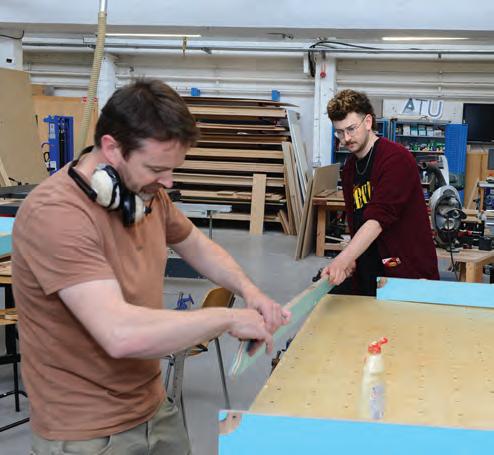
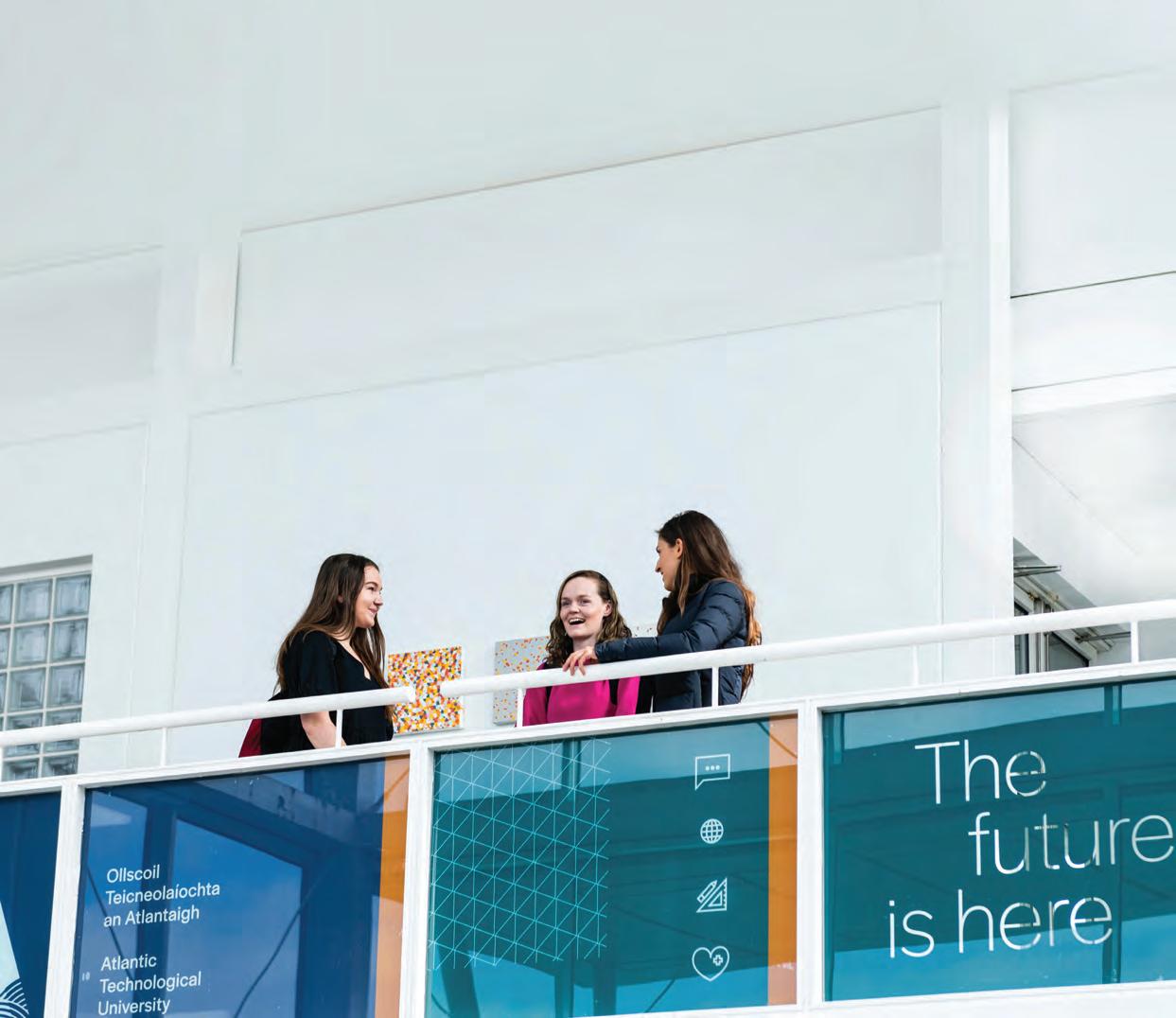 Maidir le hOllscoil Teicneolaíochta an Atlantaigh
Maidir le hOllscoil Teicneolaíochta an Atlantaigh
Atlantic Technological University is a multi-campus technological university in the west and north-west of Ireland that delivers a rich combination of academic and research excellence, quality of life and opportunity.
Atlantic TU has a student population of over 20,000 learners, spanning 600 academic programmes from pre-degree to doctoral level. ATU’s strength lies in our collaborative ethos, realising our shared goals by elevating and championing success.
Atlantic TU offers an exceptional higher educational experience. Building on the foundations of applied learning, our university focuses on research-informed teaching. We empower learners to realise their full potential, developing responsible citizens, critical thinkers, innovators and problem solvers equipped for life-long learning.
At Atlantic TU we have a proud tradition of industry engagement, through collaborative research and providing courses at undergraduate and postgraduate levels that meet employers’ skills requirements. As the leading higher educational institution in the region, our students, staff and communities are intrinsically linked to regional employers, building sustainable employment opportunities, and driving growth in the west and north-west.
At Atlantic TU, students develop as global citizens, recognising and building awareness of the opportunities and roles we play in developing sustainable global economies. From collaborative international research to overseas study and work placement opportunities, ATU students are part of a global community with a mindset that reaches far beyond our shores.
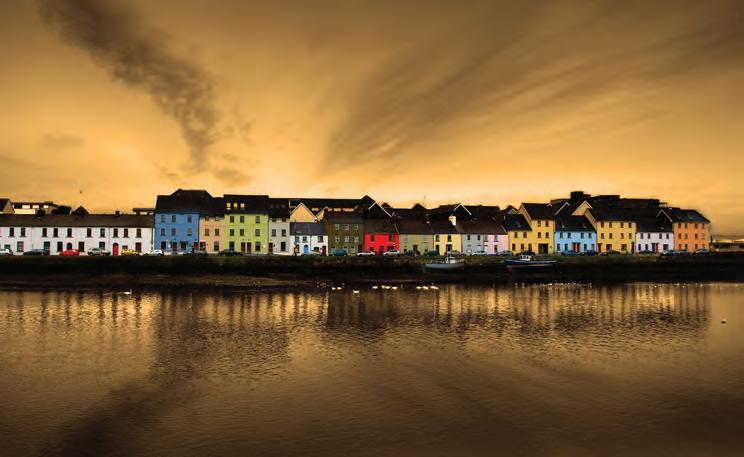

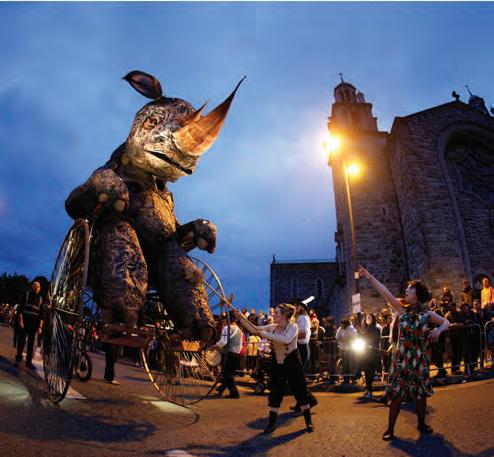 Cathair na Gaillimhe
Cathair na Gaillimhe
Galway is a cosmopolitan city that is world-renowned for its friendliness and community vibrancy. The 2020 European Capital of Culture is enriched with energy, amazing nightlife, a booming music scene and a fantastic schedule of annual festivals.
A prominent gourmet destination, Galway offers everything from Michelin-star dining and contemporary restaurants to quirky cafés and street food. Trendy cocktail bars, traditional Irish bars and late-night venues with international artists, ensure you will always find a lively night out. With several cinemas to choose from alongside weekly arts and cultural events, quiet night options are plentiful too. Shopping lovers can find the perfect look at high street retailers or independent boutiques. Finally, with events including the Galway Races, Galway International Arts Festival and the Galway Christmas Markets, there is always an opportunity for some fun and festivals.
Just a short distance from the city centre is Salthill. Overlooking Galway Bay, this famous seaside resort is perfect for a fun afternoon, a day at the beach or a leisurely stroll along the promenade. Barna Woods and the Riverside Walk offer the perfect settings for fresh air and exercise in beautiful surroundings. Regular bus services to Connemara National Park will allow you to escape the city and explore over 2,000 hectares of scenic mountains, bogs, grasslands and woodlands.
There are several purpose-built student villages located close to ATU Galway City. Students may also choose from numerous digs and private rental options. For more information on all the accommodation options,

please contact the Students’ Union at www.atustudentpad.ie. Please note accommodation is owned and run by private operators and not by ATU.
A modern on-campus sports hall offers a wide variety of sports ranging from basketball to badminton and cricket to cheerleading. Our state-of-the-art High Performance Unit (HPU) facilitates programmes for elite level athletes, whilst a fitness studio offers daily exercise classes. Outdoors, we have a fully floodlit GAA pitch with access to additional pitches locally. We also have arrangements made with several sports clubs. This means our students have access to facilities including FAI approved 3G Astroturf and grass pitches at Mervue United AFC, rugby pitches at Galwegians RFC and a 200m five lane synthetic running track at O’Sullivan Park.
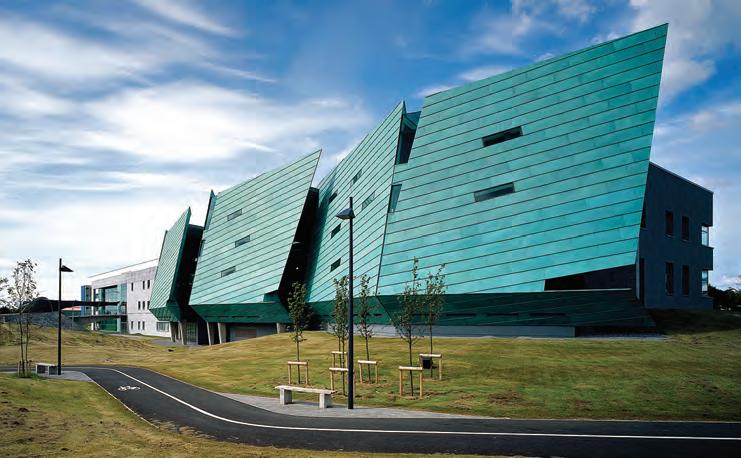
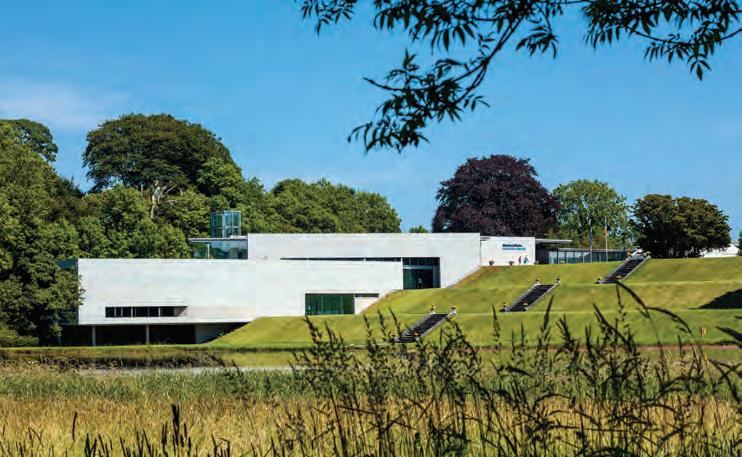


With a population of over 12,000, Castlebar is one of Ireland’s fastest growing towns and home to ATU Mayo. Whether you want to immerse yourself in an energetic town or explore beautiful countryside, Castlebar offers an unforgettable student experience.
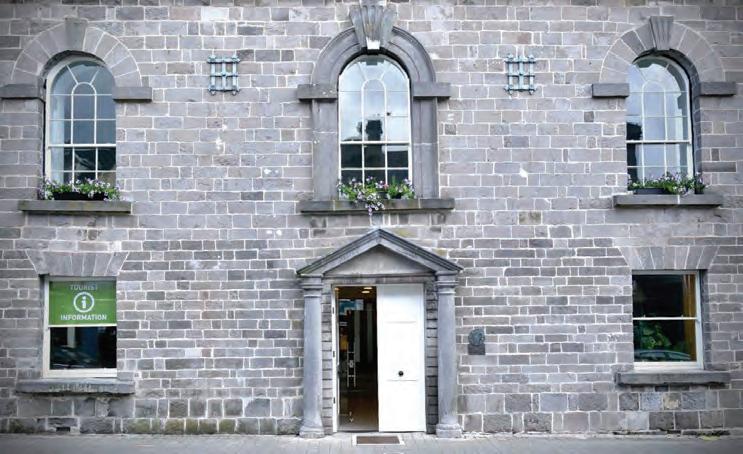
Castlebar is a shopper’s heaven, with unique boutiques, high-street brands and everything in between. Food options range from quirky cafés to award winning restaurants, so there is something to suit every taste. Also, be sure to check out one of the weekly farmers markets. Established musicians frequent pubs, late bars and cocktail bars for those looking to dance the night away. For a quieter night out, a luxury seven screen cinema has all the latest blockbusters. The Royal Theatre and Event Centre, a leading entertainment venue in the west of Ireland, regularly plays host to top music artists, comedians, plays and major events.
The stunning grounds of Turlough Park and the nature trail at Raheens Wood are the perfect settings to get away from it all, whilst a range of water sports on Lough Lannagh offer a chance to try something new. Croaghmoyle and Nephin mountain ranges provide fantastic opportunities for hillwalking, mountain hiking and exploration. Regular bus services mean the award-winning seaside town of Westport is within easy reach. Alternatively, hop on a bike and explore The Great Western Greenway which extends from Castlebar onwards to Westport.
There are numerous accommodation options within easy access of ATU Mayo. These include private rentals, digs and purpose-built student accommodation. For more information on accommodation please contact the Students’ Union at www.atustudentpad.ie. Contact details for

Hawthorn Village, the purpose-built student accommodation, can be found at www.hawthornvillage.ie Please note student villages are owned and run by private operators and not by ATU.
On-campus sports facilities include an indoor climbing wall, soccer pitch and running track. Students also have access to a range of local facilities. These include an eight-lane pool at the newly opened Lough Lannagh leisure complex, indoor courts at Castlebar Tennis Club and boxing facilities at Castlebar Boxing Club. ATU Mayo is recognised as one of the leading institutes in the country for outdoor adventure activities. Beaches, rivers and mountains provide the perfect environment for a range of outdoor activities.
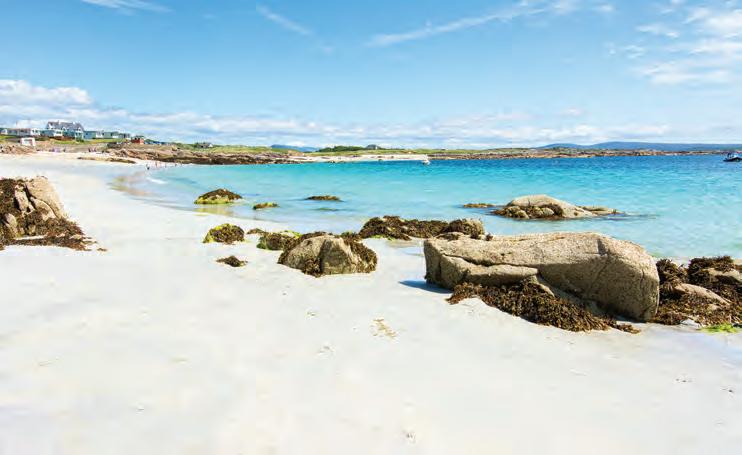

 Conamara
Conamara
Located in the beautiful village of Letterfrack, ATU Connemara is the National Centre for Excellence in Furniture Design and Technology. Renowned for its live traditional Irish music, Letterfrack is also surrounded by beautiful coastal destinations.
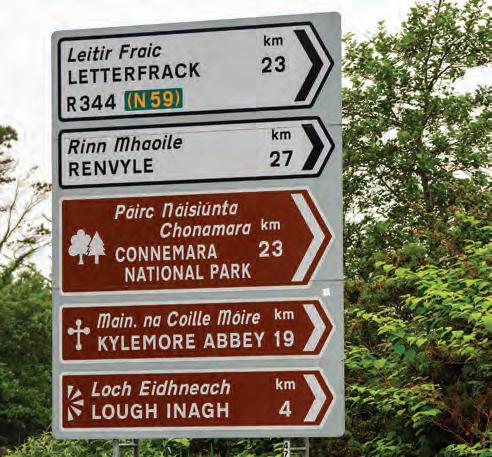

There is an excellent choice of places to eat and drink in Letterfrack including cosy pubs, restaurants, coffee shops and a hotel. Clifden, which is often referred to as the capital of Connemara, is only 15 minutes away and is the largest town west of Galway City. This thriving town is home to shops, cafes, fine dining restaurants and lots of quaint Irish pubs. There are regular bus services to Letterfrack, with daily connections to Clifden and Galway City available.
Letterfrack is overlooked by the majestic Diamond Hill and Connemara National Park. This park covers almost 3000 hectares of scenic mountains which are part of the famous Twelve Bens range. The main entrance to Connemara National Park is in the village and is the starting point for an array of stunning walks. Beautiful coastal destinations such as Inishboffin and Cleggan are also within easy access of Letterfrack.
Purpose-built student accommodation, Áras Ghuaire, is located within one-minute walking distance of ATU Connemara. To contact Áras Ghuaire please go to www.letterfrackaccommodation.com To find out about private rental and digs options, please contact the Students’ Union at www.atustudentpad.ie. Please note student villages are owned and run by private operators and not by ATU.
Students have access to local sports facilities including a grass football pitch, floodlit Astroturf pitch, fully equipped gym and a tennis court. Those looking to explore the great outdoors have a huge range of options to choose from, with pursuits available on land and sea. Scenic walks and cycles, horse riding, angling and sea swimming offer ideal opportunities for relaxation. The more adventure orientated individual may find the perfect option in mountain climbing, abseiling, surfing, windsurfing or scuba diving.
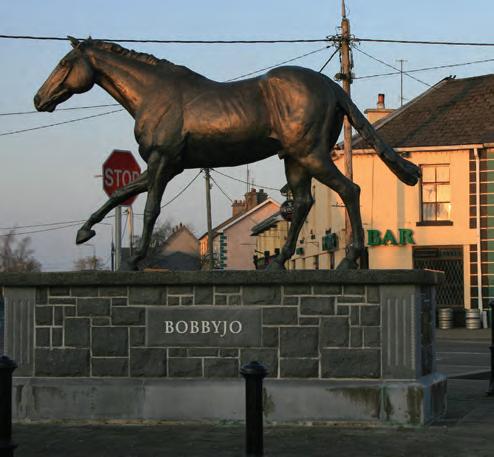 An Creagán
An Creagán
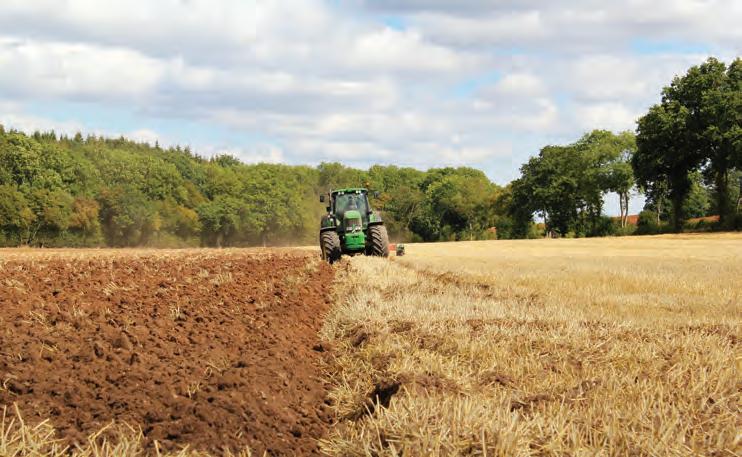

Home of the first agricultural college in Ireland, Mountbellew is a growing market town located 45 kilometres from Galway City. This busy town is where students spend their first two years of study before attending ATU Galway City in years three and four.
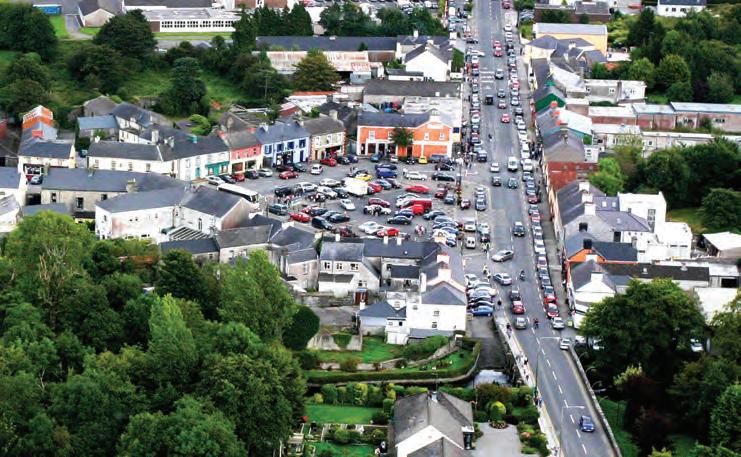
With a population of almost one thousand, Mountbellew has several shops, small businesses, restaurants and coffee shops. Local pubs regularly host live music and entertainment, with a warm welcome ever-present.
A Farmers Market takes place every Tuesday where visitors will find a range of produce which includes cheese, fruit, vegetables, wine, fresh fish and pastries. Daily bus services to Galway ensure the energetic city is never too far away.
Mountbellew Demense includes a wooded area with forest walks and picnic areas. The Demense loop trail is a 2.2km walk or cycle trail which navigates through trees and flora. The area is also home to a wide diversity of wildlife species, whilst Mountbellew Lake is a sanctuary for waterfowl including ducks, pheasants and swans. The area is also filled with interesting historical buildings such as old walled gardens, a flour mill, a boat house and a forge.
There is a range of private rental and digs accommodation available to ATU Mountbellew students. The accommodation service for ATU Mountbellew is provided by the Students’ Union office. For more information on accommodation options please contact the Students’ Union at www.atustudentpad.ie. Please be advised that properties are not vetted by ATU.
Students have access to a range of local sports facilities at Moylough Sports Ground. These include a GAA pitch, soccer pitch, handball alley and a tennis court. State of the art gym facilities can be found at Mountbellew Fitness Centre, whilst Mountbellew Golf Club is home to an 18hole golf course. Natural facilities allow for several outdoor options, ranging from fishing on the River Shiven to cycling the Demense loop trail.
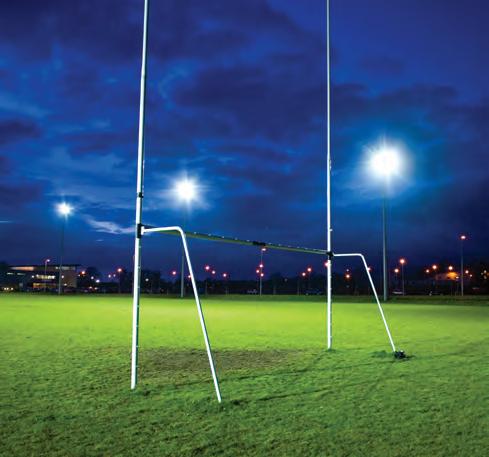

 Dún na nGall
Dún na nGall
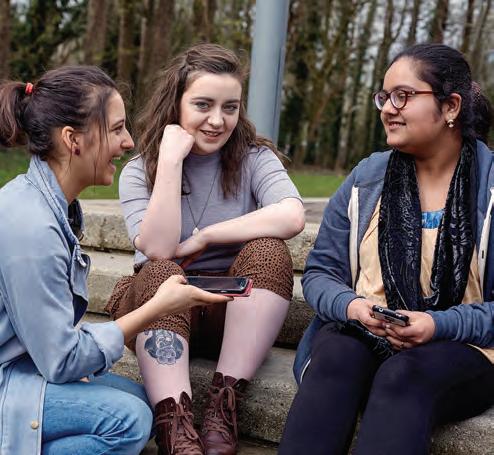
ATU Donegal has two campuses, one based in Letterkenny and another based in Killybegs. Donegal is renowned for its stunning beaches, welcoming and relaxed atmosphere, and not forgetting the most beautiful accent in Ireland. It’s easy to see why ATU Donegal is attracting more students than ever before.

The Letterkenny campus is in the heart of Letterkenny town centre. Letterkenny is a lively town, offering excellent shopping, a vibrant nightlife and great opportunities for part-time work, sport, culture and fun. There are plenty of much-loved student haunts such as pubs, music venues, nightclubs and restaurants. In addition, you’ll find an 8-screen cinema and the Aura Leisure Complex, which houses a 25m pool, tartan track and gym. For arts and cultural enthusiasts there is the Arena 7 Entertainment Complex, An Grianán and a Regional Cultural Centre which incorporates an art gallery, an auditorium and full cinema facilities. The ATU Donegal Letterkenny Campus includes the following facilities:
• Educational and support facilities, including general purpose and specialised teaching facilities, research facility, administrative, technical and academic staff accommodation, library, 4 dining areas/restaurants, meeting rooms and lecture theatres

• An Dánlann: sports/student services building comprising large sports/ assembly hall, fitness suite, changing facilities, students’ union and student services centre, dining facilities and storage space
• External Sports Facility: floodlit sand-based natural grass playing pitch.
The Killybegs campus is located in Ireland’s premier fishing port which is rich in tradition and heritage. Its picturesque location boasts spectacular scenery and harbour views. This is perhaps the most scenic campus in Ireland, surrounded by breathtaking beaches and close to Europe’s highest accessible sea cliffs – Sliabh Liag. Students experience small class sizes and a personal approach to learning in a comfortable and welcoming setting. The campus has an impressive reputation for delivering exceptional academic programmes in culinary arts, hospitality and tourism.
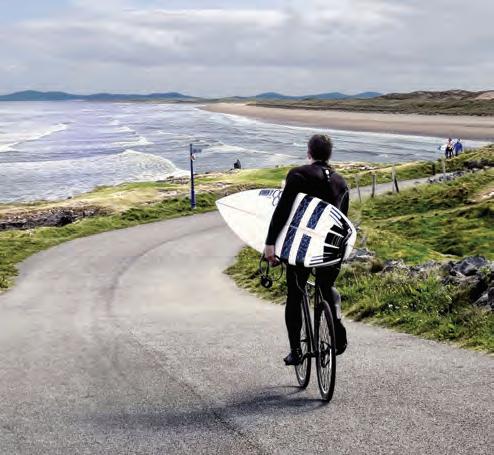

 Dún na nGall
Dún na nGall
Donegal is one of the most affordable regions to live, work and travel around. The cost of living is considerably lower than the national average and the region offers a variety of affordable student accommodation. There is no on-campus accommodation, however, there are options for digs, houses to rent on a shared basis, and in Letterkenny there are also a number of apartment complexes built specifically for the student market. Both campuses are quite central and most accommodation is within 10 minutes’ walk of each of the campuses. Each year, the Students’ Union (SU) compiles and updates a list of student accommodation. The list is sent out automatically to students who receive an offer from ATU Donegal and is also available online from early August of each year. Students are advised to begin the accommodation search early as demand can be high.
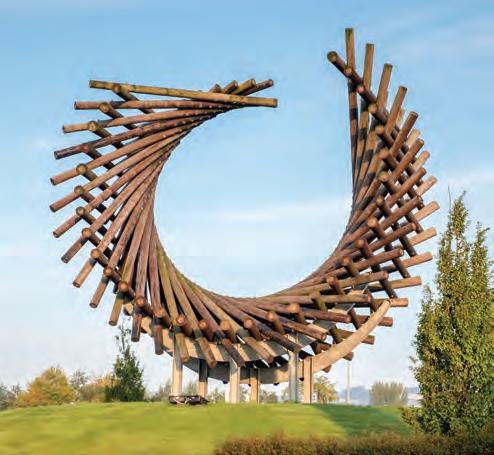
ATU Donegal’s sporting teams compete in the higher education and university competitions throughout the sporting calendar. The men’s and ladies’ sports teams have grown from strength-to-strength in recent years under the leadership of Michael Murphy, Head of Sport at ATU Donegal. In addition to competitive sports the campus offers health and fitness advice, recreation courses, wheelchair sport and community activities.
The ATU Donegal gyms are located in both our Letterkenny and Killybegs campuses. The gyms are free-to-use for all students and they offer daily exercise classes to students who like to work within a small group setting. Current facilities include an on-campus floodlit pitch and indoor training facility, multi-purpose sports centre and a modern fitness suite.
ATU Donegal currently offers five types of scholarships to new entrant undergraduate students. More information on these scholarships can be found on www.atu.ie.
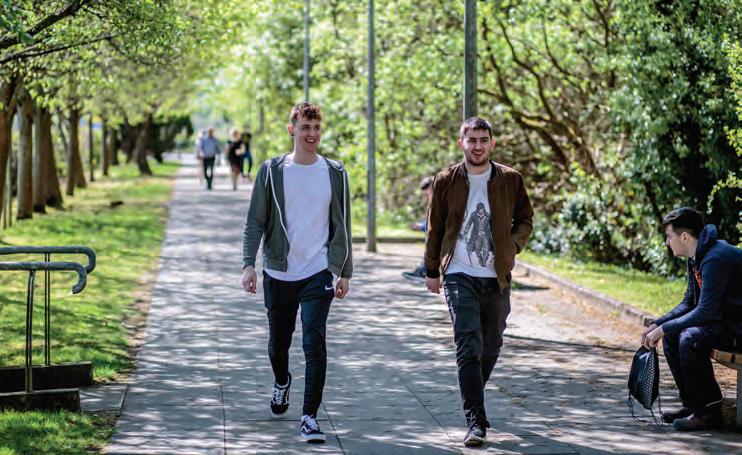
The scholarships available are:
• New Entrant Sports Scholarships
• Optum North-West Healthcare Scholarships
• College of Sanctuary Scholarship
• The 1916 Bursary Fund
• ATU Donegal/GPA Scholarship


 Sligeach
Sligeach
Sligo combines a vibrant urban centre with stunning natural beauty. The perfect setting for an unforgettable student experience. With an added community feel throughout, it’s easy to see why Sligo is such a popular student destination.


This 72-acre campus combines modern buildings, state-of-the-art facilities and landscaped grounds. A bright, contemporary feel runs through everything from the lecture halls to the library and cafés to chill-out zones. The campus is just a ten-minute walk from Sligo town centre, whilst beaches, mountains and countryside are all a short trip away. Sligo is easily accessible by road, rail and air, with numerous return bus services stopping on campus daily throughout the year. This Green Flag campus is also home to Sligo’s only Starbucks.
This is perhaps the most scenic campus in the country and just minutes away from Sligo town centre. Students experience small class sizes and a personal approach to learning in a comfortable and welcoming setting. There is a balance of theory and practical across all undergraduate programmes to enhance skills ahead of real-world placements. Students enjoy a learning experience that will empower them on a personal and professional level to ensure their high employability on graduation.
From sushi, vegan and tapas to Mexican, Italian and Thai, Sligo’s thriving culinary scene ensures there is something to suit every taste and budget. There are nightlife options for every mood, so whether you are looking for a traditional Irish pub or a trendy cocktail bar, a live music venue or an energetic nightclub, you will find it here. A ten-screen cinema has all the
latest blockbusters whilst The Hawk’s Well Theatre, The Model and The Factory host a diverse range of arts and entertainment weekly. For the shopping enthusiast, independent shops are nestled in between popular high street brands, catering for everything from clothes to computers and vintage to vinyl. Famous for its connection to W.B. Yeats, Sligo is also home to a range of literary and cultural options.
World class beaches at Strandhill and Rosses Point or the tranquil beauty of Lough Gill, provide the perfect place to get away from it all. Sligo’s rural landscape includes the world-famous Benbulben Mountain, the Queen Maeve trail on Knocknarea, woodland walks such as Hazelwood and Slish Wood, megalithic sites in Carrowkeel, the beautiful wilderness of the Ox Mountains and so much more.

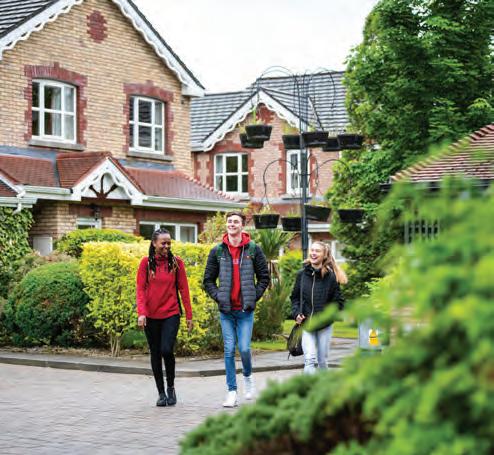
 Sligeach
Sligeach
With a diverse and plentiful range of options available, Sligo has the perfect accommodation to suit every individual. The cost of student accommodation is also much more affordable than many of Ireland’s other university towns and cities, with this also reflected in the cost of living. There are ten purpose-built student villages in Sligo, all within easy access of both campuses. Some student villages offer a laundry service, whilst others have smart TV’s and free Netflix.

Digs accommodation is popular with students moving away from home for the first time, as they live with a local family and all meals are provided. With an excellent selection of private apartments and houses, private rental is popular with students wishing to live with friends. Whilst most students live close to campus, some choose the hustle and bustle of Sligo town centre or the stunning natural beauty of Strandhill and Rosses Point.

At the centre of our campus sports facilities is the Knocknarea Arena. This sporting hub is home to a multi-purpose sports hall, state-of-the-art fitness suite and specialised exercise studios. Outdoors, students have access to an international standard eight-lane tartan-surface running track with throwing and jumping facilities. Our 3G Astroturf pitch is fully floodlit and FIFA approved, whilst our fully floodlit grass pitches include a championship standard GAA pitch and FAI certified soccer pitch.
Off-campus, students can avail of various sporting facilities at heavily discounted rates. These include a 25m indoor heated swimming pool at Sligo Regional Sports Centre plus a variety of indoor and outdoor courts at Sligo Tennis Club. Sligo’s stunning location also lends itself to outdoor options ranging from golf, water sports and horse riding to hill walking, mountain biking and cycling.
Gateway www.gatewayapartments.ie
Ard Nua www.ardnua.com
Uni Rooms @ Ard Nua www.unirooms.ie
Yeats Village
www.yeatsvillage.net
Benbulben Court Apartments www.benbulbencourt.ie
Clarion Village www.thevillageclarion.com
The Grove Student Complex www.thegrovesligo.ie
Milligan Court www.milligancourt.ie
Lake Isle Luxury Apartments www.lila.ie
St. Angela’s Lakeside Aparthotel www.sala.ie
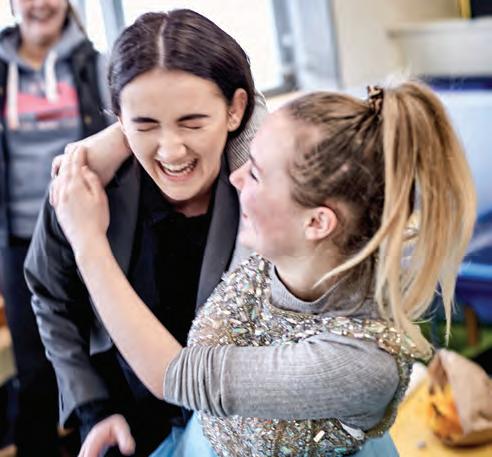

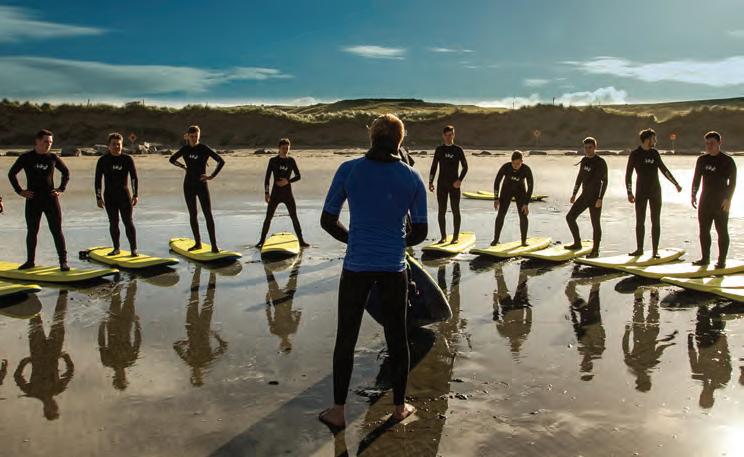
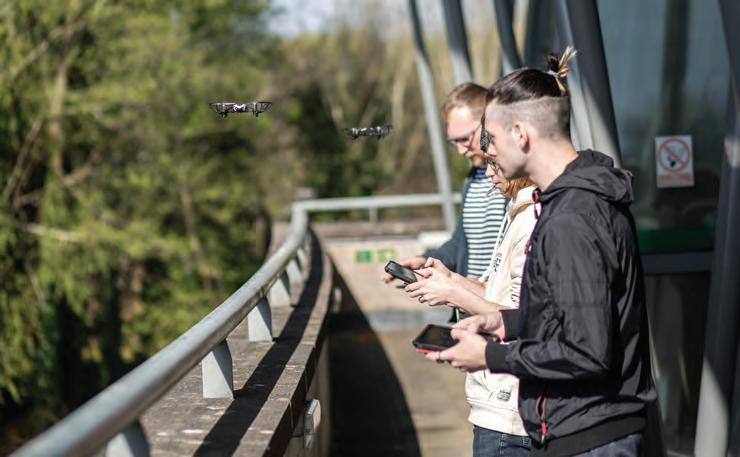

Joining a club or society is a great way to meet people with similar interests, try out something new or pursue your passion. We encourage students to join at least one club or society, and with a huge variety to choose from, ATU has something for everyone!
University life is more than just study. It is also about having fun and making friends. Clubs and societies play a big role in this. Joining one can often be the start of a new passion or a lifelong friendship.
We have a huge selection of clubs and societies to choose from. These cover everything from frisbee to fine art and music to motorsport. Also, new clubs and societies are formed every year which means you can even start your own.
Clubs and societies days are held across our campuses early in the university year. This is an opportunity to sign up to as many of them as you like. ATU subsidise clubs and societies so that they are free, as are most of the activities they offer.
Clubs and societies are great fun, but did you know they offer more than that? Teamwork, participation and personal development are qualities that will impress employers. You may even discover a talent you never knew you had.
Ag Science Amination Astronomy Bushcraft Cheerleading Christian Union Dance Debate DJ Drama Environmental Fashion Photographic Frisbee
Games
Go Karting International Law LGBTQ+ Literature Mature Music Neurodiversity Politics Robotics Rock Climbing Skate Tea
ATU Prospectus 2023 | 26 * Clubs and Societies available will vary across individual campuses
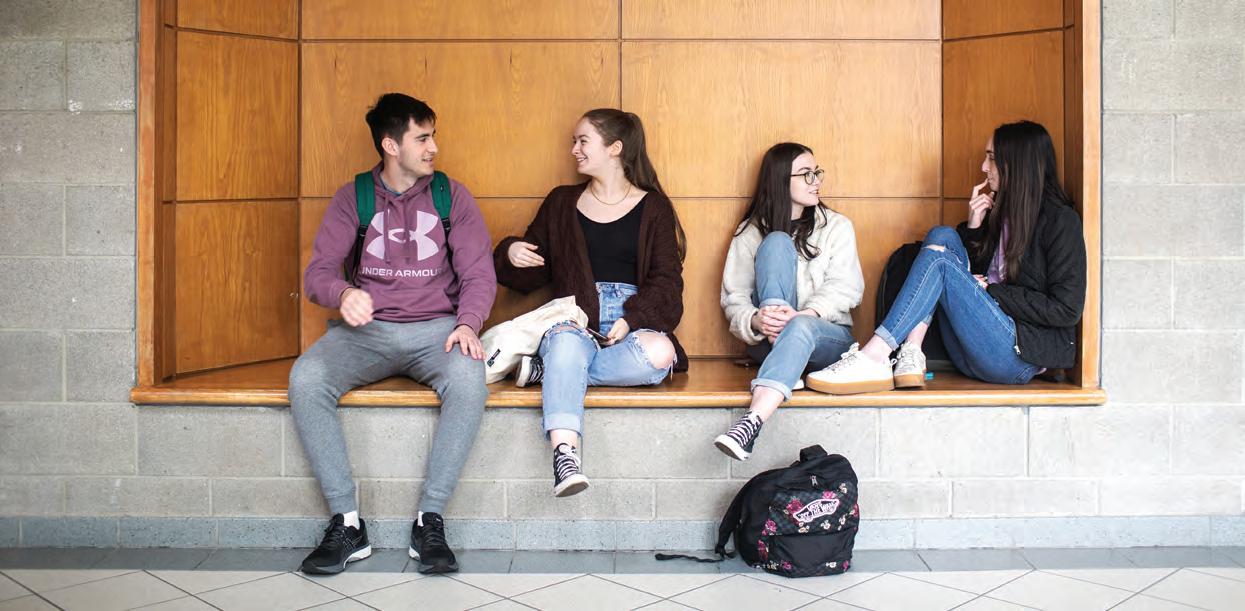

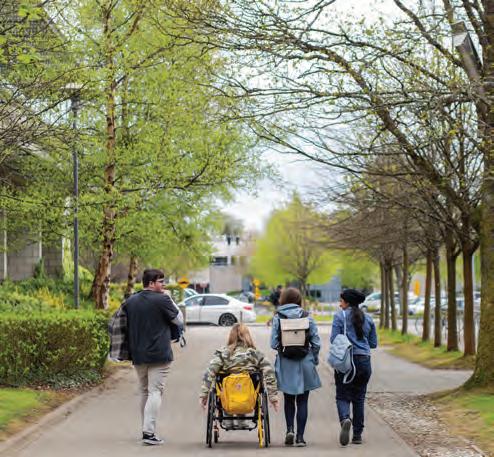
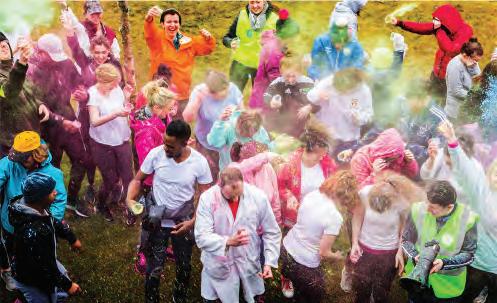
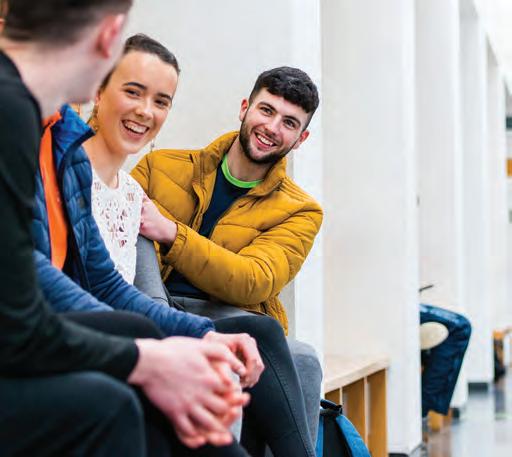
As soon as you become an ATU student, you automatically become a member of a Students’ Union (SU). These are democratic organisations run by students, for students. The SU attend important university meetings to ensure that students are the focus of every decision made.
Whilst they organise lots of fun events throughout the year, the Students’ Union are also a valuable source of support. The supports they offer range from helping with any academic concerns you might have to assisting in your search for the perfect accommodation. If you need to talk, their door is always open.
The Students’ Union organise campaigns on important issues such as mental health, sexual health and exam stress. They also organise events to help you settle into university life and make sure you have an unforgettable experience. Check out the campaigns and events calendar for an idea of what to expect.
You could become your class representative. Class reps are the spokesperson for each individual class and are elected by their fellow classmates. They are the first point of contact for the Students’ Union. Class reps acquire lots of new skills such as negotiation, organisation, leadership and advocacy.
Below is an example of the types of events and campaigns the Students’ Union organise Freshers’ Week
Rainbow Week Silent Disco Mental Health Weeks Sexual Health Weeks Sports and Awards Ball Road Safety and Travel Week
Healthy Living Week Day at the Races
Diversity Week Exam De-stress Weeks


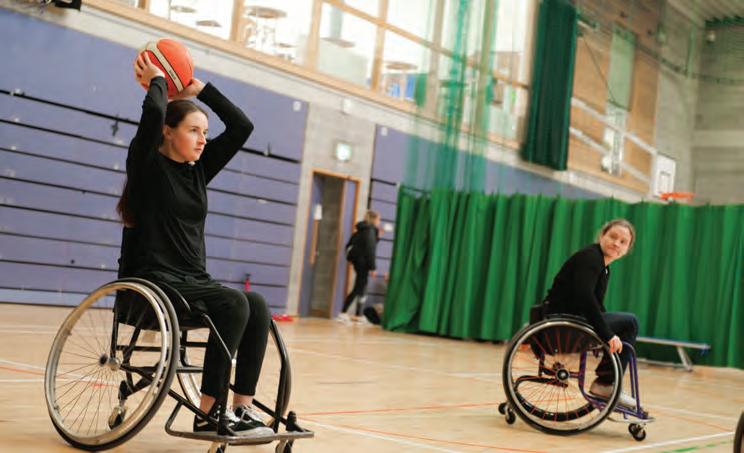
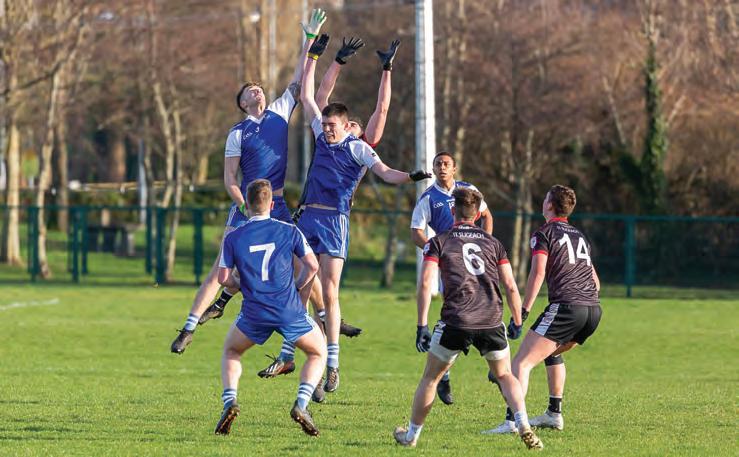

Sport and physical activity play an important role in campus life at ATU. Our belief is that sport is for everyone. We understand the positive impact it can have on an individual’s physical and mental health. That is why we have a wide range of activities to suit everyone. Whether you are an elite level athlete, a talented amateur or someone who is looking to keep fit and healthy, we have something to suit all abilities and interests.
Develop your talent with the help of our top-class coaches and get the supports needed to excel in your chosen sport. Elite level athletes are encouraged to apply for an ATU Sports Scholarship. You will represent ATU at national or international level, whether that is individually or as part of a team.

No matter what your sport is or what level you compete at, you can continue to do so at ATU. Our sports clubs range from basketball to badminton, karate to kayaking and everything in between. This is a great way to try out something new, meet new people or participate in a sociable environment with a competitive edge.
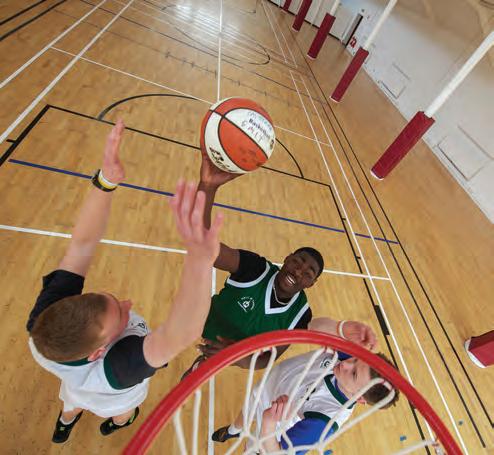
If you just want to have some fun and keep active, we have something for you. Exercise classes such as spinning and yoga, fully equipped fitness suites and stunning local walks are just some of the ways ATU will help you stay fit and healthy.
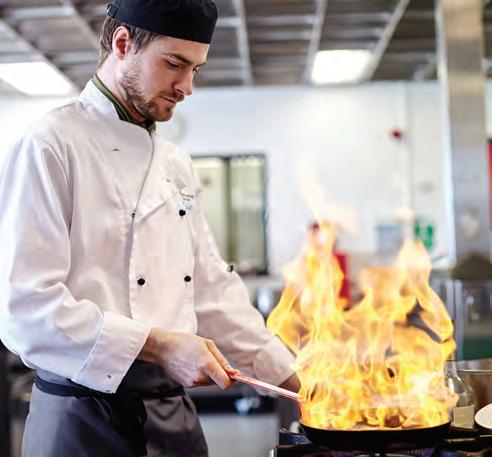
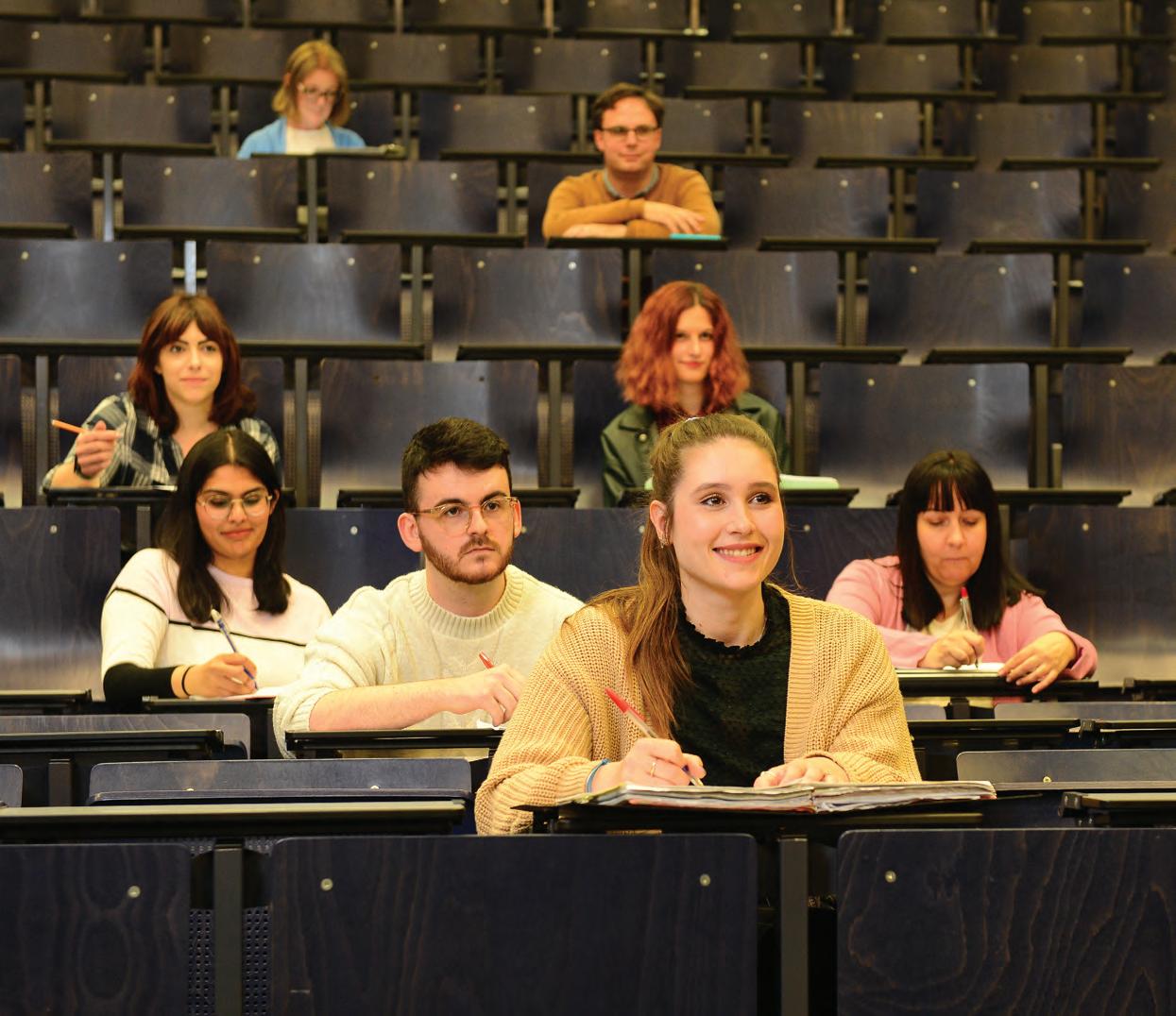

We know that funding studies can often be a concern. That is why we provide additional financial support to hundreds of students each year. We recognise student talents in a range of areas, from academic results to sporting achievements. We also help support students who need financial assistance and ensure they have the means to succeed.
The ATU Sports Scholarship programme gives talented student athletes the supports needed to excel in their chosen sport whilst maintaining academic excellence. Each year we award scholarships across a wide range of sports. Alongside financial support, our sport scholars have access to top class sports facilities and coaches, sports science supports, academic supports and receive ATU branded sports scholarship gear. Bonus CAO points may also be awarded to elite level sports scholars.
This is a funding scheme targeted at students who are socioeconomically disadvantaged and who are from groups that have low participation rates in higher education.
The Student Assistance Fund (SAF) provides funding to students whose participation in higher education would be at risk as a direct result of financial difficulty. Funding is available towards costs relating to rent, transport, books, materials, food, utilities, childcare and medical costs.
REACH Scholarship
College of Sanctuary Scholarship
GPA Postgraduate Scholarship
Optum Healthcare Scholarship
Academic Scholarship
Access Scholarship
Mature Student Scholarship
Special Sports and Cultural Achievement (SSCA) Scheme
Non-EU Scholarship Sanctuary Scholarship
President’s Bursary Fund
* Scholarships and Bursaries available will vary across individual campuses
For more information on scholarships and bursaries at ATU, please email admissions@atu.ie

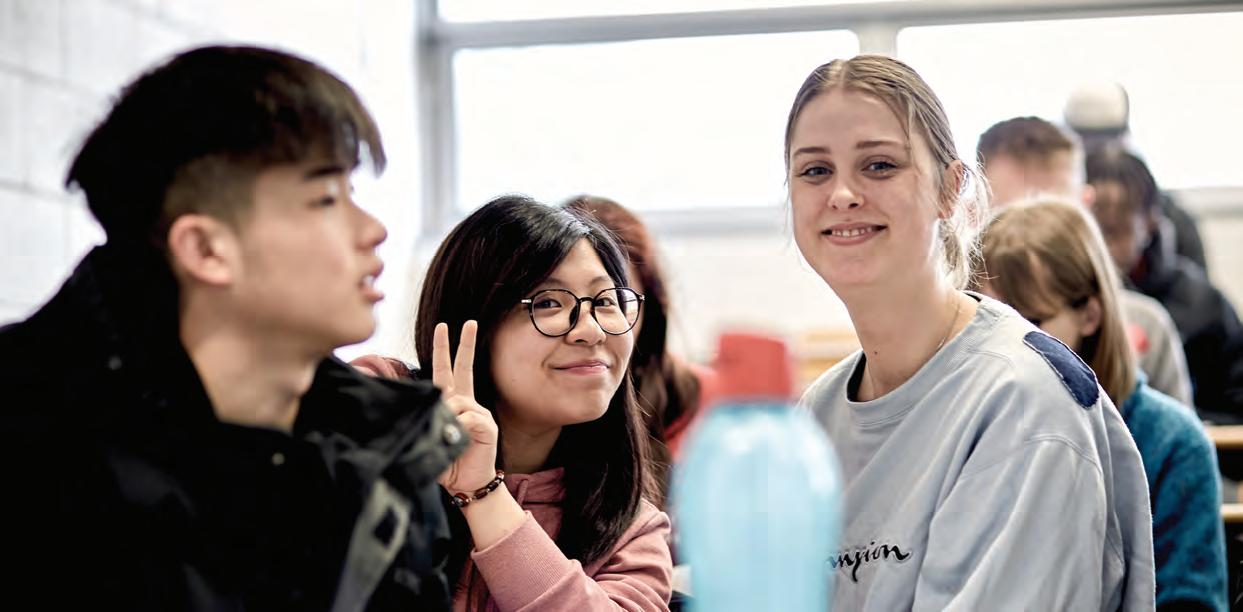



We have invested heavily in our learning facilities to ensure our students are fully supported throughout their academic journey.
Our dedicated learning-support tutors help students who have dyslexia or other specific learning difficulties. Students have access to the latest assistive technology and can engage with a learning support tutor on a one-to-one or group basis. Reasonable accommodation at exams and liaising with relevant staff are other ways our learning-support tutors can help.
Our innovative and friendly maths support centres offer the extra support that many students need. Services include consultations, tutorials, computer-based tutorials and access to relevant text materials. You can even submit maths problems for correction. Students can access these facilities on a one-to-one basis, as a small group or online.
Students of all abilities can benefit from our academic writing supports. These include getting started with assignments, effective notetaking, report writing, avoiding plagiarism, successful writing in exams and the writing process – generating ideas, drafting, revising and editing. Students can access these facilities on a one-to-one basis or as a small group.
Our students have free Office 365 to download to their own devices plus free unlimited One Drive data storage, allowing them to study from anywhere in the world at any time. Students can also access a range of free modern technologies and free high-speed Wi-Fi on our campuses.
We know that the transition to college is an exciting time, but a nerve-wracking one too. Our comprehensive induction and welcome programmes ensure the transition is both easy and fun. During induction students receive their timetables, meet their classmates and lecturers, learn about supports and services, get their questions answered, go on a campus tour and lots more. Screening questionnaires are also carried out with first year students to identify their preferred learning style and any supports they may need.
Our careers teams are passionate about finding every student a career and future they will love. They advise on career options and postgraduate studies whilst also assisting with CV and interview skills. The teams have well established links with local, national and international employers. Throughout the year they organise a range of workshops, careers fairs and employer talks.
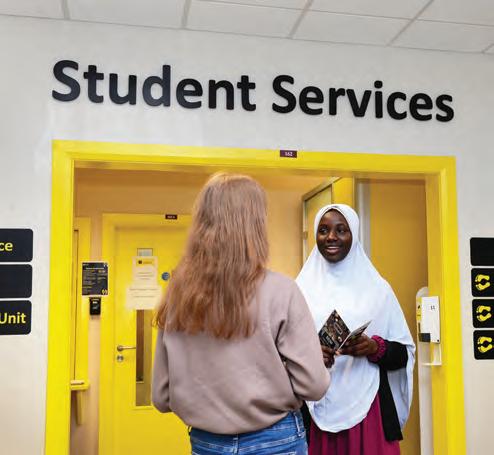


If you have special learning needs, a disability or any circumstances which might need individual consideration, our access offices are here to help. A range of comprehensive and extremely modern assistive-technology supports are also available at ATU. This is central to our facilitation of students with disabilities or learning difficulties.
ATU participates in the HEAR (Higher Education Access Route) and DARE (Disability Access Route to Education) access schemes. These target applicants from groups who are under-represented in Higher Education. The schemes facilitate flexibility on points and offer additional supports to students throughout their studies. For more information please go to page 315 of the prospectus.
We are passionate about creating a third level community which is accessible and inclusive to all. Our disability-support services provide an individual support plan tailored to the specific needs of the student. Engagement with other relevant staff ensures appropriate plans are in place to support students to reach their full potential.
Our professional counselling service is free-of-charge to all students. The experienced teams will help and support students with any area of concern that might arise; be that academic, personal, financial, mental health or otherwise.
The health service teams across ATU provide free, on-campus medical care and health promotion information to students. The teams, which are made up of doctors and nurses, can help with the diagnosis and treatment of health problems, alongside providing services such as issuing prescriptions and repeat prescriptions.
The chaplaincy service supports students in their personal and spiritual growth during their time at ATU. The chaplaincy service is available to students of all faiths and those who have none. The team help to build a sense of community, care for the wellbeing of all and are always available for a chat.
Our student supports teams help with any concerns or worries you may have in a confidential and sensitive manner. If it’s important to you, it’s important to us.
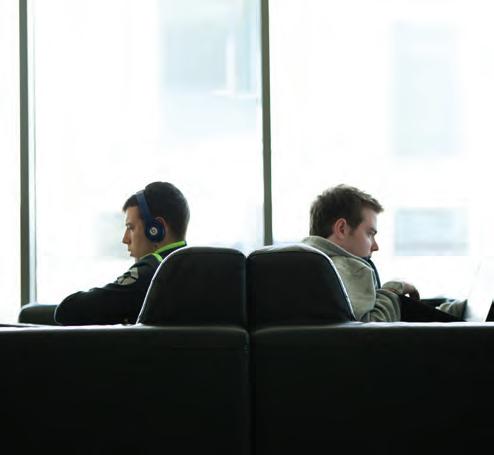


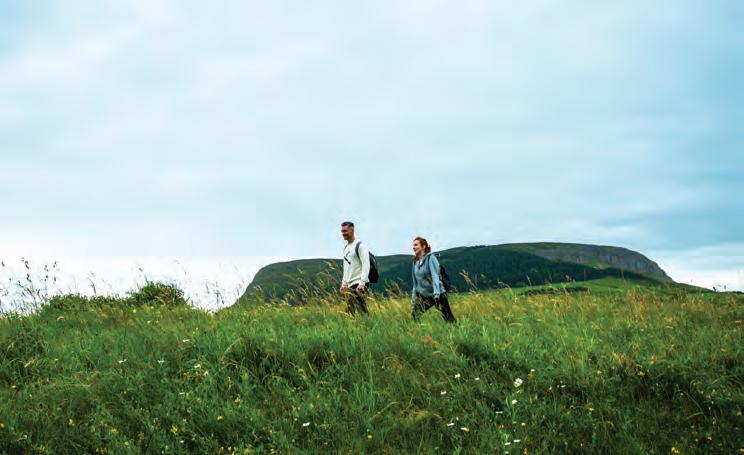
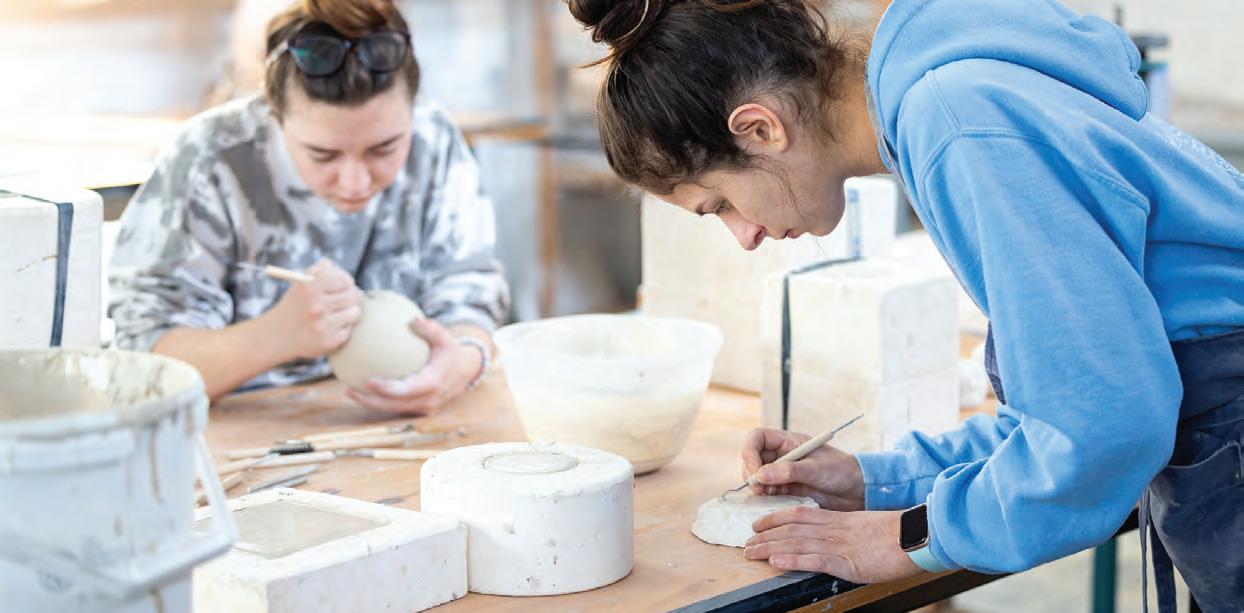
There are multiple ways to achieve your career goals. A degree from ATU will open many doors, allowing you to follow numerous career paths. Your future can take you anywhere and we can help take you there.
It is not always easy to know exactly what area to study. It is even more difficult to decide what area to specialise in. That is why our flexible common entry programmes are so popular. Common entry allows students to understand where their true passion lies. Students study a broad range of subjects before choosing what area to specialise in. Please view our programme pages for more information on the common entry options across our campuses.
Some of our degrees have a direct path into teaching, with built in school placements providing experience teaching in supportive classrooms and environments. Many of our honours degree programmes also meet Teaching Council subject requirements. Students who pursue this route, need to complete a Professional Master of Education (PME) after they graduate to become a fully qualified teacher.
There is never just one way to accomplish your goals. Here at ATU, we want to help each student achieve these goals. If you dream of a career in a certain profession, there may be alternative routes you are not aware of. For example, our health science programmes have routes into allied health professions. Our Schools Liaison teams are always available to discuss the alternative routes which can help you fulfil your dreams.
Many of our degrees have the added bonus of professional accreditation. Professional accreditation is a kitemark of quality that demonstrates a programme meets or exceeds standards developed by experts in the profession. The benefit to our graduates is increased employability. It gives employers confidence knowing that an individual has reached the industry standard. Throughout the programme pages in this prospectus you will see all the professional accreditations.
CAO students can apply for up to 20 courses, ten at level 8 and ten at level 6/7. The ladder system allows progression through these levels and beyond. For example, we have seen students progress from level 6 higher certificate up to PhD level 10. If a programme of interest is available at all levels, we recommend students include all levels on their application. This increases the chances of an offer. Level 6 points are normally much less than their level 8 equivalent.



If you are looking for an unforgettable experience during your time in ATU, then studying abroad might just be for you. We encourage students to consider the option of spending a year, a semester or even a small part of a semester at one of our partner institutes. With locations across Europe and the world, your dream destination might be closer than you think.

Time spent studying abroad will look great on your CV and further enhance your employability. It demonstrates your confidence and ambition – valuable skills that can give you an edge with future employers. In the internationalised job market, employers are increasingly looking for graduates who have a demonstrated ability to succeed in an international environment.
You will go on a journey of personal development as you step out of your comfort zone. You will gain new knowledge and develop language skills, whilst also having the option to study fully through English. There will be opportunities to travel to new destinations. You will take in world famous scenery and landmarks, all whilst you immerse yourself in a new culture.
ATU’s dedicated International Office's are on hand to make this happen. Not only will they help you make this dream a reality, they will fully support you for the duration of your time away.
Erasmus+ offers financial grants to students who wish to study abroad. These grants are in addition to, and independent from, other educational supports such as SUSI.


The opportunity to translate academic knowledge into a hands-on employment experience is why ATU are so passionate about work placement. From start-ups to social care, teaching to technology, our varied placement options mean you will find something to suit you and your career aspirations. Although you will not be on campus during work placement, we are still here to fully support you.
Real-world experience makes you much more employable. It will look great on your CV and gives you real-life examples to reference in an interview.

As we have seen many times before, leaving a good impression during work placement can often lead to job offers. Translating book knowledge into a working situation is a valuable skill employers look for.

Even if you don’t get a job offer, the networks you build through work colleagues and industry experts can open all sorts of opportunities.
You will gain an insight into something you are passionate about. This can reinforce your career path choices. It can also highlight new career opportunities you may not have known were an option. Or it could fuel your desire to progress your studies to the next level.
Socrúchán OibreReturning to education takes courage. We welcome hundreds of new mature students each academic year. Whether you want to gain a new qualification for your career or study something you have always been passionate about, we have the supports in place to help you succeed.
We understand that the first essay, assignment or report can be a challenge. We have several supports available including our Academic Writing Centre and Maths Support Centre.
We pride ourselves on the welcoming and supportive environment our academic staff create. Not just a number, they are always on hand to help with any questions you may have.
There are several grants available for mature students including The Back to Education Grant and The 1916 Bursary Fund, alongside Mature Student Scholarships. For more information please email admissions@atu.ie
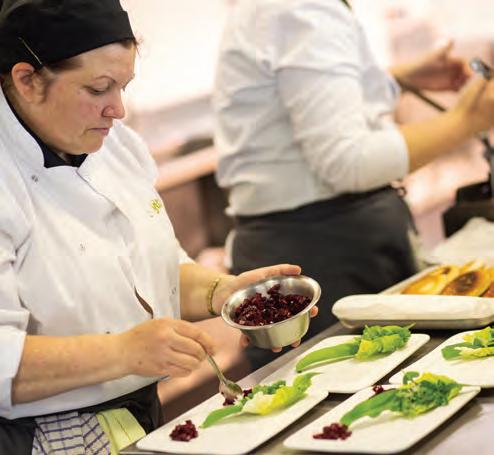

Clubs and societies are a great way to make new friends, try out something new or pursue your passion. With a huge range to choose from, we have something for everyone.
Mature applicants are required to be over 23 on January 1st of the calendar year of application. For more information on entry requirements please go to page 313.
Not all students will take the same path, but we believe all students can reach the same destination. Each year we welcome lots of new students to ATU based on their Further Education and PLC awards. We fully support them on their academic journey which will ultimately lead to their dream career.
Many students do not qualify for a university degree based on their Leaving Cert results. An award from a Further Education and Training (FET) or Post-Leaving Certificate (PLC) course can often be the perfect stepping-stone to securing a university place.
Applicants must present a full major award at QQI Level 5 or higher for entry into year one. Applicants with awards at QQI Level 6 may be considered for advanced entry into year two. For more information, please go to page 309.
A quota of places in ATU programmes is reserved annually for QQI accredited applicants to ensure that they are fairly represented in our student numbers. Offers are issued in Round Zero which is usually in early August.
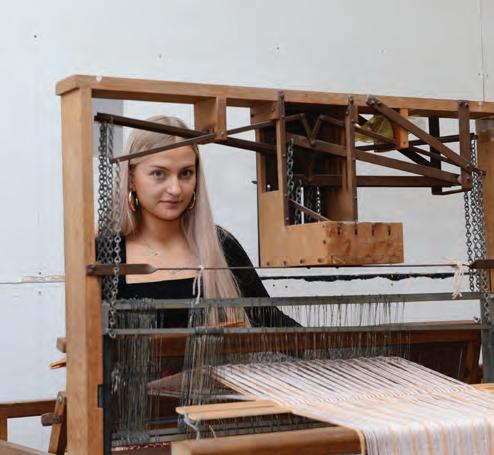
Our welcoming environment, supportive lecturers and staff, and range of student supports will help make the transition to university life an easy one.
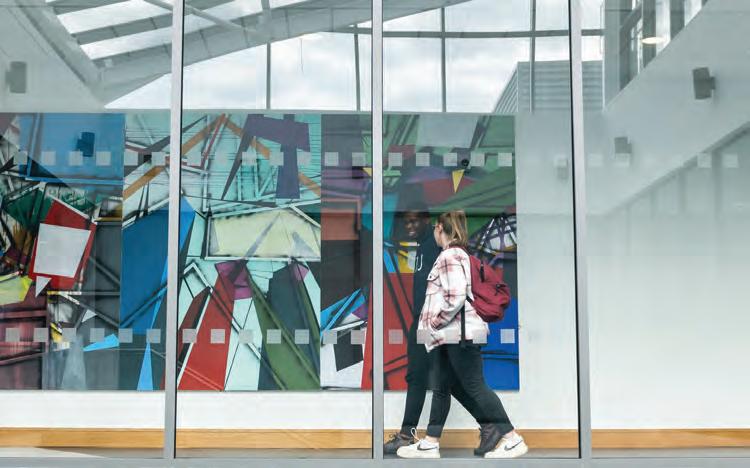
At €3000 per year, the student contribution fee is significantly less than in Northern Ireland and the UK. Based on July 2022 exchange rates, fees in Ireland are at least 79% cheaper than in Northern Ireland and the UK.
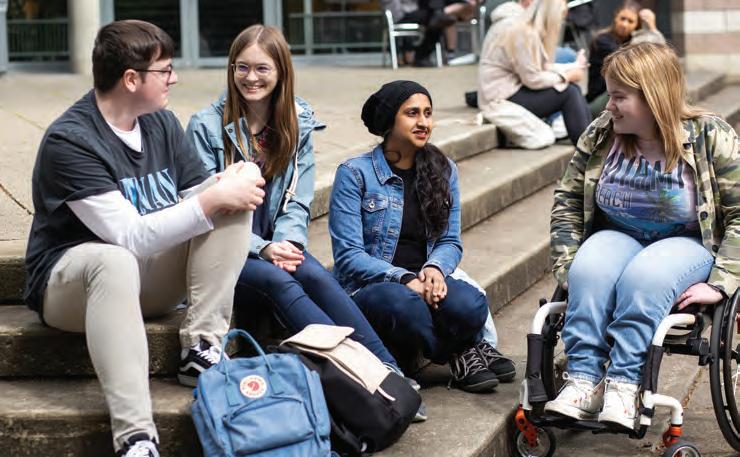
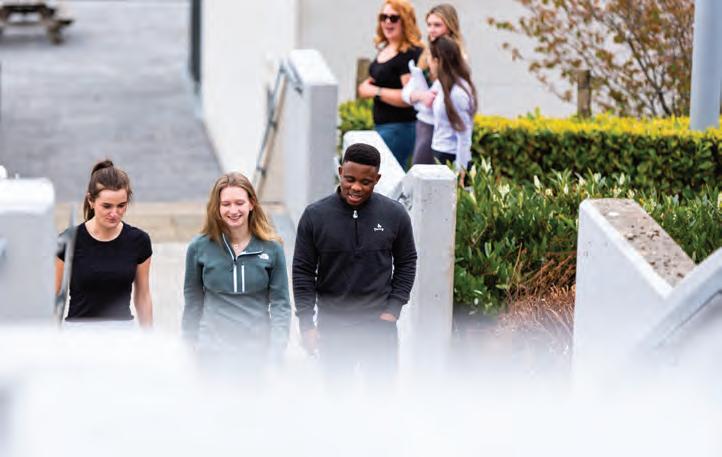
Northern Irish students can apply for a fee grant through Ireland’s awarding authority, SUSI (Student Universal Support Ireland). Unlike student loans, fee grants do not have to be paid back. For more information see www.susi.ie
Students can apply to the Student Loans Company for a studentcontribution loan. Students may also be entitled to a maintenance loan which will help with living costs. For more information see www.studentfinanceni.co.uk
CAO applications open on November 5th. The application process is very straight forward with no personal statement required. For more information or to apply visit www.cao.ie
To view our entry requirements and how the points system works, please go to page 309. You will also find contact details here should you have any questions.
Each year we are proud to welcome a new cohort of Northern Irish students. With a top-class education guaranteed, a simple application process and all the financial benefits that come along with it, more and more Northern Irish students are choosing to study at ATU.
Iarrthóirí Idirnáisiúnta
Our campuses attract students from right across the globe. We pride ourselves on being friendly and welcoming, so asking questions and meeting new people could not be easier.
From your first day through to graduation, we will make you feel welcome and part of the ATU family. Our campuses cover much of the Wild Atlantic Way, which means you can look forward to stunning landscapes, breath-taking views and exciting outdoor adventures.
ATU is home to students from over 40 countries worldwide, giving us diverse and vibrant campuses. Throughout your studies you will meet students from different backgrounds and cultures, offering you new perspectives and inspiring new interests.

Our dedicated international offices will help with the admissions process and support you throughout your time in ATU. Please go to page 314 for our international offices contact information.
Joining an international society is a great way to make new friends. Throughout the year they arrange field trips, nights out and weekends away.
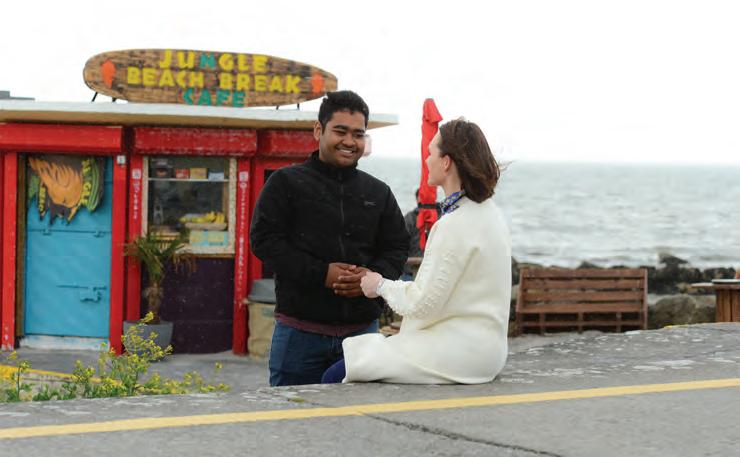
The quality of the experience at Atlantic TU is equally matched by the quality of the degree. From successful careers to exciting further studies, our graduates have taken their qualifications across the globe.

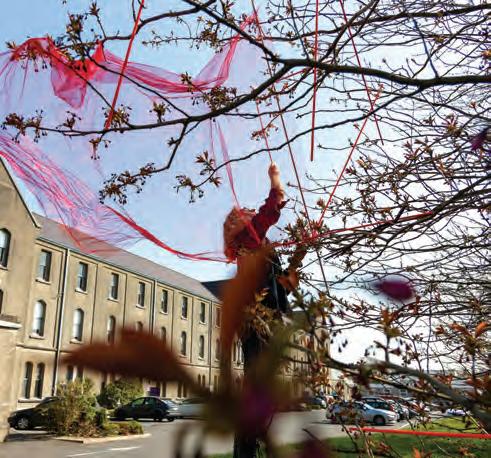

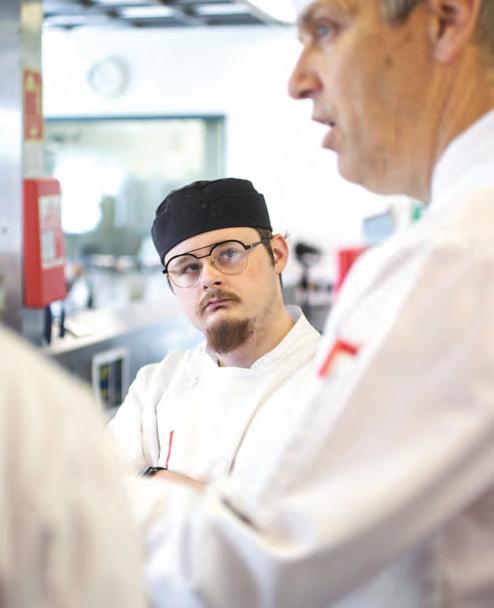
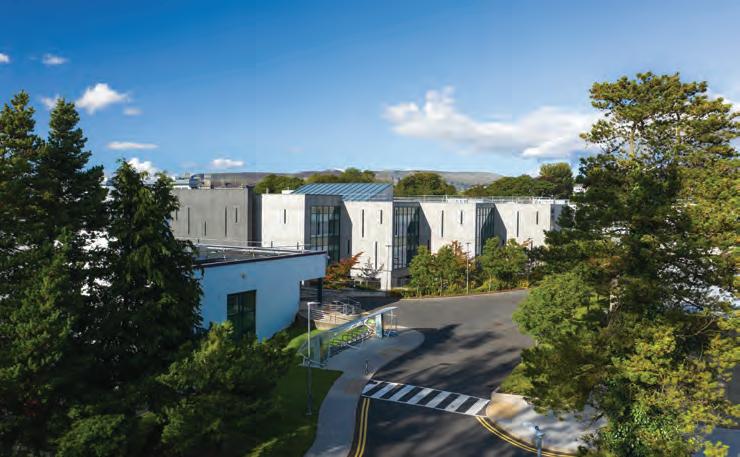

As a multi-campus university, Atlantic TU offers a diverse range of programmes. Students can follow their passion, find their career path and engage in a vibrant university community. With an emphasis on applied learning, small class sizes and a supportive environment, students get an unforgettable student experience and graduate career ready.
ATU Galway City 49 - 112
ATU Connemara 113 - 120
ATU Mayo 121 - 134
ATU Mountbellew 135 - 140
ATU Donegal 141 - 220
ATU Sligo 221 - 292
ATU Sligo St. Angela’s 293 - 304
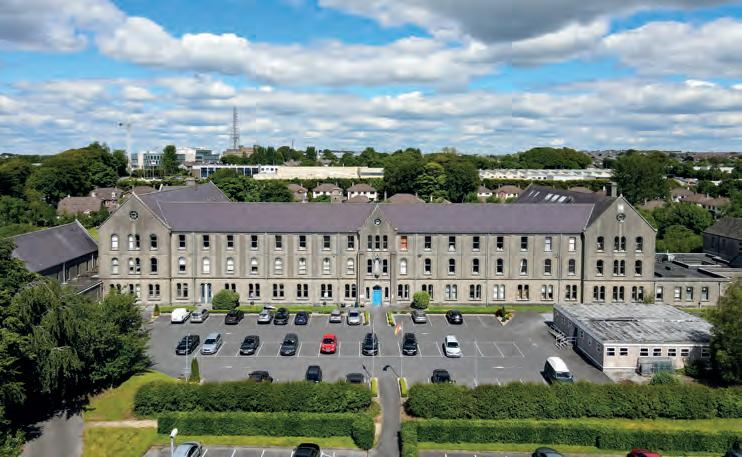
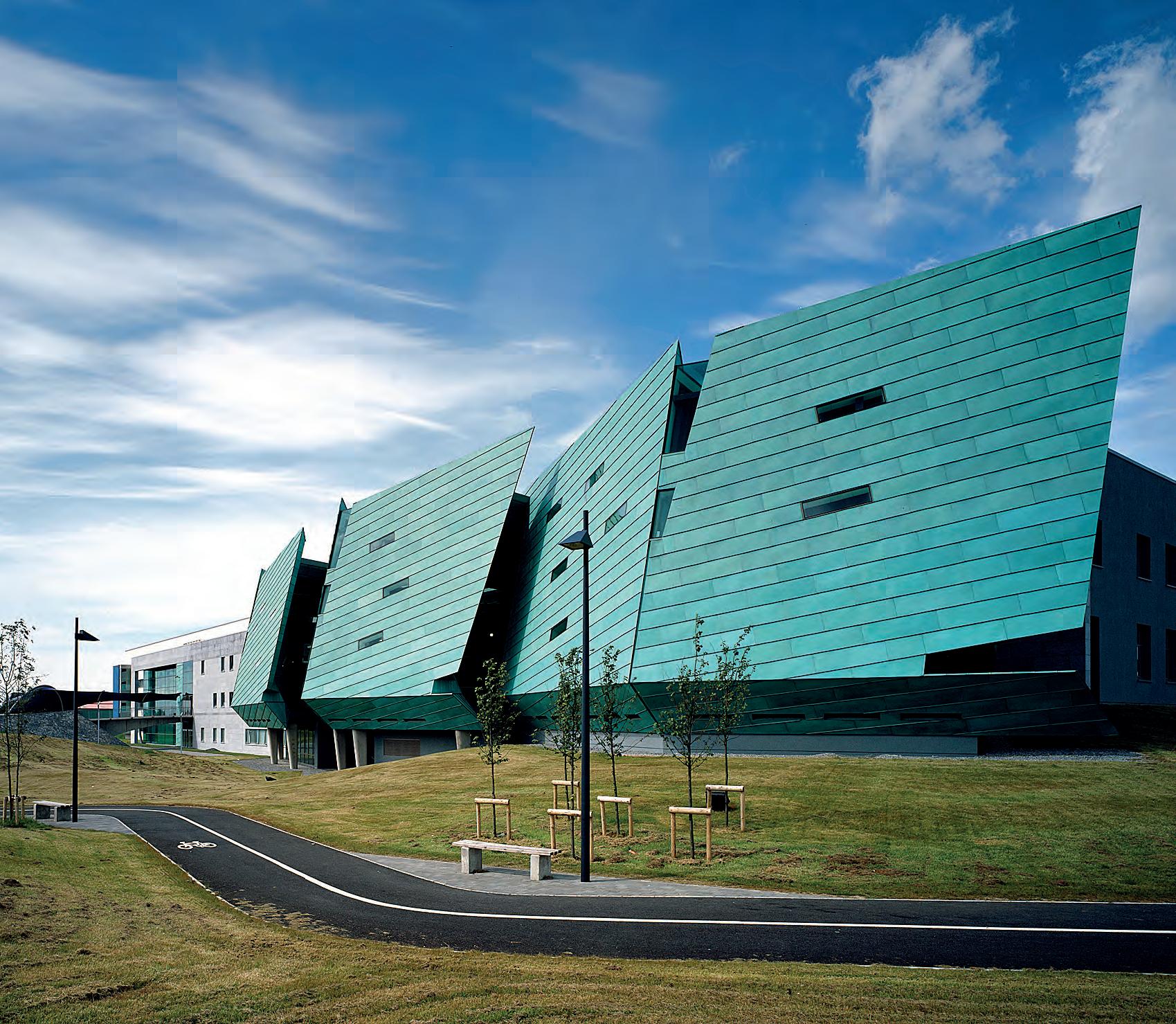 OTA Cathair na Gaillimhe
OTA Cathair na Gaillimhe
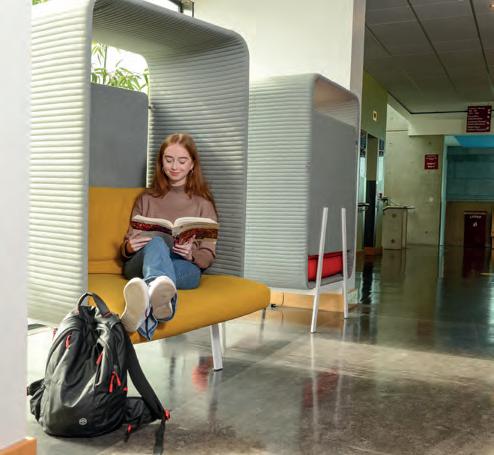
ATU Galway City is located on the east side of Galway city, with buildings on the Dublin Road and Wellpark Road. The Dublin Road building is one of Galway City’s iconic landmarks, due to the three distinctive sail-shaped copper panels at the front of the main building. Here students can study programmes in business, science, computing, engineering, culinary arts, hospitality and tourism.
The building on Wellpark Road is a hive of creative activity and is home to several creative enterprises. Programmes are offered in animation and game design, art, education, creative media and storytelling, design, film and documentary.
Students have access to state-of-the-art lecture theatres, labs, machine halls, robotic labs, training kitchens, restaurants and bars. Our Wellpark Road building has specialised creative spaces which include editing suites, green screen rooms, studio spaces, MAC and PC labs, VR rooms, a weave room, sculpture and ceramic workshops, textile workshops, a digital fabrication lab and a life drawing room. Our award-winning libraries provide quiet study spaces, free Wi-Fi, computing and printing facilities.
Located in our Dublin Road building, the IT Centre has 188 workstations, a fully equipped training room, a multimedia studio and technical support facilities.
Students are the focus of the learning experience and we empower them to be successful at third level and in their future careers. From day one, we offer a range of supports, which include a first five weeks programme, a learning and innovation skills module, a community engagement module and an employability resources toolkit.
ATU Galway City is home to research centres in the fields of heritage, marine and medical technologies. Our Innovation Hubs support new business start-ups. 60% of our postgraduate students avail of learning and networking opportunities at our iHubs facility, where they receive project support from enterprise partners.
Our programmes meet the highest standard leading to a creative, diverse and rewarding learning environment with a professional focus. Our highly respected academic staff foster an innovative approach that offers secure spaces to learn, share, collaborate and grow.
Galway
Galway City,
Galway City, Wellpark
ATU Galway City,
Galway City,
Galway City,
ATU Galway City offers undergraduate programmes across a wide range of disciplines, in addition to postgraduate, part-time and professional development programmes.
These programmes provide students with a broad-based education in business management. Students will study a variety of business management subjects and develop an understanding of the administrative, economic, legal, and social environment within which businesses operate. Lectures assist students to develop strong interpersonal skills during their time in college. These include: working as part of a team, management and leadership skills. Students have the option to apply to this programme at Level 6, Level 7 or Level 8 and progress from each level. The fourth year of the Honours degree incorporates practical projects which are aimed at cultivating students’ analytical, strategic, and critical thinking skills. This will prepare graduates to hit the ground running in today’s fast-changing business environment.
Business is a great degree choice due to the exciting and varied career options available to graduates. With a wide range of courses on offer at undergraduate and post-graduate level, business students at ATU Galway can embrace the flexibility a degree in Business offers, all while enjoying the vibrant student city of Galway.
2/3/4 Years
60 Places
Standard Entry Requirements
Erasmus+
285 (Level 8 2021)
252 (Level 7 2021)
168 (Level 6 2021)
Dr Noel Harvey Programme Chair noel.harvey@atu.ie
Deirdre Lusby Head of Department of Business and Accounting deirdre.lusby@atu.ie
Students successfully completing the Higher Certificate in Business can progress, through an internal progression route, to Year 3 of the Bachelor of Business (Level 7).
Upon successfully completing Year 3, students can then apply internally for Year 4, Bachelor of Business (Honours).
ATU Honours (Level 8) qualifications are recognised worldwide for postgraduate entry.
Business degrees at ATU Galway City are designed to have the flexibility to switch from one Business programme to another if a student changes their mind about what they want to study.
Business Level 6/7/8
Accounting Level 8
Digital Accounting Level 8
Business with Entrepreneurship Level 7/8
Business in Finance and Economics Level 7/8
Business Information Systems (BIS) Level 7/8
Business in Marketing and Sales Level 7/8
At ATU Galway, students are invited to discover the areas of business they are good at and enjoy most during the first part of their degree at ATU Galway City Campus.
Students can move between any of the following programmes up to halfway through their second year:
• Business
• Business in Marketing and Sales
• Business with Entrepreneurship
• Business Information Systems
• Business in Finance and Economics
Alternatively, students can move from the Accounting and Digital Accounting degree to any of the above degrees after one year.
Or move INTO the Accounting degrees from any of the above degrees after two years, provided specific Accounting subjects have been taken in Year 2.
Also, students can move BETWEEN Business Information Systems and any of the courses after Year 1.
Accountants are required by every business, providing expert business advice, and managing its economic activities and financial information. This programme offers a direct pathway into a full-time career in professional accounting, while also providing opportunities in a range of business careers, including financial services and management consulting.
The programme lecturers are highly qualified professional accountants with considerable lecturing experience. A significant number of them are examiners for professional accounting bodies and lecture on a variety of professional accounting programmes. Atlantic Technological University maintains close links with all of the professional bodies and industry. The programme is regularly updated in accordance with professional body and employer requirements.
This programme prepares students for employment in the professional accounting industry, including: accounting firms and financial services employers and multi-national companies. There are many different types of accounting roles including financial accounting, management accounting, auditing, and tax accounting. Today accountants play a strategic role within businesses.
ATU Level 8 qualifications are recognised worldwide for postgraduate entry. Most graduates will progress directly into the later stages of professional accountancy exams with professional bodies such as: ACCA, Chartered Accountants Ireland, CPA, CIMA or Irish Taxation Institute, while working as part of a structured traineeship with an employer.
This programme achieves the maximum available exemptions for an undergraduate accountancy degree in Ireland from the professional accountancy bodies.
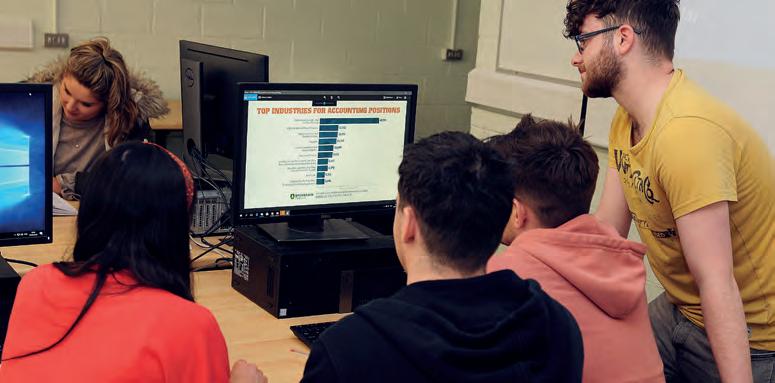

(Level 8 2021)
Deirdre Lusbyof Department of
and Accounting deirdre.lusby@atu.ie

4 Years
This four-year Level 8 programme offers a direct pathway into a full-time career in accounting, decision making, systems accounting, digital auditing, process design, business and data analytics, blockchain, system analysis programme development and application support. This programme is new, future proofed and the leader in this emerging area. The Bachelor of Science (Honours) in Digital Accounting will develop accounting graduates with traditional accounting competencies combined with applied digital technology skills, to ensure graduates have the required skillset to operate in the current and future business environment. The programme, which includes a work placement, gives graduates the knowledge, skills and competencies identified as critical and in short supply. Lecturers on this programme are highly qualified professional accountants and digital technology specialists with considerable lecturing experience, many acting as examiners and lecturers for the professional accounting bodies. They maintain very close links with all of the professional bodies, industry and employers.

Graduates of this programme will be able to continue their study and work experience to qualify as a professional accountant working in either industry or practice. They will be able to specialise as a management accountant and decision maker, as a systems accountant or work in digital auditing.
Exemptions are currently being negotiated with the professional bodies including:
• Chartered Institute of Management Accountants (CIMA)

• Chartered Accountants Ireland (CAI)

• Association of Chartered Certified Accountants (ACCA)
• Certified Public Accountants (CPA)
Applicants for this programme do not need to have previously studied accounting, business or honours maths.
30 Places
Deirdre Lusby
Head of Department of Business and Accounting, deirdre.lusby@atu.ie
Richie Hoare
Senior Lecturer in Accounting richie.hoare@atu.ie
Knowledge of information systems is vital to anyone who wants to work in or manage a business. This highly practical programme combines information technology with business subjects and prepares students to become skilled knowledge workers and information systems specialists for tomorrow’s dynamic and global businesses.
Numerous employment options exist in roles within the business and IT sectors. Students learn how to use the data generated by information systems in a business context, and to design, implement and maintain technologies including the Internet, mobile devices, enterprise systems, social media and cloud computing.
Graduates gain employment in diverse roles including business managers, IT / IS business analysts, data analysts, systems analysts, web developers, applications support and testing, cloud analyst, solutions architect or IT project managers.
Graduates have gained employment with both indigenous business and multinationals such as HP, SAP, Dell, Accenture, Metlife, Fidelity Ireland and many others.
Upon successfully completing Year 3, (Level 7) students can then apply internally for Year 4 (Level 8). ATU Level 8 qualifications are recognised worldwide for postgraduate entry.
The Level 8 degree programme is designed to meet the Teaching Council curricular subject requirements for business and information or communications technology/ computer studies depending on the electives chosen.
With a work placement in Year 3 students get a chance to try out their newfound skills in a professional working environment.
Standard
Erasmus+ 298 (Level 8 2021) 253 (Level 7 2021)
Department of Enterprise andTechnology
business.galwaymayo@atu.ie
Business degrees at ATU Galway City are designed to have the flexibility to switch from one Business programme to another if a student changes their mind about what they want to study. Please review graphic and information on page 52 for further detail.
3/4 Years
These degrees will develop students’ creativity and business analytics skills so that they can work as an entrepreneur in their own business or work within existing businesses in an innovative way. These programmes will give students a solid grounding in business while strengthening their entrepreneurial knowledge, competence, know-how and skills. Entrepreneurs need to be able to communicate their vision, listen to input from others, sell their vision to employees/partners/investors, build teams, and motivate employees. Having developed key skills in innovation, entrepreneurship, and business, graduates are well placed to develop a rewarding career at home or abroad.
These programmes are designed in collaboration with businesses and with Enterprise Ireland making it highly applied and focussed. The programme is for students who wish to have the option to work as a dynamic entrepreneur in their own business or to work as an innovative business executive in enterprise.
The small class sizes facilitates group work, project work and the development of practical and digital skills, ensuring an excellent career path in business or enterprise. Students have the opportunity to pursue their own enterprise interests through work placement opportunities in Year 4. This programme affords students greater flexibility and control over their own development requirements. Much of Year 4 will be delivered off-campus with a number of Year 4 innovative modules planned for online delivery.
Graduates can create their own employment in a start-up business of their own or build a career as an impactful and innovative executive in business and enterprise. Graduate careers may include working as a start-up business owner, business manager, business development officer, inventor, business consultant or manager of innovation and change. To qualify as a business teacher, graduates will need to complete a two-year Professional Masters in Education (PME).
Level 7 graduates may apply internally for Year 4 of the Level 8 programme. ATU Honours (Level 8) qualifications are recognised worldwide for postgraduate entry.
Applicants for this programme are not required to have previously studied entrepreneurship, accounting, finance, economics or business.
Work Placement
60 Places 287 (Level 8 2021) 278 (Level 7 2021)
John Byrne Programme Chair john.byrne@atu.ie
Business degrees at ATU Galway City are designed to have the flexibility to switch from one Business programme to another if a student changes their mind about what they want to study. Please review graphic and information on page 52 for further detail.
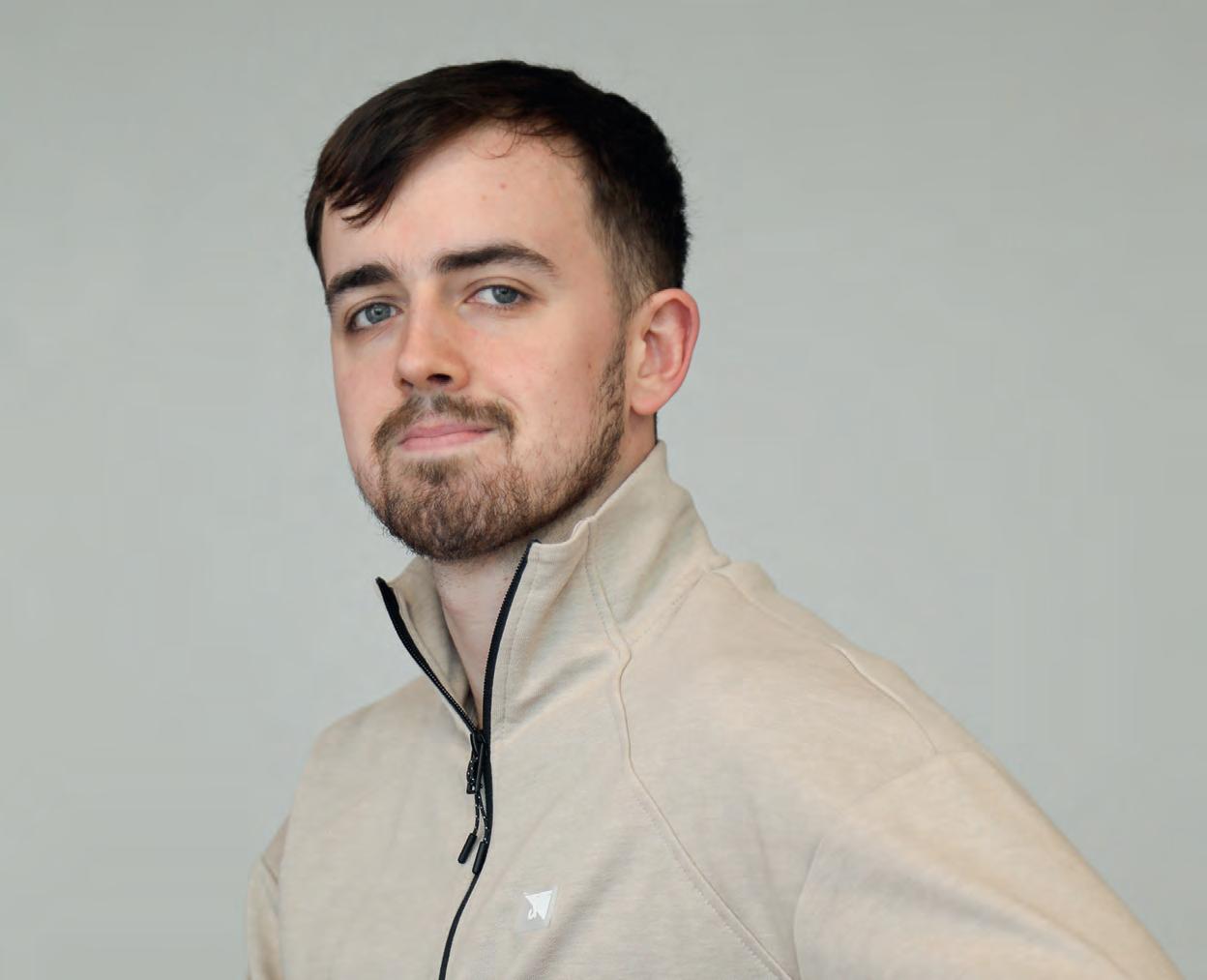
This degree provided me with an amazing range of competencies within business, from human resources to supply chain management to information systems. The focus on project work, alongside the use of smaller classes, allowed me to really have an understanding of each concept and how it might be applied to a real business, rather than just purely learning off the theory.
Having a good knowledge of so many different business functions, alongside experience with practical application, has been a huge advantage for me as I assisted the students of the University as a Graduate Student Mentor for several months before starting my current role. Since leaving ATU Galway I am now working as an Accounts Administrator for Smyth’s Toys Superstore, which I am really enjoying and will no doubt be invaluable experience if I decide to embark on my own business ventures in the future.
3/4
These degrees are for students interested in studying subjects such as business finance and decisionmaking, the principles of investment and the analysis of bonds and shares in an economic context.
Lecturers on this degree are highly qualified and experienced financiers and economists and designed the programmes in collaboration with business leaders. The semester-long business placement in Year 3 boosts students’ employability and helps to identify which specific career path suits them.
This degree offers a direct pathway into a full-time career in financial services or in the economics profession. This degree is for students who would like to:
• Focus on a career in the financial services industry
• Avail of work placement in Year 3
• Change of mind option – Students can switch to another degree (Marketing, Entrepreneurship, Accounting or General Business) up until the end of second year
This programme facilitates the completion of Qualified Financial Advisor and Investment Foundation exams for accreditation.
Graduates with Finance, Economics and Big Data skills are in high demand here in Ireland and overseas.
Graduates develop rewarding careers in the private, community, voluntary and public sectors, including working in the financial services sector, contributing to guiding an established enterprise, working in an executive position in business or industry and working in traditional business roles.
Upon successfully completing Year 3, Level 7 students can graduate with a BBs in Finance or apply internally for Year 4 Level 8 to graduate with a BBs (Hons) in Finance and Economics. ATU Honours (Level 8) qualifications are recognised worldwide for postgraduate entry.
This degree was designed around the following professional qualifications:
• Level 7 Qualified Financial Advisor (QFA) accredited by the Institute of Banking
Work
318 (Level 8 2021)
(Level 7 2021)
Marie Finnegan Programme Chair marie.finnegan@atu.ie
• Level 7 CFA Institute Investment Foundations Program run by the CFA (Chartered Financial Analyst) Institute
On completion of this Level 8 degree, graduates can sit these two qualifications based on the core content mastered in their degree programme. This gives graduates a unique selling point when marketing themselves for their ideal job.
Business degrees at ATU Galway City are designed to have the flexibility to switch from one Business programme to another if a student changes their mind about what they want to study. Please review graphic and information on page 52 for further detail.
Prior knowledge of business, accounting, economics or entrepreneurship is not needed to complete this programme.
3/4 Years
These degrees have been developed in collaboration with business and marketing experts and aims to develop creative talent, and numerous skills including research skills, digital skills, data analysis, ethical practice, and strategic thinking. These programmes prepares students for exciting careers as marketing and sales professionals in the digital age. Our strong links with industry give students access to expert guest speakers and opportunities to participate in real-world projects.
Designed in collaboration with business and industry, this degree will develop students’ creativity through practical project work, group work and continuous assessment and numerous other skills leading to an exciting marketing or management career. This programme is for students with an interest in digital business, social media marketing, market research and buyer behaviour.
Graduates apply their creative talent and skills through marketing and sales, to ensure the success of businesses and organizations, developing exciting and rewarding careers in areas such as marketing management, selling and sales management, brand management, international marketing management, marketing communications, digital and online marketing and business analyst.
Upon successfully completing Year 3, (Level 7) students can then apply internally for Year 4 (Level 8). ATU Honours (Level 8) qualifications are recognised worldwide for postgraduate entry.
On completion of this programme, graduates have the opportunity to become a graduate member of the Marketing Institute by taking the Qualified Marketer Exam.
The industrial placement in Year 3 helps to boost employability. The small class size facilitates group work, project work and the development of practical and digital skills.
60 Places
Work Placement
Erasmus+
300 (Level 8 2021)
278 (Level 7 2021)
Lorna Moynihan Programme Chair lorna.moynihan@atu.ie
Business degrees at ATU Galway City are designed to have the flexibility to switch from one Business programme to another if a student changes their mind about what they want to study. Please review graphic and information on page 52 for further detail.
My name is Maya Joseph and I came to Ireland from the sunny Island of Barbados. I’m currently studying the BA (Hons) in Gastronomy Science and Food Innovation. What I enjoy most about the course is the variety of modules that we get to take. They have really broadened my career options and prepared me for so many different areas of the food industry. I also love the small class size; it allows us to communicate directly with our lecturers.
Student life is really relaxed here at ATU Galway. Because of the smaller campus size, students get an opportunity to engage directly with the supports available and be a part of some great clubs and societies on campus.
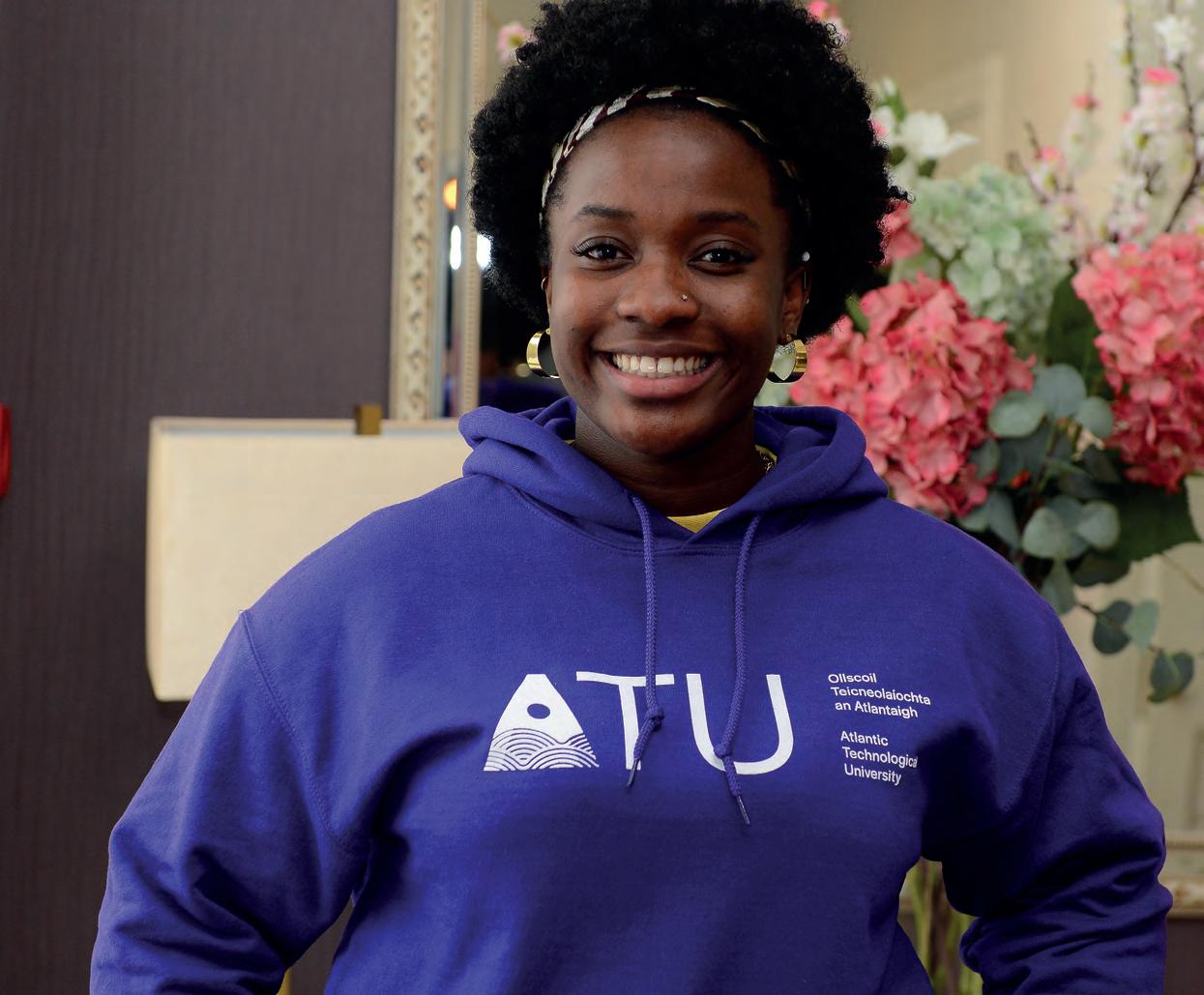 Maya Joseph
BA (Hons) in Gastronomy Science and Food Innovation
Maya Joseph
BA (Hons) in Gastronomy Science and Food Innovation
Our aim is to nurture, mentor and produce Ireland’s leading culinary graduates. These programmes are designed for students who are interested in shaping the future of food. Students will develop an understanding and appreciation for gastronomy, the importance of sourcing ethical food, respecting local ingredients and traditions whilst embracing contemporary food trends as well as the science associated with ingredients and food production. We will assist students to develop transversal skills such as communication skills, teamwork, leadership, and entrepreneurship in an immersive learning environment which includes industry guest lecturers and field trips.
New Culinary and Food Business Management Programmes to be announced in January 2023, see www.atu.ie for more details.
The culinary programmes have been re-designed to reflect industry trends, modern-day technology and to ensure that students are equipped with the necessary skills and knowledge required to pursue a successful career in the broader food industry. Sustainability principles have been embedded within our programmes as a core ethos, in response to our obligations to address climate action issues.
Students will experience a broad range of practical and academic modules to enhance their employability skills across the broader food industry which offers an extensive range of exciting career opportunities. The integrated work placements in Year 1 and 3 enable students to develop skills and experience relevant to their chosen pathway.
64 Places
Work Placement
Erasmus+
235 (Level 8 2021) 160 (Level 7 2021)
Galway International Hotel School Office
gihs.galwaymayo@atu.ie
Graduates will have excellent employment opportunities, in all aspects of the food industry in Ireland and internationally. They will find work in food compliance and safety, food styling, food enterprise development, food production management, food manufacturing and postgraduate research.
Students who successfully complete Year 3 will graduate with a Level 7 programme, Bachelor of Arts in Gastronomy Science and Food Innovation. After which, successful students can apply for Year 4 of the Level 8 to gain a Bachelor of Business (Honours) in Gastronomy Science and Food Innovation.
ATU Level 8 qualifications are recognised worldwide for postgraduate entry.
Field trips are at the core of the teaching on the programme and are attached to many modules to enhance the application of the learning. Students will engage in a variety of field trips, both at home and abroad.
Field trip destinations include local and nationally profiled restaurants of best practice, Michelin-recommended restaurants, food tours, breweries, farms and food producer visits and Bia Innovator campus. The international study tour destinations (Year 4), vary each year and students will have the opportunity to visit a gastronomic destination of renown.
A common entry route will be available in 2023/24. See atu.ie for details programmes.
The Higher Certificate in Culinary Arts-Professional Chef Program provides students with the key skills, knowledge and competencies required to work as chefs in a professional kitchen. This programmes is designed for students who are interested in shaping the future of food under the nurture and mentorship of our highly skilled team.
This programme will provide the learners with both theoretical knowledge and specialised culinary skills, developed through the acquisition of creative and technical competencies, all within a realistic learning environment.
Students will develop an understanding and appreciation for gastronomy, the importance of sourcing ethical food, respecting local ingredients and traditions whilst embracing contemporary food trends.
2 Years
32 Places
Work Placement
Erasmus+
181 (Level 6 2021)
Galway International Hotel School Office gihs.galwaymayo@atu.ie
The culinary programmes have been re-designed to reflect industry trends, modern-day technology and to ensure that students are equipped with the necessary skills and knowledge required to pursue a successful career in the broader food industry. Sustainability principles have been embedded within our programmes as a core ethos, in response to our obligations to address climate action issues. Students will experience a broad range of practical and academic modules to enhance their employability skills across the broader food industry which offers an extensive range of exciting career opportunities. The integrated work placement in Year 1 enables students to develop skills and experience relevant to their chosen pathway.
Graduates will have excellent employment opportunities, in all aspects of the food industry in Ireland and internationally.
Graduates can be employed as Commis-Chef, Chef de Partie and Sous-Chef and, with relevant experience, may become Head Chef in a hotel kitchen or in a restaurant.
Successful Level 6 students will graduate with a Higher Certificate in Culinary Arts Professional Chef Programme. They may apply internally for Year 3 of the Level 7 programme, Bachelor of Arts in Gastronomy Science and Food Innovation. Level 7 graduates may apply internally for Year 4 of the Level 8 programme, Bachelor of Arts (Honours) in Gastronomy Science and Food Innovation. ATU Level 8 qualifications are recognised worldwide for postgraduate entry.
Field trips are at the core of the teaching on the programme and are attached to many modules to enhance the application of the learning. Students will engage in a variety of field trips, both at home and abroad.
Field trip destinations include local and nationally profiled restaurants of best practice, Michelin-recommended restaurants, food tours, breweries, farms and food producer visits and Bia Innovator campus.
New Culinary and Food Business Management Programmes to be announced in January 2023, see www.atu.ie for more details.
A common entry route will be available in 2023/24. See atu.ie for details
The tourism programmes at ATU Galway are designed to equip students with the necessary skills, knowledge and experience to pursue a successful career in management and business in both the domestic and international tourism industry.
The integrated work placements in Year 1 and Year 2 enable students to develop skills and experience at both operational and supervisory management levels, thus experiencing first-hand the challenges, demands and rewards of working in this exciting and ever-changing industry.
The inclusion of the Fáilte Ireland Certified Regional and National Guiding Certificates greatly enhance the employability of graduates of the programmes. In addition, students will learn to use the Galileo international travel booking system, used by tour operators all over the world.
Fáilte Ireland Graduate
centres, festival and event management
operations in Ireland and overseas.
Many graduates also set up and run their own successful tourism
as the course provides a foundation for the development of entrepreneurial activities.
Students who successfully complete Year 3 will graduate with a Level 7 Bachelor of Business in International Travel and Tourism Management. After which, successful students can apply internally for Year 4 of the Level 8 to gain a Bachelor of Business (Honours) in International Travel and Tourism Management. ATU Level 8 qualifications are recognised worldwide for postgraduate entry.
Field trips are at the core of the teaching on the programme and are attached to a variety of modules to enhance the application of the learning. Students will engage in a variety of field trips, both at home and abroad.
Field trip destinations include Inis Mór on the Aran Islands, Connemara and Oughterard Heritage Walk, Walking and food tour of Galway city, Dublin to locations such as the Guinness Storehouse, Jameson Distillery and Airbnb.
252 (Level 8 2021)
(Level 7 2021)
Galway International Hotel
gihs.galwaymayo@atu.ie
Other tours include the walking Tour of Limerick and King John’s Castle, Clonmacnoise, Lough Boora, and Newgrange, the Burren and the Cliffs of Moher. International study tour destinations in Year 4 vary each year and have included Lisbon, Rome, Switzerland, and Berlin.
Fáilte Ireland National Guiding Certificate following successful completion of Year 3 of the Level 7 or 8 programme. Fáilte Ireland Rural Guiding Certificate following successful completion of Year 2 of the Level 6, 7 and 8 programmes.

The travel and tourism industry is an exciting and varied industry with many opportunities - both home and abroad. This award prepares students for many of the business roles available in the sector. Students will develop skills appropriate at both operational and supervisory levels. Students on this programme can expect to participate on a significant number of field trips which will support University-based learning activities.
The integrated work placements in Year 1 and Year 2 enable students to develop their skills and experience. Students experience first-hand the challenges, demands and rewards of working in this exciting and ever-changing industry.
The inclusion of the Fáilte Ireland Certified Rural Guiding Certificate greatly enhances the employability of graduates of the programmes. In addition, students will learn to use the Galileo international travel booking system, used by tour operators all over the world.

Year
•
•
•
•
Upon completion of this programme you will be capable of undertaking a wide range of roles within the tourism industry, both at home and abroad. The programme will also provide a foundation for the development of entrepreneurial activities. The inclusion of modern European languages will also aid students’ mobility within the European Union and further afield.
Students who successfully complete Year 2 will graduate with a Level 6 Higher Certificate in Business in Travel and Tourism Operations. They can then apply internally for Year 3 of the Level 7 Bachelor of Business in International Travel and Tourism Management. After which, successful students can apply for Year 4 of the Level 8 to gain a Bachelor of Business (Honours) in International Travel and Tourism Management. ATU Level 8 qualifications are recognised worldwide for postgraduate entry.
Field trips are at the core of the teaching on the programme and are attached to a variety of modules to enhance the application of the learning. Students will engage in a variety of field trips, both at home and abroad.
Field trip destinations include Inis Mór on the Aran Islands, Connemara and Oughterard Heritage Walk, Walking and food tour of Galway city, Dublin to locations such as the Guinness Storehouse, Jameson Distillery and Airbnb. Other tours include the walking Tour of Limerick andKing John’s Castle, Clonmacnoise, Lough Boora, and Newgrange, the Burren and the Cliffs of Moher.
2 Years
25 Places
Work Placement
Erasmus+
171 (Level 6 2021)
Galway International Hotel School Office gihs.galwaymayo@atu.ie
Following the successful completion of Year 1, students on this programme may choose to transfer to other programmes within the same discipline. Event Management with Public Relations or International Hotel and Hospitality Management are two examples. The student would transfer at the same level and may need to take a ‘bridging module’ in year two in lieu of the elective choices. See the website for full details.
Fáilte Ireland Rural Guiding Certificate following successful completion of Year 2 of the Level 6.
3/4 Years
The Event Management with Public Relations programmes are designed to equip students with the necessary skills, knowledge and experience to pursue a successful career in management and business in both the domestic and international event management industry.
The aim is to provide relevant, professional education for students on all aspects of the planning, marketing and management of events and public relations programmes in this multifaceted industry.
The integrated work placements in Year 3 enable students to develop skills and experience at operational and supervisory management levels, thus experiencing first-hand the challenges, demands and rewards of working in this exciting and ever-changing industry.
Graduates can expect to find employment in a variety of event, PR and entertainment enterprises including conference and convention centres, charitable non-profit organisations, national and regional tourism organisations, hotels, public relations firms, event management agencies, sports and leisure centres, community development organisations, arts and music festivals, multinational companies and public sector organisations.
Students who successfully complete Year 3 will graduate with a Level 7 Bachelor of Business in Event Management with Public Relations. After which, successful students can apply for Year 4 of the Level 8 to gain a Bachelor of Business (Honours) in Event Management with Public Relations.
ATU Level 8 qualifications are recognised worldwide for postgraduate entry.
Field trips and regular events are at the core of the teaching on the programme and are attached to a variety of modules to enhance the application of the learning. Students will engage in a variety of field trips and events, both at home and abroad such as Galway International Arts Festival, Connacht Rugby, Aviva Stadium, Croke Park, Ploughing Championships, Dublin to locations such as the Guinness Storehouse, Jameson Distillery and Airbnb.
50 Places
Work Placement
Erasmus+
230 (Level 8 2021) 216 (Level 7 2021)
Galway International Hotel School Office gihs.galwaymayo@atu.ie
International study tour destinations (Year 4) vary each year and have included Lisbon, Rome, Switzerland, and Berlin.
Following the successful completion of Year 1, students on this programme may choose to transfer to other programmes within the same discipline. International Hotel and Hospitality Management or International Travel and Tourism Management are two examples. The student would transfer at the same level and may need to take a ‘bridging module’ in year two in lieu of the elective choices. See the website for full details.
This programme provides an excellent introduction to the world of Event Management with Public Relations. Equipping students with the necessary skills, knowledge and experience to pursue a successful career in the event management industry.
The aim is to provide relevant, professional education for students on aspects of the planning, marketing and management of events and public relations programmes in this multifaceted industry.
The integrated work placement at the end of Year 2 and into Year 3 enables students to develop skills and experience at operational and supervisory management levels, thus experiencing first-hand the challenges, demands and rewards of working in this exciting and ever-changing industry.
Field trips and regular events are at the core of the teaching on the programme and are attached to a variety of modules to enhance the application of the learning. Students will engage in a variety of field trips and events, both at home and abroad such as Galway International Arts Festival, Connacht Rugby, Aviva Stadium, Croke Park, Ploughing Championships, Dublin to locations such as the Guinness Storehouse, Jameson Distillery and Airbnb.
Graduates can expect to find employment in a variety of event, PR and entertainment enterprises including conference and convention centres, charitable non-profit organisations, national and regional tourism organisations, hotels, public relations firms, event management agencies, sports and leisure centres, community development organisations, arts and music festivals, multinational companies and public sector organisations.
Following successfully completing Year 2, Level 6 students graduate with a Higher Certificate in Business in Event Operations with Public Relations. They can then apply internally for Year 3 of the Level 7 Bachelor of Business in Event Management with Public Relations. After which, successful students can apply for Year 4 of the Level 8 to gain a Bachelor of Business (Honours) in Event Management with Public Relations.
ATU Level 8 qualifications are recognised worldwide for postgraduate entry.
2 Years
25 Places
Work Placement
Erasmus+
NEW Programme
Galway International Hotel School Office gihs.galwaymayo@atu.ie
Following the successful completion of Year 1, students on this programme may choose to transfer to other programmes within the same discipline. International Hotel and Hospitality Management or International Travel and Tourism Management are two examples. The student would transfer at the same level and may need to take a ‘bridging module’ in year two in lieu of the elective choices. See the website for full details.
The Heritage programmes are designed to equip students with the necessary skills, knowledge and experience to pursue a successful career in the heritage sector and academia.
This learning experience is particularly appropriate for students wishing to acquire a broader knowledge and understanding of the built, cultural and natural heritage of Ireland, Europe and the wider world.
The focus is applied and interdisciplinary in nature – linking heritage with history, geography, archaeology, tourism, genealogy, museum studies, folklore, literature, planning, computing, digital media, business and languages.
Students learn through a combination of lectures, tutorials, field studies, active learning, class discussions, film viewings, practical learning in computer and language labs, and online learning. There is also a strong emphasis on offsite teaching, with field trips to heritage sites, museums and interpretative centres.
3/4 Years
50 Places
Work Placement
Erasmus+
252 (Level 8 2021) 174 (Level 7 2021)
Joint Programme Chairs: Dr Mark Mc Carthy mark.mccarthy@atu.ie John Tunney john.tunney@atu.ie
There are a variety of employment opportunities available to graduates. They may find work in arts administration, antiques and collectables, archaeology, archives, business, NGOs, civil service, community development, conservation, environmental consultancies, genealogical companies, GIS, heritage centres and agencies, lecturing and many other sectors.
Students who successfully complete Year 3 will graduate with a Level 7 Bachelor of Arts in Heritage. They can then apply internally for Year 4 of the Level 8 Bachelor of Business in International Hotel and Hospitality Management. After which, successful students can apply for Year 4 of the Level 8 to gain a Bachelor of Arts (Honours) in Heritage. ATU Level 8 qualifications are recognised worldwide for postgraduate entry.
Level 8 graduates are eligible to apply for progression to the Professional Master of Education (Secondary School/ Post Primary Teacher Training), on completion of which they are qualified to teach Environmental and Social Studies to Junior Certificate and History to Leaving Certificate level.
Graduates are also eligible to apply for entry to the Professional Master of Education (Primary Teaching), to qualify as a primary teacher.
Students choosing the Guiding electives can be certified with the Fáilte Ireland Regional and National Guiding Certificate following successful completion of Year 3 of the Level 7 or 8 programme.

The Hotel suite of programmes are designed to equip students with the necessary skills, knowledge and experience to pursue a successful career in management and business in both the domestic and international hotel and hospitality industry.
Teaching is delivered through a range of practical and academic learning styles to maximise the student learning experience.
The integrated work placements in Year 1 and Year 2 enable students to develop skills and experience at both operational and supervisory management levels, thus experience first-hand the challenges, demands and rewards of working in this exciting and ever-changing industry.
Field trips are at the core of the teaching on the programme and are attached to a variety of modules to enhance the application of the learning. Students will engage in a variety of field trips, both at home and abroad.
Field Trip
(Level 8 2021)
(Level 7 2021)
Galway International Hotel
Office gihs.galwaymayo@atu.ie
• Ashford Castle
• Adare Manor
• Variety of award-winning restaurants
• Dublin – Guinness Storehouse, Jameson Distillery, Airbnb, etc.
• International Study Tour Destinations (Year 4) vary each year and have included Lisbon, Rome, Switzerland, and Berlin.
Graduates will have excellent employment opportunities, in all aspects of the hospitality and tourism industry at home and abroad.
Alternatively, graduates may specialise in specific areas such as marketing, finance, human resources, operations management to name but a few within the service industries.
Students who successfully complete Year 3 will graduate with a Level 7 Bachelor of Business in International Hotel and Hospitality Management. After which, successful students can apply for Year 4 of the Level 8 to gain a Bachelor of Business (Honours) in International Hotel and Hospitality Management.
ATU Level 8 qualifications are recognised worldwide for postgraduate entry.
Following the successful completion of Year 1, students on this programme may choose to transfer to other programmes within the same discipline. Event Management with Public Relations or International Travel and Tourism Management are two examples. The student would transfer at the same level and may need to take a ‘bridging module’ in year two in lieu of the elective choices. See the website for full details.
My name is Timea Jurčova from Slovakia. I moved to Galway in September to start my studies as a student of ATU Galway City studying Heritage.
What attracted me to the degree was the variety of modules we get to explore. I’m really enjoying studying Irelands linguistic tradition at the moment as well as Irish and European History. A key component of the programme is going on field trips, which are informative and help to place our studies in context. Student life at ATU Galway is enjoyable and have found joining the many clubs and societies is a great way to make new friends. Next year I look forward to studying Archaeology as part of my degree.
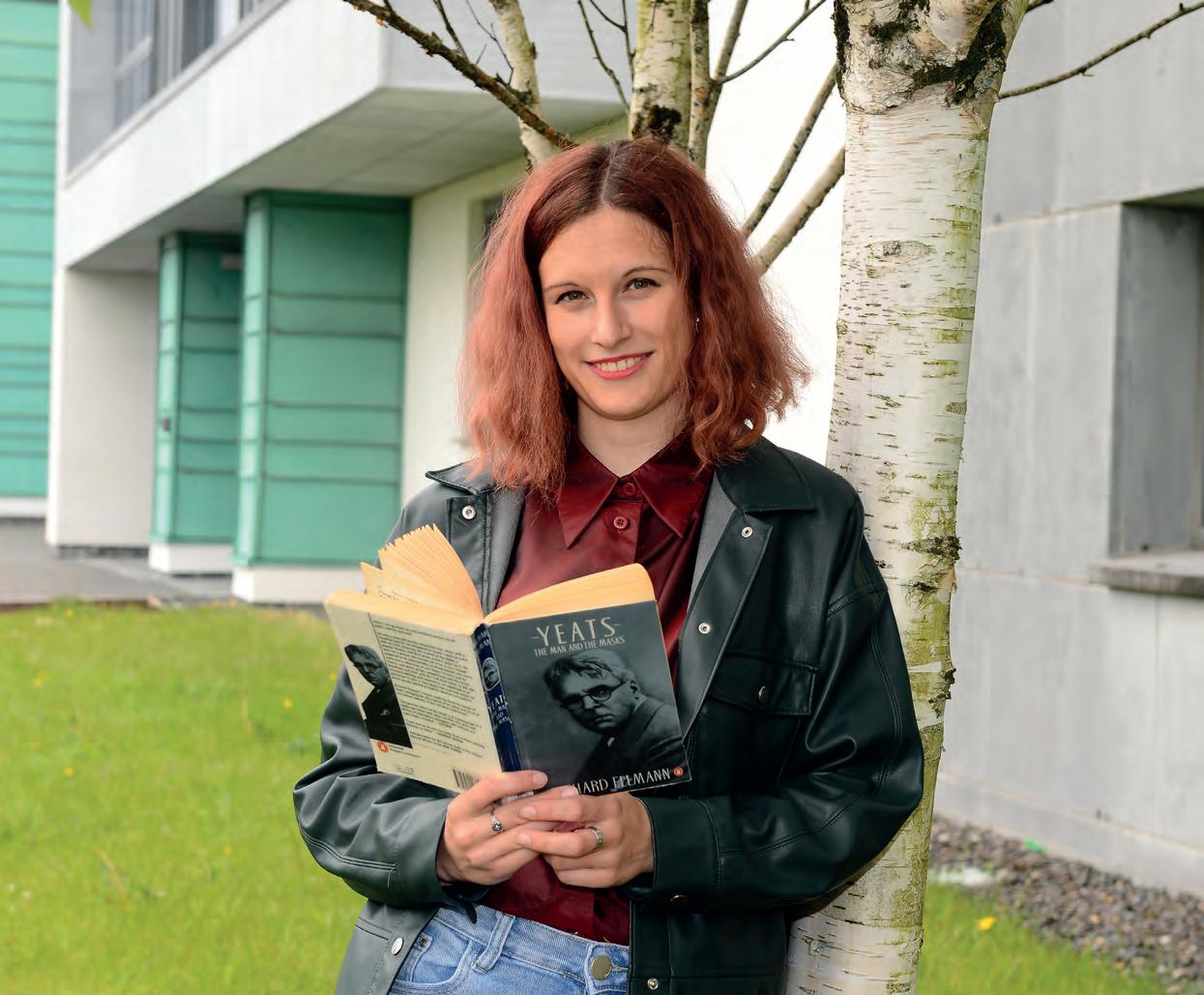 Timea Jurčova
Timea Jurčova
An architectural technologist is a highly skilled technical design professional. This Royal Institute of the Architects of Ireland accredited programme delivers a practical, applied learning experience, encouraging a strong work ethic in all years. We use a studio environment to deliver the practical modules using 2D and 3D modelling to arrive at sustainable design solutions.
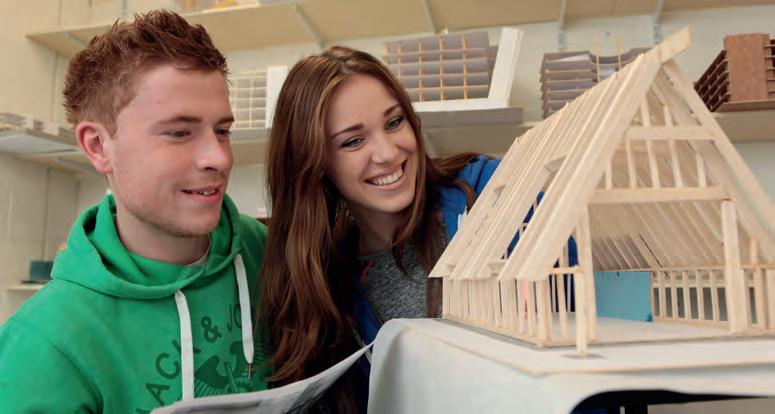
Student learning is delivered through studio project work to develop the student’s ability to problem-solve. The projects increase in technical complexity as the programme progresses, culminating in the research and analysis of the adaptation and upgrade of existing buildings in the final year.
Year
•
Year
•
Year
•
Year
(Level
Emer Maughan
Chair
Students will take part in a semester-long placement in Year 3.
This programme responds to the rapidly developing technical environment of architecture worldwide, developing strong analytical and research skills. It equips learners with a strong, flexible and adaptable skill set which is suited to a variety of careers in architectural private practices, industry, research, design and consulting teams or academia.
Graduates are in high demand in the Architectural Technology profession in Ireland and worldwide. The professional body accreditation of the Royal Institute of the Architects of Ireland (RIAI) and the Chartered Institute of Architectural Technologists (CIAT) provides worldwide professional recognition.

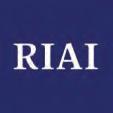

I’m Joyce De Britto from Brazil and I’m studying Architectural Technology. This degree is different from many other architecture courses I had researched, with its mix between Civil Engineering and Architecture.
My favourite modules so far have been the History of Architecture and CAD/BIM. ATU Galway has an amazing welcoming atmosphere and Galway City is such fun place to be a student in. It really feels like my home away from home.
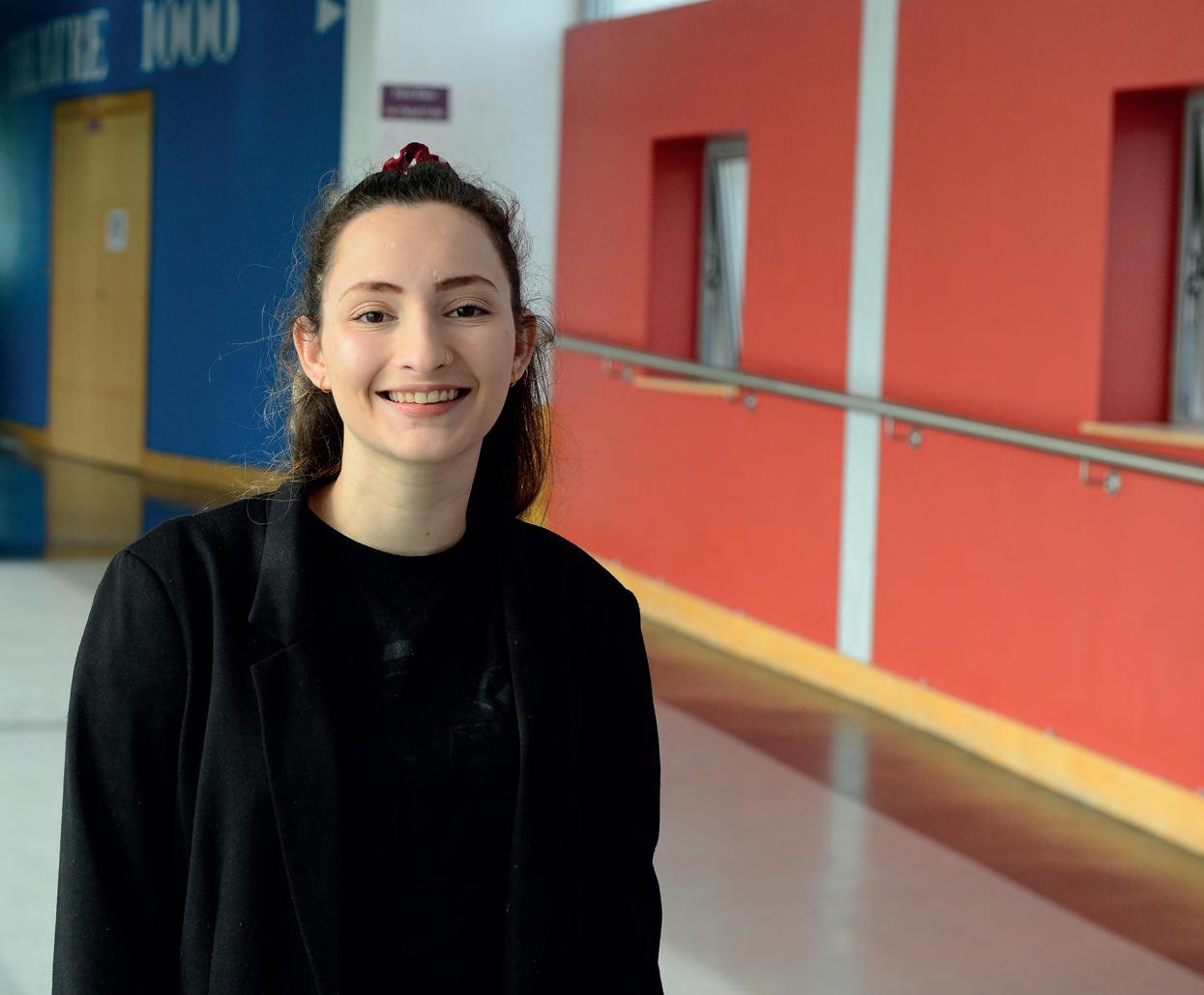
BSc in Architectural Technology
3/4 Years
48 Places
Civil Engineering is probably the best-known type of engineering because the work of the civil engineer is clearly visible to us every day. Civil Engineering is all about creating, improving, and protecting the environment in which we live. It involves the planning, design, and construction of facilities that we require for everyday living, industry, and transport.
Civil Engineers have a creative, diverse, and challenging career and will be making a real contribution to the needs of both modern and developing societies all over the world.
Graduates of Civil Engineering are in high demand in the profession in Ireland and worldwide. The course is accredited by the professional body of Engineer’s Ireland (EI) as Associate Engineer (AEng). The course is also accredited by the Chartered Associate of Building Engineers (CABE). In addition, the level 8 course is fully recognised by the Chartered Institute of Building (CIOB) and provides professional recognition worldwide.

Graduates of Civil Engineering will possess the technical and managerial skills necessary to enter professional careers in industry, research, design and consulting teams or academia.
Upon successfully completing Year 3, Level 7 students can then apply internally for Year 4 Level 8. ATU Honours Level 8 qualifications are recognised worldwide for postgraduate entry.
Work Placement
Standard Entry Requirements plus
• O4/H7 Maths
377 (Level 8 2021) 304 (Level 7 2021)
Dr Wayne Gibbons Programme Chair wayne.gibbons@atu.ie
The Level 8 programme is professionally accredited by the CIOB, CABE and associate accreditation with Engineers Ireland.

Construction Management is a very rewarding career with lots of action and the satisfaction of seeing real results that transform design drawings and models into real buildings, roads or bridges. The Construction Manager organises the people, materials and equipment needed to get the job done in the most efficient and effective manner.
Construction managers are well organised professionals with good communication and people skills to direct and motivate the range of people and organisations involved in construction projects. The five-month work placement in Year 3 allows the student to experience at first hand, the challenges and opportunities of working in the industry.
Year
Our Construction Management graduates are educated and trained to be well-organised professionals who can control, direct, lead and motivate the range of people and organisations involved in construction projects.
There are great career prospects in Ireland and across the world. Graduates work on-site and in professional office environments with large and small building and civil engineering contractors, and project management practices.
Upon successfully completing Year 3, Level 7 students can then apply internally for Year 4 of the Level 8 programme. ATU Honours Level 8 qualifications are recognised worldwide for postgraduate entry.
3/4 years
Work Placement
60 Places 302 (Level 8 2021) 246 (Level 7 2021)
John Hanahoe Programme Chair john.hanahoe@atu.ie
The programme is accredited by the Chartered Associate of Building Engineers (CABE). In addition, the Level 8 programme is fully recognised by the Chartered Institute of Building (CIOB) and has professional recognition.


atu.ie/AU636
3/4 Years
As the businessperson of the construction world, the quantity surveyor is a mix of an accountant, a solicitor and a building manager. Quantity surveyors have expertise in cost planning and controlling of construction projects, estimating, procurement, tendering and contracts administrative processes.
In Year 3, a four-month work placement provides an opportunity for practical learning for each student. Graduates of the level 8 programme are provided with the academic qualification necessary to commence the process of becoming a professional quantity surveyor (chartered surveyor). The programme provides highly sought-after and valuable specialisations, giving its graduates a clear edge in the employment market.
There are great opportunities in Ireland and across the world for graduates who may choose to work on-site and/or in a professional role. Graduates find employment within a building, civil engineering or building services consultancy practices/contractors, sub-contractors, facilities management or insurance companies, local authorities, government departments, state/semi-state organisations, property divisions of the banking sector andutility providers.
Upon successfully completing Year 3, Level 7 students can then apply internally for Year 4 Level 8 programme. ATU Honours (Level 8) qualifications are recognised worldwide for postgraduate entry.
Graduates of the Level 8 programme are provided with the academic qualification necessary to commence the process of becoming a Professional Quantity Surveyor (Chartered Surveyor). The programme provides highly sought-after and valuable specialisations, giving its graduates a clear edge in the employment market.
60 Places 304 (Level 8 2021) 234 (Level 7 2021)
Lisa Dooley Programme Chair
lisa.dooley@atu.ie
The Level 8 programme is fully accredited at Professional Level by the Society of Chartered Surveyors Ireland (SCSI), The Royal Institution of Chartered Surveyors in the UK (RICS) and the Chartered Association of Building Engineers (CABE).

I’m Andy Neassens from Ballinasloe and I’m studying Quantity Surveying and Construction Economics. I really enjoy the Cost Management and BIM modules of the course; changing how construction projects are being managed and delivered.
The smaller class sizes allow for better communication with lecturers creating an encouraging atmosphere for students. In my second year, I have enjoyed learning how to present, use Excel more proficiently and so much more about the professional side of Quantity Surveying. I chose Galway because it’s an such an easy city to get around with a great variety of entertainment and food options on our doorstep. Student life here is second to none.
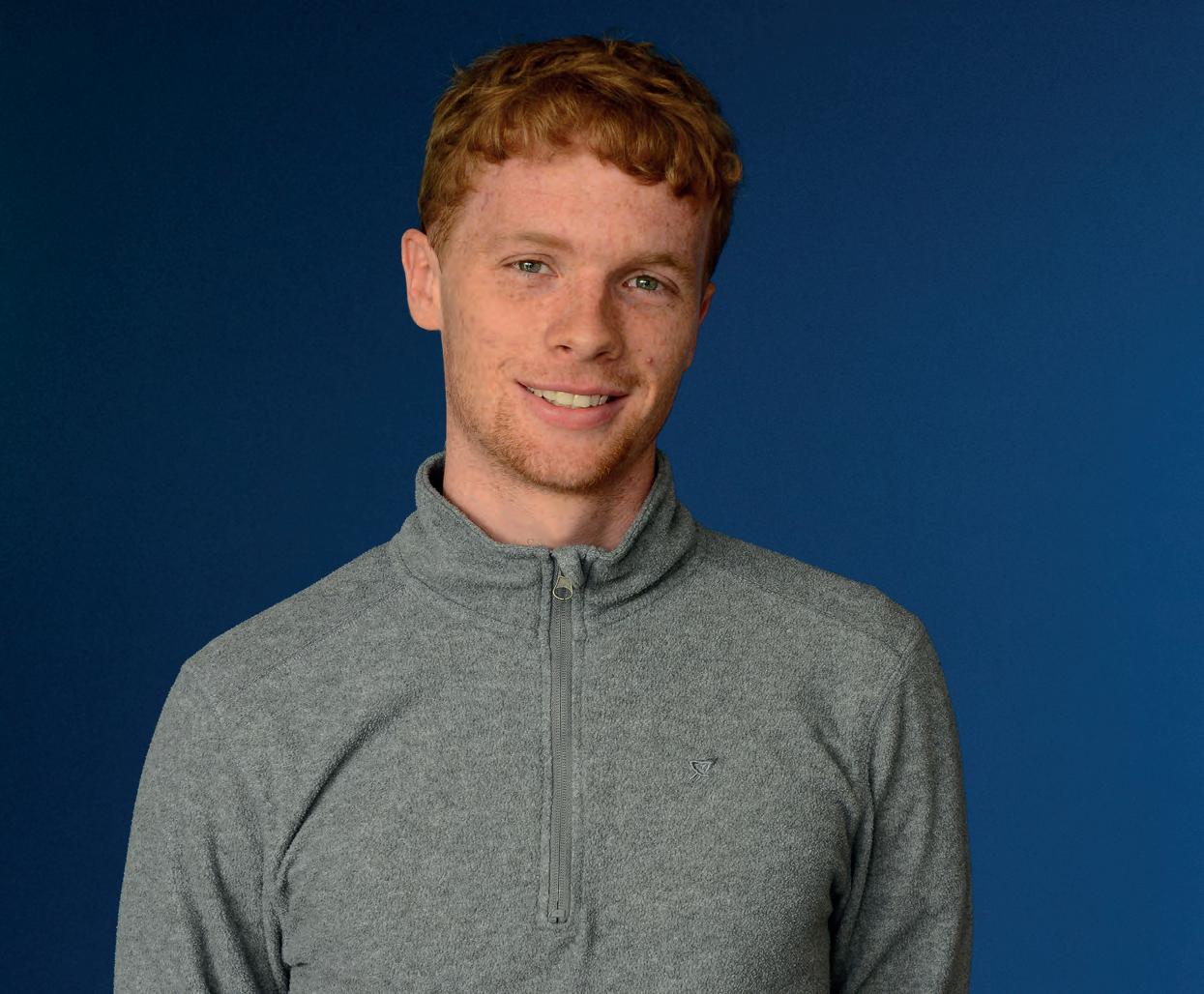
Andy Naessens BSc (Hons) in Quantity Surveying and Construction Economics
Students learn about the Internet of Things, mobile technologies, artificial intelligence, computer vision, virtual reality, digital systems, microprocessor systems and autonomous vehicles. Our innovative learning environment includes team and problem-based learning. Most of the contact time is spent in practical and project work. Lecturers work closely with the students to nurture their technical, personal and professional development. No experience necessary, just an enquiring mind and an interest in technology.
A qualification as a Software and Electronic Engineer is a passport to work anywhere in the world. Graduates work with the leaders in software, computers, the Internet of Things, medical technology, autonomous cars, and telecommunications. Engineers work in many roles including product design, technical support, research, sales, and management. Our graduates work in companies such as Cisco, Intel, Ericsson, HP, Analog Devices, SAP, Avaya, Genesys, Valeo, Jaguar Land Rover, Boston Scientific, Medtronic, Merit Medical and Thermo King. The engineer is an entrepreneur, who knows where your degree will take you?
Level 7 graduates may apply internally for Year 4 of the Level 8 programme. ATU Level 8 qualifications are recognised worldwide for postgraduate entry.
ATU Galway organises student work placement in the top companies in the world who just happen to be in our region. Many students take their first job on graduation with the company where they did their placement.
Standard
• O4/H7 Math
300 (Level 8 2021)
225 (Level 7 2021)
Des O’Reilly Head of Department of Electronic and Electrical Engineering des.oreilly@atu.ie
This degree is accredited by Engineers Ireland at Associate Level.

This course is a one-year programme that, upon successful completion, allows progression into year 2 of five separate programmes of Engineering. The Engineering (Common Entry) programme is the first year of a three (Level 7) or four (Level 8) year course. During Year 1 you will focus on your preferred specialist area. In Year 2 you will then transfer on to one of the following degree programmes; Agriculture Engineering, Biomedical Engineering, Energy Engineering, Manufacturing Engineering Design or Mechanical Engineering.
1 Year +
60 Places
The departmental common entry route is designed to help students make an informed decision, in one of the following engineering programmes: Agricultural, Biomedical, Energy, Manufacturing or Mechanical, while still earning the first-year credits for a student’s chosen degree.
Students move to their chosen specialised area from Year 2. Special Regulations may apply to progression to specific disciplines from Year 2.
Standard Entry Requirements
| ATU Prospectus 202379 ATU Galway City Work Placement
Note: Special Regulations may apply to progression to specific disciplines from Year 2
413 (Level 8 2021) 304 (Level 7 2021)
Dr Aoife O’Brien Programme Chair aoife.obrien@atu.ie
3/4 Years
Biomedical Engineers combine learning from Engineering with Biology and Medicine, and apply the learned principles to healthcare systems, developing life-enhancing equipment and technologies, such as artificial limbs, pacemakers, lasers for eye surgery, stents and contact lenses.
This degree is for students who would like an exciting career in Engineering that will save or improve people’s life. The programme is very practical and includes weekly lab classes, workshop practice, individual and group projects and work placement.
Graduates find employment in biomedical engineering related disciplines nationally and internationally, in areas such as medical device research and design, surgical design, new product design and development, product or process validation and project management.
Careers include working as an automation engineer, research and development engineer, quality engineer or sales engineer.
Level 7 graduates may apply internally for Year 4 of the Level 8 programme.
ATU Level 8 qualifications are recognised worldwide for postgraduate entry.
The Department of Mechanical and Industrial Engineering has strong research connections with many local industries, and graduates may have an opportunity to register on funded MSc, MEng or PhD research programmes specifically in the areas of biomedical engineering.
40
Work Placement
• O4/H7 Math
331 (Level 8 2021) 308 (Level 7 2021)
Dr Liam Morris Programme Chair liam.morris@atu.ie
Paid work placement opportunities are available nationally and internationally.
Students may enter into Year 2 of this programme via the Engineering Common Entry route AU649 Level 8 or AU549 Level 7
Ireland is home to 250+ medical technology companies employing over 25,000 people, with 18 of the world’s top 25 medical technology companies having a base here. Some 80% of the world’s heart stents, 50% of ventilators, and 33% of contact lenses, to name a few, are produced here in Ireland.
This programme is in the process of being accredited by Engineers Ireland
3/4 Years
This discipline is one of the more recent to emerge and is driven by the requirement to achieve Net Zero Carbon emissions by 2050. This is an exciting career in Engineering that will help improve the way energy is produced and consumed.
Energy Engineering is a broad field dealing with Renewable Energy Systems, Energy efficiency, Product design and services, facility management, plant engineering, environmental compliance, and alternative energy technologies.
programme is very practical, and students will have access to energy-dedicated teaching and research
and features weekly laboratory classes, individual and group
and work placement experience.
programme is focused on conventional and renewable energy technologies installation and integration, building energy efficiency, assessment, and information modelling. It also looks at the fundamentals underpinning fluids, solids, and engineering while also considering the control,
of
and
Graduates are employed in a wide diversity of engineeringrelated disciplines, both nationally and internationally. Destinations include building energy management, building information modelling services, research and development, energy manager, project managers, energy assessors and consultants, energy network managers and controllers. HVAC mechanical services, energy efficiency and recovery, energy distribution and with start-up companies.
Upon successfully completing Year 3 Level 7 programme, students can then apply internally for Year 4 of the Level 8 honours degree. ATU Honours (Level 8) qualifications are recognised worldwide for postgraduate entry.
Furthermore, the Department of Mechanical and Industrial Engineering, have strong research connections with many local industries, and graduates may have an opportunity to register on funded MSc, MEng or PhD research programmes specifically in the areas of biomedical engineering and energy engineering.
30 Places
Work Placement
Standard Entry Requirements plus • O4/H7 in Maths
312 (Level 8 2021) 279 (Level 7 2021)
Dr Laurentiu Dimache Programme Chair laurentiu.dimache@atu.ieEnergy engineers are needed to address the most challenging issue of our time, namely, how to produce energy sustainably and to deliver this to an ever-growing population to prevent climate breakdown and biodiversity collapse.
By 2050 the world population is expected to reach 10 billion and by this time the EU hope to achieve net zero carbon greenhouse gas emissions. During the 2020 – 2040 period the worldwide energy demand is forecast to increase by 19%; therefore, there will be radical changes to the energy mix to meet legally binding agreements to reduce greenhouse gas emissions, for example by 55% by 2030.
Students may enter into Year 2 of this programme via the Engineering Common Entry route AU649 Level 8 or AU549 Level 7.
3/4 years
These degrees will deliver high-quality manufacturing engineering graduates to support the local, national, and international manufacturing and service industries. It will provide the opportunity for prospective students to gain transferable knowledge and skills to develop rewarding and progressive careers.
If students are interested in designing, implementing, and managing optimal manufacturing processes that will give Ireland’s manufacturing industry the opportunity to grow and compete internationally, then this degree is a great fit.
The programme is very practical with weekly lab classes, workshop practice, individual and group projects as well as company-based work experience. In addition, tuition is given on the latest CAD packages and leading-edge CNC turning and milling machines.
Upon successfully completing Year 3, Level 7 students can then apply internally for Year 4 Level 8. ATU Level 8 qualifications are recognised worldwide for postgraduate entry.
Year 3
• Polymer Processing Technology
• Engineering Software Systems
Engineering
• Engineering Science for Manufacturing
• Computer-Aided Design
• Academic and Professional Skills
• Engineering in Business
• Mechanical Dissection
• Electrical Science
Year 2
• Manufacturing Automation
• Maintenance and Safety
• Manufacturing Automation
• Metrology
• Manufacturing Engineering Mathematics
• Manufacturing Design of Fixtures
• Project Management and Project
• Advanced Manufacturing Processes
• Six Sigma Quality
• Manufacturing Process Planning
• Robotics and Control
• Operations Management
• Engineering Work Experience
Year 4 (Level 8)
• Product and Service Development
• Operations Modelling and Simulation
• Lean Enterprise Engineering
• Innovation and Enterprise
• Supply Chain Engineering
• Six Sigma Engineering
• The Engineer in Society
• Smart Manufacturing
• Major Project
Additional elective modules may be available.
Furthermore, the Department of Mechanical and Industrial Engineering, have strong research connections with local industries, and some graduates may have an opportunity to register on funded MSc, MEng or PhD research programmes.
Manufacturing is the biggest employer in Irish industry. Furthermore, according to the European Commission, the industry is the backbone of the European economy, accounting for 80% of Europe’s exports and private innovations, and providing high skilled job opportunities.
Students may enter into Year 2 of this programme via the Engineering Common Entry route AU649 Level 8 or AU549 Level 7
20 Places
336 (Level 8 2021) 308 (Level 7 2021)
Mr. Padraig Audley Programme Chair padraig.audley@atu.ie
Graduates from the BEng in Manufacturing Engineering Design degree will have the skills and experience necessary to build a career in manufacturing engineering, quality engineering, lean / six sigma engineering, production and process engineering, process improvement and industrial automation. In addition, operations management, production planning and supply chain engineering project management, CAD / CAM and CNC Specialists and facilities, maintenance and safety careers are also common.
This programme is in the process of being accredited by Engineers Ireland
ATU Prospectus 2023 | 82 ATU Galway City Students will learn how to work together in teams to accomplish specified goals and targets, develop problem-solving skills, being creative and innovative, and gain experience in six sigma and project management methodologies.
3/4 Years
In these degrees students will learn how machines and other mechanical systems work and how they are designed and controlled - This covers a vast range of products and systems from transportation, and power generation to medical devices.
These programmes are very practical and more than 50% of the time is spent in laboratories, workshops and completing group and individual projects. Students are taught the latest techniques for computeraided design and simulation.
In Year 3, students can avail of work placement, and in Year 4, they can specialise in one of four areas, Biomedical, Product Design, Energy and Manufacturing.
Mechanical Engineers work in areas ranging from agricultural, marine, automotive, chemical, rail, and aerospace, to biomedical and manufacturing. They envision and create solutions and many of our graduates work in product and process design, manufacturing, medical device engineering, electronic component manufacturing, facilities engineering, maintenance engineering and energy systems.
Students may enter into Year 2 of this programme via the Engineering Common Entry route AU649 Level 8 or AU549 Level 7.
Mechanical Engineering is one of the oldest branches of engineering, which combines physics, engineering, design and the sciences to analyse, design, and manufacture mechanical engineering systems. Due to the vast range of engineering systems studied, mechanical engineers are highly trained and skilled and competent to take on a variety of careers in industry, education, and public services.
Upon successfully completing Year 3, Level 7 students can then apply internally for Year 4 Level 8. ATU Level 8 qualifications are recognised worldwide for postgraduate entry.
40 Places
Standard Entry Requirements plus • O4/H7 in Maths
400 (Level 8 2021) 294 (Level 7 2021)
Dr Denis O’Mahoney Programme Chair denis.omahoney@atu.ie
Furthermore, the Department of Mechanical and Industrial Engineering, have strong research connections with local industries, and some graduates may have an opportunity to register on funded MSc, MEng or PhD research programmes.
The programme is accredited by Engineers Ireland at Associate Level
My name is Anna Sexton Torres and I am a first year Biomedical Engineering Student in ATU Galway. Studying Biomedical Engineering really allows you to explore your creative side with science, especially in terms of biology and physics. Biomedical engineering allows you to tap into medicine without dealing directly with patients day to day but can help improve patients health and lifestyles by creating machines and devices. This career is very innovative and challenging at the same time.
ATU Galway provides you with a warm welcome into the campus, there are plenty of fun societies to join to keep yourself fit and entertained. There are also workshops every week that offer students’ academic and mental health support. Galway is a great place to study and live in.

1 Year +
These undenominated science degrees give students an exceptional level of flexibility. The programmes build a core foundation in key science disciplines in the first year of study before students choose a specialism for the remainder of the degree.
These undenominated science degrees give students who know they want to study science but are unsure about the direction they want to pursue at the time of application. At the end of Year 1, students choose between Applied Freshwater and Marine Biology, Physics and Instrumentation, Chemical and Pharmaceutical Science, Applied Biology and Biopharmaceutical Science or Forensic Science (subject to availability of places).
Year 1
• Biology
• Chemistry
• Physics
• Mathematics
• Academic and Professional Skills
Year 2+
Students choose one of the following specialisms:
• Physics and Instrumentation
• Chemical and Pharmaceutical Science
• Applied Biology and Biopharmaceutical Science
• Applied Freshwater and Marine Biology
• Forensic Science and Analysis
Additional elective modules are available.
A common entry route is a great choice for students who are unsure which area of science is for them. These programmes allow students to gain a deeper understanding of what each of the pathways entails.
This course is a one-year programme that, upon successful completion, allows progression into Year 2 of five separate programmes in Science.
These programmes are:
• Physics and Instrumentation
• Chemical and Pharmaceutical Science
• Applied Biology and Biopharmaceutical Science
• Applied Freshwater and Marine Biology
• Forensic Science and Analysis
32
445 (Level 8 2021) 302 (Level 7 2021)
Dr Ian O’Connor Head of Department of Natural Resources and the Environment
ian.oconnor@atu.ie
Year 1 involves the study of a range of science subjects, including Chemistry, Biology, Maths, Physics and Learning & Innovation Skills.
At the end of year one, you have a choice of the following programmes (subject to availability of places): Physics and Instrumentation, Chemical and Pharmaceutical Science, Applied Biology and Biopharmaceutical Science, Applied Freshwater and Marine Biology, Forensic Science and Analysis.
There is no need to have studied any Chemistry, Biology or Physics at Leaving Certificate, as the fundamentals of all science subjects are delivered in Year 1.
Our science programmes prioritise practicals, projects and placements. Students are given guidance and advice during the year, and also get to choose from elective science subjects in year one before selecting a specialised degree area at the end of that Year 1.
These programmes will prepare graduates for employment in the pharmaceutical, biomedical and healthcare sectors in Ireland. Many opportunities also exist in environmental protection, food quality and safety, the regulatory agencies and research. Students will gain a professional qualification that will enhance their prospects for career advancement to managerial positions. Graduates also find employment in research or successfully undertake postgraduate research courses leading to higher degrees. Many students in the final fourth year of the programme have secured graduate job opportunities before completing their final exams.
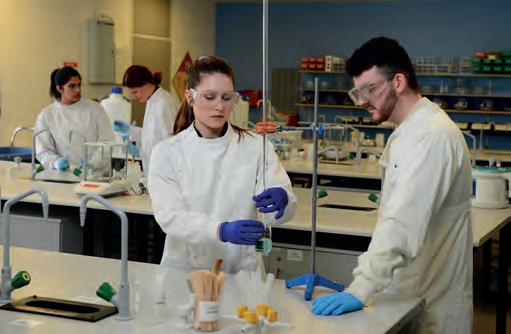
Graduates have excellent career opportunities in the pharmaceutical, biomedical and healthcare sectors, in such areas as the development of new medicines, biomedicines, quality assurance, regulatory affairs, quality control, validation studies, management, research and development, the food industry, biotechnology sector, forensic science, consultancy, marketing, scientific publishing and education.
Level 7 graduates may apply internally for Year 4 of the Level 8 programme. ATU Level 8 qualifications are recognised worldwide for postgraduate entry.
Ireland is a centre of excellence for numerous pharmaceutical and biotechnology companies. Wyeth, for example, has opened the biggest biotechnology campus in the world, and many more companies are opening biotech facilities in Ireland.
(Level 8 2021)
(Level 7 2021)
Dr Mary McMahon Programme Chair mary.mcmahon@atu.ie
Students may enter into Year 2 of this programme via the Science Undenominated common entry route AU556 Level 7 or AU656 Level 8.
I’m originally from Nigeria and am really enjoying both my course and student life here at ATU Galway City. I’m finding that studying Applied Biology and Biopharmaceutical Science gives a great foundation for a career requiring a scientific background.

The course is flexible and allows you to try a whole range of science subjects. It equips you with all the necessary skills needed in a laboratory. The lab sessions are interesting, and I enjoy researching and learning about new science innovations. The lecturers are fantastic and support us with our college work.
I really look forward to taking my six months work placement in my final year.
Student life in ATU is amazing! The environment is friendly and accommodating and there are lots of clubs and societies to get involved with.
3/4 years
Students will study a range of modules from Freshwater and Marine Biology at home and abroad to Environmental Management and Biodiversity and Conservation. This is an applied biology programme with an emphasis on practicals, projects and placement. These programmes focus on Freshwater and Marine Biology of organisms, populations, communities and ecosystems. The sustainable development of renewable resources in the face of the rapidly expanding population and developing economy is a consistent theme throughout these programmes.
Students on this programme complete numerous field trips from seashores to lakes, rivers and wetlands within Ireland and abroad to locations such as Spain.
Graduates from these programme are equipped to play professional and managerial roles in positions related to Freshwater and Marine Biology. These include marine and freshwater researcher, environmental scientist, freshwater farm biologist, marine farm biologist, fisheries development officer, fish disease research scientist, fisheries officer, aquaculture development officer, conservation ranger, education tour guide, ornithologist, environmental analyst and marine mammal observer.
Level 7 graduates may apply internally for Year 4 of the Level 8 programme.
Level 8 graduates can progress to MSc programmes within ATU, such as MSc Applied Marine Conservation, MSc Conservation Behaviour, or PhD / MSc Research at the Marine and Freshwater Research Centre in ATU Galway City. ATU Honours (Level 8) qualifications are recognised worldwide for postgraduate entry.
In 2023, ATU is celebrating 50 years of teaching marine and freshwater biology and ecology on its Dublin Rd Campus in Galway City.
50 Places
366 (Level 8 2021) 303 (Level 7 2021)
Dr Ian O’Connor
Head of Department of Natural Resources and the Environment
ian.oconnor@atu.ie
Students may enter into Year 2 of this programme via the Science Undenominated common entry route AU556 Level 7 or AU656 Level 8.
3/4 Years
These programmes focus on the practical application of chemistry. Students learn how new medicines are discovered and how to ensure that they are safe and of high quality. A strong emphasis on practical work and projects gives the students a great experience in all these areas. It prepares graduates for immediate employment in the pharmaceutical, chemical, biomedical, and biotechnology sectors. In addition to laboratory work, there is a huge demand for graduates from this programme in areas including quality management, quality assurance, training and development, regulatory affairs, marketing and research. In addition, graduates can pursue postgraduate (MSc or PhD) courses immediately.

Graduates fill vacancies in research and development, quality assurance and regulatory departments within the pharmaceutical, biomedical and research sectors. They also find employment in accreditation, validation and sales and marketing associated with these and other related industries. Opportunities also exist in areas such as process development and operations, organic synthesis, and analysis.
Level 7 graduates may apply internally for Year 4 of the Level 8 programme. ATU Honours (Level 8) qualifications are recognised worldwide for postgraduate entry.
There is no need to have studied chemistry for the Leaving Certificate, as the fundamentals of all science subjects are delivered in Year 1.
32 Places
356 (Level 8 2021) 310 (Level 7 2021)
Dr Emer Quirke Programme Chair emer.quirke@atu.ie
Students may enter into Year 2 of this programme via the Science Undenominated common entry route AU556 Level 7 or AU656 Level 8.
The progression of modern technology is largely based on fundamental physics research and instrumentation development. Innovation in all areas of science, engineering, measurement and technology relies on the development of new instrumentation and measurement techniques. The aims of these programmes are to satisfy those who have an interest in fundamental science and present them with opportunities to find rewarding careers. Throughout the programmes, there is an emphasis on practical work and projects. Projects are often based on individual students’ interests and have included: medical instrumentation development, remote measurements using drones, building electronic musical equipment, investigating solar cells and many more.
A degree in Physics and Instrumentation opens many career opportunities. Graduates are highly sought after for high-earning key roles in a range of different sectors. They find employment in the pharmaceutical, medical device, electronic, biotechnology, green energy and marine sectors.
Graduate careers include working as a calibration technician, medical physicist or any role that uses instrumentation.
One of the key skills developed in a physics-based degree is the ability to assess and solve problems; this is a skill that is transferable to many jobs that are not directly physics-based.
Options Level 7 graduates may apply internally for Year 4 of the Level 8 programme. ATU Honours (Level 8) qualifications are recognised worldwide for postgraduate entry.
Over 90% of graduates are in full-time employment within three months of graduation. Graduates of this programme have gone on to work with NASA.
There is no need to have studied physics at Leaving Certificate, as the fundamentals of all science subjects are delivered in the first year.
301 (Level 8 2021) 302 (Level 7 2021)
Gareth Roe, Head of Department of Computer Science and Applied Physics gareth.roe@atu.ie
Students may enter into Year 2 of this programme via the Science Undenominated common entry route AU556 Level 7 or AU656 Level 8.
I’m Shaina Fernandez and I’m originally from Dubai in the United Arab Emirates. The programme I’m currently studying is a Level 8 in Forensic Science and Analysis.
This degree is centred around lab work and while we’re working in there we get the opportunity to perform analyses of blood splatter, drugs - and more. We also get to go out on field trips - including trips to the shooting range. I really feel like this degree has given me a great grounding in science, especially focused on chemistry and I know that I will be ready to work in the industry when I graduate.
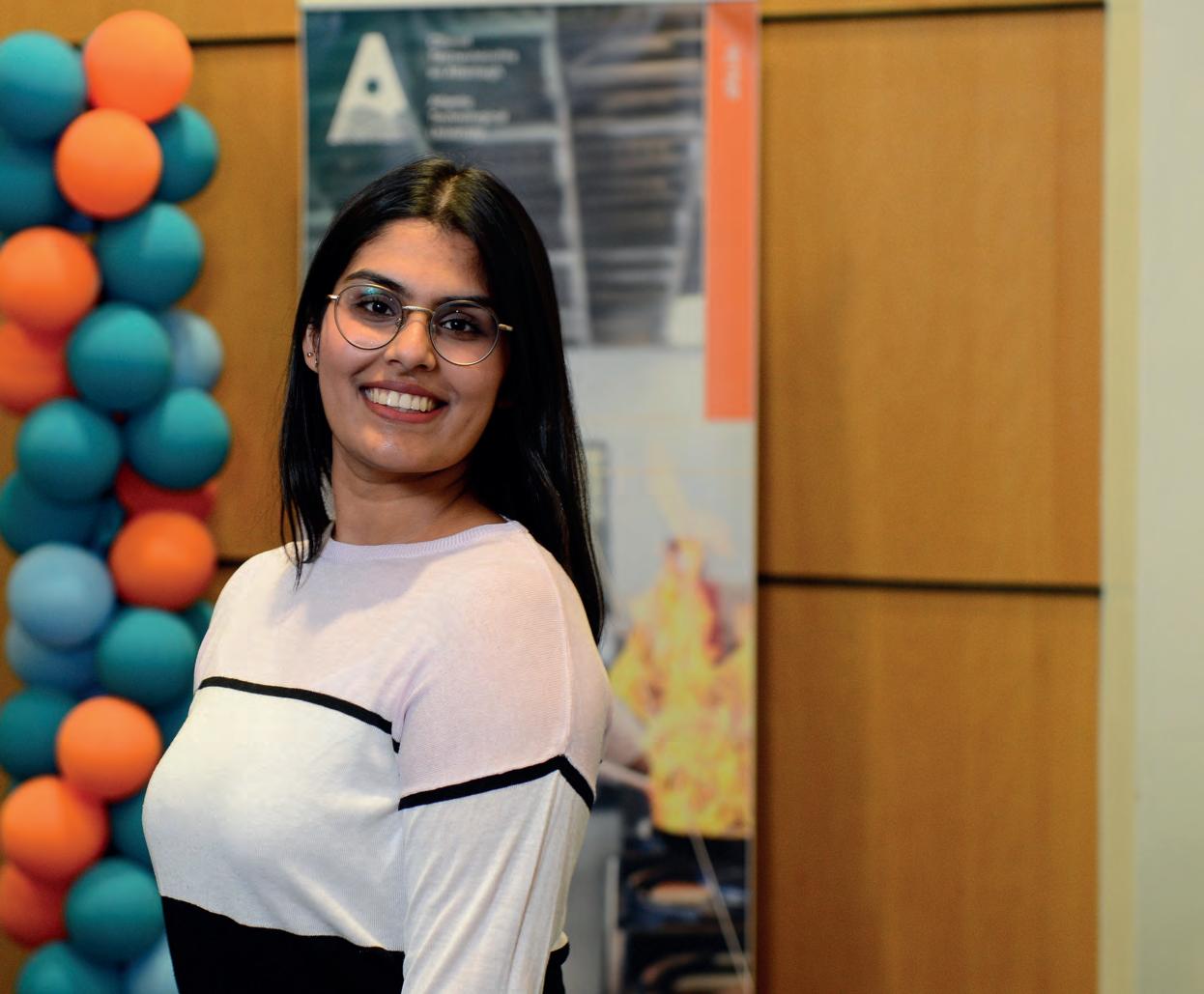
Students will discover how a crime scene is investigated and how to collect and analyse crime scene evidence. They will learn about ethical computer hacking, DNA analysis and much more. There is a large practical and project component to the programme. Students will learn skills such as project management, time management, decision making and laboratory practical skills. On completion, graduates will have a qualification that will provide opportunities for employment in a range of areas and will facilitate career advancement to managerial positions.
Year 1
• Biology
• Chemistry
• Physics
• Mathematics
• Academic and Professional Skills
Year 2
• IIntroduction to Forensic Science
• Analytical Forensics
• Forensic Legal Studies
• Data Modelling and Statistics
• Organic Chemistry
• Inorganic Chemistry
• Forensic DNA
• Analytical Techniques
• Computer Forensics
• Forensics and Analytical Quality Management
• Physical Chemistry
Year 3
• Trace Evidence Collection and Analysis
• Chromatographic Methods
• Computer Forensics
• Spectrophotometric Methods of Analysis
• Organic Chemistry
• Forensic DNA
• Industry Placement (six months)
Year 4
• Electrochemical and Pharmacopoeia Methods
• Forensic Evidence Evaluation
• Forensic Chemistry
• Research Methods for Forensic Science
• Computer Forensics
• Environmental Forensics
• Forensic Project
• Analytical Chemistry
Additional elective modules may be available.
This degree is accredited by The Chartered Society of Forensic Sciences, an internationally recognised professional body with members in over 60 countries. It is one of only three forensic programmes in the technological university sector to have this full professional accreditation.
There is no need to have studied chemistry for the Leaving Certificate as the fundamentals of all science subjects are delivered in Year 1.
Graduates will find work in forensic science, analytical and pharmaceutical sciences, the biotechnology and biomedical sectors and in environmental forensics.
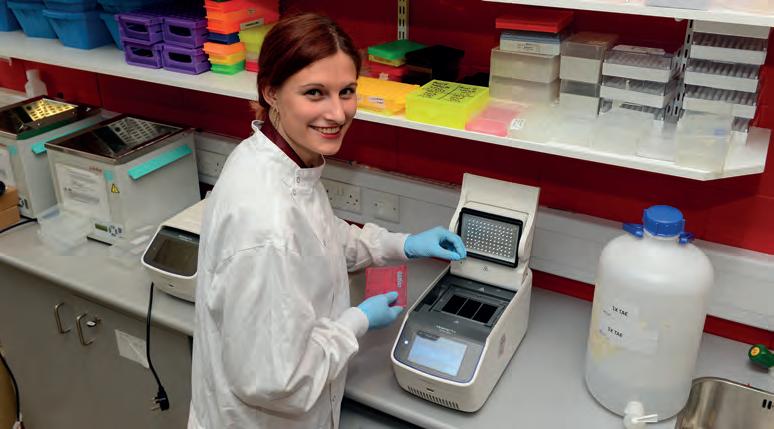
John Keary Programme Chair john.keary@atu.ie
ATU Honours (Level 8) qualifications are recognised worldwide for postgraduate entry.
ATU Prospectus 2023 | 92 ATU Galway City 408 (Level 8 2021)

4 Years

Medical Science is the study of investigative laboratory procedures, techniques and instruments that are required for the diagnosis of clinical disease and the monitoring of therapy. In recent years, there has been an increasing demand for medical laboratory diagnostic services and for the development of new services.
This programme will provide students with a solid foundation in the basic sciences together with the skills and knowledge to practice medical laboratory science. Graduates are specifically qualified to work in modern hospital laboratories and are involved in the investigation and diagnosis of medical conditions and disease.
In Year 3, students are required to complete 1000 hours of structured practice placement as student medical scientists. This work experience provides students with an in-depth knowledge of hospital laboratory systems. During this placement, students are paid a non-means-tested generous allowance by the Health Service Executive. Placement locations are geographically dispersed; therefore, students may have to make alternative living arrangements when they are on placement depending on if they have transport or not.
Graduates are specifically qualified to work in modern hospital laboratories and are involved in the investigation and diagnosis of medical conditions and disease.
This programme is one of only three of its type in the Republic of Ireland that is recognised by the Academy of Clinical Science and Laboratory Medicine as enabling graduates to practice as medical scientists in hospitals.
The programme is also accredited by the Institute of Biomedical Science (IBMS) in the United Kingdom. Thus, successful completion of the academic course and attainment of the IBMS Certificate of Competence through completion of the IBMS registration training portfolio in an approved laboratory enables the student to apply for registration as a Biomedical Scientist by the Health Professions Council (HPC) and to then work as a Biomedical Scientist in the United Kingdom.
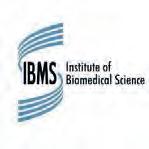
Graduates can also develop careers in medical research and in the pharmaceutical and biomedical sectors.
ATU Honours (Level 8) qualifications are recognised worldwide for postgraduate entry.
32 Places
510 (Level 8 2021)
Dr Eleanor Rainsford Programme Chair eleanor.rainsford@atu.ie
Students are expected to undergo a healthcare screening process on admission to the programme. Specific vaccinations may be required prior to practice placement.
Programmes that lead to a professional qualification and a licence to practice require students to undertake practical training in a professional environment and may be subject to the university’s fitness to practice policy. The policy can be found on StudentHub.ie.
This exciting degree is the first of its kind in the West of Ireland. Public Health Nutrition focuses on the promotion of good health through nutrition and the primary prevention of nutrition-related illness in the population.
Students on this programme will develop, implement and evaluate nutrition policies and programmes. They will apply scientific knowledge to understand the impact of food and diet on health and well-being and students will work to improve the diet, nutrition and health of individuals and communities.
Year 1
• Learning and Innovation Skills
• Mathematics/Statistics
• Fundamentals of Biomechanics and Anatomy
• Human Physiology in Nutrition
• Cell Biology/Genetics
• Chemistry
• Principles of Food and Nutritional Science
Year 2
• Human Nutrition and Metabolism
• Human Physiology
• Food Science and Technology
• Nutrition, Physical Activity and Health
• Evaluating the Evidence for Public Health Nutrition
• Molecular Biology
• Immunology
• Biochemistry
Year 3
• Nutrition Through the Life Cycle
• Personal and Professional
• Development for Nutritionists
• Applied Research Methods
• Community Nutrition and Food Policy
• Professional Placement
Year 4
• Clinical Nutrition
• Health Promotion
• Current Research in Sport, Exercise and Nutrition
• Advanced Food Science – Food Commodities and Ingredients
• Nutrition Controversies
• Research Project in Public Health Nutrition
• Global Perspectives in Nutrition
• Nutritional Epidemiology
Additional elective modules may be available.
32 Places
368 (Level 8 2021)
Dr Lisa Ryan
Career opportunities in this field are developing rapidly for graduates with an understanding of the connections between nutrition and public health.
Graduates will be able to work in areas such as:
• Advisory positions in weight management, healthy eating or similar
• Advisory positions in food safety and health, e.g. Food Safety Authority of Ireland
• Broader roles in health promotion and health improvement
• Project delivery or advisory work with government agencies, e.g. HSE or Local Authorities
• Research and data analysis at public health observatories and various higher education institutes
• The food industry, e.g. Kellogg’s, Nestlé, Danone, Glanbia
• Food in Schools initiatives
• National nutrition assessment groups
• Infant and maternal nutrition, e.g. UNICEF, Healthy Start
• International work in public health, e.g. World Food Programme, World Health Organisation
ATU Honours (Level 8) qualifications are recognised worldwide for postgraduate entry. Graduates will be eligible to pursue research MSc/PhD courses in Nutrition and related areas as well as taught masters’ courses in cognate areas.
ATU Galway School of Science and Computing have developed a number of taught Masters courses for Public Health Nutrition graduates.
Head of Department of Sport, Exercise and Nutrition lisa.ryan@atu.ie
The BSc (Hons) in Public Health Nutrition will be submitted to the Association for Nutrition (AfN) for accreditation.
On this programme, students will learn how to apply scientific principles in order to understand and enhance sport and exercise performance, health, nutrition and well-being.
It will prepare students to work in the world of sport, helping athletes and teams achieve optimum performance. It will also prepare students to work in the health sector, helping individuals to manage or prevent lifestyle-related chronic diseases through training and physical activity.
Year 1
• Fundamentals of Sport and Exercise Science
• Fundamentals of Biomechanics and Anatomy
• Mathematics
• Chemistry
• Human Physiology
• Cell Biology / Genetics
• Learning Innovation Skills
Year 2
• Sport and Exercise Physiology
• Human Nutrition and Metabolism
• The Biomechanics of Human Movement
• Nutrition, Physical Activity and Health
• Introduction to Sports Psychology
• Research Methods for Sport and Exercise Science
• Exercise Instruction
Year 3
• Applied Sport and Exercise Psychology
• Sport and Exercise Pedagogies
• Sport and Exercise Biomechanics
• Advanced Laboratory Techniques for Sport and Exercise Science
• Sport and Exercise Prescription and Training
• Applied Sport and Exercise Nutrition
Year 4
• Sports Management
• Contemporary Issues in Sport and Exercise Science
• Applied Sport and Exercise Physiology
• Current Research in Sport, Exercise and Nutrition
• Research Project in Sport and Exercise Science
• Professional Skills Sport and Exercise Science Placement
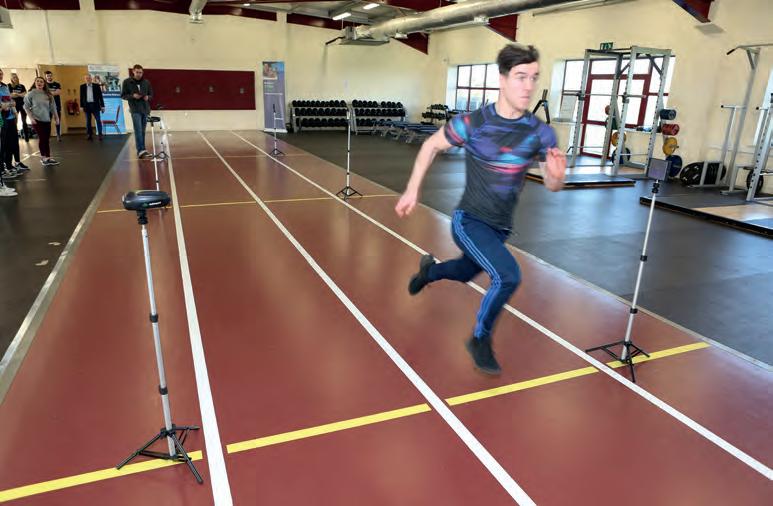
Additional elective modules may be available.
Places
• Garda Vetting
Students can expect a strong focus on practical learning, work placement and projects. Much of the learning will take place in specialised classrooms and our dedicated performance analysis laboratory. Students will develop a thorough understanding of the three main disciplines of sport and exercise science: physiology, psychology and biomechanics.
The demand for sport and exercise scientists is growing in line with the ever-increasing job opportunities within the health sector and a focus within the sporting world on achieving the best results possible.
Graduates will be able to work in areas such as professional sports clubs and organisations, national sporting associations, governing bodies and other related sporting agencies, public sports and recreation facilities, local authorities, education, exercise referrals, health sector (HSE etc.) and private health and fitness clubs and spas.
366 (Level 8 2021)
Dr Lisa Ryan Head of Department of Sport, Exercise and Nutrition lisa.ryan@atu.ie
Dr Robert Mooney Programme Chair robert.mooney@atu.ie
ATU Honours (Level 8) qualifications are recognised worldwide for postgraduate entry.
4 Years
This programme is ideally suited to individuals that are passionate about playing or coaching sport or want a career in the sporting or fitness industry. It is a practically applied coaching degree, with a variety of sporting opportunities, populations, and environments where students will put theory into practice. Students will have the opportunity to complete a number of coaching accreditations with National Governing Bodies such as the FAI, GAA, and Athletics Ireland.
Graduates from this course can look forward to excellent career opportunities such as a professional coach, sports coaches in clubs, sports development officer, fitness instructor or personal trainer, athlete support officer, health promotion specialist, physical activity development manager researcher, coaching development officer, performance analyst, lecturer in higher education, selfemployment (as a consultant, contractor or entrepreneur), GP referral exercise consultant, strength and conditioning coach or teacher.
Graduates can work in sectors such as national governing bodies like the FAI, Athletics Ireland, Irish Institute of Sport. They can also work in technology companies (Vicon, Hawkeye), professional sports teams and leagues, professional rugby teams, Paralympic authorities, sport partnerships, government agencies (e.g., HSE), local authorities (county councils), academic appointments, private health and fitness clubs, spas and public sports and recreation facilities, rehabilitation clinics, sports management, sport marketing agencies or sporting arenas and stadiums.
32 Places
Standard Entry Requirements plus
• Garda Vetting
NEW Programme
Dr Lisa Ryan Head of Department of Sport, Exercise and Nutrition
lisa.ryan@atu.ie
Dr Caoimhe Tiernan Programme Coordinator caoimhe.tiernan@atu.ie
Students successfully completing this programme can then apply for MSc in Strength and Conditioning, MSc in Sport Nutrition, MSc Physical Education (PME). ATU Honours (Level 8) qualifications are recognised worldwide for postgraduate entry.
During their first-year, students must complete a first aid course and safeguarding course to be able to participate in placements in Year 2.
Places
Studying Computing and Digital Media presents an opportunity to explore new areas in 2D and 3D graphics, animation, dynamic web design and development, video production and database technologies for multiplatform environments. Students will develop skills in a variety of software toolkits and applications through hands-on practical development work, and the production of rich media and web application content for a range of platforms.
The varied skillset provided to students of this programme allows for work across emerging technologies on the Web and in the AR/VR space.
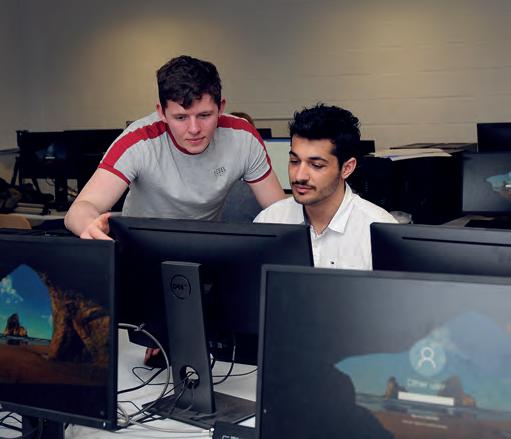
programme places a significant emphasis on practical skills and students
individually and in groups on a variety of projects. It fosters the development of creative thinking and the development of interpersonal and project management skills and competencies required to work in the technology sector.
Graduates can look forward to excellent career opportunities in the digital technology sector. Having attained a wide range of skills and competencies in computing, mobile technology, digital media and web development, graduates will find work where such versatility and adaptability are required.
270 (Level 8 2021) 244 (Level 7 2021)
John Farrell Programme Chair john.farrell@atu.ie
Valerie Butler Programme Chair valerie.butler@atu.ie
Level 7 graduates may apply internally for Year 4 of the Level 8 programme. ATU Level 8 qualifications are recognised worldwide for postgraduate entry.
How do we interact with computers? How is computing evolving? Software Development is about solving problems, designing, and implementing new applications and solutions, and developing personal skills for communication, leadership and management. These programmes place a major emphasis on the development of practical programming language skills, problem-solving and the application of computer science theory to real-world problems. In addition to becoming proficient in programming languages such as Java and C#, students will learn how to design, create, and test software solutions for a world where mobility, connectivity, heterogeneity and Big Data are rapidly becoming part of everyday life.
Graduates can look forward to excellent career opportunities in software development roles with both indigenous and multinational companies.
The career opportunities of a Software Development graduate are varied. Students may pursue postgraduate studies and/or find employment in roles such as a software developer, IT support, IT developer, games adviser or an
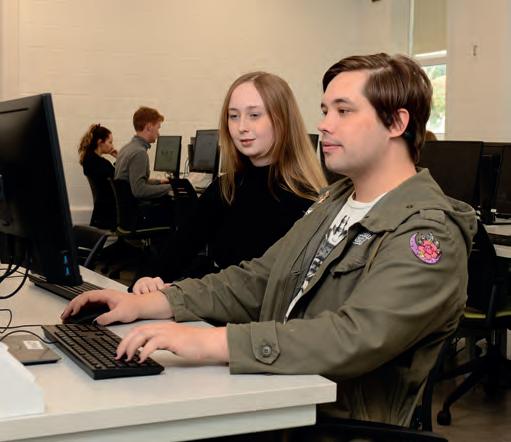
programmer.
Level 7 graduates may apply internally for Year 4 of the Level 8 programme.
ATU Level 8 qualifications are recognised worldwide for postgraduate entry.
The programme is highly practical with an emphasis on “learning by doing”.
310 (Level 8 2021)
280 (Level 7 2021)
Gareth Roe
Head of Department of Computer Science and Applied Physics gareth.roe@atu.ie
Over the last 10 years, 90%+ of graduates have found employment in the ICT industry within six months of completing the programme.
My name is Mary McDonnell from Ahascreagh in Galway and I’m studying Software Development. In this programme the lecturers teach everything from scratch, and I like that I wasn’t expected to know how to do some aspects already.
It makes the material less daunting and makes for an approachable and friendly atmosphere. I also enjoy that I am being taught a wide range of skills in this field so I will have many career options when I graduate. The numbers of clubs and societies at the university is impressive, there’s lots to get involved in and plenty to enjoy. I’m also a student ambassador for ATU Galway- Mayo and love getting to help at open days and exciting launch events on campus.
 Mary McDonnell
Mary McDonnell
BSc (Hons) in Computing in Software Development
This programme is aimed at those who wish to secure employment in the Animation and/or Game industry, and those who wish to design and produce their own animated films or video games.
From the outset, the Animation and Game Design programme has a deep focus on world-building, both narratively and artistically, providing the skills and techniques necessary for its students to create truly immersive worlds, environments and characters. Students will use a large array of 2D art and 3D modelling software, become versed in narrative design theory, learn advanced level design techniques and many more skills. These skills are widely sought after by a wide range of industries today.

•
•
•
•
•
•
Graduates could be employed in various roles such as a game designer, level designer, narrative designer, environment artist, character artist, technical artist, background artist, layout artist, storyboard artist, 3D modeller, 3D/2D animator, character designer, production and direction.
ATU Level 8 qualifications are recognised worldwide for postgraduate entry.
Ireland’s animation industry is a steadily expanding one and a national success story, whilst digital gaming is a sector that has seen exponential global growth in the past decade.
NEW Programme
Manus Burke Programme Chair manus.burke@atu.ie
ATU Prospectus 2023 | 100 ATU Galway City Animation is currently worth over €100m annually to the Irish economy, having doubled its growth since 2014 and with 85% of the output for overseas companies. In the video games segment, the number of users in Ireland is expected to amount to 3.1m by 2025.
Entry
The BA in Art is a dynamic, visually-driven programme. Students are challenged to address traditional, contemporary, conceptual, conventional, and experimental approaches to thinking, making, performing, and writing about art in today’s world. Skills are delivered in Ceramics, Sculpture, Digital Media, Drawing, Filmmaking, Painting, Photography, Printmaking, Professional Practice and Curation in tandem with academic research and writing skills in Art History and Critical Theory.
Year 1
• 2D, 3D & contextual studies/ studio
• Photography and Digital Media
• Drawing Colour and Structure
• Critical Theory
• History of Art 1: Introduction
• Academic and Professional Skills
Year 2
• Sculpture, Ceramics, Digital and Time-Based Media - Studio Practice (Elective A)
• Painting, Photography, Printmaking - Studio Practice (Elective A)
• Clay Portrait Head (Elective B)
• Book Arts (Elective B)
• Interdisciplinary Drawing
• Critical Theory
• History of Art 2: Modernism Matters
• Sculpture, Ceramics, Digital and Time-Based Media - Studio Practice (Elective A)
• Painting, Photography, Printmaking - Studio Practice (Elective A)
• Film Making with DSLR (Elective B)
• Cloth & Human Experience (Elective B)
• Visual Culture
• Professional Practice (Exhibition)
• Exhibiting Contemporary Art
• Sculpture, Ceramics, Digital and Time-Based Media - Studio Practice (Elective A)
• Painting, Photography, Printmaking - Studio Practice (Elective A)
• Critical Theory: Research Methods and Dissertation
• Sustaining Practice
plus
Visual
Learners are exposed to a myriad of technical and creative possibilities within their modules through lectures, workshops, demonstrations, seminars, tutorials and visits to exhibitions, galleries, and museums. Students learn to decode familiar and unfamiliar environments within the broader socio-cultural contexts in which art is made. Learners are encouraged to critically respond to contemporary questions about how we create sustainable visual cultures now and in the future.
Following the completion of this programme, graduates will have many career opportunities including artist, painter, print-maker, sculptor, ceramicist, digital artist, art education roles, art media roles including bloggers and cultural commentators, art writers and critics, art photographer, master printer, arts administrator, public artist, community arts practitioner, museum and gallery assistant, educational roles within the community and cultural institutions, exhibition tour guide or an arts researcher.
Level 7 graduates may apply internally for Year 4 of the Level 8 programme. ATU Level 8 qualifications are recognised worldwide for postgraduate entry.
The Art programme is designed to meet the Teaching Council Curricular Subject Requirements (Post-Primary). To qualify as an art teacher students will need to additionally complete a two-year Professional Masters in Education (PME).
The BA (Hons) in Art promotes a student-centred approach that recognises learner experience as a firm basis for further learning and active learner engagement.
*The points listed above include additional points awarded for the portfolio which are added to the Leaving Certificate points. Details of the ePortfolio can be found on the programme webpage.
(Level 8 2021)
(Level 7 2021)
Katherine West Programme Chair katherine.west@atu.ie
My name is Aimee O’Brien from Clonmel, and I’m studying Art at ATU Galway City. I really enjoy the opportunity of being challenged in developing personal artwork, along with technical skills and being around creative and supportive individuals. Having access to a studio space is something I’m really grateful for and it’s great to have somewhere to go and think through the creative process.
I find student life at ATU is quite a relaxed and supportive environment. The creative campus has a nice community aspect, which is inclusive and fun to be part of.
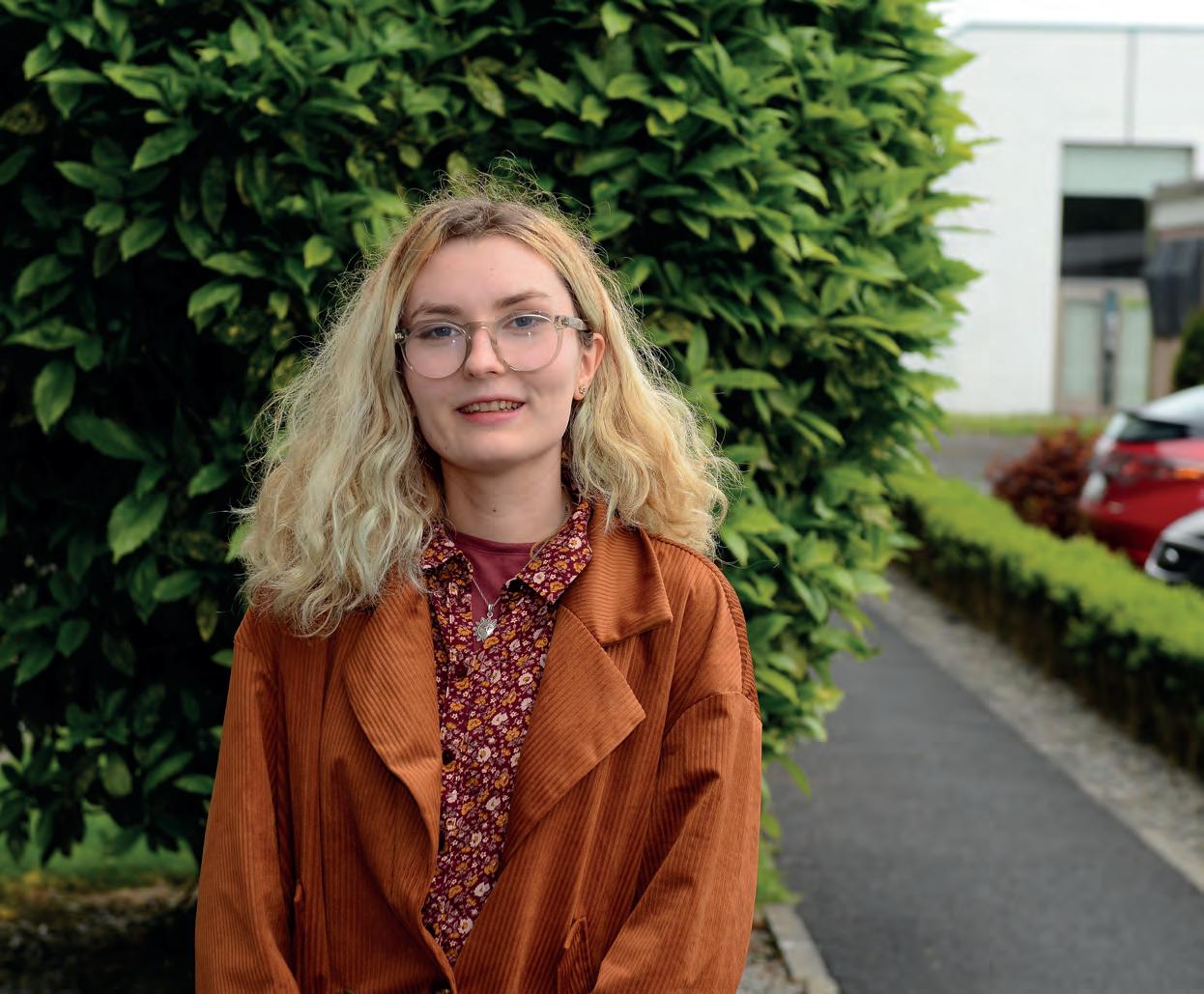 BA (Hons) in Art
BA (Hons) in Art
This programme involves working with both technology and people, so it will suit students who seek to challenge themselves, enjoy developing ideas, and who can apply themselves to production deadlines. Studying Film and Documentary will provide students with specialised knowledge of the history, theory and practical working of documentary and filmmaking. In addition to learning Production and Direction, the practical components include such specialist areas as screenwriting, editing, sound, production design, Cinematography, VFX (Visual Effects) and knowledge of the planning, budgeting, and management requirements involved in shooting and delivering film and documentary projects.
• Screen Writing
• Editing
• Production Design
• Production Practice
• Broadcasting Theory
• Film Studies: An Introduction
• Academic and Professional Skills
• VFX
• Audio
• Cinematography
• Film Practice 1: Documentary
• Production Practice
• Film Practice 2: Fiction
• Documentary Studies
• Visual and Critical Studies
• Industry Project, or Industry Engagement: Irish for Media
• Production Design, or Audio, or Cinematography
• Editing, or VFX, or Screen Writing
• Dissertation: Media
• Production Practice: Entrepreneurship
• Production Practice: Project Management
• Small Screen Studies
• Film Studies: Critical Approaches
• Film Practice 3: Fiction, or Documentary
• Production Design, or Audio, or Cinematography
• Editing , or VFX, or Screen Writing
The practical and technical skills options include such specialist areas as screenwriting, editing, sound, production design, cinematography and VFX (visual effects).
Graduates will be equipped with a set of specialist skills, which will strongly position them to enter the competitive world of film and documentary, both nationally and internationally.
Career opportunities include working as a screenwriter, script editor, researcher, editor, assistant editor, post-production coordinator, location sound recordist, post-production sound designer, foley artist, production designer, art director, props, set dresser, model maker, cinematographer, camera assistant, data wrangler, script supervisor
VFX - compositor, environmental artist, CGI artist, rotoscope artist, motion design/matchmoving, VFX Supervisor, producer, production manager, production coordinator, assistant director, locations manager or director.
ATU Level 8 qualifications are recognised worldwide for postgraduate entry.
| ATU Prospectus 2023103 ATU Galway City Organisations on campus, who contribute to the programme, include Ardán (A platform for creative talents in Film, TV, Games and Animation), RTE, UNESCO City of Film, CREW (Creative Enterprise West), WRAP (Western Audio-Visual Producers) fund and Creative Europe.
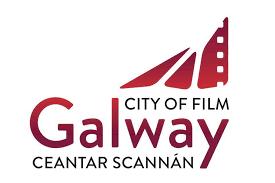
301 (Level 8 2021)
Felim MacDermott Programme Chair felim.macdermott@atu.ie
Storytelling is central to all aspects of our lives. From parables to fables, dramas to advertising, we have always relied on stories to inform, educate and entertain us. This 3-Year Level 8 honours degree programme offers students the opportunity to garner the skills to craft, bring to life and deliver stories through the various media and platforms that are available today.
Crafting stories with the power to change how we think, how we feel and how we act is central to this programme. Students will infuse stories with the power of visual communication and help their audience understand the world in new and inspiring ways.
Year
•
•
•
•
•
The programme is aimed at students who wish to pursue a career in the digital communications arena. It will include key subjects that inform the digital media sphere, including local journalism, marketing and advertising, advocacy, campaigning, community awareness and digital communication.
The student will learn to create trustworthy accurate content, script writing and presentation for the digital age, by ethically mastering and utilising different digital communication platforms. As there will be an equal emphasis on academic and practical performance, the student will also acquire a broad operational skills base in the use of technology for photography, location filming, sound recording, editing and podcasting, while web design and creation also feature. These skills will help develop the multi-skilled graduate of the digital age.
Our graduates will be equipped to work in a variety of industries and sectors including public, community, NGO`s, education, corporate relations and creative agencies.
Career opportunities could include working as content creators, scriptwriters, photographers and photojournalists, podcasters, and bloggers. Graduates also find employment in commercial and industrial enterprises, film production, the news industry, and radio, TV and print industries.
ATU Level 8 qualifications are recognised worldwide for postgraduate entry.
The demand for Digital Content Creators, with titles such as Content Coordinator, Writing Consultant, Podcaster and Blogger, increased by 49% year on year in 2021.
ATU Prospectus 2023 | 104 ATU Galway City This is a degree for the digital information era, aimed at those who want to work in the media and communication industry in a wide range of capacities. These could include marketing, advertising, community/public relations, news reporting, citizen journalism/blogging/influencing, etc.
This programme qualifies graduates to teach both Art and Design and Communication Graphics (DCG) in Irish post-primary schools. Students will develop their creative skills and learn to apply emerging technologies to enable them to master the subjects of Art and DCG. Education theory and practice of teaching are core elements of the programme and students are given an opportunity each year during school placement to develop their teaching skills in supportive and inclusive school environments.

Year 1
• Academic and Professional Skills
• Design Process
• Creative Disciplines - Art and Design
• Technical Graphics
• School Placement 1 (1 week)
• Visual Culture and Critical Studies
• Art Elements and Design Principles (Drawing - 2D and3D)
Year 2
• Graphics and Computer Applications
• Visual Culture and Critical Studies Education Projects 2 (Art, Design and Technology)
• Design Process
• Creative Disciplines - Art and Design
• Theory of Teaching and Learning
• School Placement 2 (3 weeks)
Year 3
• Creative Disciplines - Art and Design
• School Placement 3 (1 Semester)
• Curriculum and Assessment
• Education for Inclusivity and Diversity
• Education Studies
• Education Projects 3 (Art, Design and Technology)
• Applied Graphics
Year 4
• Creative Disciplines - Art and Design
• School Placement 4 (1 Semester)
• Advanced Graphics
• Professional Studies
• Practitioner Research
4 Years
A career in teaching is highly stimulating and rewarding, and teachers make a real impact on young peoples’ lives. The subjects of Art and DCG allow students to express themselves in a creative way and the teacher plays an important role in nurturing this creativity. Through our expert staff and small class groups, the programme will provide all the structures, resources and facilities for graduates to become experts in these subject areas. Learning on this programme is combined with practical skill-based assignments, educational theory, and professional practice, providing a rich and varied learning experience for students.
Graduates of this programme will be qualified to teach Art and Design and Communication Graphics to Senior Cycle honours level. They can also teach Visual Art and Graphics at Junior Cycle level. Graduates will also have a suite of skills that are highly sought-after in other fields of work including design, 3D modelling and visual and graphic communication.
On completion of this course, graduates can apply for post-graduate programmes in related areas.
• H5 in Art or DCG
• Garda Vetting
406 (Level 8 2021)
John Langan Programme Chair john.langan@atu.ie
I have really enjoyed my first year of this course. All the modules and projects are focused on developing students’ abilities in terms of creativity, design, teaching, and digital literacy, which was really interesting and very relevant to my future career as a teacher of Art and DCG. Each module is led by a subject expert in the field, with ample experience and knowledge to share.
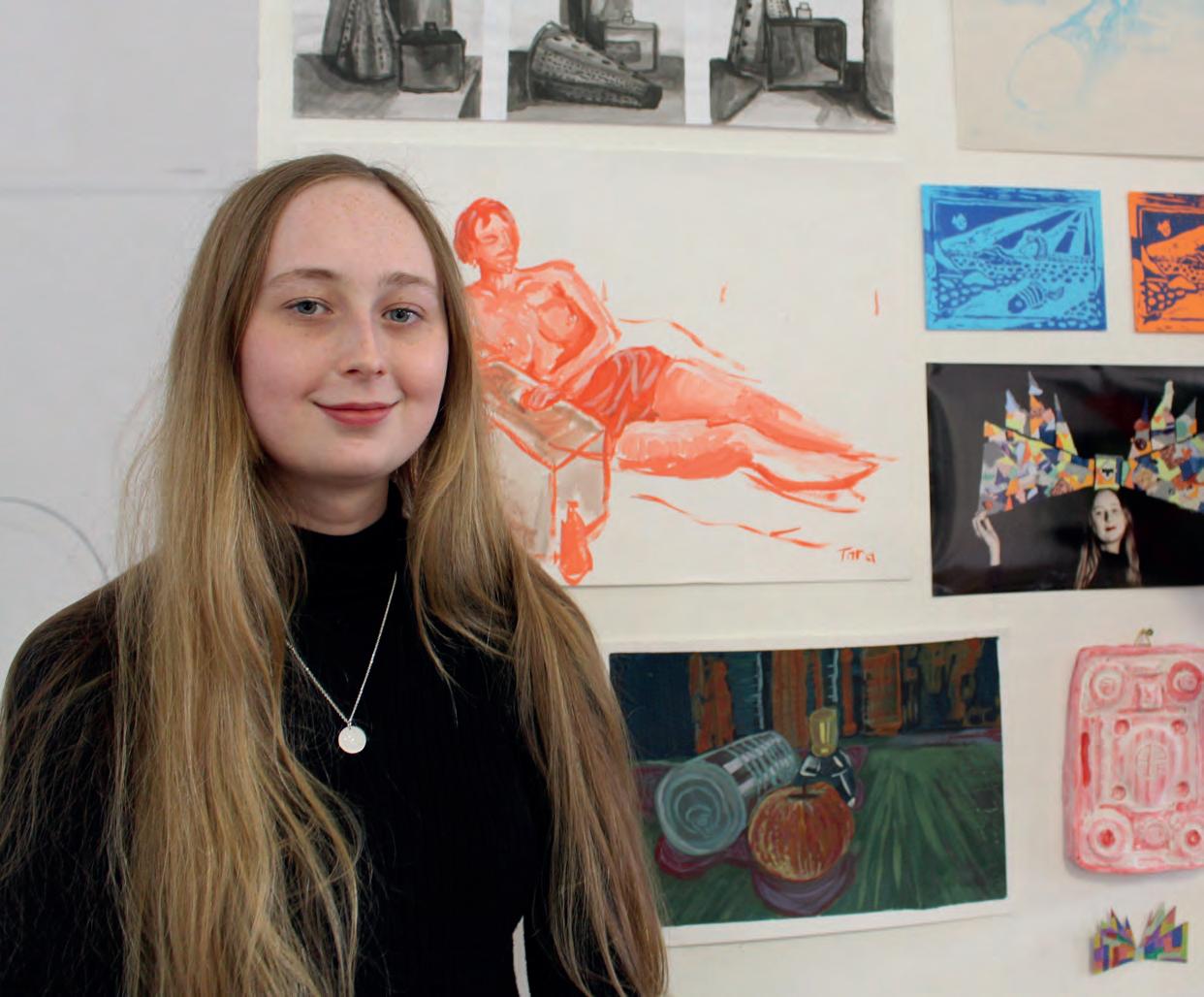 Tara Poole
Tara Poole
The Design (Common Entry) course is the first year of a three (Level 7) or four (Level 8) year course. During Year 1 you will focus on your preferred specialist area. In Year 2 you will then transfer on to one of the following degree programmes; ‘Product Design’, ‘Graphic Design & Illustration’, ‘Interior Design’, and ‘Textile & Fashion Design’. The course explores both traditional and digital design skills across all four disciplines. Students will learn the methods and techniques to research, develop and realise their creative vision as a designer, problem-solver and entrepreneur. Teaching will take place in studio workshops, through demonstrations, lectures, seminars, field trips and one-to-one tutorials preparing graduates for professional life in a design studio, to work individually or as part of a team.
Students will develop real-world design skills through links created with industry, in the form of live projects and placement. In Year 1, the programme begins with an introduction to core design principles and an exploration of each discipline, after which you focus on your preferred creative pathway from Graphic Design and Illustration; Interior Design; Product Design; Textile and Fashion Design.
Design is a high-growth industry sector, offering graduates exciting career opportunities. Graduates are on a pathway to become interior designers, product designers, graphic designers, illustrators and fashion and textile designers, in addition to a vast array of other design roles within each discipline.
Students progress from Year 1 common entry into Year 2 of the Degree pathway in either Product Design, Graphic Design and Illustration, Interior Design, or Textile and Fashion Design. Level 7 graduates of one of these programmes may apply internally for Year 4 of the Level 8 programme. ATU Level 8 qualifications are recognised worldwide for postgraduate entry.
331 (Level 8 2021) 271 (Level 7 2021)
Kieran Egan Programme Chair kieran.egan@atu.ie
Employers value our design graduates for their creative problem solving, excellent communication skills, IT literacy, flexibility, teamwork skills and visual presentation skills.
| ATU Prospectus 2023107 ATU Galway City In Year 1 the programme begins with an introduction to core design principles and an exploration of each discipline. For Year 2 students choose their creative pathway and continue their degree in Graphic Design and Illustration, Interior Design, Product Design or Textiles and Fashion.
Students join this programme by applying to the Design (Common Entry) course, AU619 for Level 8 or AU519 for Level 7. After Year 1 students can join this course in Year 2. Interior Design is a 2 or 3-year course that follows the first-year in the common entry course.
Interior Design students learn about the design of interior spaces, 3D modelmaking, building regulations, ergonomics and human-centred design, textile and surface design, interior design - surfaces, materials and finishes, interior design - integrated interior design project, and building information modelling. Other topics on the programme include Photography, Digital Media, Design History and Theory, Creative Problem Solving, Business and Entrepreneurial skills and an Ethical and Sustainable Design ethos.
Year 1 (Common Entry)
• Academic and
• Design Studio
• Introduction to Design Pathways
• Design History and
• Photography
• Digital Media
• Core Studio (Interior Design)
Year 2
• Digital Tools
• Design Thinking and
• Interior Design - 3D Modelmaking and Building
• Ergonomics and Human-Centred
• Textile and Surface
Year 3
• Contemporary Design Theory
• Advanced Digital
• Professional Practice and
Year 4 (Level 8)
• Project Management and Costing
• Dissertation
• Entrepreneurship and Professional Practice
• Interior Design - Surfaces, Materials and Finishes
• Interior Design - Integrated Interior Design Project
| ATU Prospectus 2023109 ATU Galway City • Building Information Modelling (Interior Design)
Interior Designers can go on to specialise in areas such as a retail store designer, office designer, home interior designer, film and set designer, hotel and restaurant designer, exhibition and display designer, interior stylist or CAD technician.
Level 7 students may apply internally for Year 4 of the Level 8 programme. ATU Level 8 qualifications are recognised worldwide for postgraduate entry.
The programme features a full year of professional practice (with some online tuition) that can be experienced as a year-long industry placement, a combination of placement and international exchange, or on-campus industry projects that link with industry partners nationally and internationally.
To apply for this degree, choose AU619 for Level 8 or AU519 for Level 7 and select this pathway from the Design (Common Entry programme at the end of Year 1.
331 (Level 8 2021) 271 (Level 7 2021)
Kieran Egan Programme Chair kieran.egan@atu.ie
Students join this programme by applying to the Design (Common Entry) course, AU619 for Level 8 or AU519 for Level 7. After Year 1 students can join this course in Year 2. Graphic Design and Illustration is a 2 or 3-year course that follows the first-year in the common entry course.
Graphic Design and Illustration students will learn about visual communications, illustration, typography, advanced digital design and book arts for design. Other topics on the programme include Photography, Digital Media, Design History and Theory, Creative Problem Solving, Business and Entrepreneurial skills and an Ethical and Sustainable Design ethos.
Graphic Designers and Illustrators can also go on to specialise in areas such as user experience design, design for static, motion, products graphic or design for TV and Film. Graduate careers include working as a stationary designer or art director and many more.
Level 7 students may apply internally for Year 4 of the Level 8 programme. ATU Level 8 qualifications are recognised worldwide for postgraduate entry.
The programme features a full year of professional practice (with some online tuition) that can be experienced as a year-long industry placement: or a combination of placement and international exchange: or on-campus industry projects that link with industry partners nationally and internationally.
To apply for this degree, choose AU619 for Level 8 or AU519 for Level 7 and select this pathway from the Design (Common Entry programme at the end of Year 1.
331 (Level 8 2021) 271 (Level 7 2021)
Kieran Egan Programme Chair kieran.egan@atu.ie
ATU Prospectus 2023 | 110 ATU Galway City Year
Students join this programme by applying to the Design (Common Entry) course, AU619 for Level 8 or AU519 for Level 7. After Year 1 students can join this course in Year 2. Textile and Fashion Design is a 2 or 3-year course that follows the first-year in the common entry course.
Textile and fashion design students will learn about fashion concepts, textile and surface design, woven textile design and practice, accessory design, fashion textile research and development, 3D construction, textile fabrication, and fashion directions. Other topics on the programme include Photography, Digital Media, Design History and Theory, Creative Problem Solving, Business and Entrepreneurial skills and an Ethical and Sustainable Design ethos.
Fashion and Textile Designers can go on to specialise in areas such as surface design, accessory design, pattern cutting, stylist, costume design and retail merchandising.

Level 7 students may apply internally for Year 4 of the Level 8 programme. ATU Level 8 qualifications are recognised worldwide for postgraduate entry.
The programme features a full year of professional practice (with some online tuition) that can be experienced as a year-long industry placement, a combination of placement and international exchange, or on-campus industry projects that link with industry partners nationally and internationally.
331 (Level 8 2021) 271 (Level 7 2021)
Kieran Egan Programme Chair kieran.egan@atu.ie
| ATU Prospectus 2023111 ATU Galway City To apply for this degree, choose AU619 for Level 8 or AU519 for Level 7 and select this pathway from the Design (Common Entry programme at the end of Year 1.
I chose to study at ATU Galway for its amazing facilities and its unique selection of courses. As a student of the BA in Design, I specialised in Industrial Design. The BA in Design was the perfect mix of lectures and workshops.

Throughout the Industrial Design course, I was constantly encouraged by my lecturers to learn different skills and explore new ideas. At ATU Galway, Design students are challenged to question norms, ask why and create innovative solutions that positively affect the end user’s experience.
There is a great variety of modules where we learned about sketching, product photography, computer aided design and product design processes. The course also puts a large emphasis on human-centred design, which has been a huge advantage for me in the working environment. I have also had opportunities such as winning the A’Design Award and European Product Design Award for my final year project.

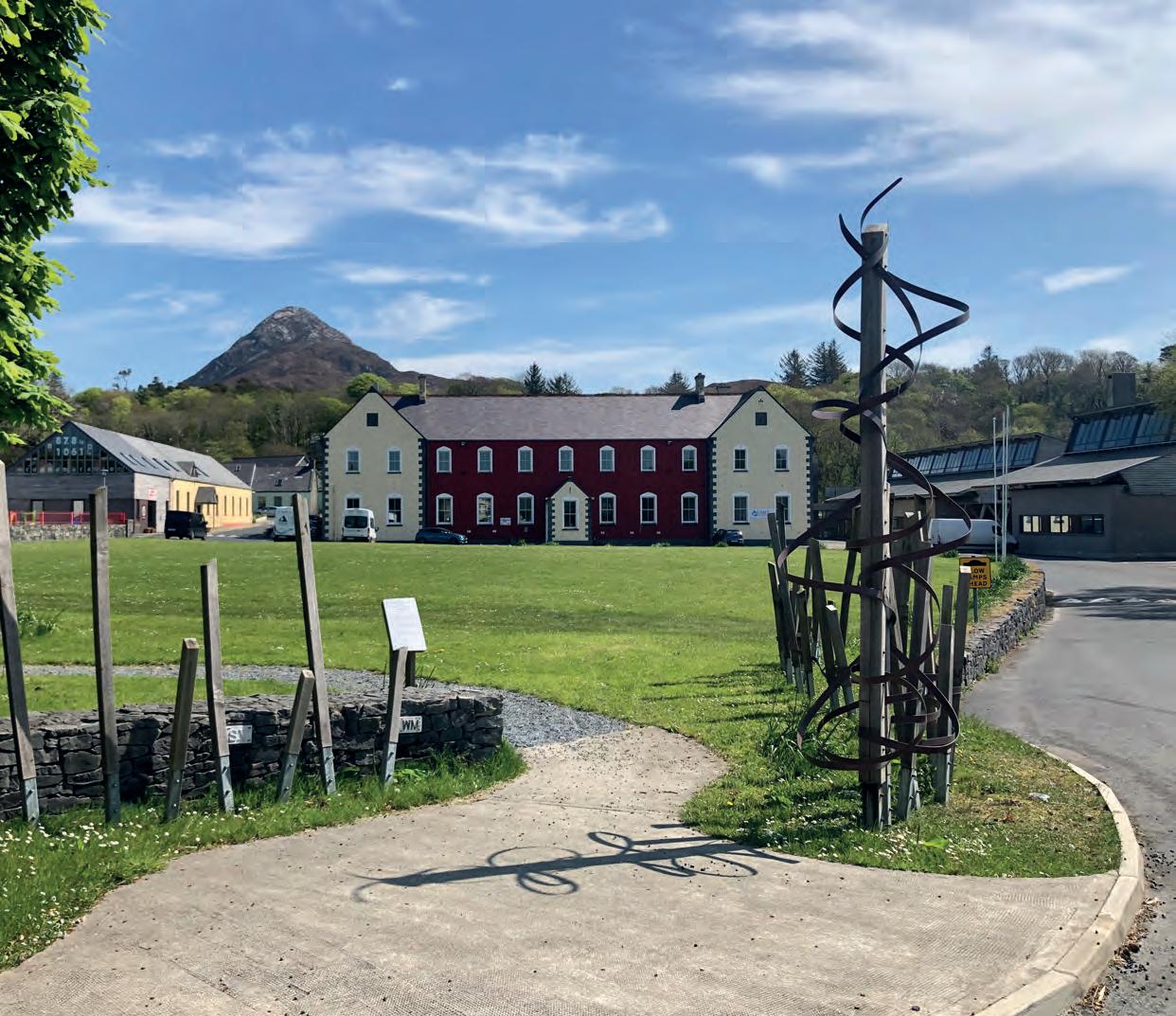 OTA Conamara
OTA Conamara

ATU Connemara is regarded both nationally and internationally as a leading provider of third-level programmes in furniture design and technology, and teacher education (design, graphics and construction).

Students benefit from learning their skills in state-of-the art facilities. Our machine halls and bench rooms are fully equipped and include CNC equipment, laser cutting technology, sawmill and drying kiln, computer labs with specialist CAD software, along with a range of other specialist wood processing machinery.
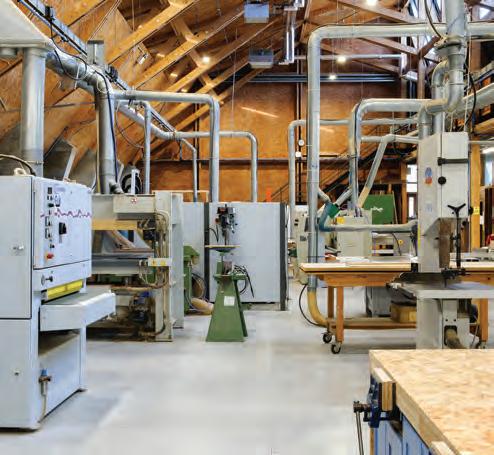
Our students frequently top award lists nationally and internationally. These include design and craft, national skills, undergraduate and wood marketing awards.
Students regularly get to showcase their work at local, national and regional levels. This not only highlights their talent, it also allows students to engage with potential employers.
All students are given the opportunity to undertake work placement as part of their programme, including overseas placement opportunities. Through placements, students broaden their understanding of enterprise operations and widen their professional network. School placements for those on the Bachelor of Education degree provides experience of the classroom and the role of the teacher.
As a result of ATU Connemara’s reputation and award-winning students, graduates are highly sought after within industry and boast an exceptional 100% record of employment upon graduation.
Page Programme
115 Furniture Design, Making and Technology
- Common Entry with Degree options in:
- Furniture Design and Manufacture
- Furniture Making and Architectural Woodworking
116 Furniture Design and Manufacture
117 Furniture Making and Architectural Woodworking
119 Education (Design, Graphics and Construction)
This programme is designed for those interested in pursuing an exciting career in the furniture and wood manufacturing industry. Students first develop skills in a wide range of furniture manufacturing techniques and computer-aided design software. In the second year, students choose their preferred degree option In the third year, a year-long work placement is undertaken in a company in Ireland or overseas. In Year 4, students further develop their technical, research and management expertise to allow them to pursue management roles within the furniture industry.
Year 1
• Projects
• Manufacturing Skills
• Design Elements
• Computer-Aided Design
• Materials and Techniques
• Academic and Professional Skills
Year 2+
Students continue on one of
Degree pathways:
• Furniture Design and Manufacture
• Furniture Making and Architectural Woodworking
All students undertake a common first year before deciding which degree option to take. Subjects are designed to provide students with an introduction to furniture design and making techniques, materials, and equipment.
Currently there is 100% graduate employment for those wishing to enter the wood and furniture manufacturing industry following study in ATU Connemara. There is a very strong demand for our graduates who have a range of specific and transferrable skills which allows them to enter the segment of industry that most appeals to them, ranging from craft-based workshops to modern furniture manufacturers, both in Ireland and internationally.
Towards the end of Year 1, students will have a discussion with their lecturers, review their academic results and assess their suitability for each degree option. Students then select their preferred pathway, subject to places being available, choosing a degree option in
• Furniture Design and Manufacture or
• Furniture Making and Architectural Woodworking.
Erasmus+
| ATU Prospectus 2023115 ATU Connemara Work Placement
467 (Level 8 2021) 422 (Level 7 2021)
Dr Kate Dunne Programme Chair kate.dunne@atu.ie
In Year 1 the programme begins with an introduction to furniture design, making and technology and an exploration of each discipline. For Year 2 students choose their creative pathway and continue their degree in furniture design and manufacture or furniture making and architectural woodworking.
This programme is for a student who likes to solve problems using creative techniques and is interested in learning a range of skills to design and make contemporary and innovative furniture products. Students get an opportunity to develop skills in both traditional and advanced manufacturing techniques and learn how to apply the design process from concept through to fully finished furniture projects. Initially focusing on hand and power tools, students acquire skills to utilise a range of woodworking machinery including CNC technology.
Students take part in a year-long industry placement in Year 3 of this programme.
Currently, there is 100% graduate employment for those wishing to enter the wood and furniture manufacturing industry following study in ATU Connemara. There is a strong demand for our graduates who have a range of specific and transferrable skills which allows them to enter the segment of the industry that most appeals to them, ranging from craft-based workshops to modern furniture manufacturers, both in Ireland and internationally.
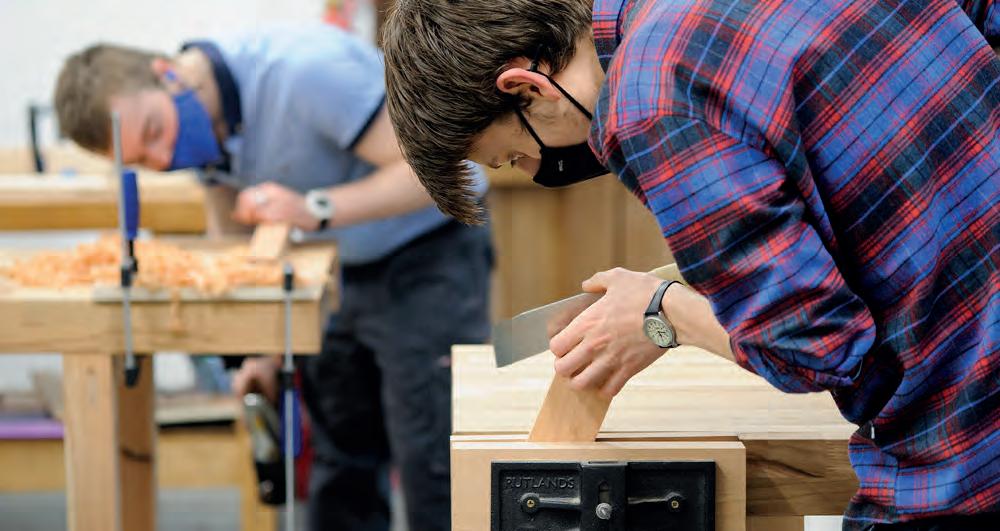
Level 7 graduates may apply internally for Year 4 of the Level 8 programme. ATU Level 8 qualifications are recognised worldwide for postgraduate entry.
346 (Level 8 2021) 302 (Level 7 2021)
Jeremy Madden Programme Chair jeremy.madden@atu.ie
Students can choose this programme directly or after completing Year 1 of the Common Entry route through AU683 for Level 8 or AU583 for Level 7, subject to places being available.
This degree is for students who enjoys woodworking and wishes to pursue a professional career in furniture making, architectural joinery, or wood manufacturing industries. Through structured projects, students develop skills and knowledge to enable them to make furniture, architectural joinery and wood products to the highest standards using a range of traditional and advanced manufacturing technologies. The programme integrates the use of a wide range of CAD/CAM software and equipment and introduces metalworking and upholstery techniques. A complementary set of professional skills are key elements of student learning.
Students take part in a year-long industry placement in Year 3 of this programme.
Currently, there is 100% graduate employment for those wishing to enter the wood and furniture manufacturing industry following study in ATU Connemara. There is a strong demand for our graduates who have a range of specific and transferrable skills which allows them to enter the segment of the industry that most appeals to them, ranging from craft-based workshops to modern furniture manufacturers, both in Ireland and internationally.
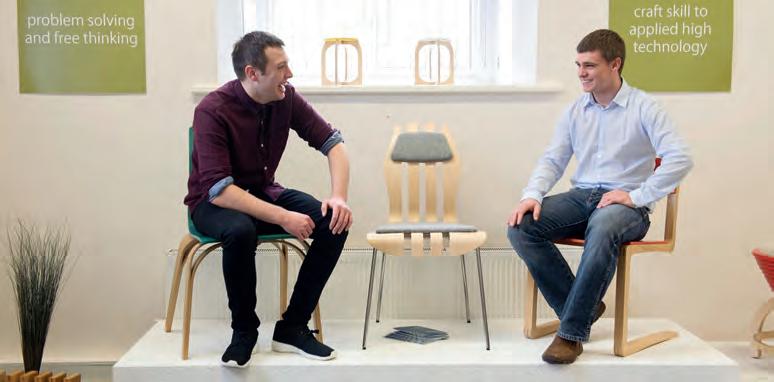
Level 7 graduates may apply internally for Year 4 of the Level 8 programme. ATU Level 8 qualifications are recognised worldwide for postgraduate entry.
360 (Level 8 2021) 369 (Level 7 2021)
Seán Garvey Programme Chair sean.garvey@atu.ie
Students can choose this programme directly or after completing Year 1 of the Common Entry route through AU683 for Level 8 or AU583 for Level 7, subject to places being available.

I really enjoyed my time studying in ATU Connemara. I initially visited the campus in Letterfrack on the Easter open day of my Leaving Cert year. I found it helpful and as soon as I set foot on it, I knew this was the place for me.
In first year, the lecturers were great and eased us in to the course. We had lots of practical classes and covered all the basics of hand tool woodworking aswell as machinery basics. I lived in nearby student accommodation in first year and found it a great way to make friends along with joining the football team. I also enjoyed getting involved in a five-a-side at the Astro turf pitch near the campus with friends when taking a break from assignments. In third year, I did my work placement at Joseph Walsh Studio in Cork. This was an amazing experience assisting the makers in the workshop and with the installation of finished pieces. During my final year I found we were really being prepared for industry, we did Project Management, CAD/ CAM along with a Major Project. I feel very privileged to have received the James & Mary Ellis Award for Excellence in Making at the end of my final year based off a chair I had made along with commitment and character as a student in ATU Connemara.
This programme enables graduates to teach both Construction Studies and Design & Communication Graphics (DCG) in Irish post-primary schools. Students will develop their hands-on and creative skills and adopt emerging digital technologies to enable them to master the subjects of Construction Studies and DCG. Education theory and practice of teaching are core elements of the programme, and students develop their teaching skills during their placement in supportive and inclusive school environments.
Year
Standard Entry Requirements plus
• H5 in Construction Studies or DCG
• Garda Vetting
410 (Level 8 2021)
Kevin Maye Programme Chair kevin.maye@atu.ie
A career in teaching is highly stimulating and rewarding. Teachers make a real impact on young peoples’ lives. The subjects of Construction Studies and DCG allow students to express themselves in a creative way and the teacher plays an important role in nurturing this creativity. Through our expert staff and small class groups, the programme will provide all the structures, resources and techniques for graduates to become experts in these subjects Learning on this programme is combined with practical skill-based assignments, educational theory and professional practice, providing a rich and varied learning experience for students.
Graduates of this course will be qualified to teach Construction Studies and Design and Communication Graphics in second-level schools to senior cycle honours level. They can also teach Graphics and Wood Technology at Junior Cycle level. Graduates will also have a suite of skills that are highly sought-after in other fields of work such as construction techniques, woodwork, design, 3D modelling, and visual and graphic communication.
On completion of this course, graduates can apply for post-graduate programmes in related areas.
Year 1 and 2 are delivered at ATU Connemara in Letterfrack and Year 3 and 4 are delivered at ATU Galway City.
First-year students must purchase tools, safety and design kits upon registering for this course which is sourced and specified by ATU (contact Administration for more details).
 Work Placement
Work Placement
I have always loved making, mending and fixing things. Since I was very young, I have wanted to be involved in construction in one way or another.
I always excelled at the practical subjects in school and although I was also strong at the academic subjects, they never appealed to me as much. Having completed my teaching degree (Design, Graphics and Construction) in ATU Connemara at both the Letterfrack and Wellpark campuses, I have had many opportunities while on school placements to interact with and cater for students from all walks of life. I believe that my own experience and understanding of the hands-on practical learner has afforded me the insight to create a relaxed and student-centred environment for all students, especially those who may not excel at the academic subjects but are very talented in other areas. I believe the personal element of small class sizes at ATU has allowed me to develop an appreciation of good teacher- student relationships, as well as making strong friendships that would not be possible otherwise.
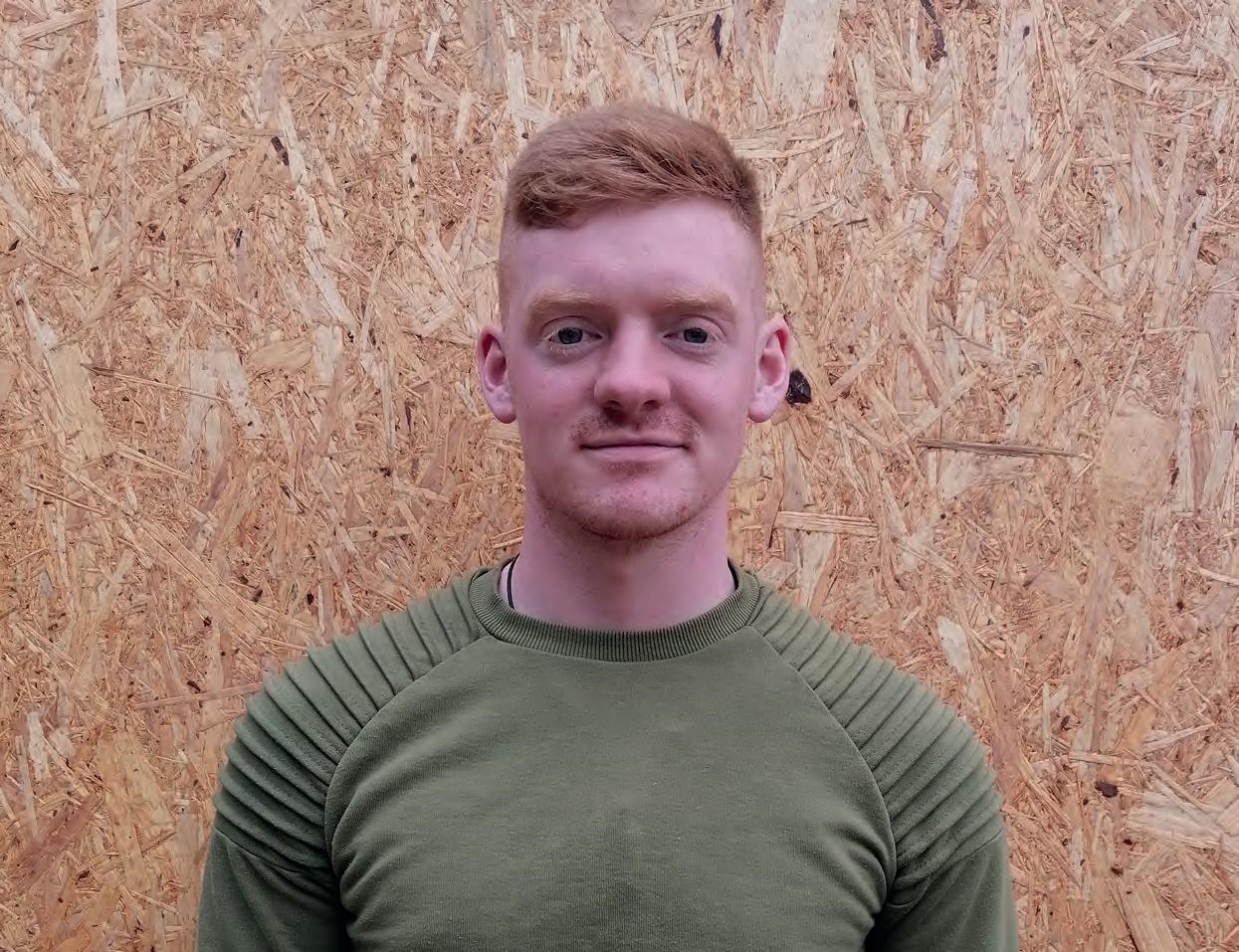
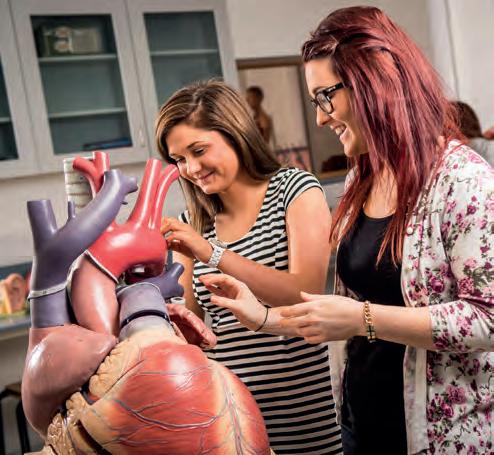
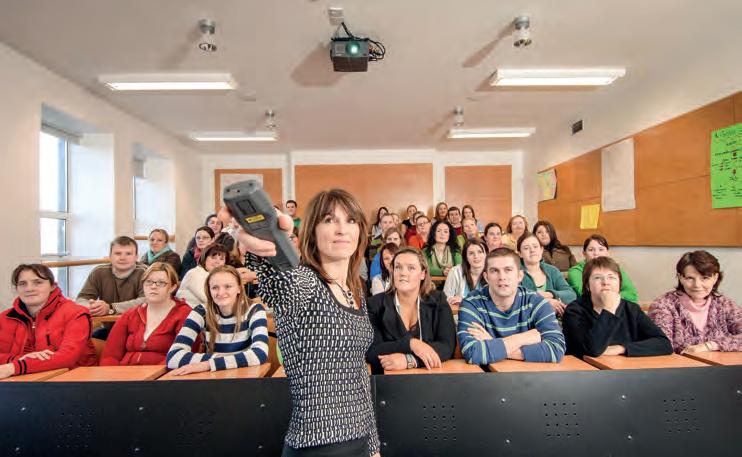
 OTA Maigh Eo
OTA Maigh Eo
Located in Castlebar, ATU Mayo is a responsive and dynamic campus with a population of approximately 1,000 students. We offer undergraduate programmes in health, well-being and society, in addition to a range of part-time, online and postgraduate courses.

Since opening in the west wing of St Mary’s Hospital in 1994, the entire building has been sensitively restored to retain as much of its original architecture as possible, whilst also providing the modern facilities and services required for our students to prosper. State-of-the-art learning facilities include a nursing clinical skills lab, sensory room, heritage lab, computer labs and library.
Our undergraduate programmes have a strong practical ethos and aim to strike a balance between theory and practical. One of our key strengths lies in our smaller class sizes, providing a personal one-to-one approach to learning.
Our expert academic staff offer innovative approaches to teaching and learning that will support students to achieve their very best. Programme content and work placements ensure graduates are equipped for the challenges and opportunities of the modern workplace.
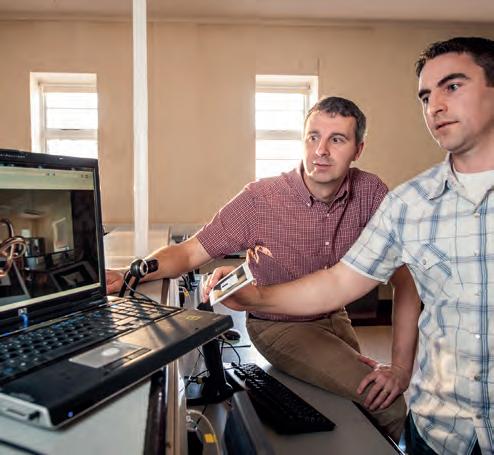
NEW CAO Programmes 2023 at ATU Mayo
In 2011 ATU Mayo was awarded the Green Flag by An Taisce on behalf of the Foundation for Environmental Education (FEE). Initiatives include the development of a sanctuary garden on campus, a forest walk, native tree planting, and a “Save our Swifts” project.
123 Applied Social Care
124 Community Development and Youth Work
125 General Nursing and Psychiatric Nursing
127 Early Childhood Education and Care
129 History and Geography and Culture and Environment
131 Geography and Outdoor Education
133 Outdoor Education
3/4 Years
Social Care is a profession dedicated to changing peoples’ lives for the better so that they can be full and empowered participants in shaping their social world. This programme is for people to want to be a change agent. Students will learn about the multiple causes of social oppression and ways of working with people with a variety of needs so they can be healthy, resilient and free contributors to a caring society. Social care is about liberating people to achieve a better world. This degree is underpinned by an educational philosophy based on dialogue and lived experience. We have a dedicated full-time placement coordinator who works closely with students to ensure the best possible placement experience.
60 Places
265 (Level 8 2021) 241 (Level 7 2021)
Dr Mark Garavan Programme Chair mark.garavan@atu.ie
The career opportunities for the Social Care Worker are varied. Students may pursue postgraduate studies in social care and social work and/ or gain employment in areas including mental health services, community and voluntary organisations, care of the older person, youth work, supporting those in residential care, intellectual disability, addiction services, traveller groups, childcare services and working with individuals or the broader community.
Level 7 graduates may apply internally for Year 4 of the Level 8 programme. ATU Level 8 qualifications are recognised worldwide for postgraduate entry. Social Care graduates may progress on to a wide variety of post-graduate awards such as further studies in social care, social work, health promotion and many other allied disciplines.
Social Care Work is now regulated by CORU under the Health and Social Care Professionals Act 2005. Students who wish to use the professional title of ‘Social Care Worker’ must register with CORU after completing their studies.
Work PlacementThese degrees encourage learners to engage in dialogue, lectures, group work, online learning, case studies and complete practice placements. Through these interactions, learners develop skills, knowledge and practice to work in community development and youth work. The graduate as a critical thinker may work with different groups to promote social inclusion and transformation.
Work Placement
Standard Entry Requirements plus
Garda Vetting
Erasmus+
New Programme
Dr Sheila McArdle Programme Chair sheila.mcardle@atu.ie
only full-time degree of this type
in the West of Ireland to be professionally endorsed by both The North-South Education and Training Standards Committee for Youth Work (NSETS) and All Ireland Endorsement

Education
Training (AIEB).

Opportunities for graduates may include research, national and international youth organisations and services, childhood charities, school completion programmes, partnership companies, child and young people’s service committees, family resource centres, education and training boards, various government departments, e.g. child and youth affairs or rural and community development amongst others.
Level 7 graduates may apply internally for Year 4 of the Level 8 programme.
ATU Level 8 qualifications are recognised worldwide for postgraduate entry.
Professional Practice Placements commence in Year 1 and learners will experience both Community Development and Youth Work placements throughout the programme.
Students can take part in an Erasmus+ placement in Year 3.
4 Years
The BSc (Hons) in General Nursing programme offers an opportunity to study to become a general nurse, exploring core fundamentals of nursing whilst also experiencing some specialities. The programme is supported by state-of-the-art clinical skills laboratories where students can avail of taught sessions and consolidate their learning with practice. All clinical areas are supported by a named link lecturer and students are also supported on clinical placement with a named preceptor.
Year
•
Nursing
•
•
•
•
Social Science
Science for
• Learning and Innovation
• Practice Placement
Year
•
Community Care
• Sociology Applied to Nursing and Healthcare
• Nursing Research and Informatics
• Psychology and its Application to Nursing
• Biological Science for Nursing the Adult with Major Illness
• Nursing Care of the Adult with Major Illness
• Practice Placement 2
• Acute Presentations in Nursing Practice
• Oncology, End of Life and Palliative Care
• Person-Centred Care
• Philosophy and Ethics: Theory and Application
• Legal and Accountable Nursing Practice
• Enquiry in Nursing practice
• Promoting Health
• Practice Placement 3
Year 4
• Clinical practice and Patient Safety
• Development of Management and Interpersonal Skills
• Quality and Patient Safety in Nursing
• Professional Practice in Health Care
• Change and Education in Nursing Practice
• Research Skills in Nursing practice
• Internship (36- week paid placement)
Mandatory Modules Shown
– Electives Available
– Check Website
| ATU Prospectus 2023125 ATU Mayo There are clinical placements throughout the four years of the programme. In Year 4 students will undertake a 36-week paid internship, giving valuable experience and preparing students for their role as a registered nurse. It also incorporates allocated hours for reflection.
30 Places
Graduates will be qualified to work in many health and community settings, acute hospital settings, community care and residential settings. Students may further their studies within a specialist area.
ATU Level 8 qualifications are recognised worldwide for postgraduate entry. Further study opportunities within ATU are currently available in the following areas:
• MSc in Palliative and End of Life Care
• MSc in Quality and Safety in Healthcare
• MSc in Quality and Safety in Social Care
ATU Level 8 qualifications are recognised worldwide for postgraduate entry.
Standard Entry Requirements plus
• A laboratory science subject (Biology, Chemistry, Physics), Physics and Chemistry (joint), or Agricultural Science is required.
• Garda Vetting
440 (Level 8 2021)
Louise Conway Programme Chair louise.conway@atu.ie
The Nursing and Midwifery Board of Ireland (NMBI) provide a lot of information for potential applicants on its website. Check out the information booklet “Nursing, A Career For You”, a link is available from our programme webpage at atu.ie/AU690.
We reserve up to 5% of places for QQI/FET award holders.
 Work Placement
Work Placement
Years
This four-year BSc (Hons) in Psychiatric Nursing offered in conjunction with HSE West and the Nursing and Midwifery Board of Ireland (NMBI) has been developed in response to the changing mental health needs of the Irish population. The role of the mental health nurse is to foster the health and well-being of individuals experiencing changes in their mental health status. All places are offered on this programme subject to satisfactory Garda vetting clearance and health screening.

Year
•
•
Year 2
• Mental Health/Psychiatric Nursing Practice Studies
• Nursing Research and Informatics
• Psychology and its Application to Nursing
• Biology in Mental Illness
• Sociology Applied to Nursing and Healthcare
• Personal and Professional Development for Mental Health/ Psychiatric Nursing
• Practice Placement 2
• Biology in Mental Illness
• Mental Health/Psychiatric Nursing Practice Studies
• Law and Ethics for Psychiatric Nursing
• Enquiry in Nursing Practice
• Personal and Professional Development for Mental Health/ Psychiatric Nursing
• Practice Placement
• Personal and Professional Development for Mental Health Nursing
• Mental Health/Psychiatric Nursing Practice Studies
• Advanced Skills for Mental Health Nurses
• Internship (36- week paid placement)
• Quality and Patient Safety in Nursing
• Research Skills in Nursing Practice
Modules Shown
Electives
Check Website
Successful completion of the course and registration as a psychiatric nurse with NMBI is nationally and internationally recognised. Due to the evolving role of the mental health nurse in modern mental health care systems, many nurses now choose to specialise in areas including: addictions, forensic care and child and adolescent mental health services. Nursing graduates may seek promotional opportunities in clinical practice, management, education and research.
ATU Level 8 qualifications are recognised worldwide for post graduate entry.
The Nursing and Midwifery Board of Ireland (NMBI) provide a lot of information for potential applicants on its website. Check out the information booklet “Nursing, A Career For You”, a link is available from our programme webpage at atu.ie/AU690.
26 Places
• A laboratory science subject (Biology, Chemistry, Physics), Physics and Chemistry (joint), or Agricultural Science is required.
• Garda Vetting
• Health Screening
369 (Level 8 2021)
Agnes Tully Clarke Programme Chair agnes.tullyclarke@atu.ie
We reserve up to 5% of places for QQI/FET award holders.
ATU Prospectus 2023 | 126 ATU Mayo There are clinical placements throughout the four years of the programme. In Year 4 students will undertake a 36-week paid internship, giving valuable experience and preparing students for their role as a registered nurse.
Work Placement3/4 Years
These degrees provide experiences, knowledge and insights into early childhood education and care. Early childhood educators work with children from infancy to primary school. Our programme aims to develop well-informed, articulate professionals who are passionate about early childhood education and care.
There is a strong focus on play and learning, the close relationship to nature and outdoor experiences and children’s rights to participation. This firm academic foundation is cemented by a strong emphasis on the practical application of theory.
Students will spend 12 hours weekly in practice placement in order to provide them with an opportunity to link theory to practice. Students receive ongoing support through placement by an experienced educator.
• Psychology and Child Development
• Importance of Play and Creativity
• Language, Literacy and Numeracy
• Building and Managing Interpersonal Relationships
• Exploring Curriculum
• Pedagogy in Early Childhood Education and Care
• Learning and Innovation Skills
• Health, Safety and Wellbeing
• Practice Development 1 – Quality and Practice
• Early Childhood Law
• Supporting Enquiry with Children to Enact the Curriculum
• Sociological Discourses in Early Childhood Education and Care
• Childhood Development and Learning (under threes)
• Diversity and Equality
• Research with Children
• Learning Environments
• Practice Development 2 – Quality and Practice
• Leadership and Governance in Early Childhood Education and Care
• Trends in Early Childhood Education and Care
• Transitions in Early Childhood Education and Care
• Family-Centred Practice and Supports
• Outdoor Play
• Employment Law
• Practice Development 3 – Action Research
• Professional Relationships in Early Childhood Education and Care Business Management for the Early Year’s Leader
• Reflective Practice
• Innovative Practices in Creativity
• Critical Perspectives on Neurodiversity
• Nature and Place
• Digital Technology and Digital Childhoods
• Practice Development 4 –Supervision and Mentoring
Modules Shown
– Electives Available
| ATU Prospectus 2023127 ATU Mayo Following successful completion of this degree, graduates can undertake a variety of career paths in the education, health and
Check Website
social care fields. Career opportunities include working as an early years practitioner, room leader or manager in an ECEC setting, working as a practitioner, team leader or manager in a social care service
Research Graduates may also work as assistant researchers with voluntary or statutory agencies or academic institutions.
Other opportunities exist within social care settings; early years specialists, voluntary or statutory agencies, Barnardos, Early Childhood Ireland, National Childhood Network, county childcare committees or the Department of Children Equality Disability Inclusion Youth or the Department of Education and Skills.
Upon successfully completing Year 3, Level 7 students can then apply internally for Year 4 Level 8. ATU Level 8 qualifications are recognised worldwide for postgraduate entry. Opportunities also exist for further education at master’s level to pursue careers in research, psychology, speech and language therapy, and primary teaching among others.
30 Places
• Garda Vetting
• QQI applicants with a Level 6 major award may be eligible for direct entry into Year 2.
227 (Level 8 2021) 171 (Level 7 2021)
Joanne Doherty Programme Chair joanne.doherty@atu.ie
In March 2021, this degree was officially recognised as meeting the Professional Award Criteria and Guidelines for Initial Professional Education (Level 8) degree Programme for the Early Learning and Care Sector in Ireland.
*Applicants who hold a QQI Level 6 major award may be eligible for consideration to enter directly into the second year of the ECEC programme on the Mayo or Galway City campus. Applications for direct entry to the second year are by direct application. See the website for more information.
The Level 8 award in Early Childhood Education and Care meets the requirements for Core Funding previously known as Higher Capitation funding by the Department of Children, Equality, Disability, Integration and Youth (DCEDIY).
Work PlacementThis programme provides experiences, insights and knowledge into early childhood education and care. Early childhood educators work with children from infancy to primary school. Our programme aims to develop well-informed, articulate professionals who are passionate about early childhood education and care.
There is a strong focus on play and learning, the close relationship to nature and outdoor experiences and children’s rights to participation. This firm academic foundation is cemented by a strong emphasis on the practical application of theory.
Students will spend 12 hours weekly in practice placement in order to provide them with an opportunity to link theory to practice. Students receive ongoing support through placement by an experienced educator.
Year
•
in Early Childhood Education and Care
• Learning and Innovation Skills
• Health, Safety and Wellbeing
• Practice Development 1 – Quality and Practice
Year 2
• Early Childhood Law
• Supporting Enquiry with Children to Enact the Curriculum
• Sociological Discourses in Early Childhood Education and Care
• Childhood Development and Learning (under threes)
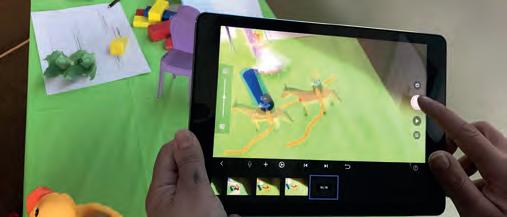
• Diversity and Equality
• Research with Children
• Learning Environments
• Practice Development 2 – Quality and Practice
Following successful completion of this degree, graduates can undertake a variety of career paths in the education, health and social care fields. Career opportunities include working as an early years practitioner, room leader or manager in an ECEC setting, working as a practitioner, team leader or manager in a social care service
Research Graduates may also work as assistant researchers with voluntary or statutory agencies or academic institutions.
Other opportunities exist within social care settings; early years specialists, voluntary or statutory agencies, Barnardos, Early Childhood Ireland, National Childhood Network, county childcare committees or the Department of Children Equality Disability Inclusion Youth or the Department of Education and Skills.
Following successful completion of Year 2 in the Higher Certificate in Early Childhood Education and Care Level 6, students can apply internally for Year 3 of the Level 7 programme. Upon successfully completing Year 3, Level 7 students can then apply internally for Year 4 Level 8. ATU Level 8 qualifications are recognised worldwide for postgraduate entry. Opportunities also exist for further education at master’s level to pursue careers in research, psychology, speech and language therapy, and primary teaching among others.
2
30 Places
Standard Entry Requirements plus
• Garda Vetting
• QQI applicants with a Level 6 major award may be eligible for direct entry into Year 2.
170 (Level 6 2021)
Joanne Doherty Programme Chair joanne.doherty@atu.ieApplicants who hold a QQI Level 6 major award may be eligible for consideration to enter directly into the second year of the ECEC programme on the on the Mayo or Galway City campus. Application for direct entry to the second year are by direct application.See the website for more information.
In March 2021, this degree was officially recognised as meeting the Professional Award Criteria and Guidelines for Initial Professional Education (Level 8) degree Programme for the Early Learning and Care Sector in Ireland.
Work Placement24 Places
201 (Level 8 2021)
201 (Level 7 2021)
transferable skills in digital media,
through practical sessions and field trips. They also have the opportunity to undertake work experience with a relevant host organisation.
Field trips are an important part of the student experience, taking learning into the landscape to reinforce classroom activities.
Students will have the opportunity to visit a range of sites of historical, archaeological and geographical importance as part of their studies.
Graduates may become secondary school teachers (subject to completing the Professional Master of Education). Graduates have found employment as arts administrators, museum curators and education officers, in conservation and research posts in environmental agencies. Graduates have also pursued careers in archaeology, family history and genealogy centres, libraries, civil service, tourism, and establish their own businesses.
Dr Fiona White Programme Chair fiona.white@atu.ie
Level 7 graduates may progress to the Level 8 BA (Hons) in History and Geography (addon) at ATU Mayo. ATU Level 8 qualifications are recognised worldwide for postgraduate entry. Graduates have progressed to postgraduate study at masters and doctoral level in areas including history, archaeology, rural development, architectural conservation, arts management and GIS. In addition, graduates of the Level 8 are eligible to apply for the Professional Master of Education (PME) for teaching at second level.
Studying History and Geography at our Mayo campus will allow students to develop professional skills valued by employers, prepare for a career in the fields of history and geography, acquire transferable skills in digital media and communications, and gain employment in the public or private sector or become self-employed.
Students undertake field trips and practical work outside the classroom as part of their studies. Field trips may be local, national or international.
Graduates who progress to Level 7 and Level 8 will be prepared for careers including an education officer, teacher (following a Professional Masters of Education PME), environmental conservation officer, archaeologist, museum curator, library and archives assistant, rural recreation officer, green schools’ officer, ecologist, tourism officer, historian or a genealogist.
195 (Level 6 2021)
Dr Fiona White Programme Chair fiona.white@atu.ie
ATU Prospectus 2023 | 130 ATU Mayo Students who successfully complete the Level 6 course will be eligible to progress to the Level 7 Bachelor of Arts in Culture and Environment and subsequently the Level 8 Bachelor of Arts (Hons) in History and Geography at ATU Mayo.
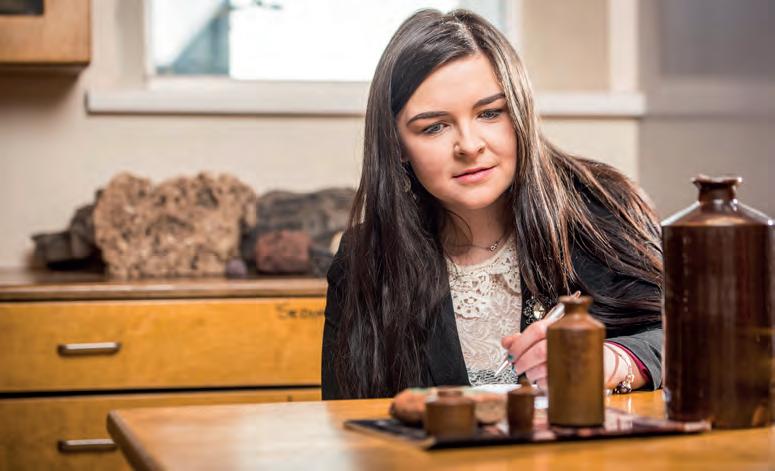
4 Years
This degree combines the study of geography, landscape and adventure. Graduates will be empowered to promote careful use and management of an increasingly threatened natural world and to educate others in the wise use and sustainable outdoor recreation practice. Graduates will have the skills to deliver adventure programmes and interpret the landscape history of the countryside for their clients. Students will work towards National Governing Body (NGB) qualifications in adventure sports while building experience in delivering educational and adventure tourism programmes.
Students undertake field trips and practical work outside the classroom as part of their studies. Mayo’s mountains and the wild Atlantic coast provide an ideal location for fieldwork and practical parts of the course. Students spend one day a week outside developing leadership skills in adventure sports. Building a deep connection with nature and the local landscape are key themes on the course.
Graduates can pursue careers in environmental management, nature conservation, geographical information systems, countryside recreation, trail design, rural and community development, environmental education, and eco/adventure tourism.
The therapeutic, educational, and developmental aspects of outdoor education are well recognised within many sectors in Ireland, such as schools, youth organisations and social care settings.
24 Places
Work Placement
Standard Entry Requirements plus
• Ability to swim 50m to take part in watersport activities.
261 (Level 8 2021)
ATU Level 8 qualifications are recognised worldwide for postgraduate entry. Graduates may progress to the Professional Master of Education to teach geography at second level. Graduates can also apply for masters courses ranging from environmental science, rural and community development, geographical information systems, sustainability, philosophy and youth work. In addition, ATU offers a MSc in Experiential Outdoor Education, Nature and Well-Being.
Orla Prendergast Programme Chair orla.prendergast@atu.ie
Students will have the opportunity to take part in an exchange programme with Western Carolina University, USA where they will study Parks and Recreation for a year in the heart of the Appalachian Mountains. Students can also spend a semester in Sweden at the University of Galva studying Arctic Ecology. We also have an exchange programme with two universities in Norway.

My experience at ATU Mayo has been a wonderful journey of knowledge, gaining personal growth and realising opportunities.
After graduating with BA Hons degree in History and Geography I was awarded the RISE scholarship to pursue a Masters, and later a scholarship to pursue a PhD in Environmental science. My supervisors at ATU Mayo are experts in their fields of research, and I have received consistent support and encouragement. One of the elements that I was most interested in during my undergrad, is the transdisciplary approach to History and Geography course. This interactive (e.g. fieldtrips) and holistic course design enabled me to gain a deeper understanding of the social and cultural context to the Irish landscape, which inspired me to conduct more research in this area. I highly recommend ATU to anyone interested in broadening their knowledge and starting a journey towards exciting career opportunities.
Verena BerardThese degrees combine an exciting mix of academic study and adventure sports skills training. Students will build an understanding of the therapeutic, developmental, and educational role of outdoor education and students will study the Irish natural and cultural landscape, health and fitness, group facilitation, recreation management as well as teaching and psychology. One day a week is spent on adventure sports practicals in Achill, Connemara, and Wild Nephin National Park.
Graduates find employment as instructors in both adventure and outdoor education centres, and other organisations offering adventure sports as part of their programmes. The Outdoor Education programmes respond to the increasing demand for professionals in forest schools, nature kindergartens, adventure and nature therapy, environmental education, ecotourism and natural resource management.
Upon successfully completing Year 3, Level 7 students can then apply internally for Year 4 Level 8 the final year of the Bachelor of Arts (Honours) in Outdoor Education. ATU Level 8 qualifications are recognised worldwide for postgraduate entry.
Graduates can apply for master’s programmes ranging from environmental science, counselling, rural and community development, geographical information systems, sustainability,
40 Places
• Ability to swim 50m to take part in watersport activities.
3/4 Years 269 (Level 8 2021) 166 (Level 7 2021)
Orla Prendergast Programme Chair orla.prendergast@atu.ie
philosophy, youth work, primary school education and sports psychology. In addition, ATU offers a MSc in Experiential Outdoor Education, Nature and Well-Being.
Students gain a range of National Governing Body Adventure Sports leadership qualifications.
There are study abroad opportunities with Western Carolina University, USA. Students will have an opportunity to study
Parks and Recreation for a year in the heart of the Appalachian Mountains. Western Carolina is an excellent location for Whitewater kayaking and a variety of other adventure sports. We also have exchanges with the University of Galva in Sweden and with two Universities in Norway. Students study Outdoor Education and Nordic Ecology for one semester.
My name is Caoimhe Ward. I am from Claremorris, Co. Mayo and am a graduate of the Honours degree in Outdoor Education and Leisure programme on the ATU Mayo campus. I have always loved spending time in the outdoors, not only for recreation but also for wellness. While completing my four-year degree, I obtained many instructorships, which gained me work as an activity instructor with people of all ages and abilities.
During my time at ATU Mayo, I got to experience many adventures in the lakes, rivers, coasts and hills of Ireland and abroad - fully immersing in the local cultures and stories of the localities. The degree is not all practical; we covered a wide range of academic and development modules, which gave me the strength and belief in myself to run for the student union. I am now the Vice President for Mayo ATU SU, a role that I would never have gone for if it weren’t for this course. In the future, I plan to apply for a Master of Science in Outdoor Education, Sustainability and Well-being here at ATU.
 Caoimhe Ward
Caoimhe Ward
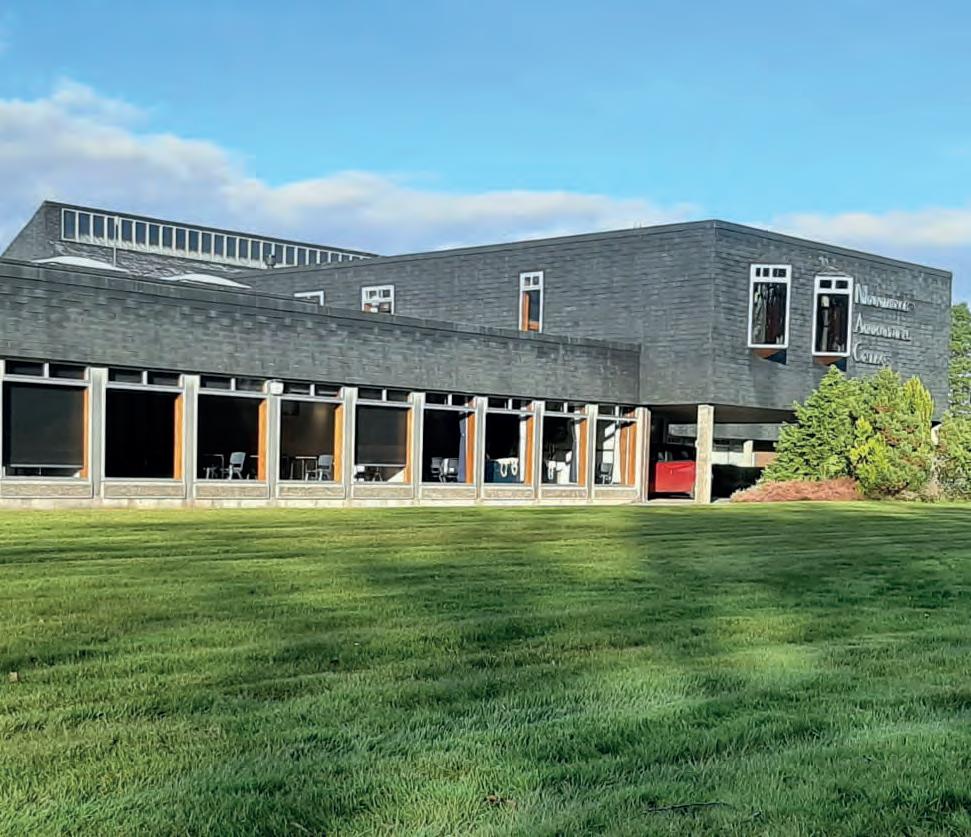 OTA An Creagán
OTA An Creagán
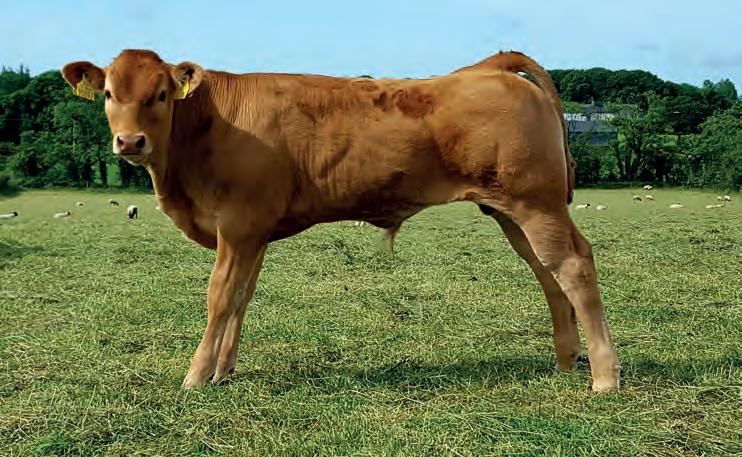

Agriculture, food and environmental management are some of Ireland’s key industries. ATU Mountbellew is one of Ireland’s leading educational institutes offering undergraduate programmes in agri-business, agri-engineering and agri-science. We provide the knowledge, practical experience and expertise to produce outstanding graduates in these areas.
With a total area of 169 hectares, students benefit from practical, handson experience gained on our working farm. We have cow dairy herd (over 80 pedigree Holstein), dry stock (60 cow sucklers, 60-unit calf to beef enterprise, a sheep flock of 250 ewes) and 20 hectares of forestry.
Farm facilities such as a milking parlour, grain store, sheep and cattle housing facilities, and handling facilities means students gain first-hand experience of the modern forms of equipment they can expect to encounter in their future careers.
Internally, our campus has recently seen investment in a state-of-the-art CAD lab, a hydraulics lab, and an engineering lab. Smaller class sizes mean that our lecturers can engage with students on a one-to-one basis.
All agricultural degrees are taught between the ATU Mountbellew campus and the ATU Galway City campus. Typically, students are based at ATU Mountbellew for the first two years and attend ATU Galway City on selected days per week. Students spend third and fourth year at ATU Galway City.
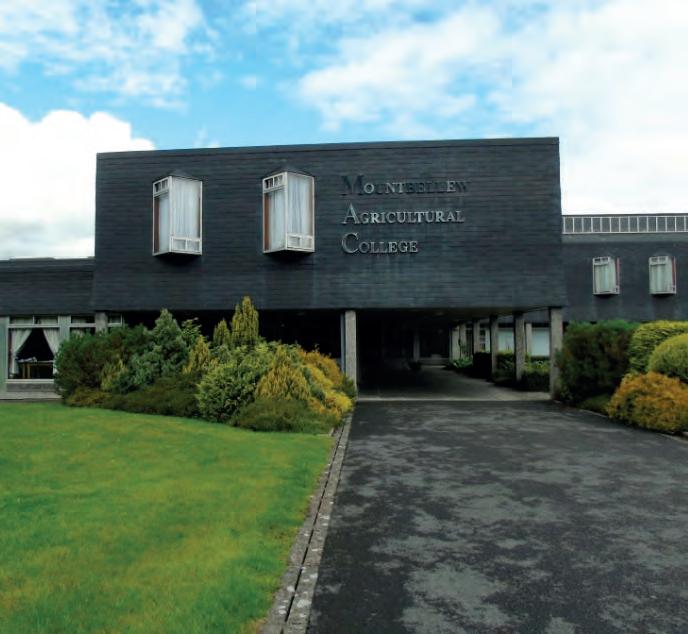

All our programmes offer work placement, meaning students have the perfect opportunity to gain industry experience and transfer their knowledge and skills to everyday life. Graduates have a diverse range of skills allowing them to pursue varied career paths in the agri industry.
Page
Rural Enterprise and Agri-Business
139 Agriculture and Environmental Management
Agricultural Engineering
3/4 Years
Agriculture, food production and environmental management are just a few of Ireland’s key industries. Gaining a degree in this area opens up a host of career options. This programme will enable the learner to improve their knowledge and understanding of general business and to develop business skills, particularly as they apply to the rural enterprise and agri-business sector.
Year 1 of the programme is common with the Bachelor of Science in Agriculture and Environmental Management and is based at our ATU Mountbellew campus (four days per week) and at our Galway City campus (one day per week). At the end of year one, students can choose whether they wish to pursue the Bachelor of Business in Rural Enterprise and Agri-business or the Bachelor of Science in Agriculture
Graduates will be well prepared to operate in a variety of managerial and administrative positions in rural and agrienterprises, or to become self-employed. Graduates can progress to a variety of work in agri-business and agricultural services: for example, in marketing, information processing, administration and management posts; as well as various employment opportunities in rural development.
Level 7 graduates can progress on to the Level 8 programme. ATU Level 8 qualifications are recognised worldwide for postgraduate entry.
20 Places
• O4/H7 Maths
291 (Level 8 2021) 278 (Level 7 2021)
Dr Meghann DruryGrogan
Head of Department of Enterprise and Technology
Work Placement meghann.drury-grogan@atu.ie
Dr Edna Curley Head of Centre, Mountbellew mac@atu.ie
Students reside at Mountbellew for the first two years of this course. Years 3 and 4 are spent at the ATU Galway City campus.
In Year 2 students will be based between our ATU Mountbellew campus, three days per week, and our Galway campus, two days per week.
Students must do a three-month industry work placement in year 2 working in an agri-business.
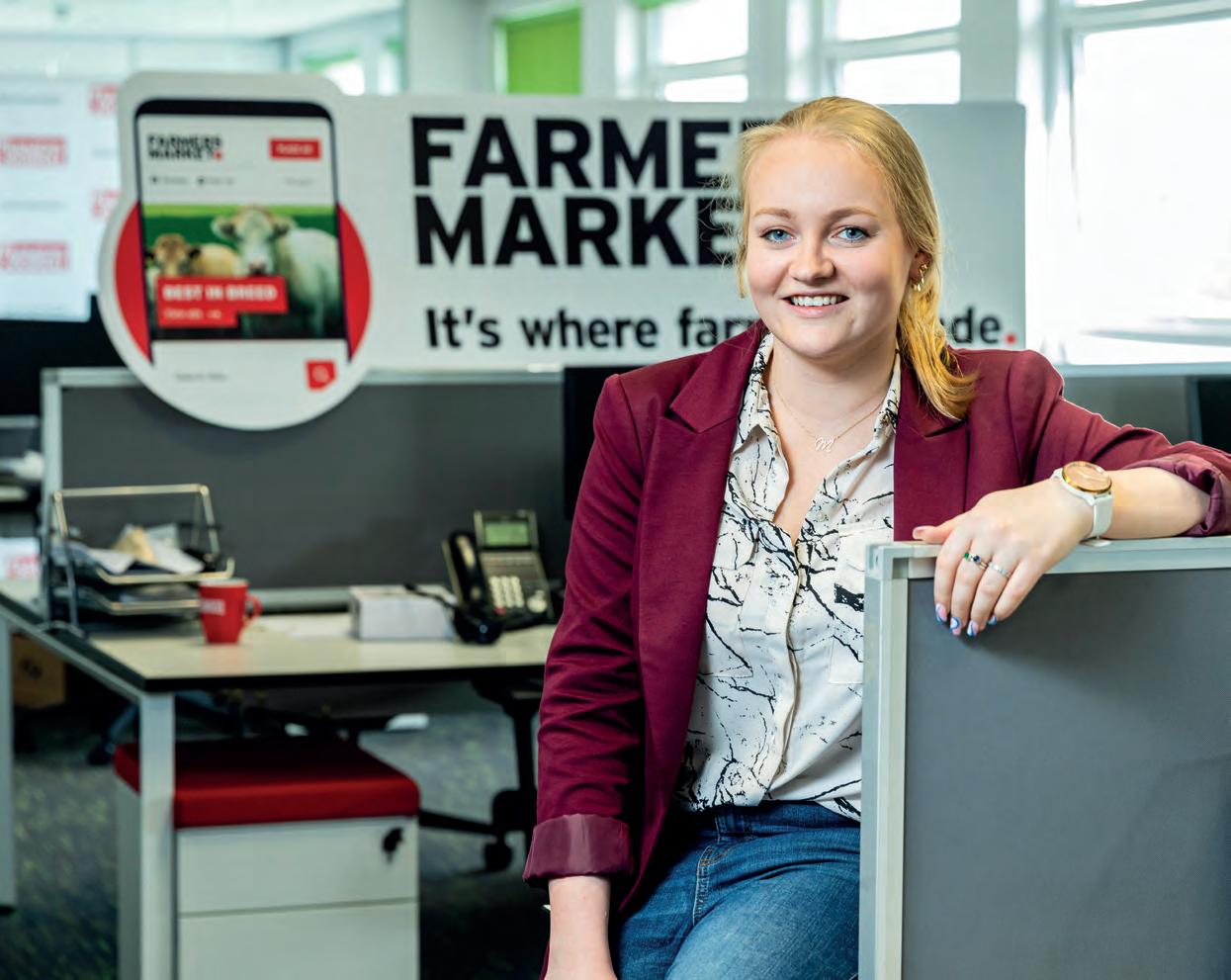
I have always had a passion for agriculture and loved studying business in school. Studying Rural Enterprise and Agri-Business at ATU Mountbellew allowed me to do both. It is a small Agri-college with a big personality where it was easy to settle in and get to know everyone. My time studying was spent on both the ATU Mountbellew Campus and the ATU Galway City Campus. During my industry placement in 2nd year I was based in the Teagasc office in Clonmel working alongside the advisors, meeting farmers, organising discussion groups and completing paperwork. Returning to full time studies in Year 3, I was then based on the ATU Galway City Campus. I absolutely loved getting involved in all the clubs and societies. My course always felt student focused with supportive lecturers, and small class sizes.
My degree gave me the skills and motivation for my first role as a Sales Account Manager with AgriLand Media LTD, all before officially graduating. I have recently moved into a new role as Digital Manager for the Farmers Journal. Along with working full time, I am also studying for my Master’s degree in Digital Marketing.
50 Places
These programmes provide students with a range of specialised skills ideal for employment in the agriculture and environmental sectors. Strong emphasis is placed on sustainability in agriculture and the environment. Graduates of the programme can expect to gain employment in a range of areas including farming, agri-foods, environmental management, consultancy, applied ecology and agri-business. These programmes are highly practical, with a mixture of lectures, fieldwork, laboratory practicals and IT.
Year 1 of the programme is based at ATU Mountbellew four days per week and one day per week at ATU Galway City. Year 2 is based at ATU Mountbellew three days per week and at ATU Galway City two days per week. Years 3 and 4 are spent at ATU Galway City campus. Transport
campuses.
These programmes are extremely ‘hands-on’ with considerable time allocated to the development of practical laboratory skills and Information Technology skills. Thus, the graduates have both the theoretical and practical skills employers require.
Level 7 graduates may apply internally for Year 4 of the Level 8 programme.
ATU Level 8 qualifications are recognised worldwide for postgraduate entry.
The Level 8 programme is designed to meet the Teaching Council Curricular Subject Requirements (Post-Primary). To qualify as an Agri Science teacher students will need to complete a two-year Professional Masters in Education (PME)
340 (Level 8 2021)
281 (Level 7 2021)
Dr Ian O’Connor
Head of Department of Natural Resources and the Environment
ian.oconnor@atu.ie
Dr Edna Curley
Head of Centre, Mountbellew mac@atu.ie
The agriculture sector employs over 170,000 nationally with an annual 26 Billion.
There is no need to have studied any science subject at Leaving Certificate level; the fundamentals of all science subjects are delivered in Year 1.
Year 1 of the programme is common with the Bachelor of Business in Rural Enterprise and Agri-business course (AU606 / AU506).
These programmes are tailored to students who have a particular interest in the design, manufacture, and maintenance of agricultural, horticultural or robust machinery. Combining agricultural science and mechanical engineering with an emphasis on machine design, control and mechanical power transmission, this degree is designed to deliver high-quality engineers to the agricultural, horticulture, mineral processing and agri-food industry.
Students will gain transferable knowledge and skills in engineering design, control, automation and precision manufacturing and agricultural and environmental sciences. These programmes are practical, and feature: weekly practical classes, workshop practice, individual and group projects and work placement experience.
Over
Galway
304 (Level 8 2021) 290 (Level 7 2021)
Alan Connors Programme Chair alan.connors@atu.ie
Dr Edna Curley Head of Centre, Mountbellew mac@atu.ie
Agricultural engineers can work in a diversity of roles, centred around the design, build, service and repair of harvesting and production machinery for the agricultural, horticultural, forestry, mineral processing, and other sectors. In addition, graduates can work in automation, hydraulics, system design and testing, reliability and maintenance, drawing, fabrication, environmental and resource management, finance and sale roles.
Level 7 graduates may apply internally for Year 4 of the Level 8 programme. ATU Level 8 qualifications are recognised worldwide for postgraduate entry.
The Department of Mechanical and Industrial Engineering, has strong research connections with many local industries, and graduates may have an opportunity to register on funded MSc, MEng or PhD research programmes.
Students can enter into Year 2 of this programme via the Engineering Common Entry route AU649 (Level 8) / AU549 (Level 7).
The Level 8 programme meets the requirements for ‘Young Trained Farmer Status’ for the purpose of farm inheritance, grant aids, and tax exemptions. To comply with the requirements, students are required to complete an additional 5 credit subject per year.
National and international paid work placements are available.
This programme is in the process of being accredited by Engineers Ireland.
Work Placement
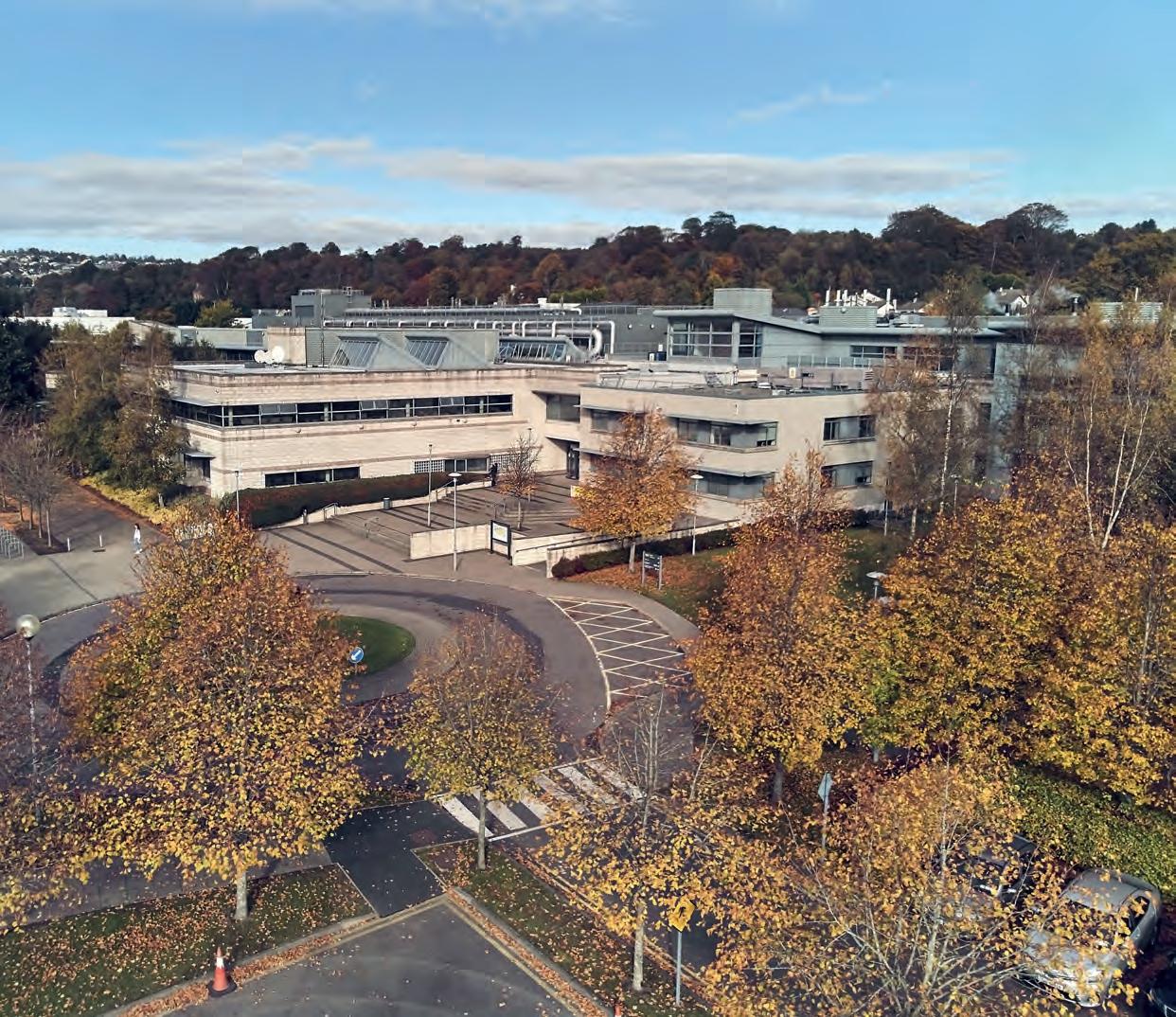
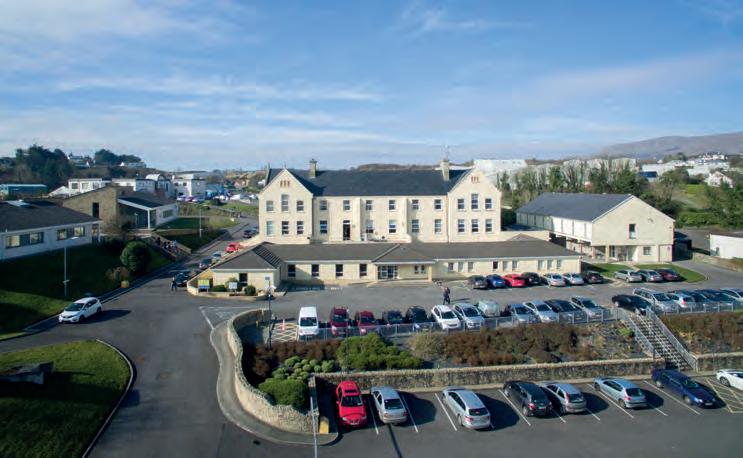
ATU Donegal offers 62 CAO programmes and over 40 postgraduate programmes across three faculties and ten departments. The campus has a student population of 5,000, the majority of whom study at ATU Donegal on a full-time basis. This generates a vibrant on-campus atmosphere. With an exceptional reputation for high academic standards, incredible teaching and learning facilities, in addition to a strong focus on research, it’s no surprise why student numbers have grown exponentially over the last five years at ATU Donegal.
75% of ATU Donegal’s higher certificate, degree and honours degree programmes offer a structured work placement. Our long-standing partnerships with leading employers mean our graduates have a head start in the jobs market.
Our lecture class sizes are small when you compare them to larger universities which provides a real sense of community and collaboration.
Employability is a central focus of ATU Donegal’s academic programmes. In 2021, 85% of ATU Donegal graduates either secured work or pursued further study within four months of graduating. There has been a 47% increase in student enrolment figures at ATU Donegal over the last eight academic years.
AU312 BA (Hons) in Communications with English 8
AU311 BA (Hons) in Corporate Law 8
AU322 BA(Hons) in Hospitality Management 8
AU363 BSc (Hons) in Computing with Data Science and Artificial Intelligence 8
AU362 BSc (Hons) in CyberPsychology 8
AU352 BEng (Hons) in Biomedical Design 8
AU353 BEng (Hons) in Engineering (Common Entry) 8
AU372 BSc (Hons) in BioAnalytical Science 8
AU370 BSc (Hons) in Food Science & Nutrition 8
AU373 BSc (Hons) in Pharmaceutical & Medicinal Science 8
AU270 BSc in Science (Common Entry) 7
AU221 BA in Tourism & Hospitality Operations 7
AU222 BSc in Sports & Exercise 7
AU242 BSc in Construction (Arch. Technology or Const. Management) 7
AU243 BEng in Building Engineering (Common Entry) 7
AU262 BSc (Hons) in CyberSecurity and Digital Forensics 7
AU253 BEng in Engineering (Common Entry) 7
AU252 BEng in Electric Vehicle Engineering 7
AU290 BSc in Inclusive Practice for Special Needs Assistance 7
This programme equips graduates to succeed on the global business stage by enabling them to be forward-thinking and have the capacity to act as catalysts for growth in organisations. It reflects the intrinsic need to develop the next generation of leaders who understand how to manage innovation and drive an organisation forward in the digital age, harnessing the skills to excel in today’s dynamic business environment.
In addition to learning basic business skills in Year 1 to advanced skills in Year 3, students will have the opportunity to select from specialised areas including UX and design thinking, decision making techniques, project management and organisational change to further enhance their knowledge based on their own preferences.
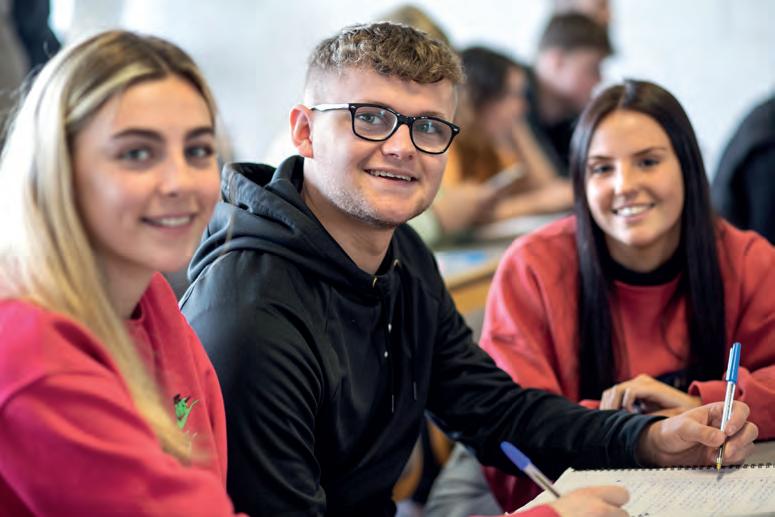
Graduate careers typically include talent management, consultancy, operations, business development, marketing, retail, financial services, secondary school teacher or self-employed.
Graduates may progress to the Higher Diploma in Business in Finance and Technology (FinTech), Master of Science in Marketing, Master of Science in Strategy, Enterprise and Innovation and various Master’s degrees in institutes and universities in Ireland and abroad.
Students have the option to take a one-year work placement in Year 3, meaning the modules shown in Year 3 would be taken in Year 4.
Reserved places apply for 10 QQI FET applicants on this programme.
288 (Level 8 2021)
Patricia Doherty Head of Deptartment of Business Studies patricia.doherty@atu.ieThis degree meets the registration requirements set down in the Teaching Council [Registration] Regulations in respect of the curricular subject of ‘Business’.
If you want to build a career in the accounting profession, this course is for you. Over three years you will develop the core accounting and finance skills needed to perform at a highly competent level in the accounting profession. You will also develop a complementary range of business skills that will equip you to work in a variety of positions in teaching.
Accounting courses at ATU Donegal attract generous exemptions from the examinations of professional accountancy bodies including ICA, ACCA, CPA, and CIMA. Graduates will also have the opportunity to progress onto the MA in Accounting which offers even further significant exemptions. Holders of the Diploma for Accounting Technicians Qualification get advanced entry into Year 2 of this programme.
Successful graduates find themselves typically working in a large multinational firm or an accountancy practice. The majority of graduates go on to qualify as professional accountants.
Graduate careers typically include a qualified accountant (ICA, ACCA, CIMA, ICA), taxation, banking, financial services, FinTech or secondary school teaching.
Some further study options include the Higher Diploma in Business in Finance and Technology (FinTech), Masters of Arts in Accounting or Postgraduate Diploma in Accounting or the Masters of Science in Strategy, Enterprise and Innovation.
Students have the option to take a one-year work placement in Year 3, meaning the modules shown in Year 3 would be taken in Year 4. Students who choose work placement can graduate with the award Bachelor of Business (Hons) in Accounting Practice.
312 (Level 8 2021)
Patricia Doherty Head of Deptartment of Business Studies patricia.doherty@atu.ieReserved places apply for 10 QQI FET applicants on this programme.

Professional accountancy bodies including ICA, ACCA, CPA and CIMA. This degree meets the registration requirements set down in the Teaching Council [Registration] Regulations in respect of the curricular subject of ‘Accounting’.

3 Years
This new marketing with online technologies degree responds to the changes that have taken place in the marketing discipline. It seeks to develop marketing graduates that are equipped with the requisite skills for Industry 4.0 recognising that marketing graduates must now possess the required skills for the dynamic digitised economy.
Year
•
This programme reflects the intrinsic need to develop marketers who have a strategic approach towards the marketing function and can also leverage online technologies to connect with current and prospective customers.
Graduates from this programme will be equipped with a skill set that is in demand regionally, nationally, and internationally. Careers include working as a marketing manager, brand manager, digital marketing manager, sales and marketing manager, brand communications specialist, social media analyst, consumer insights analyst, market research analyst, content marketing executive, consumer planning and insights executive, and campaign marketing manager.
Some further study options include the Higher Diploma in Business in Finance and Technology (FinTech), Master of Science in Marketing, Master of Science in Strategy, Enterprise and Innovation and various Masters degrees in institutes and universities at home and abroad.
Students have the option to take a one-year work placement in Year 3, meaning the modules shown in Year 3 would be taken in Year 4. Students who choose work placement can graduate with the award Bachelor of Business (Honours) in Marketing Practice with Online Technologies.
Work Placement
Patricia Doherty Head of Deptartment of Business Studies patricia.doherty@atu.ie
Reserved places apply for 10 QQI FET applicants on this programme.
| ATU Prospectus 2023145 ATU Donegal Letterkenny 261 (Level 8 2021)
Having completed his Leaving Certificate at the Royal and Prior College in Raphoe, Donegal, Luke began studying the Bachelor of Business (Hons) programme at ATU Donegal. Luke loved the course from the beginning and knew instantly that it was the right choice for him. Having grown up working in family businesses over the years, he was excited to develop his skills and business knowledge. In October 2018, on the night of his graduation, Luke and his brother Caine opened the doors to Luca’s Restaurant in Letterkenny. Luca commented, “While studying at ATU Donegal, I learned about the principles of business with accountancy, marketing and management modules. This invaluable knowledge helped me to understand how business operates. It is something that I practice in my own business now on a daily basis. The accountancy modules gave me an insight into the financial side of a business and inevitably taught me how to make my business profitable. The marketing module has aided me to develop social media campaigns to market Luca’s. On a regular day at Luca’s, I manage a team of 12 – 15 employees. The management modules prepared me for this aspect and most importantly, it provided me with the skills to build good relationships with my customers.”
 Luke Johnston
Luke Johnston
This programme, which has degree award options in Accounting, Management, and Marketing with Online Technologies is designed to enable students to study business and explore specialisms as they progress through their degree. Students will be given a broad overview of the business world before specialising in Year 3. This is a unique and flexible course, designed to allow students to pursue their interest in an area of business that most inspires them.
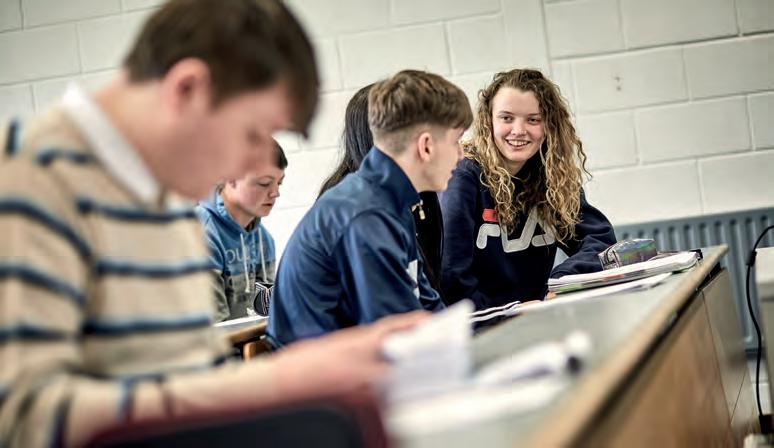 Patricia
Patricia
Many students know they want to study business at university but are not quite sure which specific area of business they would like to focus on.
That’s why this common entry programme is so popular as it provides the opportunity to try different modules before specialising.
Careers for Bachelor of Business in Management graduates include working as a trainee manager, human resource assistant, procurement officer, and administrator. They may also work in operations, business development and finance and insurance.
Careers for Marketing with Online Technologies graduates include working as a marketing executive or assistant, advertising or public relations executive, market researcher, sales and marketing executive or a digital marketing executive.
Careers for Accounting graduates include working as a book-keeper, accounts administrator or various other finance roles. Most graduates of this degree will progress to the Level 8 programme with a view to later completing their professional accounting exams (ICA, ACCA, CIMA, ICA).
Graduates may apply to join Year 4 of the Level 8 programme in their chosen specialist discipline. ATU Level 8 qualifications are recognised worldwide for postgraduate entry.

Meets the registration requirements set down in the Teaching Council [Registration] Regulations in respect of the curricular subject of ‘Business’.
This programme has been designed to provide students interested in Art and Design with an opportunity to try various subject areas before choosing a specialism. Our common entry programme gives students the opportunity to take modules in Animation, Film and Media Production, Graphic and UX Design, Fashion Design with Promotion, as well as core art and design modules, before having to choose a specialist area in the Level 8 degree.
The first semester of this programme is common to all students. The modules studied will give equal exposure to Animation, Film and Media Production, Graphic and UX Design and Fashion Design with Promotion. Students choose their specialist area in the second semester.
•
Graphic
Year
•
Year
Graduate careers from the Animation stream typically include storyboard artist, 2D animator, 3D animator, special effects artist, character design, environment designer.
The Graphic and UX Design stream allows graduates to work as a graphic designer, advertising and art director, UX/UI/IxD designer, web designer, interactive media designer, motion graphics designer, print and publishing designer, freelance designer and illustrator.
Film and Media Production opportunities include pre-production designer, on location film crew member (camera/sound), post-production editor, special effects producer, independent film/ video producer.
Fashion Design with Promotion often leads graduates to become a fashion designer, e-tailer, fashion stylist, shoot and production assistant, visual merchandising, fashion photographer/filmmaker, fashion advertising and marketing assistant, fashion illustrator, fashion blogger, and fashion buyer.
ATU Level 8 qualifications are recognised worldwide for postgraduate entry.
Reserved places apply for 10 QQI FET applicants on this programme.
This common entry-degree in Design offers four different pathways to Animation, Fashion Design with Promotion, Graphic and UX Design or Film and Media Production after the first semester.

This programme is designed to cater for emerging opportunities across the film and media sector in the key areas of digital film production planning, story and script, audio, design, special effects, compositing and editing.
An enterprise and entrepreneurship ethos is embedded in modules. This programme engages traditional and emerging practices to cater for the needs of the film and media industry. Self-directed practice will be a key component across several modules that will focus on audience and market.
Graduates may find work as a pre-production designer, on location film crew member for camera and sound, post-production editor, special effects producer, and as an independent film or video producer.
Graduates may apply to join Year 4 of the Level 8 programme in Film and Media Production. ATU Level 8 qualifications are recognised worldwide for postgraduate entry.
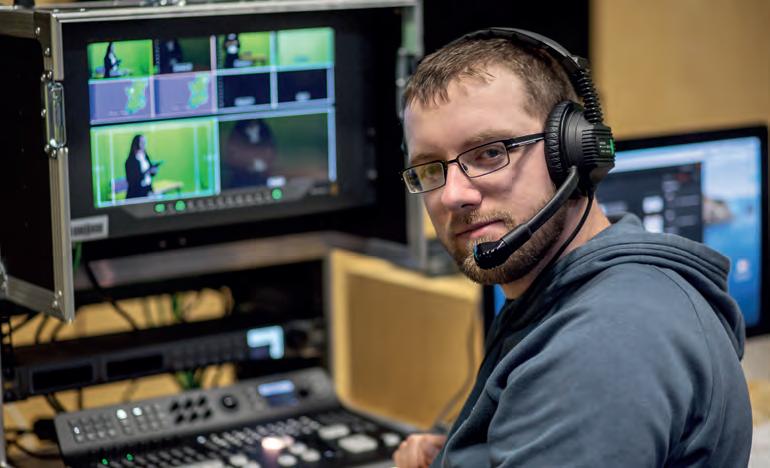
Students have the option to take an Erasmus+ semester abroad as part of this degree.
Reserved quotes apply for 10 QQI FET applicants on this programme.
Maths
(Level 7 2021)
Nollaig Crombie Head of Department of Design and Creative Media nollaig.crombie@atu.ie
Niamh Porter had always dreamed of studying a third-level programme within the area of Art and Design. Inspired by her secondary school art teacher, Niamh began studying the Fashion with Promotion degree programme at ATU Donegal.
Niamh loved the course and enjoyed the small class sizes which provided her with valuable one-to-one time with the academic team from the Department of Design and Creative Media. The most enjoyable aspect was the freedom to discover her own style and what aspect of fashion she wished to focus on. Since graduating, Niamh has designed for Zendaya, Michelle Obama and Mary J. Blige and is now Social Media Manager for Junk Kouture. Niamh added, “Don’t be afraid to dream big, to be yourself and to concentrate on your own journey.”
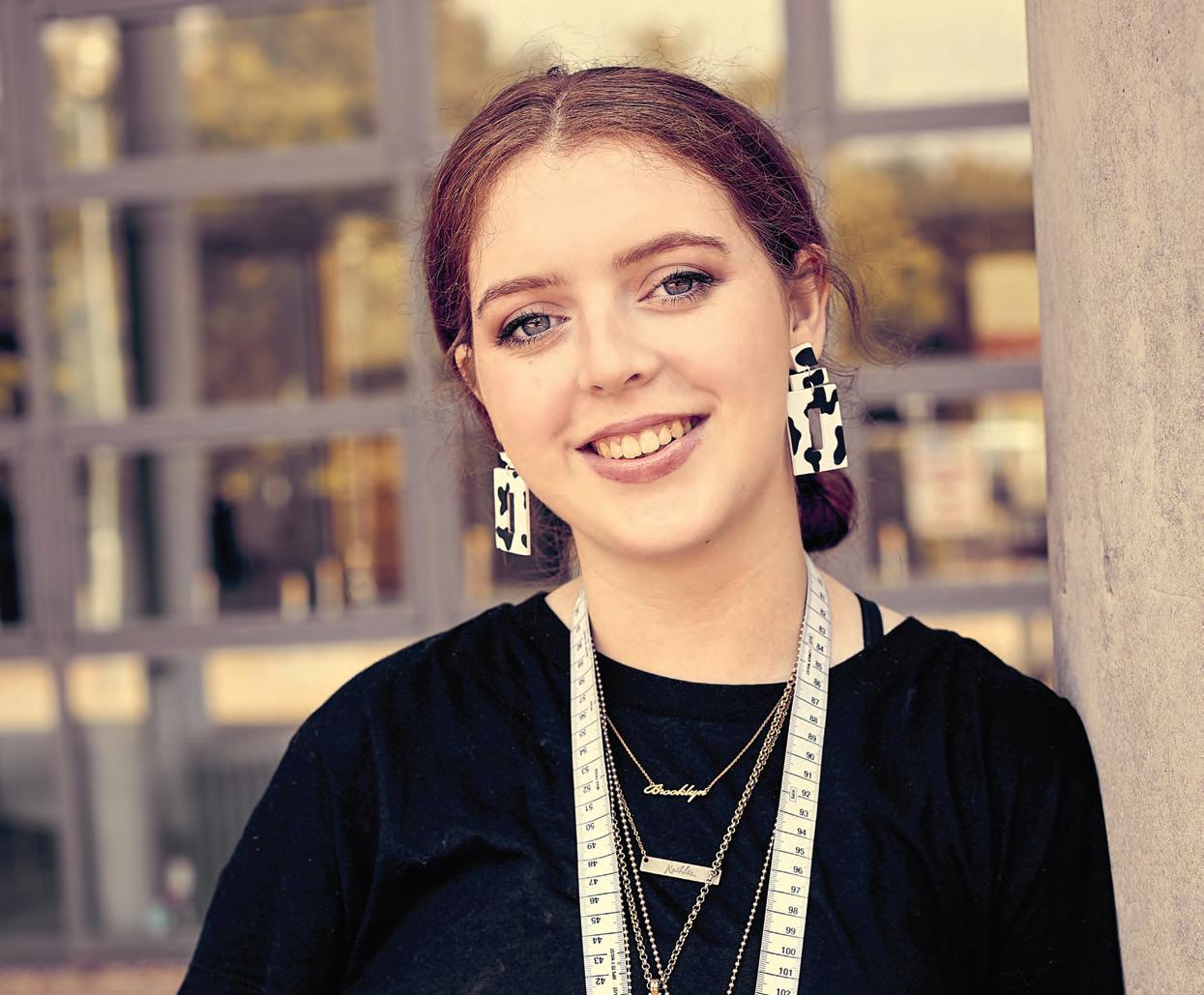
This programme is for students who are creative, innovative, and business minded. They may have a flair for fashion or want to bring innovation and business acumen to the fashion industry. Or they may want to develop fashion products and use photography and film to promote a business idea online.

Students on this programme will explore their own creative strengths. In each year students will complete a fashion design project, which is very much concept driven.
Year
•
•
3
Graduates find work as a visual PR consultant for a fashion company, fashion stylist, shoot and production assistant, visual merchandiser, fashion photographer or filmmaker, fashion advertising and marketing assistant, fashion illustrator or as an e-tailer. Successful graduates usually work in fashion houses, retail or as independent designers or makers.
Graduates may apply to join Year 4 of the Level 8 programme in Fashion Design with Promotion. ATU Level 8 qualifications are recognised worldwide for postgraduate entry.
Reserved places apply for 10 QQI FET applicants on this programme.
Work
Standard Entry Requirement plus
• Art or Graphic Design O6/H7 or
• Portfolio
• Maths not required
Nollaig Crombie Head of Department of Design and Creative Media nollaig.crombie@atu.ie
ATU Prospectus 2023 | 154 ATU Donegal Letterkenny 189 (Level 7 2021)
3 Years
Graphic and UX Design is one of the most rapidly changing design disciplines, demanding that the graphic designer continuously responds with creativity and ingenuity to the demands of a visually literate public whose expectations of what is possible continue to rise. It is a continuous challenge to the designer to create inventive visual content.
This programme aims to immerse the student in a wide range of design disciplines, from photography and image making to motion graphics and interactive design, allowing the graduate to creatively apply and continuously develop their knowledge in the professional world.
Year 1
• Visual Enquiry
• Communications and Creative Process
• Graphic Design: Fundamentals
• Photo Fundamentals
• Art and Design History 1 and 2
• Graphic Design: Layout Image: Illustration and Art Direction
• UX Design: Process
Year 2
• Graphic Design: Identity
• Image: Motion Design Fundamentals
• UX Design: Applied
• Graphic Design History 1 and 2
• Graphic Design: Spatial
• Image: Dynamic Identities
• UX Design: User Interface
Year 3
• Graphic Design: Publication
• Image: Advertising and Brand Strategy
• UX Design: Personal Promotion
• Design Theory: Advertising and Branding
• Professional Design Practice
• Contemporary Theory
Additional elective modules are available
Graduates may find employment in the visual communications, graphic and UX design industries both in Ireland and abroad. The skills acquired are highly transferable. Employers range from brand, advertising and marketing agencies to companies with in-house marketing teams, publishers, the media, graphic design consultancies and web design companies. Many designers also set up their own business.
Graduate careers typically include graphic designer, advertising and art direction, UX/UI/IXD designer, web designer, interactive media designer, motion graphics designer, print and publishing designer, freelance designer and illustrator.
Graduates may apply to join Year 4 of the Level 8 programme in Graphic and UX Design. ATU Level 8 qualifications are recognised worldwide for postgraduate entry.
Reserved places apply for 10 QQI FET applicants on this programme.
24 Places
Work Placement
Standard Entry Requirements plus
• Art or Graphic Design 06/H7 or
• Portfolio
• Maths not required
Erasmus+
188 (Level 7 2021)
Nollaig Crombie Head of Department of Design and Creative Media nollaig.crombie@atu.ie
The Communications with English programme includes contemporary aspects of communications such as communications and creativity, applied communications, media and communications law and emerging technologies. This programme embeds strong links with industry which enables learners to undertake an industry-driven capstone project.
Graduates from this programme will have an understanding of the communications industry and also the fundamentals of English which aligns with the aspect of communications. The core English modules required for Teaching Council registration are all included in this programme. Graduates will also have a broad knowledge of literature, writing skills, critical thinking and film studies.
Graduates may find work as a managing editor, copywriter, marketing officer, secondary school teacher, communications officer, or content marketing officer.
ATU Level 8 qualifications are recognised worldwide for postgraduate entry.
Reserved places apply for 10 QQI FET applicants on this programme.
3 Years
50 Places
• Min. H5 in English
NEW Programme
Siobhan Cullen Head of Department of Law, Public Service and Education siobhan.cullen@atu.ie
ATU Prospectus 2023 | 156 ATU Donegal Letterkenny Meets the registration requirements set down in the Teaching Council [Registration] Regulations in respect of the curricular subject of ‘English’.

This new programme in Corporate Law includes subjects such as contemporary aspects of corporate law, banking law, financial services regulation, insurance law, commercial law and privacy/data protection.
Graduates from this programme will have an understanding of the Irish legal system and legal processes and also the fundamentals of business and corporate law.
This is a qualifying law degree which means that it contains all the requisite core law modules required to support graduates to undertake entrance exams for the Law Society of Ireland, should they wish to qualify as a solicitor.
Successful graduates find work in the legal profession, law enforcement, journalism, social work, advocacy, and the civil service.
Graduate careers include working as a solicitor or barrister, legal executive, company secretary, legal advisor, researcher, journalist, or in banking and finance.
Graduates of this programme may choose to continue their studies on the Masters of Arts/PG Diploma in Governance, Compliance and Data Protection in Financial Services. ATU Level 8 qualifications are recognised worldwide for postgraduate entry.
Reserved
Erasmus+
siobhan.cullen@atu.ie
Qualifying Law Degree:
• Accredited law degree by Kings Inns
• Accredited law degree by the Institute of Professional Legal Studies (Northern Ireland)

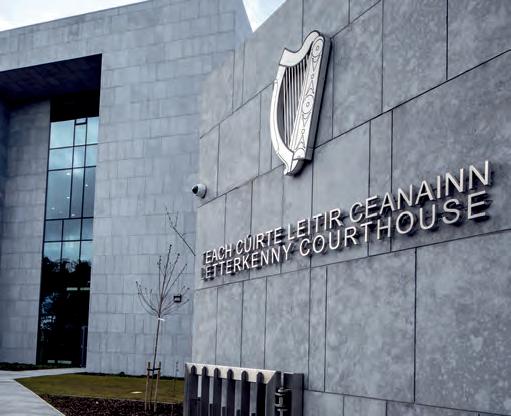
• Approved law degree to sit the final examination of the Law Society – first part FE1

50
This programme is a three-year honours law degree and has approved degree status with the Kings Inns along with a qualifying law degree status with the Institute of Professional Legal Studies (Northern Ireland).

It combines study of the core areas of law with new and emerging areas of legal study such as alternative dispute resolution, human rights, media law, and street law. Third year students can undertake a work placement and other clinical/practical modules based on experiential learning or teach Street Law classes within the community and local schools.
Successful graduates find themselves working in the legal profession, law enforcement, journalism, social work, advocacy, or the civil service.
Graduates typically work as a solicitor or barrister, legal executive, company secretary, legal advisor, researcher, journalist or in banking and finance.
Graduates from the Level 8 programme may progress to the Masters of Arts/PG Diploma in Governance & I.T in Financial Services.
ATU Level 8 qualifications are recognised worldwide for postgraduate entry.
Reserved places apply for 10 QQI FET applicants on this programme.
Erasmus+
300 (Level 8 2021)
Siobhan CullenHead of Department of Law, Public Service and Education
siobhan.cullen@atu.ie
Qualifying Law Degree:
• Accredited law degree by Kings Inns
• Accredited law degree by the Institute of Professional Legal Studies (Northern Ireland)

• Approved law degree to sit the final examination of the Law Society – first part FE1

This programme is for students who have an interest in how law is practiced and what it means in everyday life. Legal education provides entry to a range of rewarding and stimulating careers. This programme allows the student to combine the study of a law degree with criminal justice.
Students will have the opportunity for work placement or street law which involves teaching Law to the community or local schools. For students interested in crime, criminology, conflict resolution and practical application of the law, this programme will provide a gateway to a wide range of exciting careers.
Successful graduates find work in the legal profession, law enforcement, journalism, social or youth work, advocacy, civil service, public service, legal analyst and compliance roles.
Graduate careers typically include work as a solicitor, barrister or legal executive. Other options include working as a company secretary, legal advisor, researcher or journalist. Graduates will also find work with civil service regulatory bodies in criminal justice, the Gardaí, advocacy, probation and social work.
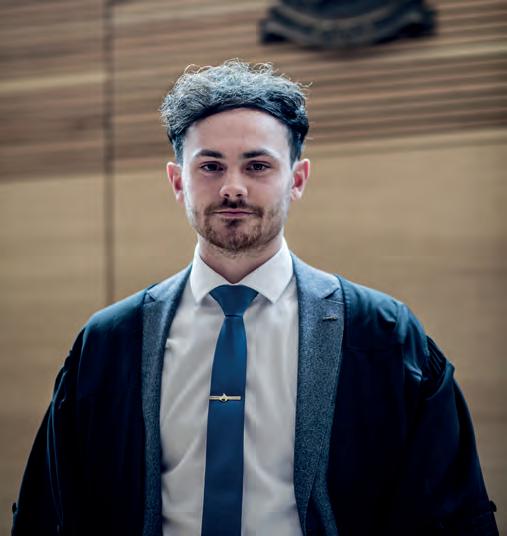
Graduates may apply to join Year 4 of the Level 8 programme in Law with Criminal Justice. ATU Level 8 qualifications are recognised worldwide for postgraduate entry.
70 Places
Erasmus+
161 (Level 7 2021)
Siobhan Cullen Head of Department of Law, Public Service and Education
siobhan.cullen@atu.ie
Reserved places apply for 10 QQI FET applicants on this programme.
Qualifying Law Degree:
• Accredited law degree by Kings Inns
• Accredited law degree by the Institute of Professional Legal Studies (Northern Ireland)

• Approved law degree to sit the final examination of the Law Society – first part FE1

 Chris Chan BL was called to the Bar of Ireland in 2020 by the former Chief Justice of Ireland, The Hon Mr Justice Frank Clarke. Chris is registered as a Practising Barrister with the Legal Services Regulatory Authority and he is currently working as Corporate Legal Counsel for Ancestry, the largest genealogy company in the world. Chris graduated from ATU Donegal’s Letterkenny campus in 2016 and has gone on to achieve great success since graduating with an honours degree in Law with Criminal Justice.
Chris Chan BL
BA (Hons) in Law with Criminal Justice
Chris Chan BL was called to the Bar of Ireland in 2020 by the former Chief Justice of Ireland, The Hon Mr Justice Frank Clarke. Chris is registered as a Practising Barrister with the Legal Services Regulatory Authority and he is currently working as Corporate Legal Counsel for Ancestry, the largest genealogy company in the world. Chris graduated from ATU Donegal’s Letterkenny campus in 2016 and has gone on to achieve great success since graduating with an honours degree in Law with Criminal Justice.
Chris Chan BL
BA (Hons) in Law with Criminal Justice
This programme is intended for adult learners who wish to return to study after a break in their education experience and who may not have benefited from, or had access to, previous educational opportunities. Students who are successful on this programme will have the educational qualification for admission to higher education courses in a wide range of disciplines. This will not depend on the particular electives chosen. The skills, knowledge and competencies developed by the students during this programme should ensure a reasonable prospect of success in subsequent studies.
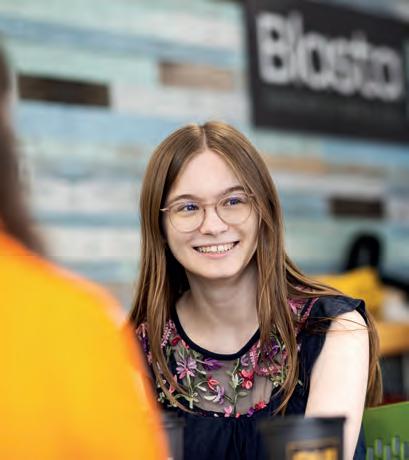
•
•
•
•
•
Siobhan Cullen Head of Department of Law, Public Service and Education siobhan.cullen@atu.ie• School leavers between the ages of 17-22 years who have been out of school for at least 2 years and who meet the socioeconomic and academic criteria as set down by the institution.
• Adult students 23 years of age or over on 1st January of the year of application to the Access Course. There are no specific entry requirements, such as Leaving Certificate but applicants may have to sit an aptitude test or undergo an interview.

• Current LCA students, who have 160 credits may apply.
Students who successfully pass this programme with an overall average of 50% or over will have the opportunity to progress to any programme of their choice (except Nursing) at ATU Donegal. Quotas may apply for some programmes.
Direct Entry3 Years
This three-year honours degree programme is designed to enable students to experience a broad education in hospitality and tourism studies.
Throughout this programme, students will gain oversight on every aspect of the sector, from bar and restaurant operations to rooms division management, as well as culinary skills and revenue management. This programme will empower students to embark on an exciting career with the opportunity to travel far and wide with their qualifications.
Students can choose to take a semester abroad as part of the Erasmus+ programme with this degree.
Graduate careers typically include working as a hotel manager, room division manager, food and beverage manager, event coordinator, conference and banqueting manager, club/resort manager or a food and beverage sales executive.
Graduates find work in the hotel industry, bars and clubs, as well as cruise ships, airlines and catering companies.
ATU Level 8 qualifications are recognised worldwide for postgraduate entry.
A one-year optional work placement will be available to those students who have successfully completed 120 credits in Year 2 (min GPA 50%). The work placement will provide learners with the opportunity to gain valuable practical experience in the hospitality sector. Students who chose the work placement will study the Year 3 modules in Year 4.
40 Places Erasmus+
Nicola Dunnion Head of Department of Tourism and Sport nicola.dunnion@atu.ie
Reserved places apply for 10 QQI FET applicants on this programme.
This programme is for students who want to work in the tourism industry. It is experiential in nature and combines practical classes, field trips and work experience all of which will equip a graduate to work in tourism and hospitality in Ireland and around the world.
This programme focuses on the operational aspect of hospitality management. Students study subjects such as bar and restaurant operations, beverage management, rooms division management and culinary skills. In addition, students will acquire the digital skills required to work in the sector. They also study tourism and discipline specific subjects such as guiding and tourism destination development.

Graduate careers typically include working as a sales and marketing executive, conference and events executive, food and beverage sales executive, rooms division manager, event coordinator, conference and banqueting manager, club/resort manager or a tour guide.
Graduates may apply to join Year 4 of the Level 8 programme. ATU Level 8 qualifications are recognised worldwide for postgraduate entry.
Reserved places apply for 10 QQI FET applicants on this programme.
This full-time, three-year Level 7 programme is an advanced professional training programme for aspiring professional chefs who wish to extend their education beyond general training into specialised kitchen functions. It prepares participants for professional careers in the field of culinary arts, savoury, bakery and confectionary.
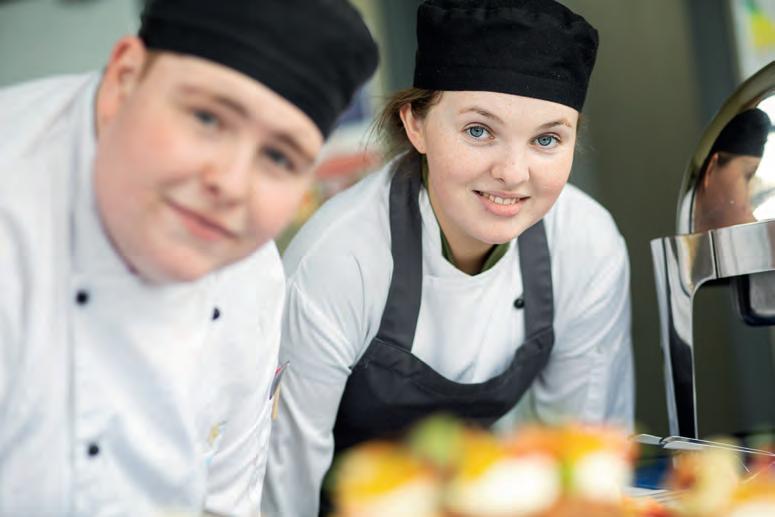
Students can choose to take a semester abroad as part of the Erasmus+ programme with this degree.
Graduate careers typically include working as a chef, head chef, executive chef, pastry chef, baker or food production manager. Successful graduates find themselves working in hotels, restaurants, cruise ships or contract catering.
Erasmus+
205 (Level 7 2021)
Nicola Dunnion Head of Department of Tourism and Sport nicola.dunnion@atu.ie
Reserved places apply for 10 QQI FET applicants on this programme.
Graduates may apply to join Year 4 of the Level 8 programme in Professional Kitchen Management. ATU Level 8 qualifications are recognised worldwide for postgraduate entry.
Daniel chose ATU Donegal after researching degree programmes in Culinary Arts. It was the reputation of the campus, and the fact that many celebrity chefs had studied Culinary Arts at the Killybegs campus, which attracted Daniel to the programme. During his time at ATU Donegal, Daniel undertook work placements in some renowned restaurants including Neven Maguire’s MacNean House and Restaurant.
Daniel is a familiar face on TV and has a regular culinary slot on Ireland AM’s morning show. In addition to having a successful TV career, Daniel has a TikTok platform with 3.5million likes. Since graduating from ATU Donegal’s Culinary Arts degree, Daniel has developed a successful career as a food marketer, a celebrity chef and a social media content creator.
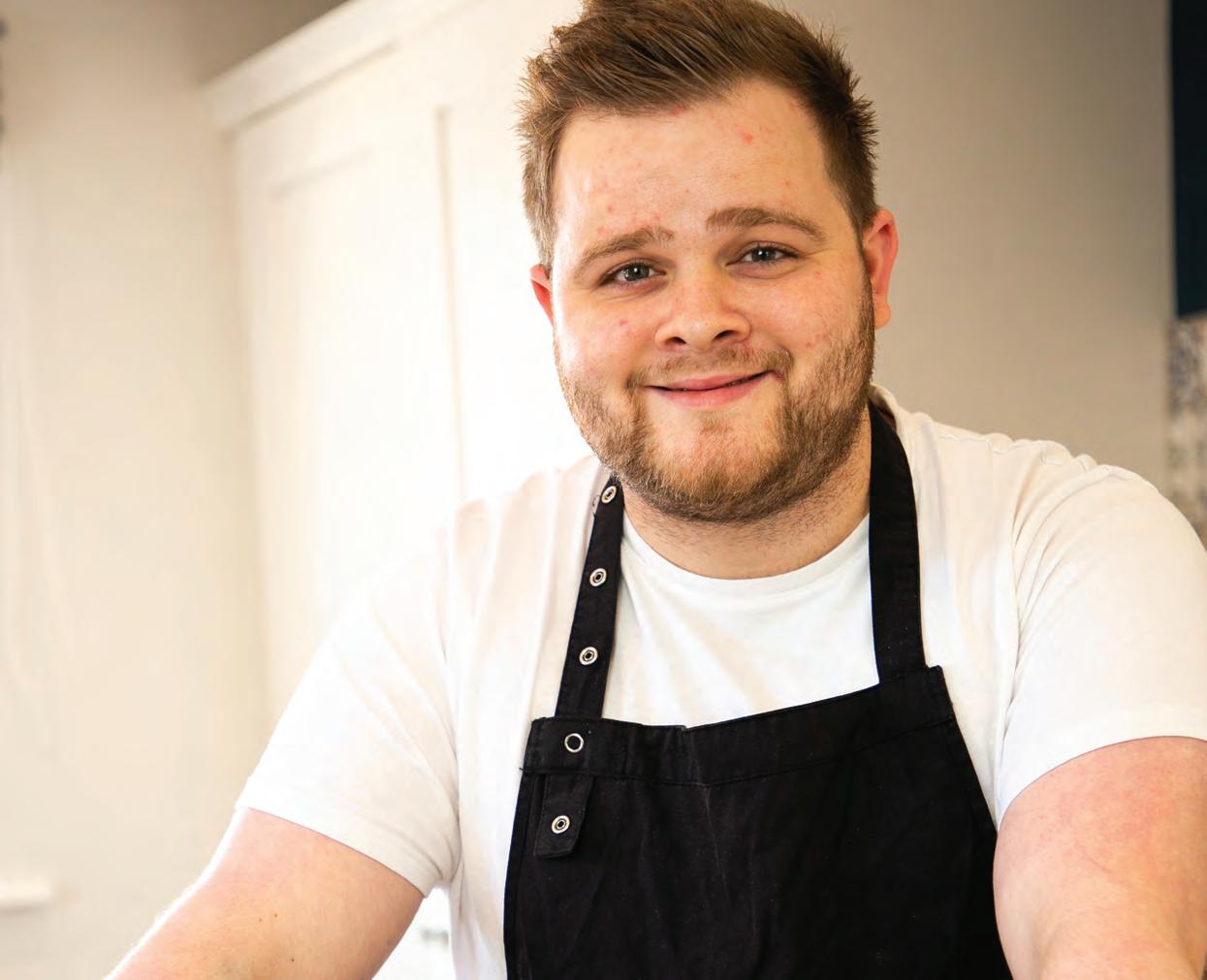 Daniel Lambert
BA in Culinary Arts
Daniel Lambert
BA in Culinary Arts
This four-year honours degree programme equips learners with the knowledge and clinical skills to successfully diagnose, manage, and treat injuries in high-performance athletes, recreational exercisers, and the general public. Sport and exercise are critical for health and performance and there is high demand for graduates with the ability to deliver rehabilitation at all levels of sport and physical activity. This programme provides training in contemporary diagnostic and therapeutic techniques.
The first two years provide the core foundation of the degree, including anatomy, physiology, and musculoskeletal assessment while the last two years develop clinical skills through student-led clinics, a work placement, and a clinical research project.
Programme accreditation by ARTI (Athletic and Rehabilitation Therapy Ireland) is pending, which will enable students in the final year to sit an examination to qualify as a Certified Athletic Therapist (CAT).
Graduate careers typically include working as a certified athletic therapist, sports rehabilitation practitioner, exercise rehabilitation instructor, musculoskeletal specialist or a strength and conditioning coach.
4 Years
60 Places
Work Placement
Standard Entry Requirements plus
• Garda Vetting
Erasmus+
NEW Programme
Nicola Dunnion
Head of Department of Tourism and Sport nicola.dunnion@atu.ie
Pending Accreditation from Athletic and Rehabilitation Therapy Ireland (ARTI).
•
•
•
•
•
•
•
•
Graduates from this programme may choose to continue their studies on the Master of Science in Sports Performance Practice in ATU Donegal or various other Masters degrees in institutes and universities in Ireland and abroad.
Reserved places apply for 10 QQI FET applicants on this programme.
•
•
ATU Prospectus 2023 | 166 ATU Donegal Letterkenny Reserved places apply for 10 QQI FET applicants on this programme.
•
This programme has been designed for students who wish to study sport and exercise at third level, with the option of specialising in either sports performance and wellbeing or physical education studies.
The first two years of this programme provide the core foundation of the degree. Years 3 and 4 allow specialisation whereby the student chooses their preferred stream, either performance and wellbeing or physical education studies.
The performance stream pairs research theory with a range of applied performance related areas including strength and conditioning, psychology and nutrition. The education system pairs research theory with curriculum based instructional models that focus on how physical activity and sport can be taught through games, aquatics, gymnastics, dance, athletics and outdoor adventure education.
Standard
Erasmus+
290 (Level 8 2021)
• Garda Vetting Nicola Dunnion Head of Department of Tourism and Sport nicola.dunnion@atu.ie
Graduate careers typically include physical education (after completion of a relevant postgraduate course in physical education at universities such as University of Limerick, Ulster University, Loughborough University, University of the West of Scotland, Edge Hill University and Liverpool John Moore’s University). However, it should be noted that admission to postgraduate courses in physical education is not automatic. In addition to getting an honours degree candidates are usually required to pass an interview.
Other popular graduate careers include sports coaching, personal trainer, fitness instructor, health promotion specialist, sports development officer, leisure centre manager or sports agency administrator .
Follow-on courses include the Master of Science in Sports Performance Practice in ATU Donegal or various other Masters degrees in institutes and universities in Ireland and abroad.

Students study the first two common years before choosing which stream they would like to follow from Year 3, Sports and Exercise with Performance and Wellbeing or Sports and Exercise with Physical Education.
Reserved places apply for 10 QQI FET applicants on this programme.
This new programme will provide learners with a strong foundation in the discipline areas of performance, health and well-being. Students will study topics such as coaching, sports and exercise nutrition, and leadership and technology. The modules are taught in a practical nature and will prepare participants for the world of work in sport. In the final year of this programme, students will complete a work placement. This programme provides learners with the opportunity to combine their greatest passion with a successful career.
Year 1
• Sports Study Skills 1 and 2
• Introduction to Anatomy and Physiology 1 and 2
• Health Related Physical Activity
• Sports Coaching Practice Sports
• Leisure and Society
• Exercise Prescription and Programme Design
• Sports Coaching Leadership
Year 2
• Biomechanics and Movement Analysis
• Sports and Leisure Frameworks
• Sports and Exercise Nutrition
• Performance Analysis and Technology in Sport
• Sports and Exercise Physiology
• Foundation of Strength and Conditioning
Year 3
• Introduction to Sports Psychology
• Personal Fitness Instruction
• Developing as a Sports Practitioner/ Physical Educator
• Health Promotion and Wellbeing
• Movement Studies: Gym and Dance
• Work Placement or Erasmus Placement
Additional elective
Graduate careers typically include working as a fitness instructor, sports development officer or sports coach. Successful graduates find work in the areas of coaching, leisure, health-care or fitness.
Graduates may apply to join Year 4 of the Level 8 programme in Sports and Exercise with Degree Award Options: Performance and Wellbeing or Physical Education.
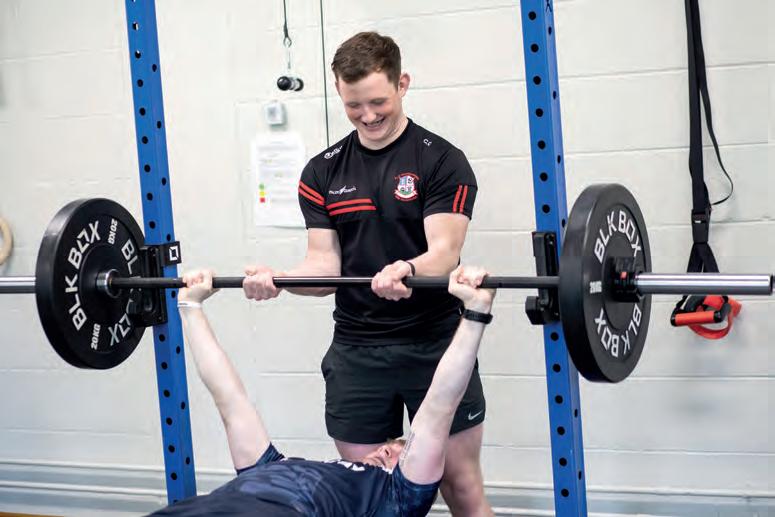
Reserved places apply for 10 QQI FET applicants on this programme.
Standard Entry
Garda Vetting
plus
Head of Department of Tourism and Sport nicola.dunnion@atu.ie
Nicola DunnionLisa had always dreamed of a career as a PE Teacher, and as a student at ATU Donegal, she enjoyed all aspects of campus life. Lisa commented, “Anybody wishing to pursue a career in PE Teaching is very fortunate to have the option at ATU Donegal. The Sports and Exercise degree programme with the Physical Education specialism includes all modules required by the Teaching Council and enables students to progress to complete a Masters programme in PE Teaching.”
Lisa is now enjoying a career as a PE Teacher and enjoyed being able to study her degree programme so close to home.
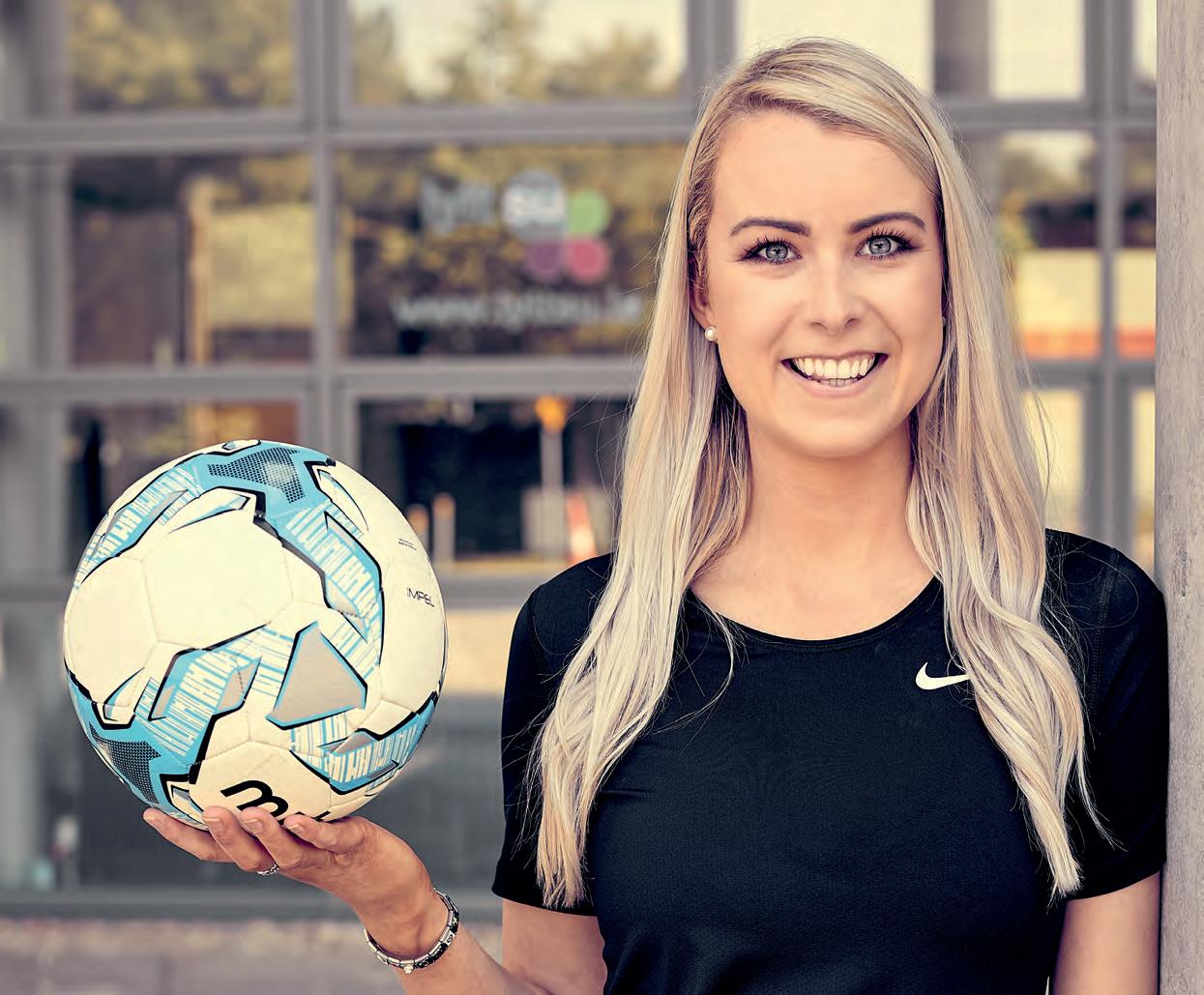 Lisa Shiels
Lisa Shiels
BSc (Hons) in Sports and Exercise with Physical Education
The standards and techniques used in modern construction are constantly evolving; architectural drawings are increasingly produced using 3D software; building legislation strives to ensure the protection of the environment and the general public are becoming more discerning in their appreciation of architecture.
The aim of this programme is to produce graduates with an in-depth knowledge of construction technology and detailing who have high level skills and the competencies to work as Architectural Technologists.
Year
•
•
•
•
•
•
Surveying and GIS
Year 2
• Architectural Project 3 and
• Construction Technology 3 and
• Structural Design
• Architectural History
Graphic
• Site Organisation
Services
• Active Learning
• Research
• Management Practice
• Capstone
Year
•
Project
In this programme, Building Information Modelling (BIM) is used in conjunction with AR and VR (Augmented and Virtual Reality) simulations to support the coordination of architecture, structure and services during the design stage of construction projects.
Digital models offer the ability to visualise, record and document the design of buildings, as well as the opportunity to simulate clash detection and assembly sequencing in virtual space to greatly improve construction efficiencies.
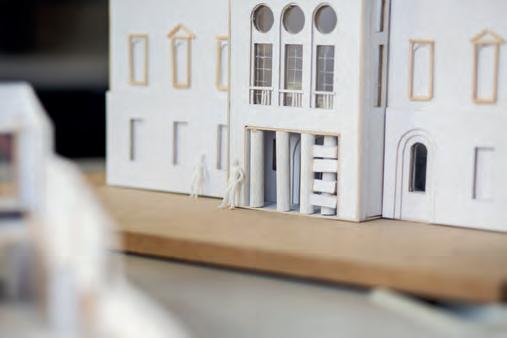
Graduate careers typically include working as an architectural technologist or a BIM Manager. Successful graduates find work in architectural practice, building information modelling (BIM), local authority, property development, housing associations, engineering, manufacturing or graphic design.
ATU Level 8 qualifications are recognised worldwide for postgraduate entry. Progression to Chartered Architectural Technologies (MCIAT) is possible by professional assessment and interview.
24
234 (Level 8 2021)
Anne Boner Head of Department of Civil Engineering and Construction anne.boner@atu.ie
Students on this programme take part in a one-year paid work placement.
Reserved quota places apply for 10 QQI FET applicants on this programme.

This programme is accredited by the registration (UK) body, the Chartered Institute of Architectural Technology (CIAT).
•
•
•
•
Additional
This programme was developed to enable learners to become construction professionals who are at the forefront of technological developments in the construction sector such as Building Information Modelling (BIM), sustainability and surveying techniques. This programme offers learners multi-discipline projectbased modules. The subjects cover a wide range of expertise pertinent to the construction industry.
This programme leads to a qualification in an area where strong employment opportunities have been identified, namely, construction management utilising BIM processes and technology. A shortage of construction professionals within the industry means that graduates have excellent career prospects with building and civil engineering contractors, surveying consultants, property developers or property services consultants. Graduate careers may include working as a construction manager or a contracts manager.
ATU Level 8 qualifications are recognised worldwide for postgraduate entry. Progression towards chartered membership of Chartered Institute of Building (CIOB) following a minimum of three years of relevant work experience is possible.
The construction industry has in recent years embraced the new forms of government contract PWC, RIAI, Design / Build contracts and online procurement methods, creating a need for expertise in the administration and management of contracts.
This programme gives learners the competencies to administer and manage the relevant contracts used in the industry today. Pre and post contract management skills will be developed in a financial, legal and ethical context.
262 (Level 8 2021)
Anne Boner Head of Department of Civil Engineering and Construction anne.boner@atu.ie
Reserved quota places apply for 10 QQI FET applicants on this programme.
ATU Donegal holds Chartered Institute of Building (CIOB) accredited centre status. This honours degree is accredited by the CIOB and therefore provides a route to full chartered membership (MCIOB).

This is a common entry construction programme, with an award title of BSc in Architectural Technology or BSc in Construction Management. At the end of Year 1, learners choose either the Architectural Technology or Construction Management pathway, having had the opportunity to decide which best suits their interests, skills and ability. There is a year-long work placement on the BSc in Architectural Technology and a 6-week work placement on the BSc (Hons) in Construction Management.
Key employers for architectural technologists are architectural practices, building and civil engineering consultancies, local and public authorities, building contractors or property developers.
Key employers for Construction Managers are building and civil engineering contractors, land surveyors, property developers, property services consultancies.
Successful graduates may apply to join Year 4 of the Level 8 programme in Construction Management or Architectural Technology depending on which specialism is selected.
Reserved quota places apply for 10 QQI FET applicants on this programme.
The Architectural Technologist and Construction Manager are key professionals in a multidisciplinary design team. Their roles have become increasingly important in the development and delivery of construction solutions using emerging technologies and building techniques, playing their part in the global implementation of Building Information Modelling (BIM).
ATU Donegal holds Chartered Institute of Building (CIOB) accredited centre status. It is expected that the Level 7 programme will gain CIOB accreditation.

Ronan returned to ATU Donegal as a mature student, having previously studied an honours degree in Accounting. Ronan always had an interest in Engineering and following a period travelling, he decided to return to education to explore this interest.
Civil Engineers are involved in the planning, design and construction of facilities for living, industry and transport. The return to education went smoothly for Ronan, he added, “It was exciting and daunting to be back studying. The small class sizes at ATU Donegal provided a personal learning environment where it was easy to ask questions and participate in class discussions, making it fun. Rather than watching a demonstration, we actually got to perform the practical activities. I enjoyed the practical learning most of all”.
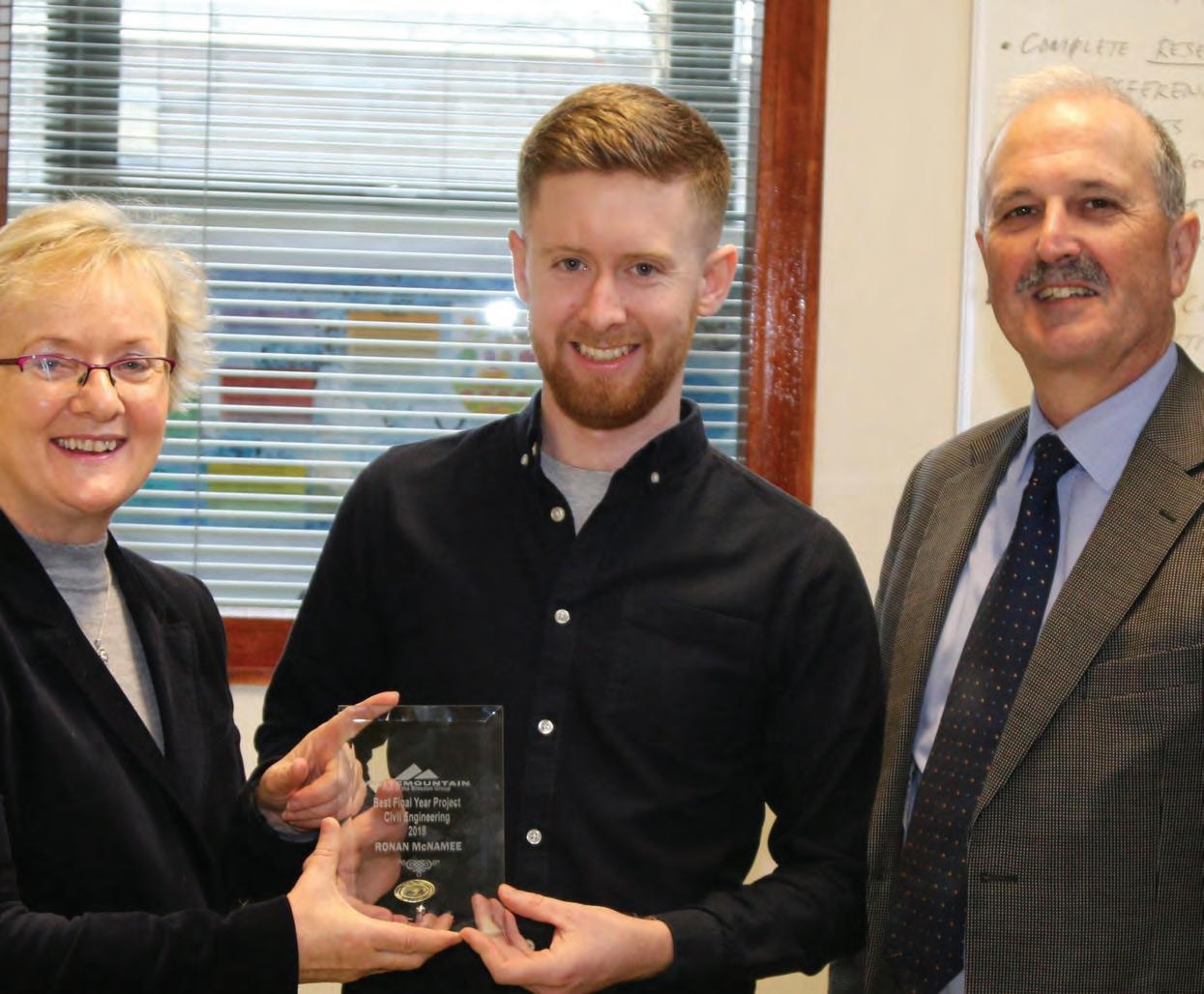 Ronan McNamee
BEng in Civil Engineering
Ronan McNamee
BEng in Civil Engineering
24 Places
The Quantity Surveying profession is at the forefront of ensuring that property owners receive value for money for the life cycle of construction projects. The BSc/BSc (Honours) Quantity Surveying programmes are designed for those who wish to work as professional quantity surveyors and contractors’ economic managers in the construction industry. Developed in collaboration with industry, the qualifications will enable graduates to commence the process of becoming a chartered surveyor.
in professional
(PQS),
Successful students can exit with a BSc in Quantity Surveying after 3 years or BSc (Honours) in Quantity Surveying after 4 years of study.
ATU Level 8 qualifications are recognised worldwide for postgraduate entry. Professional Membership of the Society of Chartered Surveyors Ireland (SCSI) following one year minimum of further work experience.
For the ‘Active Learning Year’ (Year 3), students are on a paid work placement. The work placement is structured in that 4 modules are completed with assignments being submitted online. Using the Active Learning Diary, students log their experience against professional competencies, ensuring that learning objectives are met.
Reserved quota places apply for 10 QQI FET applicants on this programme.
304 (Level 8 2021) 204 (Level 7 2021)
Anne Boner Head of Department of Civil Engineering and Construction anne.boner@atu.ie
Level 7 Accreditation: ATU Donegal holds Chartered Institute of Building (CIOB) Accreditation Centre status. The BSc in Quantity Surveying ordinary degree is recognised for academic exemptions towards Chartered Membership of CIOB.
ATU Donegal has obtained a partnership with the Society of Chartered Surveyors Ireland (SCSI). The honours degree is accredited by SCSI and also recognised by the worldwide professional body, the Royal Institution of Chartered Surveyors (RICS), by reciprocal agreement. The honours degree is accredited by CIOB for full academic exemption towards Chartered Membership (MCIOB).
This common entry building engineering programme leads to a Bachelor of Engineering award in Building Engineering with Renewable Energy or in Fire Safety Engineering. Learners have one elective option in the second semester and may, at the end of the first semester, choose either the Building Engineering with Renewable Energy or Fire Safety Engineering pathway, having had the opportunity to decide which best suits their interests, skills and ability.
Graduate Careers include working as a building engineer in building services design (consultancy or contracting), energy or renewables or working as a Fire Safety Engineer in a local authority, or in a fire engineering consultancy in both public and private sectors. Graduates may gain employment in a diverse range of engineering and construction sectors including renewable energy, throughout Ireland and abroad.
Fire Safety Engineering Work PlacementGraduates of this Level 7 programme may progress to the Level 8 Bachelor of Science (Honours) in Construction Management (Year 4) or Bachelor of Science (Honours) in Construction Contracts Management at ATU Donegal.
Graduates of the BEng in Building Engineering may progress to the BSc (Honours) in Fire Safety Engineering. Graduates of the BEng in Fire Safety Engineering may progress to the BEng (Honours) in Fire Safety Engineering (Year 4)
ATU Donegal is the only academic institution in Ireland to offer fulltime undergraduate degrees in Fire Safety Engineering and is one of two to offer a degree in Building Engineering, with graduates of both disciplines being in demand and highly valued in rewarding careers.
Professional institutions and employer’s representatives in the industry are highlighting the impeding shortage of construction and engineering professionals within Ireland.

Reserved quota places apply for 10 QQI FET applicants on this programme.
This is a common entry degree with award options in Building Engineering with Renewable Energy or Fire Safety Engineering.
This programme is expected to meet the Engineers Ireland education standard for the registration of Associate Engineer.
ATUCivil Engineering is concerned with most of the infrastructure that contributes to modern civilisation. Civil Engineers are involved with the planning, design and construction of facilities for living, industry and transport.
This programme provides a broad based 3-year training in the field of Civil Engineering from which graduates may complete two further years of study elsewhere to become honours Civil Engineering or Master of Engineering (MEng) graduates.
Year
•
•
•
•
•
Technology 1
Graduate careers typically include working as a civil engineer, land surveyor or site engineer. Successful graduates find work in civil engineering, structural engineering, environmental engineering, local and central government or construction materials/quarries.
Many graduates of this Level 7 programme progress to Level 8 and Level 9 Civil Engineering programmes at ATU and other academic institutions. These include a Bachelor of Engineering (Honours) in Civil Engineering at other ATU colleges or universities in Ireland and abroad. Graduates can also progress to programmes such as the Bachelor of Science (Honours) in Construction Management, Bachelor of Science (Honours) in Construction Contracts Management or the Bachelor of Science (Hons) in Fire Safety Engineering.
Private civil engineering contractors’ roles include site management, design and detailing, project planning and estimating (civil works).
Consulting civil or structural or environmental engineers design projects and assess environmental impacts.
Local and central government provide services such as clean drinking water systems, safe road construction and new services development.
Materials testing laboratories implement quality assurance of all materials used in the various construction processes.
164 (Level 7 2021)
Anne BonerHead of Department of Civil Engineering and Construction anne.boner@atu.ie
Reserved quota places apply for 10 QQI FET applicants on this programme.
The BEng in Civil Engineering meets the Engineers Ireland education standard for the registration of Associate Engineer.
This programme is designed for students who have completed the Leaving Certificate Computer Science subject (with a O4 or H6) or a GCE in Computing (or equivalent, for example, a BTech in Computing). Certain other equivalent qualifications such as a QQI FET Level 5 award in Computing will also be considered.
This three-year fast-track honours degree allows learners, who already have a background in computing, to ‘’get up to speed’’ quickly on the core curriculum and rapidly progress to more advanced topics.
It is a broad-based computing programming course which covers a full range of core topics including programming, databases, networking, machine learning and AI and data science apps.
Year 1
• Operating Systems
• Object Orientated Programming
• Social and Digital
• Mathematics for Computing 1
• IT Infrastructure
• Algorithmic Programming
• Database Technology
• Cloud and Mobile Technologies
Year 2
• Advanced IT Infrastructure
•
and Technical Writing
• Software Implementation
Orientated System Analysis and Design
• AI and Machine Learning
• Scripting
• Cybersecurity
• Team Project
Programming
• Project Management
• Data Analytics
Server-Side Scripting
Year 3
• DevOps
Research in Computing with
Technologies
• Software Engineering
Vision
• Client-Side Scripting
• Legal, Ethical and Social Issues in
• Project Development
•
3 Years
24 Places
Work Placement
Standard Entry Requirements plus
• Computer Science 04/H6 or
• GCE in Computing
Graduate careers include working as a programmer, systems designer, storage and security manager, project manager, data analyst, data storage manager, database administrator, IT consultant or IT manager.
ATU Level 8 qualifications are recognised worldwide for postgraduate entry.
Students may take an optional one-year work placement after Year 2 to receive a Bachelor of Science (Honours) in Computer Science with Work Placement.
Reserved quota places apply for 10 QQI FET applicants on this programme.
Thomas Dowling Head of Department of Computing thomas.dowling@atu.ie
•
Design
ATU Prospectus 2023 | 180 ATU Donegal Letterkenny 316 (Level 8 2021)
Data Science is the process of examining large amounts of data to uncover hidden patterns and other useful information. Such information can provide competitive advantages over rival organisations. This has been the big enabler for the expansion of Artificial Intelligence (AI). AI relies on the patterns found in data to make decisions. The bigger and better the quality of the data the better the decisions the AI makes.
Places
NEW Programme
Thomas Dowling Head of Department of Computing thomas.dowling@atu.ieSuccessful graduates find work in all aspects of business and computing, finance companies of all types, health care providers or research centers.
Graduate careers include working in data analytics, machine learning, artificial intelligence, data storage and security programming.
ATU Level 8 qualifications are recognised worldwide for postgraduate entry.
This programme offers an optional one-year work placement.
Reserved quota places apply for 10 QQI FET applicants on this programme.
This programme gives the student a CyberPsychology multidisciplinary qualification across psychology and computing which is applicable to a wide range of organisations and systems. Students who enjoy technology and want to examine and prioritise the human factors in the development of online and digital environments will enjoy this programme.
It will be of particular interest to students who wish to develop psychological insights into human interactions with digital technologies and learn how to apply this knowledge in a variety of sectors that deal with the human-computer interface point.
Graduates of this programme will become part of increasingly multi-skilled teams that design, deliver and regulate all manner of software and hardware solutions for humans and be able to work effectively in contemporary workflow settings in an effective and ethical manner.
The main employers of graduates from this programme are education, the games industry, software development, artificial intelligence, marketing and cybersecurity.
Graduate careers typically include virtual reality, design of AI systems, online marketing, research, online learning education, cybersecurity, game interaction design and usability testing.
ATU Level 8 qualifications are recognised worldwide for postgraduate entry.
Reserved quota places apply for 10 QQI FET applicants on this programme.
This programme is designed to give students experience of a range of modern computing skills. Students will learn cutting-edge programming techniques, data analytics, UX design, web architecture plus many other skills. With an excellent mix of lectures and practicals, students can practice honing core computational and problem-solving skills needed for today’s technology-driven society.
There is also an option to spend a semester in Year 3 studying in one of our partner universities in Europe or China.
(Level 8 2021)
Thomas Dowling Head of Department of Computing thomas.dowling@atu.ieStudents can choose to spend the first semester of Year 3 studying in one of our partner universities in Europe or China. A summer work placement is also available to students on this programme.
Successful graduates normally find work in software development houses, banks and insurance companies in addition to all areas of medicine, transport and education.
Graduate careers include software developer, software programmer, data analyst/scientist, mobile app developer, database manager, project manager, system designer or network engineer.
ATU Level 8 qualifications are recognised worldwide for postgraduate entry.
quota places apply for 10 QQI FET applicants on this programme.
This programme has been developed with the help of computer games companies. It covers the key skills, methods and techniques used in the development of computer games.
The aim of this programme is to provide tomorrow’s game developers for this growing sector of the Irish economy. The global computer games industry is an area with enormous potential for development. Worldwide, the value of the computer games industry is more than €85 billion.
The computer games industry in Ireland is a relatively young and growing industry, this programme has been developed with that in mind.
Summer work placement is available for students on this programme.
Successful graduates find work in games companies, mobile apps development companies and software houses.
Graduate careers typically include working as a games developer, mobile apps developer, computer programmer, game designer, content developer or game engine developer.
Level 7 graduates may apply for Year 4 of the Level 8 programme in Computer Games Development. ATU Level 8 qualifications are recognised worldwide for postgraduate entry.
Reserved quota places apply for 10 QQI FET applicants on this programme.
Amy studied Applied Computing at ATU Donegal and embraced all aspects of student life during her studies. From participating and leading a wide variety of clubs and societies, to achieving digital badge success from the National Forum for the Enhancement of Teaching and Learning in Higher Education, Amy thrived during her four years studying at ATU Donegal.
As a teenager, Amy sampled campus life while attending computing summer camps at ATU Donegal. It was during this time that her interest in computing developed. Amy thoroughly enjoyed all aspects of the Applied Computing degree programme, and worked as a freelance transcriptionist for Rev.com during her studies. Demand is high for Computing graduates at ATU Donegal, and as Amy approached her final year exams she secured a graduate role in the Technology Department with Optum Ireland. Her next move is to Dublin where Amy will explore all aspects of technology with Optum Ireland who provide technological, operational and consulting solutions and services to individuals, healthcare organisations and pharmaceutical companies.
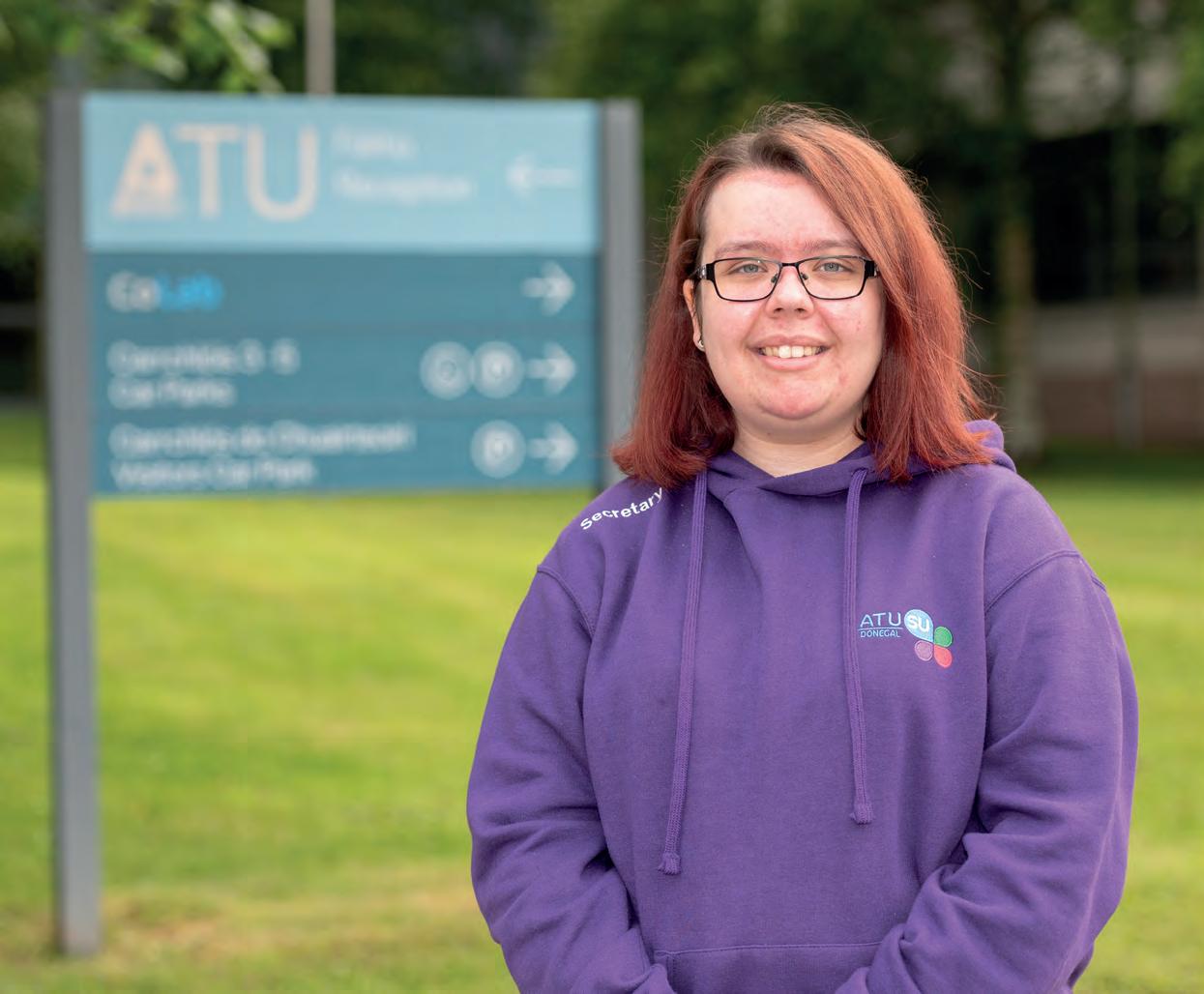
This programme teaches students the skills, methods and techniques used in Cybersecurity and Digital Forensics with the aim of providing the Irish computer industry with high-quality experts in this rapidly growing field.
Cybersecurity is about securing computer systems against all types of unauthorised access. However, no matter how secure a computer system is, it will still have vulnerabilities.
Digital Forensics is about detecting intruders, analysing what they have done to a computer system, tracking and identifying the intruder and creating a portfolio of evidence about the intruder’s activities to assist with a successful prosecution.
Summer work placement is available for students on this programme.
Successful graduates find work in companies running large computer networks, the payment card industry and in financial services companies. Graduate careers typically include working as a secure systems engineer, IT threat analyst, secure applications developer and tester, network engineer, communications specialist, internet support specialist, computer programmer, project manager, cybersecurity applications developer or digital forensics investigator.
Level 7 graduates may apply for Year 4 of the Level 8 programme in Cybersecurity and Digital Forensics. ATU Level 8 qualifications are recognised worldwide for postgraduate entry.
Reserved quota places apply for 10 QQI FET applicants on this programme.
This programme provides students with the theoretical and practical skills they need to participate fully in the rapidly growing computing industry. This programme also provides a strong core set of competencies in general computing.

Ireland is the world’s largest exporter of computer software. This means that there are excellent opportunities for finding well-paid employment after graduation. Additionally, because computers are used in almost every area of modern life, the range of opportunities and types of jobs are endless.
Year
Work
(Level 7 2021)
Summer work placement is available for students on this programme.
Successful graduates find work in all types and sizes of computing companies, banks, insurance companies, medical IT, eCommerce and web development.
Graduate careers include working as a software developer and tester, data analytics engineer, database designer and developer, mobile apps developer, database developer and web developer.
Level 7 graduates may apply for Year 4 of the Level 8 programme in Computing. ATU Level 8 qualifications are recognised worldwide for postgraduate entry.
Thomas Dowling Head of Department of Computing thomas.dowling@atu.ie
Reserved quota places apply for 10 QQI FET applicants on this programme.
This programme will prepare graduates to enter careers in the design and implementation of systems, components and processes involved in biomedical sensing, drug delivery and therapy systems.

Students will study the design and build of biomedical devices, medical diagnostics equipment, smart implantable and wearable therapeutic systems. This programme covers all aspects of connected health from remote sensing, the Internet of Things to the analysis of health data in the Cloud.
An optional special purpose award is available for a work placement as part of this programme.
Graduates may find work in the medical devices industry, diagnostic or therapy system manufacturers and connected healthcare.
Graduate careers include working in the design or development of diagnostic systems, technical sales, marketing or management roles or in biomedical engineering research.
ATU Level 8 qualifications are recognised worldwide for postgraduate entry.
paddy.hannigan@atu.ie
This is a rapidly changing area of engineering that offers very exciting and rewarding careers working at the forefront of new technologies.
Reserved quota places apply for 10 QQI FET applicants on this programme.
3/4
Any portable technology device or any smart technology in the home, school or workplace will be built from electronics and embedded systems. A car that can park itself needs to be guided by electronics technology. A phone app that detects proximity to others for tracking contacts is built on electronic communications system.
These programmes prepares graduates to enter careers in the design and implementation of such electronic and embedded systems applications in mobile and wireless communications, connected health, and in all aspects of the Internet of Things from sensing to the Cloud.
This programme includes an extended work placement which will significantly enhance a student’s career opportunities.
Successful graduates find work in telecommunications, highend manufacturing, medical devices and micro-electronics fabrication.
Graduate careers include working as an embedded systems designer, technical support manager, or research engineer. Graduates also work in ICT, the microelectronic industry, the medical device industry and in technical sales, marketing and management related roles.
Successful students can exit with a BEng in Electronic Engineering after three years or BEng (Honours) in Electronic Engineering after four years of study. Level 7 graduates may apply for entry into Year 4 of the Level 8 programme in Electronic Engineering. ATU Level 8 qualifications are recognised worldwide for postgraduate entry.
40 Places
321 (Level 8 2021)
198 (Level 7 2021)
Dr Paddy Hannigan Head of Department of Electronic and Mechanical Engineering paddy.hannigan@atu.ie
This is a rapidly changing area of engineering that offers very exciting and rewarding careers working at the forefront of new technologies.
Reserved quota places apply for 10 QQI FET applicants on this programme.
The BEng (Hons) in Electronic Engineering meets the education standard for registration with Engineers Ireland as an Associate Engineer.
3/4 Years
If it moves, mechanical engineers can design and build it. Students who are curious about how energy, materials and mechanics are used to create machines and equipment will enjoy this programme. Think of the innovation and creativity behind the equipment used in space shuttles, biotechnology, robots, Formula One race cars and aircraft gas turbine engines – mechanical engineering is at the forefront of innovation and plays a role in some of the most exciting areas of life. Students who enjoy working in this area are inventive and creative as well as logical and numerate.
optional special purpose award is available for a work placement as part of this programme.
The need for mechanical engineers in Ireland and the UK has remained a constant in recent years. Mechanical Engineers are very versatile and can be employed in a broad range of roles across many industries giving graduates the opportunity to find the industry and role that fits them best.
Successful graduates find work in the manufacturing, mechanical, and industrial engineering industries. Graduate careers include working as a product and process designer, production or general manager, facilities engineer, maintenance or energy systems engineer, technical support manager, or research engineer. They may also find work in technical sales, marketing and management in related industries.
Successful students can exit with a BEng in Mechanical Engineering after three years or BEng (Honours) in Mechanical Engineering after four years of study. Level 7 graduates may apply for entry into Year 4 of the Level 8 programme in Mechanical Engineering.
ATU Level 8 qualifications are recognised worldwide for postgraduate entry.
40 Places
300 (Level 8 2021) 163 (Level 7 2021)
Dr Paddy Hannigan Head of Department of Electronic and Mechanical Engineering paddy.hannigan@atu.ieReserved quota places apply for 10 QQI FET applicants on this programme.
The BEng (Hons) in Mechanical Engineering meets the education standard for registration with Engineers Ireland as an Associate Engineer.
This programme is aimed at prospective students who are interested in engineering but have not yet committed to a specific discipline area. The
mechanical
and biomedical design engineers has been very strong in recent years.
Students will be able to apply engineering analysis, synthesis, and evaluation to engineering problems, demonstrate and articulate a practical and theoretical knowledge of their engineering field through theory, practice, experimental, project and design work, plus demonstrate a high level of competence and ability in problem-solving, analysis and decision making.
Paddy Hannigan Head of Department of Electronic and Mechanical Engineering
An optional special purpose award is available for a work placement as part of these programmes.
Graduate careers for Mechanical Engineers include working as a product and process designer, production or general manager, facilities engineer, maintenance or energy systems engineer, technical support manager, or research engineer. Graduates also work in technical sales, marketing and management roles in related industries.
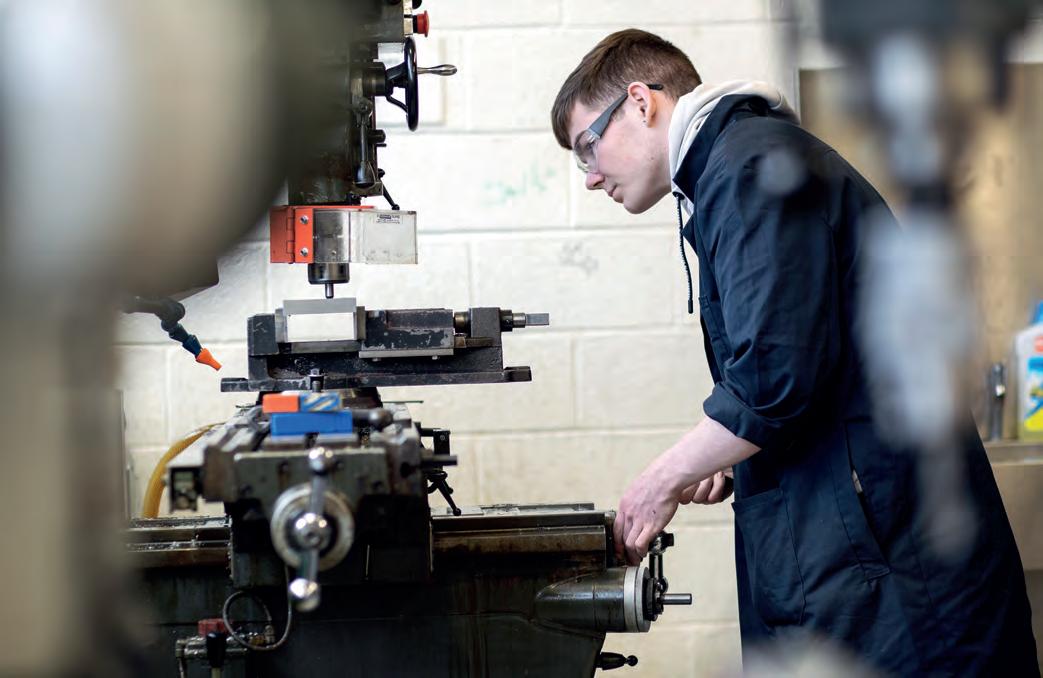
Graduate careers for Electronic Engineers include working as an embedded systems designer, technical support manager or research engineer. They also work in the ICT and microelectronics industry, medical devices industry and in technical sales, marketing and management roles in related industries.
Graduate careers for Biomedical Design Engineers include working in medical devices industry roles, designing and developing diagnostic and therapeutic systems. They also work as maintenance engineers and in biomedical research and development. Some graduates work in technical sales, marketing and management roles in related industries.
ATU Level 8 qualifications are recognised worldwide for postgraduate entry.
This programme offers a common first year which includes modules in engineering problem-based learning where students complete mini-projects relevant to mechanical engineering, electronic engineering, and biomedical design.
Reserved quota places apply for 10 QQI FET applicants on this programme.
This is a common entry degree with award options in Mechanical Engineering, Electronic Engineering or Biomedical Design.
The BEng (Honours) in Mechanical Engineering and the BEng (Honours) in Electronic Engineering meet the Engineers Ireland education standard for the registration of Associate Engineer.
ATUThis programme is aimed at prospective students who are interested in engineering but have not yet committed to a specific discipline area. The demand for mechanical engineers and electronic engineers has been strong in recent years, and the need for engineers to support the emergence of electric vehicles is also evident.
Graduates of this programme will have the technical and managerial skills necessary to enter careers in the design, application, installation, manufacturing, operation and maintenance of a range of technical systems.
This programme offers a common first year which includes modules in Engineering Problem-Based Learning where students complete miniprojects relevant to mechanical engineering, electronic engineering, and electric vehicle engineering.
Dr Paddy Hannigan Head of Department of Electronic and Mechanical Engineering paddy.hannigan@atu.ieGraduate careers for Mechanical Engineers include working as a product and process designer, production or general manager, maintenance technician or engineer, technical support manager, technical sales advisor, or research engineer.

Graduate careers for Electronic Engineers include working as a technical support manager, maintenance technician or engineer, technical sales advisor, or research engineer. Graduates will also find work in ICT and the microelectronics industry.
Graduate careers for Electric Vehicle Engineers include working as an EV design engineer, fuel cell engineer, EV powertrain engineer, EV systems engineer or research engineer.
Graduates may continue their studies to the add-on BEng (Honours) in Mechanical Engineering or Electronic Engineering at ATU Donegal.
Reserved quota places apply for 10 QQI FET applicants on this programme.
An optional special purpose award is available for a work placement as part of these programmes.
This is a common entry degree with award options in Mechanical Engineering, Electronic Engineering or Electric Vehicle Engineering.
The BEng in Mechanical Engineering and the BEng in Electronic Engineering meet the Engineers Ireland education standard for the registration of Associate Engineer.
This programme has been designed to allow graduates to work in an industry embarking on the rapid transition to electrified propulsion, namely Electric Vehicles. Hyundai who are major players in the transition to Electric Vehicles are supporting the roll-out of this programme. This programme will cover technology associated with a wide range of vehicles including cars, public transport vehicles, goods vehicles, and specialist industrial vehicles.
An optional special purpose award is available for a work placement.
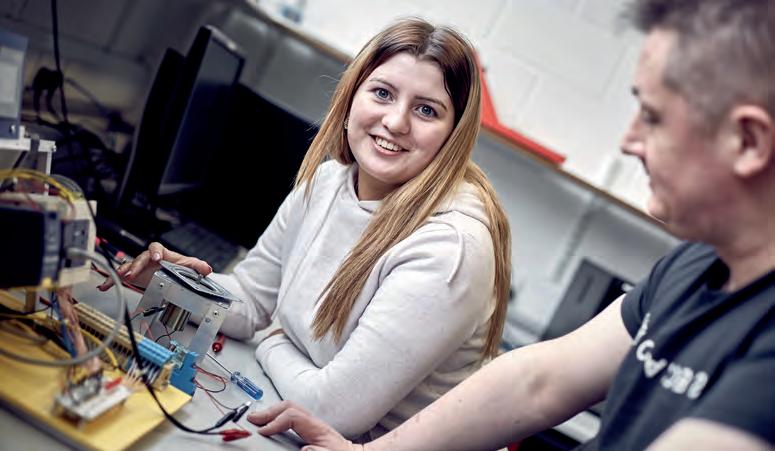
Graduates may find work with electric vehicle manufacturers, local industries that incorporate self-propulsion such as quarry crushing, electric vehicle component manufacturers, EV conversion companies, dealership networks and fleet management, motor-sport, public transport, vehicle testing and vehicle inspection.
Graduates may continue their studies to the add-on BEng (Honours) in Mechanical Engineering at ATU Donegal.
A revolutionary shift in the automotive industry is occurring with manufacturers committed to phasing out fossil fuel-based automotive transport in favour of renewable alternatives. The Irish Government has set a target to have 936,000 of the cars registered in Ireland electrified by 2030. This programme is designed to get us there.
Programme
Dr Paddy Hannigan Head of Department of Electronic and Mechanical Engineering paddy.hannigan@atu.ieReserved quota places apply for 10 QQI FET applicants on this programme.
Lorraine developed a keen interest in mechanical engineering from a very early age leading her to a career with the most powerful brands in the manufacturing industry and access to global career opportunities.
Following in her father’s footsteps in mechanical engineering, Lorraine developed an interest for all things mechanical. Lorraine commented, “At school I enjoyed science and maths related subjects and chose to do maths, biology and chemistry at higher level for my Leaving Certificate. At first, I was unsure what course to pursue at third level. I spoke with a careers guidance teacher who advised me to consider mechanical engineering as it would be a good fit with my interests in maths and science.” Graduating with a degree in Mechanical Engineering from ATU Donegal helped Lorraine to thrive and enjoy a career that incorporates her lifelong interests.
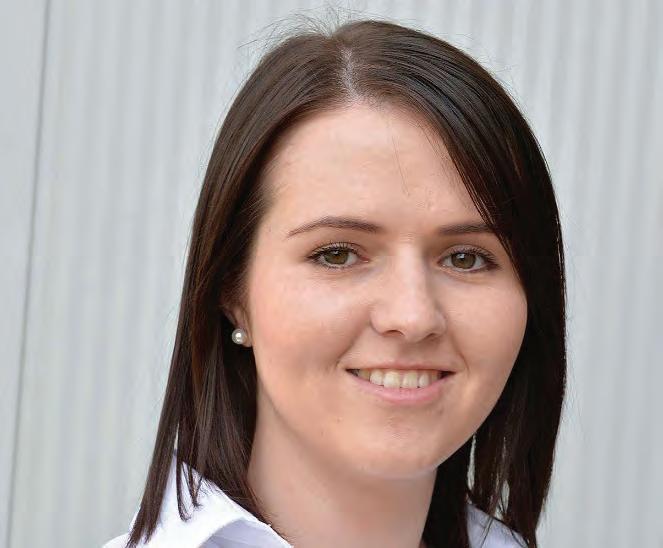
2/4 Years
We learn throughout our lives, it begins the day we are born and the early years are critical to that learning. Young children use all their senses to discover the world and adults involved in their education must do likewise. Working with young children requires patience and energy, commitment and dedication, but most of all it demands creativity and a sense of fun. Young children live in the present and the role of an early years educator is to cultivate appropriate care and developmental environments for those children to grow in body and mind.
Placement is an integral part of the course and students will undertake placement in childcare settings located in Donegal. Students may be required to complete a medical self-assessment declaration form and be subject to a medical assessment/screening and
Successful graduates find work in early education and care, education, and the health services. Graduate careers include working as a specialist advisor, family support and community worker or primary school teacher.
Level 6 graduates may apply for Year 3 of the Level 8 programme in Early Childhood Care, Health and Education. Level 8 graduates may progress to the Masters of Science in Advancing Health and Social Care. ATU Level 8 qualifications are recognised worldwide for postgraduate entry.
Reserved quota places on this programme apply for 4 QQI FET applicants, 2 mature applicants, 1 HEAR applicant,1 DARE applicant and 2 applicants internally progressing from Access studies.
30 Places
Standard Entry Requirements Requirements plus
• Garda Vetting
• Mandatory training: as outlined by programme schedules. This is required prior to students going on placement.
• Health Declaration
• Practice placement: students may be required to complete a medical assessment
Erasus+ (Level 8)
288 (Level 8 2021)
160 (Level 6 2021)
Dr Nigel McKelvey Head of Department of Early Education and Social Studies nigel.mckelvey@atu.ie
BSc (Hons) in Early Childhood Care, Health and Education
Eimear’s interest in becoming a primary school teacher started at an early age, when researching degree programmes in early years education, she was drawn to the modules in the BSc (Hons) in Early Childhood Care, Health and Education at ATU Donegal.
What particularly appealed to Eimear was the option to undertake the Diploma in Irish from NUIG at ATU Donegal. On completion of her studies at ATU Donegal, Eimear progressed to study a Professional Master of Education (Primary Teaching), which she completed with Hibernia College. Now a fully qualified primary school teacher, Eimear reflects on how modules such as Education Play, Creativity in Early Years, Curriculum Pedagogy and Assessment, combined with the practical work placements future-proofed her for a career as a primary teacher.
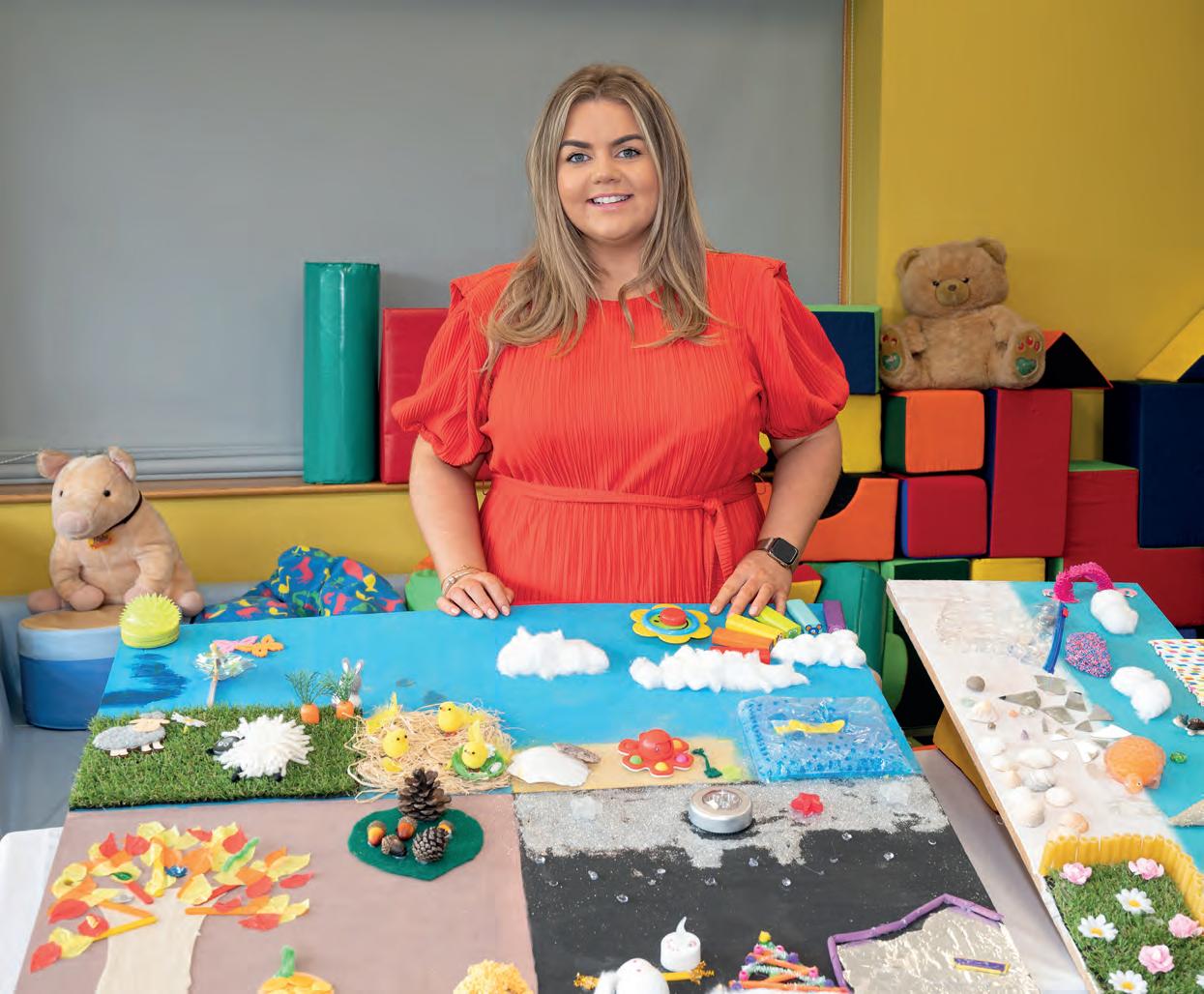
This programme is designed for anyone seeking a career in health and social care. This programme combines academic work with practice learning from a variety of areas including working with children, young people, people with disabilities and older people in a variety of health and social care settings.
Placement is an integral part of this course and students will undertake a placement in childcare settings located in Donegal. Students may be required to complete a medical self-assessment declaration form and be subject to a medical assessment/screening and vaccination programme for placements in specific areas.
What will I study?
Successful graduates find work in adult services, health awareness and promotion, care of the elderly, childcare, youth and community development, women’s aid and intellectual disability services.
Graduate careers include a residential child carer, respite carer, adult services officer, health promotion officer, carer in a nursing home or youth work and community development officer.
Level 6 graduates may apply for Year 3 of the Level 8 programme in Health and Social Care. ATU Level 8 qualifications are recognised worldwide for postgraduate entry.
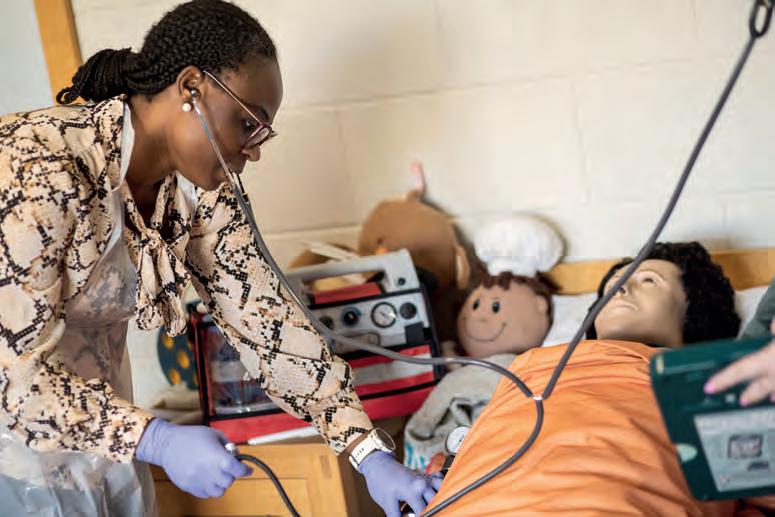
Reserved places on this programme apply for 4 QQI FET applicants, 2 mature applicants, 1 HEAR applicant, 1 DARE applicant and 2 internal applicants progressing from Access studies.
2 Years
30 Places
Work Placement
Standard Entry Requirements plus
• Garda Vetting
• Mandatory training: as outlined by programme schedules. This is required prior to students going on placement.
• Health Declaration
• Practice placement: students may be required to complete a medical assessment
195 (Level 6 2021)
Dr Nigel McKelvey Head of Department of Early Education and Social Studies
nigel.mckelvey@atu.ie
modules
Working in the education sector is an important job which comes with significant responsibilities. Learners on this programme will become part of increasingly multi-skilled teams in the workplace. We will equip graduates to work effectively in contemporary educational contexts and will qualify graduates to work in primary and post-primary settings as Special Needs Assistants (SNAs) with specialisms in Inclusive Practice. This innovative programme is further designed to enable SNAs across primary and post-primary sectors to integrate inclusive practice into their working environments.
Year 1
•
•
•
•
•
•
•
•
Year 2
• Health and Well-Being
• Law, Disability, Special Needs and Children’s Rights
• Autism Advocacy
• Functional Behaviour and Positive Support
• Family Support and Positive Partnerships
• Supporting the Curriculum Across the Lifespan
• Observations and Support Plans
• Practice Placement 1
Year 3
• Introduction to Health Promotion
• Speech, Language and Communication Needs
• Developmental Psychology in Childhood and Adolescence
• Research Studies
• Reflective Practice
• Disability and Effective Practices
• Technology to Foster Engagement
• Practice Placement 2
Additional elective modules may be available.
Graduates find work in childcare, education, and the health services. Graduate careers include working as an SNA in primary or postprimary schools, special schools and Autism Spectrum Disorder (ASD) classrooms, as advisors in Inclusive Practice or as a classroom assistant.

A one-year Level 8 add-on programme will be available in due course.
Competencies in areas such as inclusive practice are becoming increasingly important for schools to maintain a content and productive environment. This programme equips graduates to lead, integrate and promote inclusive practice as part of their SNA duties.
• Garda Vetting
• Mandatory training: as outlined by programme schedules. This is required prior to students going on placement.
• Health Declaration
• Practice placement: students may be required to complete a medical assessment
nigel.mckelvey@atu.ie
Reserved places on this programme apply for 4 QQI FET applicants, 2 mature applicants, 1 HEAR applicant, 1 DARE applicant and 2 internal applicants progressing from Access studies.
Bioanalytical Science provides a clear knowledge of the underlying concepts behind modern bioanalytical techniques and the application of these techniques in the areas of biotechnology, pharmaceutical, and related industries and in environmental analysis.
Students will gain technical competence in analytical biochemical, genetic, immunological and microbiologically based analytical methodologies and the skills and knowledge required to work in the biotechnology and pharmaceutical industries as well as in state scientific agencies.
graduates
Places
NEW Programme
Dr Kim McFadden Head of Department of Life and Physical Scienceskim.mcfadden@atu.ie
ATU Level 8 qualifications are recognised worldwide for postgraduate entry.
On completion of this programme, students will have knowledge and understanding of specific theories, concepts and principles in biopharmaceutical processes, industrial microbiology, molecular biology and analytical science.
Students will have acquired methods for generating, processing, interpreting and presenting information in those areas. They will also have the ability to identify, define and resolve complex problems through biopharmaceutical processes.
Reserved quota places on this programme apply for 2 QQI FET applicants, 2 mature applicants, 1 HEAR applicant, 1 DARE applicant and 2 applicants progressing internally from Access studies.
Meets the registration requirements set down in the Teaching Council [Registration] Regulations in respect of the curricular subject of ‘Biology’.
This programme will provide learners with a broad knowledge of food science and in particular food and nutrition. Food science and nutrition are at the centre of everyone’s life. What we eat, how our food is made and developed, and how our diets affect our bodies are at the forefront of this programme.
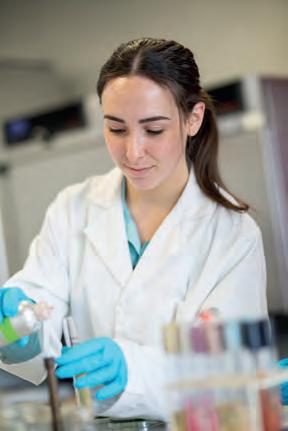
Year
•
•
•
•
•
•
•
Year
Students will gain a deep understanding of the relationship between diet and disease, how changing consumer lifestyles can impact our health, as well as how the modern food industry operates.
Students will learn about food production and processing, and study the nutritional properties, quality and safety of food products, acquiring knowledge of human biochemistry, nutrition and dietary analysis.
Successful graduates find work in the food industry, government agencies and food nutrition sectors. Graduate careers include working as a food product developer, food production supervisor or food quality and safety analyst.

Dr Kim McFadden
Head of Department of Life and Physical Sciences
kim.mcfadden@atu.ie
ATU Level 8 qualifications are recognised worldwide for postgraduate entry.
10 quota places are reserved for QQI FET Applicants.
Year
This programme covers the full range of core subjects in science and in particular pharmaceutical science and medical devices. Pharmaceutical scientists have key analytical skills which can be applied in many industrial, research and government laboratories. This programme is intrinsically multidisciplinary in nature and emphasises the importance of analytical and medicinal sciences to the modern pharmaceutical, and medicinal product sectors as well as related chemical industries.
Students spend extensive time in a range of well-equipped laboratories during this programme.
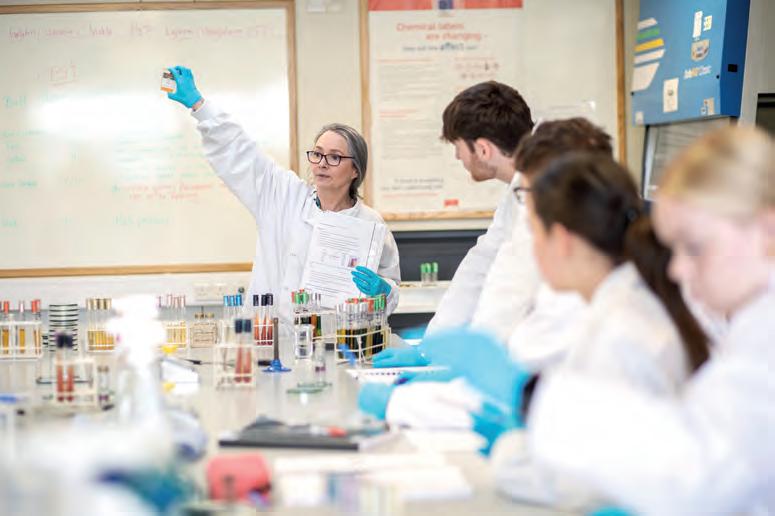
Successful graduates find work in the pharmaceutical and medical device sector and government agencies. Graduate careers include working as an analytical scientist, R&D scientist, quality specialist or secondary school teacher.
ATU Level 8 qualifications are recognised worldwide for postgraduate entry.
Programme
Dr Kim McFaddenkim.mcfadden@atu.ie
10 quota places are reserved for QQI FET Applicants.
This Bachelor of Science Level 7 programme in Bioanalytical Science or Food Science and Nutrition or Pharmaceutical and Medicinal Science is a broad introduction to this exciting field of science.
This programme will give learners the opportunity to discover which area of science - Bioanalytical Science, Food Science and Nutrition or Pharmaceutical and Medicinal Science - is right for them.
Students who chose the Food Science and Nutrition degree award option can take a work placement in Year 3.
Reserved quota places on this programme apply for 2 QQI FET applicants, 2 mature applicants, 1 HEAR applicant, 1 DARE applicant and 2 applicants progressing internally from Access studies.
Bioanalytical graduate careers include working as a bioscientist, laboratory technician, quality analyst or secondary school teacher.
Food Science and Nutrition graduate careers include working as a food product developer, food production supervisor or food quality and safety analyst.
Pharmaceutical and Medicinal Science graduate careers include working as an analytical scientist, research and development scientist, quality specialist or secondary school teacher.
Graduates may apply internally to progress to Year 4 of their chosen Level 8 programme in either Food Science and Nutrition, Pharmaceutical and Medicinal Science or Bioanalytical Science. ATU Level 8 qualifications are recognised worldwide for postgraduate entry.
At the end of the first year, students will choose which degree award option to take thus furthering their study and opening up numerous career opportunities including becoming a biology teacher, quality manager or biopharmaceutical scientist.

Esther graduated with a first-class honours degree in Pharmaceutical and Medicinal Science at ATU Donegal. Following her three years of study at ATU Donegal, she gained entry into third-year of the medicine degree at the University of Lodz, Poland.
During her time at ATU Donegal, she embraced the student experience and received a digital badge from the National Forum for the Enhancement of Teaching and Learning in Higher Education for her work as a Student Ambassador. Esther is approaching her final year in medicine and attributes her time at ATU Donegal as developing the foundation she needed to build a career in medicine.
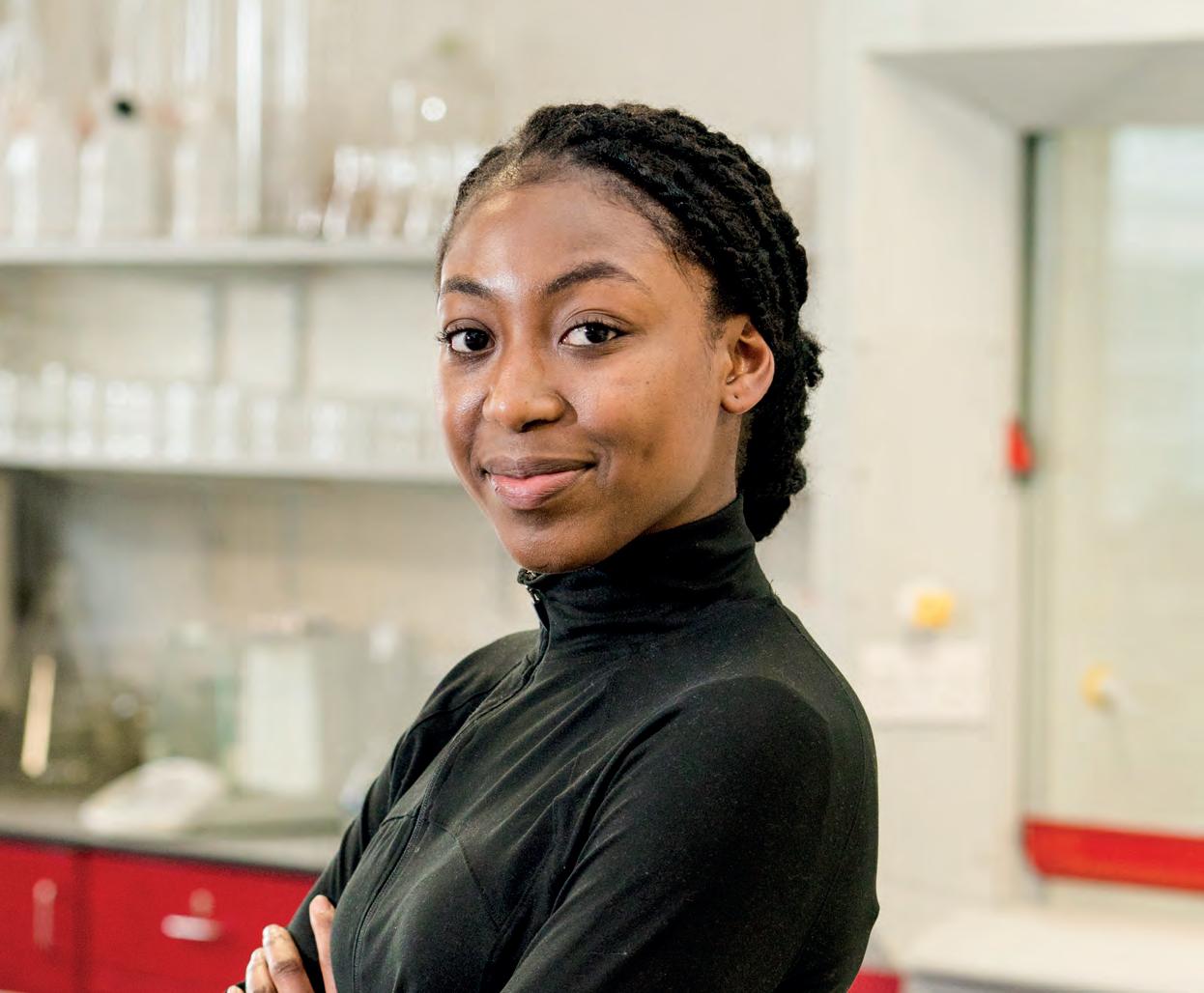
3 Years
Agriculture is a key contributor to the Irish economy and is currently experiencing a period of growth and expansion. This programme offers graduates a combination of skills and knowledge of key areas in agriculture such as Soil and Plant Science, Ruminant Husbandry and Agriculture Business Management. This is combined with a substantial work placement in Semester 2 of Year 2 where students will gain valuable work experience. Year 3 expands and builds upon the knowledge obtained in Year 1 and 2, with the study of modules such as Farm Waste and Environmental Science, Livestock Production and Animal Science.
Year 1
• Introduction to Agriculture
• Animal Husbandry, Nutrition and Welfare
• Communications and IT Skills
• Fundamentals of Biology and Chemistry
• Mathematical Skills for Science 1
• Ruminant Husbandry
• Agricultural Business Management
• Soil and Plant Science
• Alternative Farm Enterprise
• Agricultural Microbiology
Year 2
• Agriculture and Environmental Impact
• Grassland and Crop Production
• Work Placement and Farm Health and Safety
• Beef and Dairy Production Systems
• Work Placement
Year 3
• Animal Science
• Agricultural Marketing and Accounts
• Advanced Soil Science
• Sheep, Pigs and Poultry Production
• Research Skills
• Agricultural Food Technology
• Farm Waste and Environmental Science
• Advanced Crop Production
• Literature Project
Additional elective modules may be available.
Students who do not wish to progress to Year 3 of this programme can exit following successful completion of two years and achieve a Higher Certificate in Science in Agriculture.
Successful graduates find work in agriculture, agri-food and government agencies. Graduate careers include working as a farm manager, agricultural research assistant or agricultural sales manager.
Level 7 graduates may apply internally to join Year 4 of the Level 8 BSc (Honours) in Agriculture with degree award options in Animal and Crop Sciences or Environmental Management. ATU Level 8 qualifications are recognised worldwide for postgraduate entry.
This programme fulfils the requirements for stamp duty exemption or land transfer for young farmers (Green Cert).
Reserved quota places on this programme apply for 2 QQI FET applicants, 1 mature applicant, 1 HEAR applicant, 1 DARE applicant and 2 applicants progressing internally from Access studies.
32 Places
Work Placement
Erasmus+
200 (Level 7 2021)
Dr Kim McFadden
Head of Department of Life and Physical Sciences kim.mcfadden@atu.ie
This programme prepares students for a career in the Agriculture and Agri-Business sectors by providing graduates with key skills in Animal Husbandry, Animal Science, Soil and Plant Science, Environmental Science and Agriculture Business Management and Marketing.
This programme incorporates a substantial work placement in Semester 2 of Year 2 where the students will gain valuable workplace experience. Year 3 expands and builds upon the knowledge obtained in Year 1 and 2. Year 4 allows students to focus on one of two disciplines; Animal and Crop Science or Environmental Management.
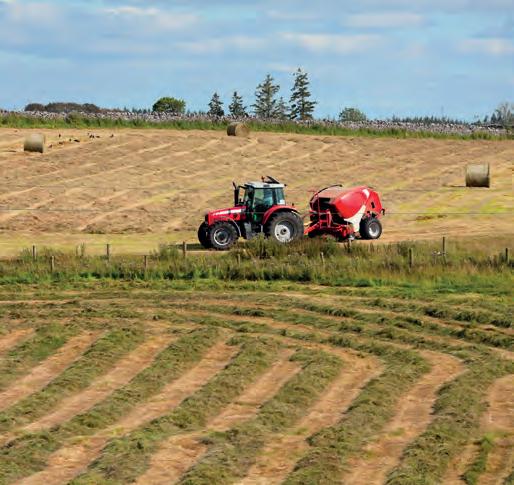
308 (Level 8 2021)
Dr Kim McFadden Head of Department of Life and Physical Scienceskim.mcfadden@atu.ie
On completion of the programme, graduates will have attained key skills and competencies to allow them to meet the needs of a dynamic agricultural sector.
Successful graduates find work in agri-food, government agencies, and education. Graduate careers include working as an agricultural advisor, farm manager, R&D scientist, environment manager or secondary school teacher.
ATU Level 8 qualifications are recognised worldwide for postgraduate entry.
Reserved quota places on this programme apply for 2 QQI FET applicants, 2 mature applicants, 1 HEAR applicant, 1 DARE applicant and 2 applicants progressing internally from Access studies.
Students have a common three years before focusing on one of two disciplines in their final year; Animal and Crop Science or Environmental Management.
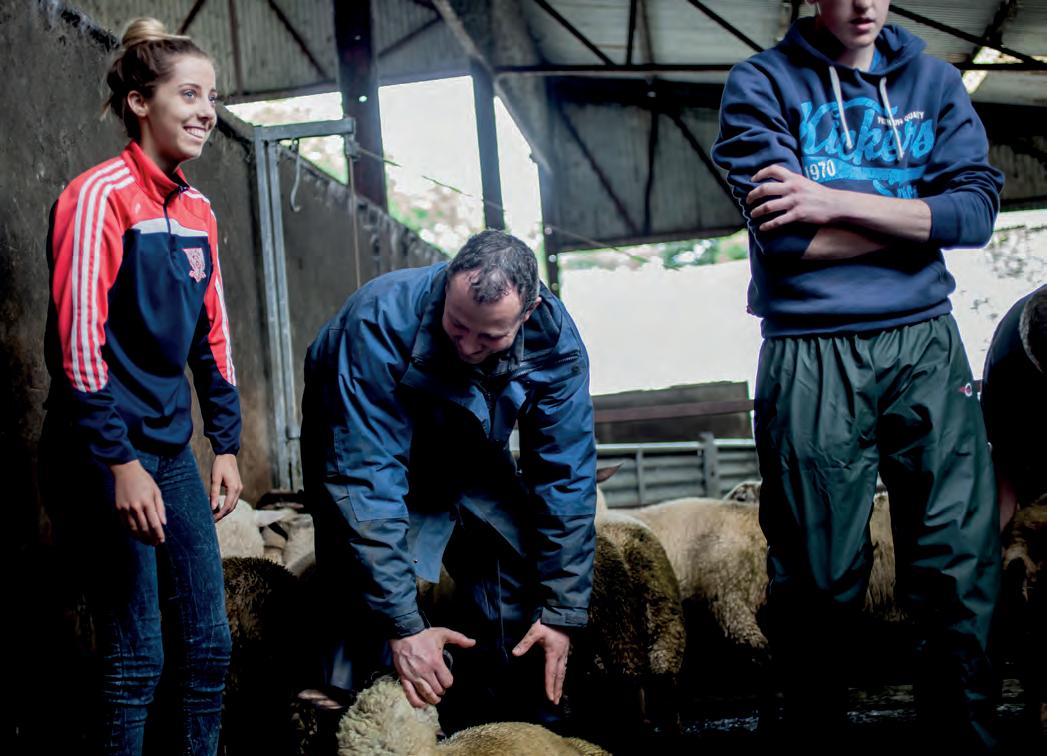
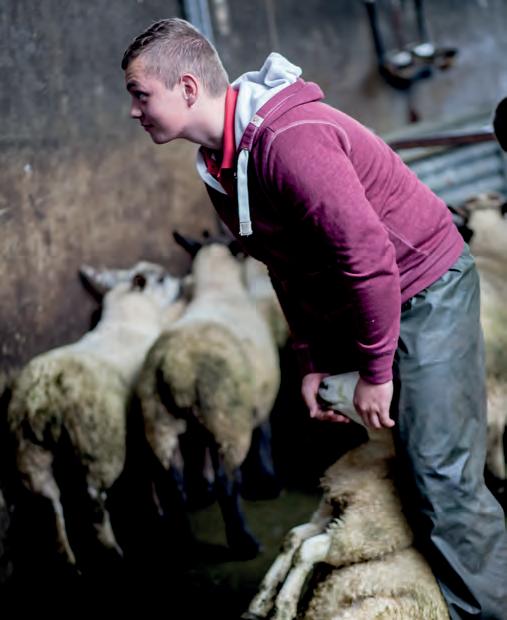
Meets the registration requirements set down in the Teaching Council [Registration] Regulations in respect of the curricular subject of ‘Agricultural Science’.
ATU3 Years
This programme is designed for people who are eager to care for animals. Graduates will work closely with the veterinary surgeon to help diagnose and treat medical and surgical cases. In addition to learning different aspects of science, clinical and surgical nursing, animal husbandry, ethics and laboratory management, students will also learn about veterinary practice management and communication skills.

The strong skills and knowledge students receive from this practical programme will leave them well placed for an enjoyable and challenging career. This programme involves a placement element consisting of a six-week placement in each semester in a veterinary setting.
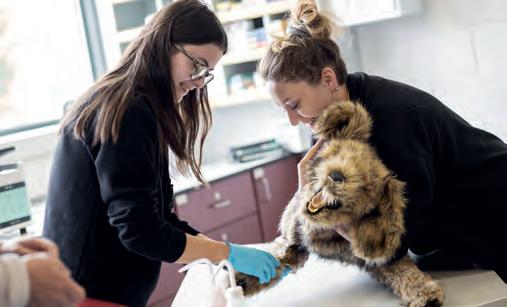
Graduate careers include working as a registered veterinary nurse, animal behaviourist or veterinary pharmaceutical sales specialist.
Level 7 graduates may apply internally for Year 4 of the Level 8 programme in Veterinary Nursing at ATU Donegal. ATU Level 8 qualifications are recognised worldwide for postgraduate entry.
Reserved places on this programme apply for 2 QQI FET applicants, 1 mature applicant, 1 HEAR applicant, 1 DARE applicant and 1 applicant progressing internally from Access studies.
32 Places
Work Placement
Standard entry requirements plus
• O6/H7 in either Phy, Chm, Pch, Bgy or Ags
• F2/O6/H7 in Maths
389* (Level 7 2021)
*Not all applicants who achieved these points received a place
Dr Kim McFadden
Head of Department of Life and Physical Sciences
kim.mcfadden@atu.ie
Accredited by the Veterinary Council of Ireland and Acovene.

Health Science with Dietetic Studies is the study of the human body with particular focus on Anatomy and Physiology and provides a foundation to Human Nutrition and Dietetics studies. Through a unique progression opportunity, this programme allows students to progress to complete a BSc Honours in Dietetics and Nutrition at Coventry University.
16 Places
Standard Entry Requirements plus
• Min H5 in Biology
• F2/O6/H7 in Maths
• Garda Vetting
• Health Declaration
• Coventry University Registration
336 (Level 6 2021)
Year 1
• Human Biology
• People Centred Communication Skills
• Introduction to Dietetics
• Introduction to Anatomy and Physiology
• Introduction to Human Health and Disease
• Psychological Well-Being and Health Promotion
• Civic and Social Engagement
• Human Nutrition and Metabolism
• Foundations of EvidenceInformed Practice
• Food and Food Production
• Nutrition Physiology and Eating
• Health and Well-Being in the Community
• Foundations in Dietetics Practice (Including Placement)
Additional elective modules may be available.
This programme incorporates year one of the three-year BSc Honours in Dietetics and Nutrition at Coventry University (CU).
Following successful completion of the two-year programme in ATU Donegal, students can progress directly to year two of the three-year BSc Honours in Dietetics and Nutrition in CU.
Upon successful completion of years two and three in Coventry University, graduating students will be awarded a BSc (Hons) in Dietetics and Nutrition and be eligible to register with the Health and Care Professionals Council (HCPC) in the UK.
Additional Information: Subject to Coventry University’s rules and regulations, Coventry University may, in its absolute discretion, register a student as a student of Coventry University for the duration of Stage II (Year 2 and Year 3 in CU) on receipt of: any documents of which Coventry University requires the student to complete to effect the registration, as notified to and/or requested from the prospective student by Coventry University. Coventry University fees shall be subject to annual review and may be changed at the sole discretion of Coventry University without notice.
Most learners pursue further studies at Coventry University from this programme. Graduate careers from the Level 6 award include working as a health care assistant, working in the nutrition industry or in the retail sector.
Graduates may progress to Year 2 of the Bachelor of Science (Honours) in Dietetics and Nutrition in Coventry University.
Dr Kim McFadden Head of Department of Life and Physical Sciences
kim.mcfadden@atu.ie
Reserved quota places on this programme apply for 1 QQI FET applicant, 1 mature applicant, 1 HEAR applicant and 1 DARE applicant.
Graduates of Health Science with Dietetics Studies in ATU Donegal are not qualified as Dieticians and are not eligible to register with CORU.
Health Science with Occupational Therapy Studies is the study of the human body with a particular focus on Anatomy and Physiology and provides a foundation to Occupational Therapy studies. Through a unique progression opportunity, this two-year programme allows students to progress to complete a BSc Honours in Occupational Therapy at Coventry University and to register with the Health and Care Professionals Council (HCPC) in the UK.
Year 1
• Human Biology
• People Centred Communication Skills
• Introduction to Occupational Therapy
• Introduction to Anatomy and Physiology
• Introduction to Human Health and Disease
• Psychological Well-Being and Health Promotion
• Civic and Social Engagement
Year 2
• The Human, Mind and Occupation 1
• Occupational Therapists: Doing, Being, Becoming and Belonging
• Foundations of Evidence
Informed Practice
• The Human, Mind and Occupation 2
• Health and Well-Being in the Community
• Delivering Theory Based Occupational Therapy
• Placement Preparation
• Practice placement
Additional elective modules may be available.
This programme incorporates year one of the three-year BSc Honours in Occupational Therapy at Coventry University (CU). Following successful completion of the two-year programme in ATU Donegal, students can progress directly to year two of the three-year BSc Honours in Occupational Therapy in CU.
Upon successful completion of years two and three in Coventry University, graduating students will be awarded a BSc (Honours) in Occupational Therapy.
Additional Information: Subject to Coventry University’s rules and regulations, Coventry University may, in its absolute discretion, register a student as a student of Coventry University for the duration of Stage II (Year 2 and Year 3 in CU) on receipt of: any documents of which Coventry University requires the student to complete to effect the registration, as notified to and/or requested from the prospective student by Coventry University. Coventry University fees shall be subject to annual review and may be changed at the sole discretion of Coventry University without notice.
Most students pursue further studies at Coventry University from this programme. Graduate careers from the Level 6 award include working as a health care assistant and occupational therapy assistant.
Graduates may progress to Year 2 of the Bachelor of Science (Honours) in Occupational Therapy in Coventry University.
2 Years
Standard Entry Requirements plus
• Min H5 in Biology
• F2/O6/H7 in Maths
• Garda Vetting
• Health Declaration
• Coventry University Registration
451* (Level 6 2021)
*Not all applicants who achieved these points received a place
Dr Kim McFadden Head of Department of Life and Physical Sciences kim.mcfadden@atu.ie
Reserved quota places on this programme apply for 1 QQI FET applicant, 1 mature applicant, 1 HEAR applicant and 1 DARE applicant.
Graduates of the Level 6 Health Science with Occupational Studies in ATU Donegal are not qualified as Occupational Therapists and are not eligible to register with CORU.
This is a two-year Higher Certificate in Science (Health Science with Physiotherapy Studies) programme. Health Science with Physiotherapy Studies is the study of the human body with a particular focus on Anatomy and Physiology and provides a foundation to Physiotherapy studies. Through a unique progression opportunity, this programme allows students to progress to complete a BSc Honours in Physiotherapy at Coventry University and register with the Health and Care Professionals Council (HCPC) in the UK.
• Human Biology
• People Centred Communications Skills
• Introduction to Physiotherapy
• Introduction to Anatomy and Physiology
• Introduction to Human Health and Disease
• Psychological Well-Being and Health Promotion
• Civic and Social Engagement
• Pathophysiology
• Research and Study Skills
• Anatomy of the Upper Quadrant
• Introduction to Physiotherapy Assessment
• Health and Well-Being in the Community
• Physiotherapy Intervention and Management
• Movement Analysis, Physical Activity and Exercise
• Anatomy of the Lower Quadrant
Additional elective modules may be available.
This programme incorporates year one of the three-year BSc Honours in Physiotherapy at Coventry University (CU). Following successful completion of the two-year programme in ATU Donegal, students can progress directly to year two of the three-year BSc Honours in Physiotherapy in CU.
Upon successful completion of years two and three in Coventry University, and graduation subject to academic regulations, students will be awarded a BSc (Hons) in Physiotherapy.
Additional Information: Subject to Coventry University’s rules and regulations, Coventry University may, in its absolute discretion, register a student as a student of Coventry University for the duration of Stage II (Year 2 and Year 3 in CU) on receipt of: any documents of which Coventry University requires the student to complete to effect the registration, as notified to and/or requested from the prospective student by Coventry University. Coventry University fees shall be subject to annual review and may be changed at the sole discretion of Coventry University without notice.
Most students pursue further studies at Coventry University from this programme. Graduate careers from the Level 6 award include working with the Health Service Executive (HSE) or in physiotherapy practices.
Graduates may progress to Year 2 of the Bachelor of Science (Honours) in Physiotherapy in Coventry University.
2 Years
16 Places
Standard Entry Requirements plus
• Min H5 in Biology
• F2/O6/H7 in Maths
• Garda Vetting
• Health Declaration
• Coventry University Registration
487* (Level 6 2021)
*Not all applicants who achieved these points received a place
Dr Kim McFadden Head of Department of Life and Physical Sciences
kim.mcfadden@atu.ie
Reserved quota places on this programme apply for 1 QQI FET applicant, 1 mature applicant, 1 HEAR applicant and 1 DARE applicant.
Graduates of the HC in Health Science with Physiotherapy Studies in ATU Donegal are not qualified as Physiotherapists and are not eligible to register with CORU.
4 Years
This programme may suit those who wish to pursue an interesting and worthwhile career in the caring profession. Students who have an interest in acquiring the skills necessary to work with and care for people suffering from a variety of physical health problems will enjoy this programme. It will also suit students who wish to learn how to analyse problems and apply solutions based on best practices. Good communication skills, combined with an interest in working with people who are ill and in need of care and support are also an advantage.
Year 1
• Biological and Related Sciences 1
• Introduction to Behavioural Sciences and Scholarship
• Professional and Ethical Nursing Studies 1
• Nursing Skills 1
• Biological and Related Sciences
2
• Psychology and Sociology across the Lifespan
• Professional and Ethical Nursing Studies 2
• Nursing Skills 2
• General Nursing Clinical Practice
1
Year 2
• Clinical Nursing Pathway 1
• Research in Practice 1
• Professional and Ethical Nursing Studies 3
• Nursing Skills 3
• Clinical Nursing Pathway 2
• General Nursing Practice 2
• Nursing Skills 4
• Promoting Health and Well-Being
• Research in Practice 2
• General Nursing Practice 3
• Aging and Care of the Older Person
• Individual and Collective Well-Being
• Research in Practice 3
• Care of person with Cancer
• General Nursing Clinical Pathway
Year 4
• Clinical Nursing Pathway 4
• Leadership, Management and Professional Scholarship
• Preparation for Professional Practice
• General Nursing Practice 4
Additional elective modules may be available.
35 Places
Standard Entry Requirements plus
• O6/H7 in Phy, Chm, Pch, Bgy or Ags
• Health Declaration
• Garda Vetting
• Mandatory Training
• Practice Placement
There is a 36-week paid internship in Year 4.
Graduate careers typically include working as a medical/surgical care nurse, clinical nurse specialist such as in renal, oncology or orthopaedics, clinical nurse manager or as a community, public health or general practice nurse. Successful graduates find work in clinical nursing such as acute, primary and community care settings, or in education and research.
Graduates may progress to the following programmes:
• PG/Master of Science in Advancing Health and Social Care at ATU Donegal
• PG/Master of Science in Therapeutic Interventions in Alcohol and Other Drugs at ATU Donegal
• PG/Master of Science in Advanced Practice (Nursing) (Consortium blended delivery)
• PG/Master of Science in Professional Nursing Practice (Consortium blended delivery)
• Higher Diploma in Counselling (Level 8)
• Acute Medicine Nursing (Standalone Module)
• Emergency Nursing (Standalone Module)
• ATU Level 8 qualifications are recognised worldwide for postgraduate entry.
429* (Level 8 2021)
*Not all applicants who achieved these points received a place
Ms Breda Mulgrew Programme Lead
nursingandhealthstudies@atu.ie
All nursing graduates are highly sought after with 100% employability potential upon graduation.
Reserved quota places on this programme apply for 3 QQI FET applicants, 5 mature applicants, 1 HEAR applicant and 1 DARE applicant.
Nursing and Midwifery Board Ireland (NMBI).

4 Years
Intellectual Disability (ID) Nursing is a specialised type of nursing which concerns itself with working with adults and children who have an intellectual disability and who may be unable to live fully independent lives. Its essential goal is to guide, support and work with these adults and children towards maintaining optimum health and well-being and social inclusion in day-to-day life. This involves working with each individual, their families, carers and the general community.
Successful graduates find work in clinical nursing, clinical nurse management, community, residential, day centre or intellectual disability services, or in education and research.
Graduates may progress to the following programmes:
• PG/Masters Degree in Advancing Health and Social Care at ATU Donegal
• PG/Masters Degree in Therapeutic Interventions in Alcohol and Other Drugs at ATU Donegal
• PG/Master of Science in Advanced Practice (Nursing) (Consortium blended delivery)
• PG/Master of Science in Professional Nursing Practice (Consortium blended delivery)
• Certificate in Contemporary Healthcare Management
ATU Level 8 qualifications are recognised worldwide for postgraduate entry.
22 Places
Work Placement
Standard Entry Requirements plus
• O6/H7 in Phy, Chm, Pch, Bgy or Ags
• Health Declaration
• Garda Vetting
• Mandatory Training
• Practice Placement
357 (Level 8 2021)
Ms Stephanie Bonar Programme Lead nursingandhealthstudies@atu.ie
All nursing graduates are highly sought after with 100% employability potential upon graduation.
Reserved places on this programme apply for 3 QQI FET applicants, 5 mature applicants, 1 HEAR applicant and 1 DARE applicant.
Nursing and Midwifery Board Ireland (NMBI).

4 Years
This programme is for students who have an interest in acquiring the skills necessary to work with and care for people suffering from a variety of physical and mental health challenges. Students who wish to learn how to analyse problems and apply solutions based on best practices will enjoy this programme. An interest in working with people who have mental health challenges is also an advantage.
There is a 36-week paid internship in Year 4 with 16 places in Donegal and 16 places in Sligo/Leitrim Mental Health Services.
Year
•
•
Behavioural Sciences
• Professional and Ethical Nursing
• Nursing Skills 1
• Biological and Related Sciences 2
• Psychology and Sociology across the Lifespan
• Professional and Ethical Nursing Studies 2
• Understanding the nature of Mental Illness
• Mental Health Nursing and Clinical Practice 1
Year 2
• Physical Health and Well-Being 1
• Professional and Ethical Nursing Studies 2
• Research in Practice 1
• Promoting Recovery
• Complex needs in Mental Health Nursing
• Research in Practice 2
• Foundations for Healthcare and Recovery
• Promoting Health and Well-Being
• Mental Health Nursing Practice
Year
• Mental Health Nursing Practice
• Physical Health and Well-Being
• Individual and Collective Well-Being
• Aging and Care of the Older Person
Research in Practice
Year
• Leadership, Management and Professional Scholarship Contemporary Approaches in Mental Health Nursing
• Development of the Skilled Practitioner
• Mental Health Nursing Practice
• Mental Health Nursing (Internship)
Additional elective modules may be available.
Successful graduates find work in clinical nursing, community mental health services, nurse management, education and research. Graduate careers include working as a psychiatric nurse in various settings.
Graduates may progress to the following programmes:
• PG/Masters Degree in Advancing Health and Social Care at ATU Donegal
• PG/Masters Degree in Therapeutic Interventions in Alcohol and Other Drugs at ATU Donegal
• PG/Master of Science in Advanced Practice (Nursing) (Consortium blended delivery)
• PG/Master of Science in Professional Nursing Practice (Consortium blended delivery)
• Higher Diploma in Counselling Skills (Level 8)
• ATU Level 8 qualifications are recognised worldwide for postgraduate entry.
32 Places
Work Placement
Standard Entry Requirements plus
• O6/H7 in Phy, Chm, Pch, Bgy or Ags
• Health Declaration
• Garda Vetting
• Mandatory Training
• Practice Placement
367* (Level 8 2021)
* Not all applicants who achieved these points received a place
All nursing graduates are highly sought after with 100% employability potential upon graduation.
Reserved quota places on this programme apply for 3 QQI FET applicants, 5 mature applicants, 1 HEAR applicant and 1 DARE applicant.
Nursing and Midwifery Board Ireland (NMBI).
 Dr Louise McBride Head of Department of Nursing and Health Care louise.mcbride@atu.ie
Dr Louise McBride Head of Department of Nursing and Health Care louise.mcbride@atu.ie
Jodie began her degree in General Nursing at ATU Donegal in 2018. She always knew Nursing was the career path for her and was impressed by the Nursing facilities on campus when she visited during Open Day.

Jodie secured a scholarship from Optum Ireland during her four years studying at ATU Donegal and embraced all aspects of her Nursing degree, particularly enjoying the work placement opportunities. One aspect of the programme that stood out for Jodie was the midwifery placement.
During this placement Jodie realised her chosen career path and has plans to begin a Masters of Science in Midwifery in the coming months.
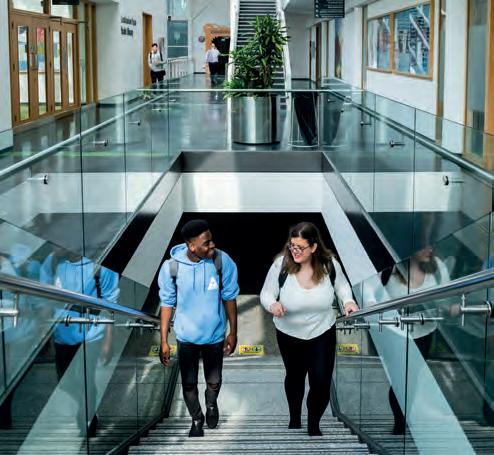
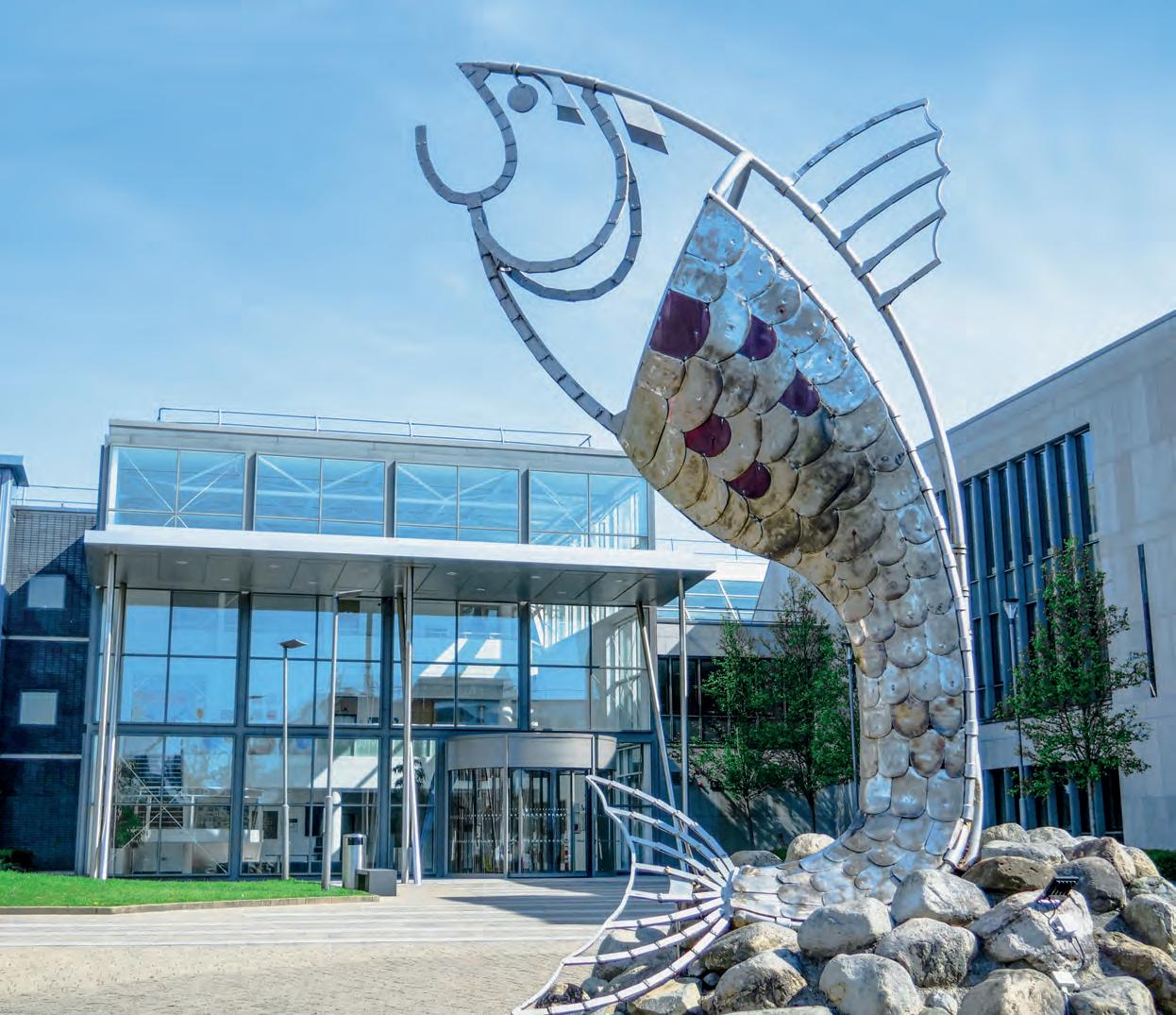

Almost 9,000 students study full-time, part-time or online with ATU Sligo, with programmes available from higher certificate Level 6 up to PhD Level 10. We offer 75 CAO programmes across eleven departments. ATU Sligo is home to students from every county in Ireland and 36 countries worldwide.
We have invested significantly in our campus. Whether it is the labs in engineering and science, Apple Mac computer lab or the new creative hub for arts, design and architecture; our students have access to some of the best facilities of any third-level provider in Ireland.
One of the major advantages to life in ATU Sligo is the sense of community. We have a full team of dedicated staff to support our students throughout their studies. We also boast the best student to lecturer ratio in Ireland as outlined by the Good University Guide 2022. More than just a number, our students get to know all their lecturers and classmates on a first-name basis.
Our academic staff are passionate and engaging meaning advice and help is always on hand. From all corners of the globe, numerous academics are regarded as leaders in their respective fields. They not only bring academic knowledge; they also bring real-world experience.
Spread over three floors, the Yeats Library is a world-class facility providing all the resources a student needs to excel in their programme of study. The library has over 700 workspaces, 70,000 printed books, while students have 24/7 access to over 140,000 e-books and e-journals.
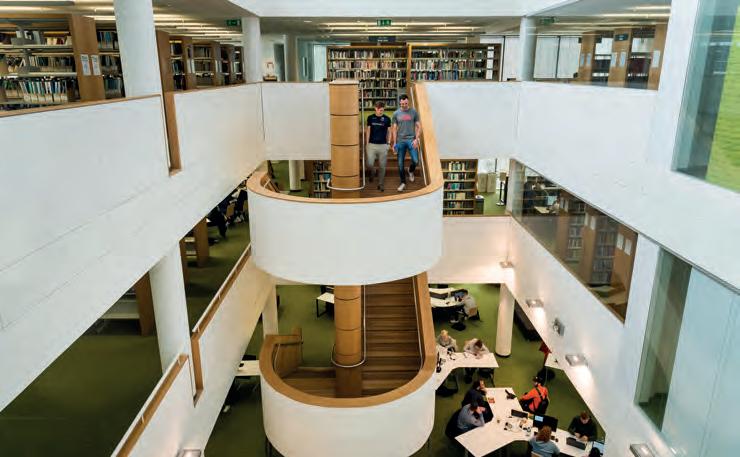
We understand there is more than one way to educate. We are big on practical learning, which means we reinforce theory with hands-on experience in labs and workshops. Real life and collaborative projects, industry visits, guest speakers and work placements are just some of the other ways we ensure our students get the best education possible. In 2021, 95% of our graduates secured employment or continued their studies (Graduate Outcome Survey).
223 Business, Marketing, Tourism and Sport
235 Social Sciences
241 Engineering and Construction

261 Computing
267 Arts, Design and Architecture
277Science
BBs (Hons) in BusinessThe wide range of business modules, practical projects, teamwork and work experience in ATU Sligo gave me an advantage in progressing my career. I arrived at my first job interview prepared with my portfolio in hand. It was packed with case studies, business analysis and project work. I could clearly illustrate my understanding and knowledge of real business challenges.
I currently work for an AdTech company called AdRoll. My first role was as an account strategist in our Dublin office, before I was promoted to account manager. I later relocated to New York to manage an internal ad operations team of performance specialists. I am now a director in the company and oversee a cross collaborative, global and dynamic team within our customer operations department.
 Emma Gilroy
Emma Gilroy
Our business programmes produce graduates with a blend of business-related knowledge and skills. Students are equipped with knowledge in core business areas such as business management, with modules in human resources, finance and accounting, law, marketing and economics. Students also learn about enterprise development and optimising IT for business effectiveness. Individual and group projects are an integral part of the programme which develop skills required for business, such as analysis, teamwork, presentation and professional business skills.
Year 1
• Financial Accounting
• Business Technology
• Personal Learning and Development
• Business Mathematics
Introduction to Management
• Teamwork and Communication
• Introduction to Marketing
Year 2
• Digital Marketing
• Management Accounting
• Economics for Business
• Business Law
• Marketing Research and Customer Care
• Advanced Business Technology
• Enterprise Development
• Business Management
• International Marketing
• Introduction to Financial Management
• Human Resource Management
• Operations Management
• Contemporary Management Marketing Communications and Sales
• Applied Finance
• Work Placement
Additional elective modules are available
Our lecturers not only have the academic knowledge but also the industry experience to provide our students with a deep understanding of business practice across various industries and organisations. They tackle, together with guest speakers from industry, the most up-to-date trends and challenges facing businesses today. Work placement takes place in the final semester on the Level 7 programme to put the theory learned into practice.
Graduates enjoy a wide variety of career choices in a broad range of businesses. Many have established highly successful businesses, while others have joined graduate training programmes in multinational companies and have enjoyed success in senior management roles.
Graduates take up employment opportunities across the public, private and non-profit sectors. Career options include sales, management, human resources, marketing, finance and accounting, office and project management.
Students can use these programmes as part of the ladder system to progress to the Level 8 honours degree. Students who come through the ladder system end up with the exact same degree as those who start on the Level 8 programme. The duration is the same. Applicants are encouraged to put down all three levels on the CAO to be sure of a place on these highly sought-after programmes.
2/3
Standard Entry Requirements 233 (Level 7 2021) 160 (Level 6 2021)
cao.sligo@atu.ie
Students have the opportunity to study Spanish, French or German as part of their elective choices.
Graduates of the Level 7 qualification can progress to a Level 8 Bachelor of Business (Honours) degree at Atlantic Technological University or in other higher education institutions.
Higher Certificate (Level 6) students can progress to the Level 7 Bachelor of Business or Level 7 Bachelor of Business in Business Administration.
3
This programme prepares students for employment in administration and office management at a junior management level. The programme builds practical skills, with a strong focus on office management systems, including databases, spreadsheets, payroll and administration. Students will also develop a valuable range of transferable personal skills such as teamwork, leadership and problem-solving. These skills are all highly sought after by employers. It provides an interactive learning experience with a focus on practical laboratory classes, case studies and problem-based learning.
30
Work Placement
Erasmus+
241 (Level 7 2021)
cao.sligo@atu.ie
Year
•
•
•
•
•
•
•
•
Students enjoy a 12-week work placement across a range of industries to gain the practical skills to reinforce the theory learned on the programme.
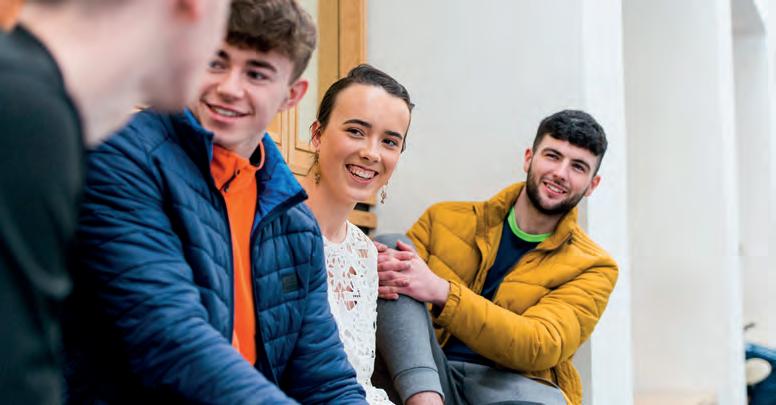
Students can take elective modules as diverse as languages, politics or other business-related modules. Students may also take a language elective and complete an Erasmus+ semester abroad.
Graduates enjoy a wide variety of career choices in a broad range of businesses. Many have established highly successful businesses, while others have joined graduate training programmes in multinational companies and have enjoyed success in senior management roles.
Graduates work in a range of areas, including clerical assistant, personal assistant, receptionist, financial assistant, bank official, business manager, office manager and customer care officer.
Year 1 focuses on foundation knowledge in core business areas. As the degree progresses, students knowledge and understanding is broadened as they study core business areas in greater detail.
Graduates may progress to the add-on Bachelor of Business Degree Level 8 at Atlantic Technological University or at other higher education institutions.
This three-year honours degree offers one of the fastest routes to achieving a professional accounting qualification. This programme is highly commended by all the professional accountancy bodies where graduates will qualify for maximum exemptions from all the professional accountancy exams in Ireland. No other university in Ireland offer more exemptions. This programme is delivered through a combination of lectures, case studies, problem-based learning and computer laboratory work. Students develop a detailed comprehension of core concepts and principles in accounting and develop soft skills in problem solving, teamwork, creativity and communication. Accountancy offers a solid foundation on which to build a dynamic and rewarding career across a limitless range of sectors.
Year 1
• Financial Reporting
• Management Accounting Fundamentals
• Information and Communications Technology
• Teamwork and Creativity
• Business Law for Accountants
• Business Mathematics and Statistics
• Advanced Business Technology for Accountants
• Personal Finance
Year 2
• Financial Reporting
• Management Accounting Planning, Control and Decision-Making
• Information and Communications Technology in Accounting
• Principles of Macro and Microeconomics
• Company Law, Partnership Law and Governance
• Principles of Management
• Professional Development for Accountants
• Company Law and Partnership Law
Year 3
• Business Strategy
• Finance
• Auditing
• Strategic Management Accounting
• Taxation
• Financial Reporting
On completion of this three-year programme, graduates are exempt from all CAP1 examinations with Chartered Accountants Ireland; three applied knowledge and six applied skills examinations with ACCA; all examinations up to Professional 2 stage with CPA; Certificate and Operational level (except for operational case study exam) with CIMA.


There is a significant shortage of accounting graduates in Ireland. Our final-year students are experiencing high demand for their skill set and receiving numerous offers of employment both locally and nationally, often prior to completion of the programme. Most graduates progress to a professional accounting qualification. Graduates also pursue careers in finance, banking and financial services, second-level teaching or lecturing.
Graduates can complete a Professional Master of Education (PME) to become a secondary school teacher of Accounting at Leaving Certificate level and Business at Junior Certificate level.
Accountancy at Leaving Certificate level is not required as the programme starts with beginners accounting. This programme has a low student-to-lecturer ratio which enhances the learning experience and facilitates more individual attention between students and their tutors.
3/4
Students who join these marketing degrees will study the latest practices from across the world of business and marketing. They will be equipped with the necessary knowledge and skills to work in contemporary business and marketing environments where skilled marketers are in high demand in Ireland and across the globe. Guest lectures, Erasmus+ programmes, work placement, community engagement
trips, coupled with excellent teaching, lay the foundations
qualification.
Many modules will have guest lecturers who are marketing professionals, business owners, past graduates and experts in specific fields. The guest lecturers expose students to the opportunities that await them and are also a fantastic opportunity to network.
298 (Level 8 2021) 269 (Level 7 2021)
cao.sligo@atu.ie
There are many roads of opportunity for a marketing graduate - digital marketing manager, marketing executive or manager, sales manager, eCommerce marketer, content creator, social media manager, events marketer, email marketer, blogger/influencer marketer, marketing data analyst, online ad manager, online PR manager, sales account manager, business development manager, are just some of the areas where employment may lie.
Level 7 graduates may progress to the final year of the fouryear Level 8 degree. Level 8 graduates may continue to a Level 9 one-year taught MSc in Marketing, a Masters by research or PhD.
This programme has been designed in compliance with the Teaching Council’s curricular teaching subject requirements for Business, meaning secondary school teaching is an option for graduates who complete a Professional Master of Education (PME).
In Year 3, students complete a work placement for approximately eight weeks. Business insights trips to various companies located in the region are also a core part of the programme every year. These offer great opportunities to bring the theory of the classroom to life.
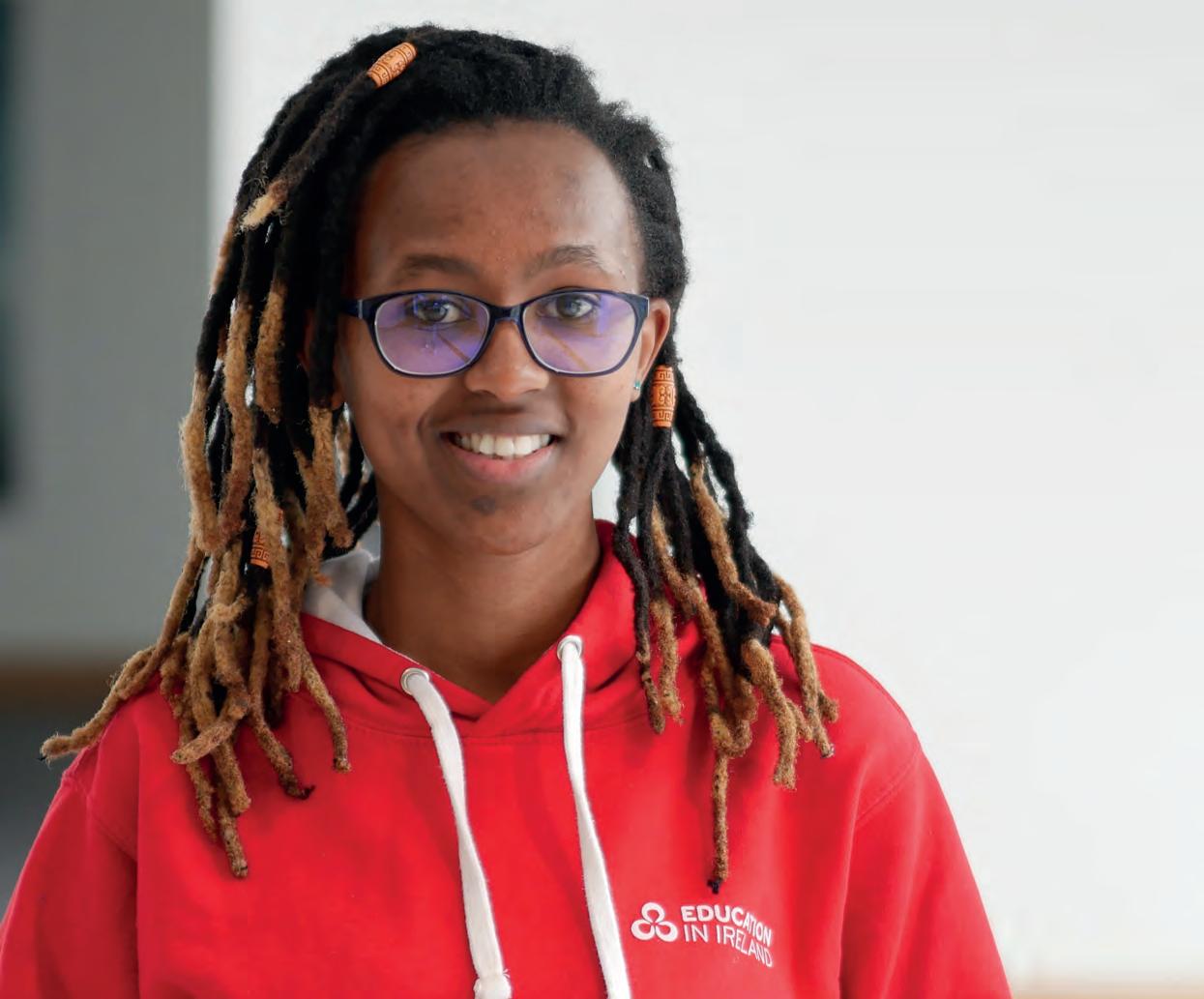
I love that this degree gives me specialist knowledge in marketing but broad business skills too. We learn about lots of different areas of marketing from social media marketing and digital marketing to consumer behaviour and data analytics. I find these very interesting and relatable.
Having the opportunity to work on real projects and go on work experience has helped bring the theory learnt in class to life. In third year, our group project involved pitching a marketing business plan to potential investors. Business insight trips to local and national companies have been a great learning experience too. There are huge global opportunities for a marketing graduate and I am excited to see where my career takes me.
Olive Wanjiru3 Years
In a dynamic and rapidly changing world, our tourism graduates are confident, creative, and agileexactly what is needed to rebuild and continue to develop the world’s fastest-growing economic sector in a sustainable manner. This is the only three-year honours degree in this subject available in our region, offering students the most current business degree with a specialism in tourism and events. This provides a broad and exciting platform to build a successful career and opportunities to travel internationally.
40 Places
Work Placement
Standard Entry Requirements plus • Garda Vetting
Erasmus+
298 (Level 8 2021)
Year 1
• Events Management
• Introduction to Relationship Marketing
• Business Application Software
• Business Law
• Financial and Management Accounting
• Foundations of Tourism
• Introductory Microeconomics
• Health and Safety Law for Events
• Business Management
• Experiential Tourism Marketing
• Tourism and Travel Industry
Year 2
• Introduction to Financial Management
• Enterprise Development
• Managing People
• Sustainable Management of the Impacts of Tourism
• Tourism Communications and Branding
• Event Planning and Project Management
• Research Methods for Business
• International Destination Management
• Work placement / Erasmus+
Year 3
• Macroeconomics
• Business Strategy
• Globalisation and Tourism
• Strategic Tourism
• Tourism and Events Research Project
Additional elective modules are available
Industry placement provides students with invaluable real-world experience and practical insights into the tourism, events, and closely related sectors. Students are encouraged to complete the placement overseas. In the past, students have worked in the USA, France, Germany, Spain, Greece, Alaska, Hong Kong, Turkey, UK and Ireland. Students have the opportunity to take part in international field trips to tourist destinations such as Amsterdam, Paris, Madrid, Venice, Frankfurt and Rome.
Graduates are highly sought after and can work across the globe in festival and event management companies, education, conference or business tourism, tour operators or travel agents, destination management, marketing organisations as well as cultural, heritage and conservation projects to name a few. Many of our entrepreneurial graduates also start their own businesses. Graduates have worked on amazing events like Sea Sessions, Electric Picnic and the X-Factor. The opportunities arising from studying a multifaceted business degree such as Tourism and Event Management are endless.
Graduates from our Level 8 degree can pursue a wide range of Level 9 and 10 postgraduate programmes at Atlantic Technological University or other third-level institutions. This degree has been designed in compliance with the Teaching Council’s curricular teaching subject requirements for Business, meaning secondary school teaching is an option for graduates who complete a Professional Master of Education (PME).
cao.sligo@atu.ie
Language study is available as a non-compulsory elective on this programme. Students can choose between German, French or Spanish.
This business degree is diverse. Students build their academic and practical experience through their studies, paid work placement, real-life business visits and projects, and fun offcampus excursions, activities, and international trips.
3 Years
Globally, tourism is the world’s fastest-growing economic sector. International tourist arrivals normally total over one billion, with Europe receiving the most international tourist arrivals. The industry needs graduates who have the skills to help rebuild Ireland’s largest indigenous industry. As a solid business degree, International Tourism and Event Management gives students a broad platform to build a successful career and opportunities to travel the world. This degree provides students with an exciting blend of business and management skills to work across the business, tourism and events industry.
Year 1
• Skills for Success
• Principles of Marketing
• Organisational Behaviour
• Introduction to International Tourism and Travel Introduction to International Festivals and Events
• Teambuilding and Communication Skills
• Digital Content
• Data Analytics
• Guiding and Adventure Tourism
• Tourism Innovation and StartUps
Year 2
• Financial Accounting
• Business Application Software
• Business Law
• Events Management
• Foundations of Tourism
• Introduction to Management
• Accounting
• Introductory Microeconomics
• Health and Safety Law for Events
• Business Management
• Tourism and Travel Industry
Year 3
• Introduction to Financial Management
• Enterprise Development
• Sustainable Management of the Impacts of Tourism
• Event Planning
• Managing People
• Research Methods for Business
• Events Project Management
• International Destination Management
• Work placement / Erasmus+
Additional elective modules are available
50
Work Placement
Standard Entry Requirements plus • Garda Vetting
Erasmus+
160 (Level 7 2021)
Opportunities arise throughout the programme to work on real-life projects with local and regional business organisations. Students enjoy weekly site visits to the rich tourism-based local and national operations and heritage sites.
In Year 3, students participate in a paid 4-6 month work placement to apply their knowledge and develop their skills in tourism specific environments across the world.
Graduates of this business degree work in festival and event management companies, conference and business tourism, airports & airlines, cruise ships, tour operators & travel agents, wellness & health spa tourism resorts, destination specialists and heritage & conservation projects. Many graduates also start their own businesses.
Graduates may complete one additional year for the Level 8 BBs (Hons) in Tourism and Event Management honours degree after which they could choose to continue to a Masters degree, a Professional Master of Education (PME) to become a secondary school teacher of Business or a Level 10 PhD qualification.
Tourism experts and entrepreneurs are often invited as guest lecturers to speak with students and share their knowledge on the sector.
cao.sligo@atu.ie
To further develop the international element of their degree, students can choose to develop language skills with non-compulsory elective modules in French, German and Spanish that are available on all three years of the programme. Students also get the opportunity to gain a Guiding and Adventure Tourism badge.
This programme is the first of its kind in Ireland – a three-year honours degree that combines sports-related modules with comprehensive business education and practice. The programme focuses on introducing students to business and enterprise skills with opportunities for specific skill development in coaching, fitness instruction, personal training, education, exercise prescription and health. It offers students an excellent balance between theory and practice, and equips students with the knowledge and professional skills and competencies required to work within sport, fitness, leisure or business environments.
Year 1
• Principles of Marketing
• Outdoor Recreation
• Management and the Business Environment
• Intermediate Business Technology
• Health and Fitness
• Intermediate Business Technology
• Management of Recreation and Fitness
• Gym Instruction
• Business and Sport Law
• Introduction to Management Accounting
• Exercise and Health Psychology
• Introduction to Economics
Year 2
• Business Enterprise and Entrepreneurship
• Digital Content and Analysis
• Planning for Sport and Recreation
• Introduction to Financial Management
• Managing People
• Services Marketing and Customer Care
• Teaching and Coaching ( Team Sports)
• Work Placement
Year 3
• Macroeconomics
• Business Strategy
• People Management Skills
• Strategic Sport Development
• Research Methods in Sports
Health Promotion

• Sports Marketing
• Dissertation
Students can attain several industry-recognised external qualifications, which are incorporated into this programme. These include REPs (Register of Exercise Professionals) Ireland qualifications in the area of fitness instruction and personal training. Other qualifications include swim teaching, national pool lifeguard and community walking leader. Coaching Ireland awards are also incorporated into the coaching modules in sports including basketball, GAA, athletics and rugby.
A wide range of career opportunities are available to graduates including sports development, health promotion, marketing, management, coaching, setting up their own business and as a route into a career in teaching. Through the incorporation of work-based projects and work placements, graduates will be ‘work-ready’ and prepared for integration into the workplace.
Graduates can pursue a wide range of Level 9 and 10 postgraduate studies in education, strength and conditioning, exercise physiology and therapy, health promotion, sports management, marketing, and teaching.
In Year 2 of the programme, students go on a 13-week work placement. In the past, students have gone to a variety of settings including various businesses, sports teams and schools. Work placement allows students to put the theoretical and practical knowledge they have learnt in college into a real-life work environment.
Students can choose from a number of electives in the areas of sport or business, based on where their interests lie.
This programme gives students the opportunity to learn about all aspects of sport and recreation while also studying business, leadership, marketing and digital technology modules. This equips students with entrepreneurial skills, allowing them to work in the business and sports sectors, or open their own sportsrelated business. As part of the practical element of the programme, students will work regularly with children and other target populations from schools and other environments in health and fitness, sports education, coaching and swim teaching.
Year 1
• Sport and Recreation
• Financial Accounting
• Business Technology
• Fundamentals of Aquatics
• Play, Dance and Fundamental Movement Skills
• Research-Based Study Skills
• Sociology of Sport
• Athletics and Gymnastics
• Health Promotion
• Sport and Adventure Tourism
• Anatomy and Physiology
Year 2
• Management and the Business Environment
• Intermediate Business Technology
• Principles of Marketing
• Outdoor Recreation
• Health and Fitness

• Intermediate Business Technology
• Management of Recreation and Fitness
• Business and Sport Law
• Introduction to Management Accounting
• Gym Instruction
• Exercise and Health Psychology
• Introduction to Economics
Year 3
• Business Enterprise and Entrepreneurship
• Planning for Sport and Recreation
• Digital Content and Analysis
• Introduction to Financial Management
• Managing People
• Services Marketing and Customer Care
• Teaching and Coaching ( Team Sports)
• Work Placement
Additional elective modules are available
This programme features a high level of practical activity ranging from swimming-based activities and surfing, to fitness instruction and sports coaching.

Year 3, students will go on a 13-week work placement. In the past students have gone to a variety of settings including schools, sports teams, health and various businesses. Work placement allows students to apply what they have learnt in a real world environment.
As a solid business degree, an abundance of opportunities awaits our graduates. Many start their own business, work as fitness professionals, work in sports facility management, sports development and management, health promotion, personal training, coaching and instruction. Some have also gone on to specialise in primary and secondary school teaching.
This programme ensures students acquire appropriate practical expertise and develop the competencies to be effective leaders in the sports industry and provide pathways through postgraduate study. Graduates can progress onto the final year of our Level 8 BBs (Hons) in Sport with Business. They may also choose to progress onto the final year of the BBs (Hons) in Business, Marketing or Human Resource Management. Level 8 graduates may continue their studies to Masters Level in Health Promotion, Marketing and Sports Management.
Students who complete this Level 7 in Applied Sport with Business and our one-year Level 8 add-on in Sport with Business, may apply to study a Professional Master of Education (PME) in order to become a secondary school teacher of Physical Education.
Students will have the chance to attain valuable national and international qualifications including European-recognised gym instruction and personal training, lifeguarding, swim instruction and several coaching awards.
Taking a combination of Sociology and Politics gives students an insight into how social and political forces affect our everyday lives and what we can do to effect change. Sociology focuses on understanding and analysing how human societies work. It studies everyday social practices, as well as discussing questions around economic inequality, power, gender and race, for example. Politics looks more at the decisionmaking process that groups or organisations make. These do not necessarily have to be governmental, as politics can be found in most interactions from schools to businesses and religious institutions.
Year 1
• Introduction to Sociology
• Study and Research for Sociologists
• Visualising Sociology
• Government and Politics of Ireland
• Politics Today
• Sociology of Everyday Life
• Key Issues in Sociology: Inequality and Social Exclusion
• Policy Making and the Policy Process
• Economy, Ecology and Economic Anthropology
• Contemporary Sociological Theory
• Gender and Sexuality
• Political Theory
• Political and civic engagement and active citizenship
• Race, Ethnicity and Migration
• Culture, Comparison and Context
• Understanding Sociological Research
• Active Politics Placement
• Community Development and Local Government
• Orchestrating the European Union
• Health, the Body and Society
• Sociology of Childhood and Family
• Globalisation, International Relations and Human Rights
• The Politics of Diversity
• Research Methods
• Technology, Climate and Society
• Futures of Politics and Society
• Evidence Informed Policy and Advocacy
• Sociology/Politics Research Project
Additional elective modules are available
3 Years
Places
Work Placement
Standard Entry Requirements plus
• Garda Vetting
• Maths not required
In the past, students have gone to a variety of destinations for their work placement in Year 2 including the European Parliament in Brussels. In their final year, students focus on their specialised area of interest, completing a research project on a political or sociological topic of their choice. One module in the final year will also be delivered online, allowing students more flexibility in their study.
There is a wide variety of careers to choose from including working as a representative for vulnerable people in society, public sector jobs (teaching and administration amongst many others) social policy, community development and international and national governmental work.
Graduates may progress to the taught Masters in Social Care and Social Justice in ATU. Graduates may also pursue a research Masters/PhD and Masters studies in areas such as politics or equality.
This programme has considered the Teaching Council Registration curricular subject requirements to meet the requirements to apply to undertake the Professional Master of Education (PME) programme to become a secondary school teacher in Civic, Social and Political Education (CSPE) and the Leaving Certificate subject Politics and Society.
By examining policy making, government and community development, gender relations, religion and migration, students gain adaptable skills in critical thinking, writing and researching, allowing them to explore a rich and diverse range of employment opportunities.
298 (Level 8 2021)
cao.sligo@atu.ie
Each year we welcome a number of students from countries all over the world. This diversity opens up wonderful debate and opinions on a variety of social and political topics.
ATU Prospectus 2023 | 236 ATU Sligo Erasmus+
This programme integrates English and Psychology to create a unique and versatile degree that allows graduates to explore a range of career options. By combining these two subjects, students have the opportunity to learn transferable, critical and creative thinking skills, as well as becoming independent learners, researchers, thinkers and writers. These skills are highly sought after by employers. Students will be introduced to both English and Psychology in the first year and as the programme progresses, allowed to focus on their specific, chosen interest.
Year 1
• Psychology of Learning
• Research Ethics in Psychology
• Drama Studies
• Foundations of Psychology
• English Literature, Prose and Poetry
• Theatre in Education
• Developmental Psychology (0-18 years)
• Applied Cultural Studies in Literature, Drama and Contemporary Culture
• Research Methods for Psychology
Year 2
• Personality and Individual Differences
• Adult Developmental Psychology
• Research Methods for Psychology
• Literary Genres - Short FormsThe Short Story & Irish Poetry
• Literary Theory and Criticism
• Children’s Literature
• Drama in Education
• Psychological Therapy
• Social Psychology
• The Biological Basis of Behaviour
• Irish Contemporary Drama through the lens of Greek Tragedy
• Young People’s Literature
Year 3
• Cognitive Psychology
• Research Methods
• Contemporary Irish Writing
• Theatre for Young Audiences
• Psychological Connections for Wellbeing
• English and Drama Symposium
Additional elective modules are available
3 Years
25 Places
Standard Entry Requirements plus
• Garda Vetting
• Maths not required
Erasmus+
In the Psychology strand, students will broaden their understanding of human nature as they develop a critical understanding of psychological thinking and research about human development, personality, cognitive functioning and mental health.
In the English strand, students will explore literary and dramatic texts by studying the intellectual and socio-historical contexts of the artworks. Learning and ideas are informed, understood and shared through seminars, workshops, lectures, theatre trips, conferences and group/individual work.
The integrated subjects of English and Psychology enables graduates to pursue a range of career and further study options. Employment opportunities exist in areas such as communications and media, community development, arts management, research and also in the business and technology sectors.
Graduates may progress to a Psychology Masters or conversion programme. Graduates may also pursue Level 9 and Level 10 studies within Atlantic Technological University or at other higher education institutions.
This programme has considered the Teaching Council Registration Curricular Subject Requirements to meet the requirements to undertake a Professional Master of Education (PME) programme to become a secondary school teacher in English.
Students on this programme will have the opportunity to experience blended learning in Year 3. The research methods module is taught online, giving students more flexibility as they prepare for their postgraduate studies.
319 (Level 8 2021)
cao.sligo@atu.ie
In the final year, students complete a research project in either English or Psychology. This allows them to develop in-depth knowledge on a topic of interest.
This programme has submitted an application for accreditation to The Psychological Society of Ireland (PSI).
4 Years
The overarching aim of this programme is to foster and develop the knowledge, skills, competencies, and values of emerging early years professionals to be independent and professional educators. The programme aims to meet the criteria for initial professional education, forming graduates who have the expertise to nurture and enrich infants’ and young children’s lives in early years learning and care settings. Combining theory with professional practice, this applied programme supports graduates to become skilled, competent, ethical, and reflective practitioners.
ATU is one of just three higher education institutes in Ireland to offer a Bachelor of Education in Early Education and Care, as opposed to a Bachelor of Arts more commonly found.
Students undertake a four-week placement in Year 1 and a thirteenweek placement in both Year 2 and Year 3. Students have the option to complete their second practice placement abroad, often funded as part of Erasmus+ grants. Students can choose countries such as Germany, Belgium, Sweden, Finland and the UK, and a variety of early years settings including primary schools and bilingual kindergartens.
Graduates can pursue a range of professional career opportunities including working in early childhood settings such as crèches, nurseries, playgroups, pre-schools, and primary schools. Graduates can also pursue employment in community development roles, county childcare committees, Tusla, the Child and Family Agency, community-based family support programmes as well as in specialist areas such as additional needs services.
Graduates can pursue a wide range of Level 9 and Level 10 postgraduate programmes at Atlantic Technological University or other third-level institutions. For example, students may apply to progress to the MA in Leadership and Advocacy in the Early Years or postgraduate awards in Primary Education or Community Development. Graduates of our programme have continued their studies and are working as primary-school teachers and speech and language therapists. Graduates may also undertake postgraduate study in psychology, disability studies, childhood studies and play therapy.
60 Places
Work Placement
Standard Entry Requirements plus
• Garda Vetting
• Maths not required
Erasmus+
287 (Level 8 2021)
cao.sligo@atu.ie
A Digital Badge is embedded in this programme. This allows graduates to work in a world of technology based on the principles of the Universal Design for Learning (UDL).
ATU Sligo’s modern facilities mean that students benefit from a state of-the art early years skills laboratory, outdoor learning spaces and two creative practice spaces.
This programme is approved by the Qualifications Advisory Board (instituted to review Level 7 and Level 8 Degree Programmes for the Early Learning and Care Sector) as meeting the requirements of the Professional Award Criteria and Guidelines standards.
Ireland, among other countries, continues to face many social challenges. A career in social care practice is challenging and also uniquely rewarding – graduates can make a real difference to people’s lives. Social Care Practice is a dynamic and continuously developing field that is now a professionally regulated career under CORU, along with other health and social care professions. Throughout this honours degree programme, students will develop their critical thinking skills, have a greater understanding of human interaction and how to respond in a professional and informed way to the needs of people who use support services.
Professional practice placement is an integral part of this programme where students complete two 13-week blocks in professional social care practice settings. Here, students are supported to apply and develop their skills and competencies in the field, thus emerging as confident, self-aware, experienced and professional social care practitioners. Our students regularly graduate with job prospects awaiting them as a result of their professional practice placement.
Graduates of this programme work at the front line, as social care professionals, leaders, and managers in the public, private, community and voluntary sectors, with persons who require support. Employment opportunities are wide and include working with children and young people at risk, older persons, individuals with disabilities, community groups, residential services, and homeless services.
ATU offer a comprehensive suite of Level 9 and Level 10 postgraduate qualifications both on-campus and online to further develop and enhance the career prospects of our students. Graduates may progress to Masters programmes in Social Care and Social Justice, Social Work, Social Research Practice, Equality and Counselling or Level 10 PhD doctorate in research.
70 Places
Work Placement
Standard Entry Requirements plus
• Garda Vetting
• Maths not required
309 (Level 8 2021)
cao.sligo@atu.ie
Our team of lecturers inspire students with their first-hand industry experience as social care workers and psychologists to name a few. Real life experiences help bring the theory to life for our students.
Roleplay is an active learning strategy within our Social Care Practice Programme and is used in teaching, learning and assessment opportunities.
This programme was the first Social Care Practice programme in Ireland to secure its (Professional Regulator) CORU approval, a true testament to the quality of this programme.
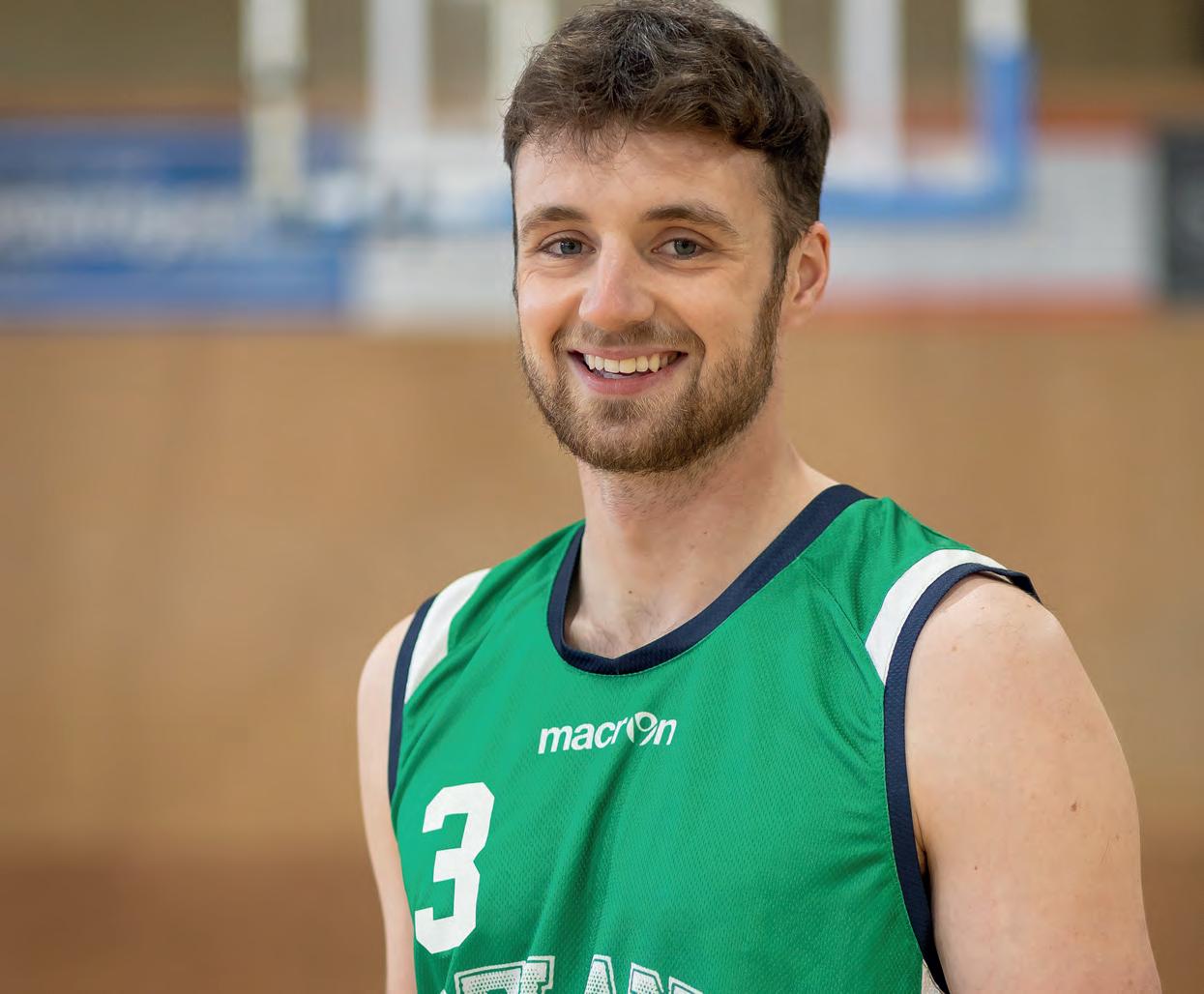 BA (Hons) in Social Care Practice
BA (Hons) in Social Care Practice
There is such a diverse range of modules which bring different learning outcomes, whilst the CORU accreditation really makes this degree stand out. The lecturers are so friendly too. Their expertise and knowledge from working in industry is invaluable. We get important hints and tips that you will only get from those who have seen and done it.
The opportunity to go on work placement for two full semesters is incredible. This first-hand experience is not only great for learning, it also gives you an idea of the specific type of career you want to pursue. If you are considering working with children, families, community work or anything socially, then this is the degree for you. It will open so many possibilities.
This general engineering year equips students with the fundamentals of engineering and gives them exposure to all the different types of engineering that are on offer at ATU Sligo. This helps students to make an informed choice as to which field of engineering to enter based on their aptitude and interest. On successful completion of Year 1, students will transfer into Year 2 of the programme of their choice. Students can choose one of the following options: Civil Engineering, Mechanical Engineering, Robotics and Automation or Electronics and Self-Driving Technologies.
This general engineering programme gives students exposure to all different types of engineering and equips them with the fundamentals of engineering. This helps them to make an informed choice of what field of engineering to enter based on their aptitude and interest. On successful completion of Semester 1, students transfer into Semester 2 of the specialism of their choice. Students can choose one of the following
Mechanical Engineering, Mechatronic Engineering or Precision Engineering and Design.
Year
•
Our Level 7 and Level 6 engineering programmes offer students an introduction to a wide range of engineering disciplines. Our suite of programmes in Civil Engineering, Mechanical Engineering, Mechatronic Engineering, and Precision Engineering and Design all share common modules in Semester 1. This gives students the opportunity to study engineering in a general way before specialising in an area of their choice. No matter which programme a student comes to us on, they will have the flexibility to change their specialism at the end of Semester 1 if they wish.
The career opportunities vary for graduates depending on which stream of engineering they choose to follow. Engineering has a very diverse application in both the private and public sector. This ranges from the design and construction of buildings, bridges and roads to working with innovative technology within the aerospace and automotive industries, as well as taking lead roles in the manufacturing and medical device sector.
Level 6 graduates can progress to the final year of the ordinary degree in their chosen field. Level 7 graduates may progress to an honours degree after which we offer a wide range of Level 9 and Level 10 postgraduate programmes.
Engineering student projects are presented at The Sligo Engineering and Technology Expo. A range of companies attend the expo, including Fortune 500 industry leaders. This allows students to network with potential employers. A link to the latest edition of the expo catalogue can be found on our engineering programme webpages.
Our Level 7 engineering degrees come with professional accreditation from Engineers Ireland. This is an internationally recognised accreditation which means graduates have worldwide employment opportunities.
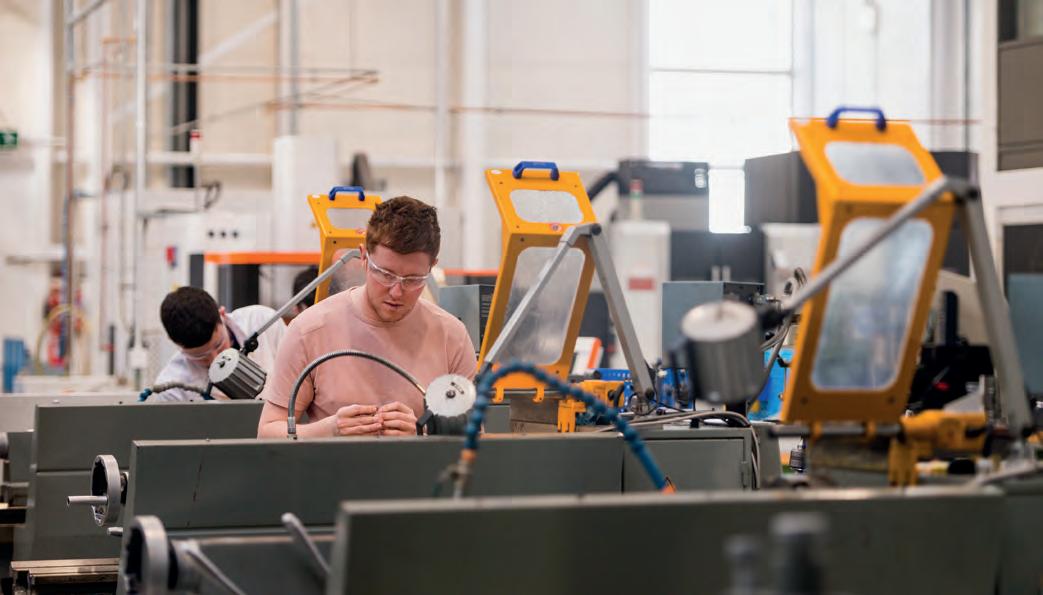
Robotics and Automation is the combination of mechanical, electronic, robotic and software engineering systems that are used in modern manufacturing industries. Robotic and Automation engineers are problem solvers by nature, looking for solutions to sometimes difficult engineering applications. This programme equips graduates with the skills to work in high-tech manufacturing industries to design, build and operate intelligent machines such as the robots and flexible manufacturing systems of today and for tomorrow.
Year
•
•
Year
In Year 3, students go on a six-month work placement. This allows them to put all the skills they have developed in class into a real-world work experience, and to make industry connections.
Robotics and Automation is becoming one of the fastest-growing career areas and one of the most sought-after skills in industry. Graduates have the interdisciplinary approach necessary to integrate electronics, control, software and mechanical engineering to a wide range of industrial problems The integrated skills developed can be applied to a variety of jobs, enabling students to have a very promising career in the biomedical, pharmaceutical, electronics, food processing and manufacturing sectors.
There are several masters programmes available in ATU in the area of Connected and Autonomous Vehicles, as well as the opportunity to complete a masters by research. Graduates can also pursue a variety of postgraduate studies at other third-level institutions.
Engineering student projects are presented at The Sligo Engineering and Technology Expo. A range of companies attend the expo, including Fortune 500 industry leaders. This allows students to network with potential employers. A link to the latest edition of the expo catalogue can be found on our Robotics and Automation programme webpage.
There is a common first year across all our Level 8 engineering degrees. This gives students an understanding of all aspects of engineering and the flexibility to change direction in Year 2 if desired.
Accreditation from Engineers Ireland for Chartered Engineer is expected after the first cohort of graduates.
I have always had a passion for engineering. I was always intrigued by the way things work both on the electrical and mechanical side of things. This led me to choose mechatronic engineering as it gives the best of both worlds. This degree has also developed my skills in robotic and software engineering.
The lecturers are brilliant. They make everything clear and are always there to help. I love the time we spend in the workshops. We are exposed to modern machines and facilities. The opportunity to put what we have learnt in class into practice really helps to understand the theory. It’s amazing to see my ideas going from a design on a computer to a real-life build.
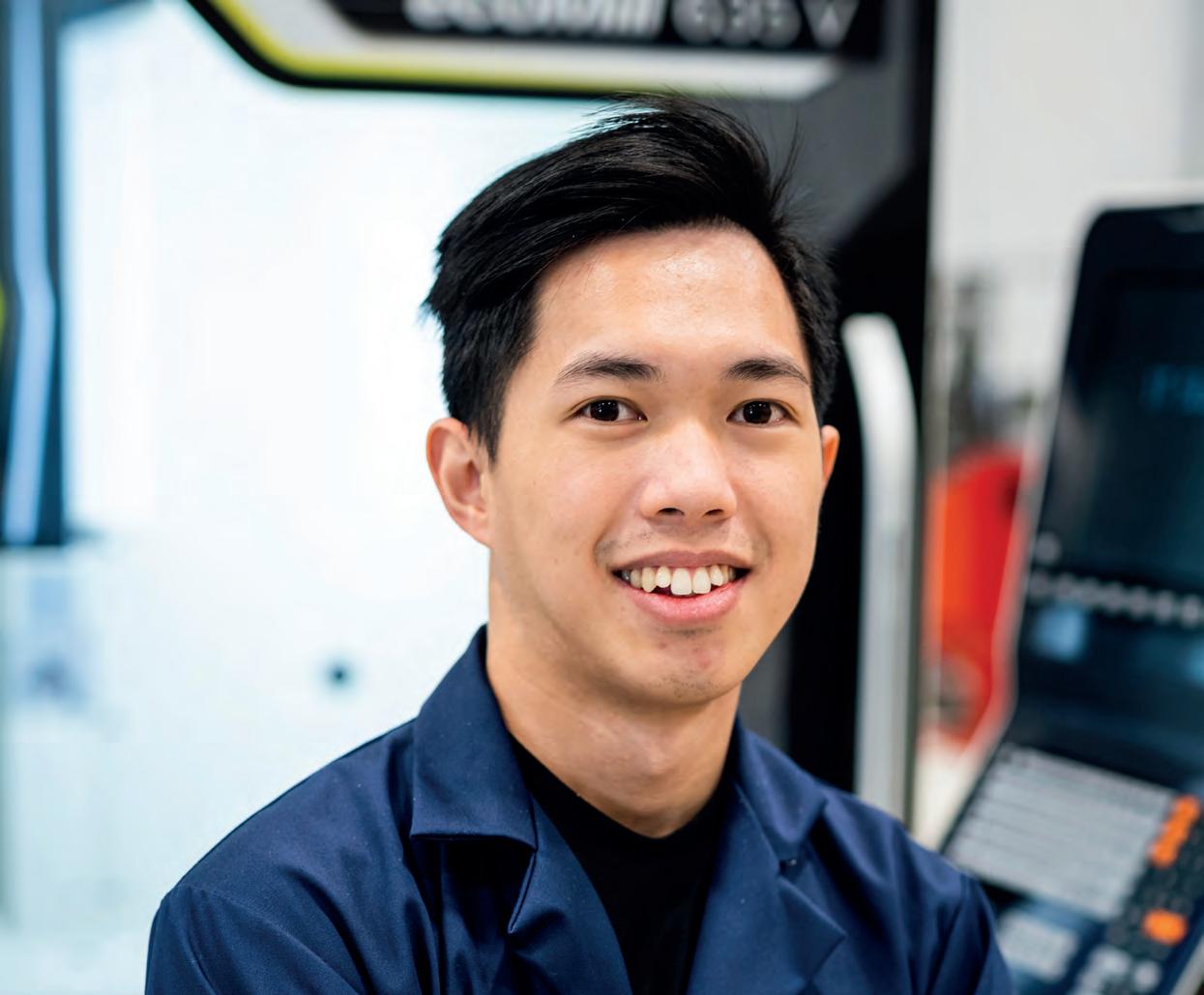
3 Years
Mechatronics is the combination of mechanical, electronic, robotic and software engineering systems used in modern manufacturing industries. Mechatronic engineers are problem solvers by nature, looking for solutions to sometimes difficult engineering applications. This programme offers an applied and practical-based approach with content that develops industry relevant and sought-after skills. During the intensive three years, students learn how to design, build and control the machines and processes that are found in a wide range of sectors. Graduates have the interdisciplinary approach necessary to integrate electronics, control, software and mechanical engineering.
Year 1
• Introduction to Engineering
• Circuit Stimulation and Layout
• Electromechanical Technology
• Electrical Principles Engineering
• Engineering Graphics and CAD
• Engineering Physics
• Design
• Mathematics
Year 2
• Electrical Technology
• Instrumentation and Control
• Creativity, Innovation and Entrepreneurship
• Automation Programming
• Pneumatic and Hydraulic Systems
• Electrical Signals Systems and ` Technology
• Programming and Interfacing
• Introduction to Engineering
• Materials
Year 3
• Control Systems
• Introduction to Robotics
• Supervisory Control and Data Acquisition
• Industrial Data Communication
• Mechatronics Project 300
• Advanced Automation Technology
• Essential Lean Six Sigma and Validation
• Professional Development and Employability
Mechatronics is how high-tech manufacturing is carried out today and is becoming one of the fastest growing career areas. This programme is designed to address the needs of industry by supplying skilled technicians who have developed a diverse set of skills in machine design, sensor technology, control systems, computing and industrial networks.
Our engineering graduates are in high demand to meet the skills shortage across the mechatronic and automation sector both nationally and internationally. Graduates work in a wide range of industrial settings, including the biomedical, pharmaceutical, electronics, food processing and manufacturing sectors. This degree also includes professional accreditation from Engineers Ireland. This is an internationally recognised accreditation which means graduates have worldwide employment opportunities.
Graduates may progress to the Level 8 BEng (Hons) in Mechatronic Engineering or the BEng (Hons) in Robotics and Automation at ATU. Level 8 graduates can pursue a wide range of Level 9 and 10 postgraduate programmes in ATU or in other third level institutions.
All our Level 7 and Level 6 engineering programmes have a common first semester. This gives students an understanding of all aspects of engineering and the flexibility to change direction in Semester 2 if desired.
Standard Entry Requirements
290 (Level 7 2021)
32 Places cao.sligo@atu.ie
Engineering student projects are presented at The Sligo Engineering and Technology Expo. A range of companies attend the expo, including Fortune 500 industry leaders. This allows students to network with potential employers. A link to the latest edition of the expo catalogue can be found on our Mechatronic Engineering programme webpage.
Mechatronics is the combination of mechanics, electronics, robotics and computing that is used in modern engineering industries. It involves the study of automation from an engineering perspective and serves the purpose of controlling advanced hybrid systems in business and industry. In this paid workbased version of our full-time degree, students spend three days per week in the workplace and two days per week studying online with ATU. Students will learn how to analyse, design, and control the type of machines and processes that are used, for example, in biomedical, automotive manufacture and highspeed automation.
Year 1
• Work Placement
• Introduction to Engineering Mathematics
• CAD and Modelling
• Intermediate Engineering Mechanics
• Metrology and Calibration
• Programming Fundamentals
• Introduction to Engineering Mechanics
• Quality and Production Techniques
• Plastics Materials Processing and Testing
• Work Placement
• Pneumatic and Hydraulic Systems
• Programming Communications and Interfacing Instrumentation
• Mathematics
• Automation Programming
• Plastics Materials Selection
Year 3
• Work Placement
• Mechatronics Project 300
• Introduction to Robotics
• Industrial Data Communications
• Control Systems
• Advanced Automation Technology
• Supervisory Control and Data Acquisition
• Mathematics
Mechatronic Systems graduates are equally at home in the mechanical or electronic domain and are specialists in interfacing computer-controlled systems. Graduates have the integrated skills to work in a variety of positions across the biomedical, pharmaceutical, electronics, food processing and manufacturing sectors.
Students are paid for their three days per week in the workplace and many employers will support students with fee payments. Students can save on accommodation and travel costs if they choose to study close to home. We have employers throughout Ireland signed up to this innovative degree. Also, all lectures are recorded which allows students the flexibility to watch them again.
Applicants are required to be offered a three-year traineeship position with a suitable employer to be accepted on to this programme. We will help applicants find a placement with a suitable employer. Interested applicants need to fill out an online form on the programme webpage (atu.ie/AU832) and a member of the team will be in touch to discuss employment options.
2021)
Graduates can choose from several Level 8 honours degrees in areas such as mechatronics, polymer processing or quality management. These can be studied full time or online.
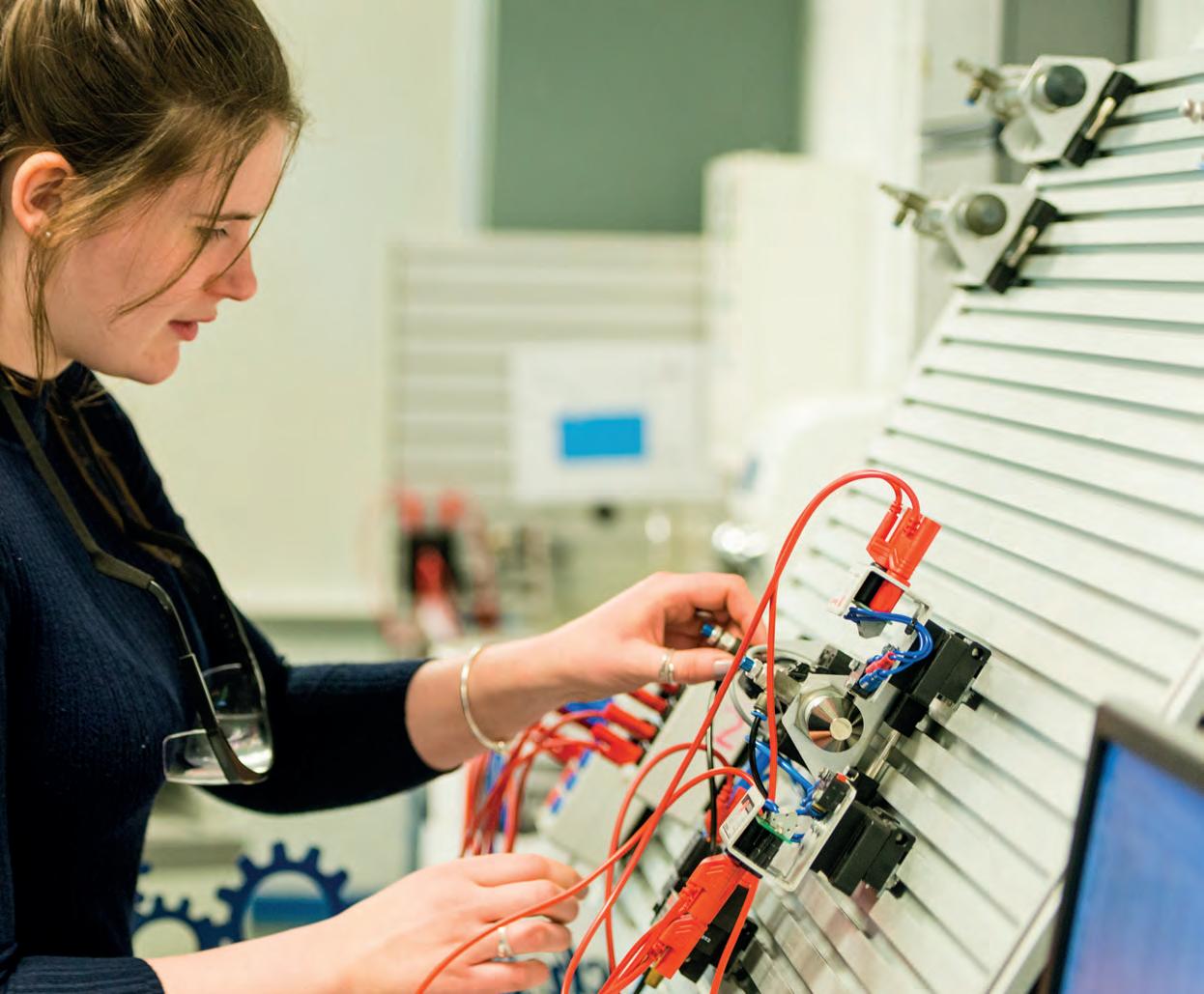
My studies in ATU Sligo have helped me to excel in my career. I currently work for Amazon as an engineering operations technician. I really enjoyed the range of modules on this degree. The highlight, however, was my third-year project which was entered into an Engineers Ireland competition.
My project was based on the environmental engineering sector. I produced a design brief before presenting my concepts and prototypes. I designed a Solidworks model and a 1:5 scale model of an eco-aqua purifier. This can dredge and collect waste and rubbish from rivers and estuaries. I also graduated with key skills such as communication and critical thinking. Having the ability to interpret, problem solve and communicate across different disciplines and departments has been key to my success.
Lauren BanksThis is a modern programme that prepares students for a broad range of career choices in the fields of mechanical and manufacturing engineering. Through a combination of theory, practicals and workshops, students gain up to date knowledge of engineering principals and learn how to apply these to solve real world problems. We teach the essential elements of the design process and methodologies relevant to complex engineering.
Topics such as finance and Industry 4.0 allow students to explore the various paths offered to engineers, and to be ready for the digitalisation of the engineering sector. Students will also be asked to consider issues such as ethics and sustainability by exploring the responsibilities of the engineering profession towards people and the environment.
This degree enables graduates to take up the growing employment opportunities nationally and internationally. Our graduates have expert knowledge in mechanics, thermodynamics, fluid mechanics, material sciences, electronics, automation, information technology and computer-aided engineering. Graduates work in industries as a mechanical engineer, manufacturing engineer, design engineer, product designer, materials engineer and more. Graduates also have the necessary key skills to progress to managerial or research and development roles.
Graduates may pursue a postgraduate qualification by either a taught masters or a masters/PhD by research. There are several postgraduate programmes available in ATU. Graduates may also pursue a variety of postgraduate studies at other third-level institutions.
Students complete a work placement between January and September in third year, which includes the opportunity to apply to study for one semester in Germany. Industry based projects also play a key role in this degree. Students solve real-world problems whilst enhancing their ability to work effectively as an individual, in a team and in multidisciplinary settings.
There is a common first year across all our Level 8 engineering degrees. This gives students an understanding of all aspects of engineering and the flexibility to change direction in Year 2 if desired.
Standard
• Min H5 in Maths
412 (Level 8 2021)
cao.sligo@atu.ie
Engineering student projects are presented at The Sligo Engineering and Technology Expo. A range of companies attend the expo, including Fortune 500 industry leaders. This allows students to network with potential employers. A link to the latest edition of the expo catalogue can be found on our Mechanical Engineering programme webpage.
Accreditation from Engineers Ireland for Chartered Engineer is expected after the first cohort of graduates.
Precision engineering is a specialist form of mechanical engineering that focuses on the design, development and manufacturing of high accuracy components and products. Graduates acquire the skills needed for the design of precision products such as medical devices, the design of precision tooling such as plastic injection moulds, and the design of automation equipment such as assembly machinery. ATU Sligo has consulted widely with industry to develop this programme and ensure that graduates are equipped with the knowledge and skills now needed in modern manufacturing companies.
Year 1
• Introduction to Engineering
• Mechanical Project
• Manufacturing and Engineering Technology
• Introduction to Industrial Automation
• Engineering Graphics and CAD
• Design
• Engineering Physics
• Introduction to Programming
• Mathematics
Year 2
• Design Engineering Project
• CIM and Automation Technology
• Mechanics
• Manufacturing and Engineering Technology
• CAD/CAM
• Introduction to Engineering Materials
• Integrated Project
• Thermodynamics and Fluid Mechanics
• Mathematics
Year 3
• Design Engineering Project
• Computer Aided Design
• Computer Aided Manufacture
• Machine Design
• Mould Design and Polymer Processing
• Mechanics/Dynamics
• Essential Lean Six Sigma and Validation
• CIM and Robotics
Students have access to state-of-the-art facilities, including comprehensive material and testing laboratories, industry standards software in CAD/CAM, automation equipment, traditional manufacturing workshops, 3D printers and advanced CNC machines.
Our graduates are in very high demand to meet the skills shortages in the precision industry, both nationally and internationally. Graduates are employed in a variety of design, manufacturing, project management, CNC programming, metrology, validation and procurement roles in high-performance, advanced manufacturing and precision engineering companies.
Graduates may progress to the BEng (Hons) in Precision Engineering & Design or the BEng (Hons) in Mechanical Engineering in ATU. Level 8 graduates can pursue a wide range of Level 9 and 10 postgraduate programmes in ATU or in other third-level institutions.
ATU have partnered with several companies to offer financial bursaries of up to €1000 to CAO applicants choosing to study Precision Engineering and Design. This is to help combat the huge skill shortages within this specialist area of mechanical engineering.
Final year students design and manufacture a working prototype that is often linked with a company. The final year projects are regularly submitted to national competitions and students’ projects have won several awards including the Engineers Ireland Award. Engineering student projects are also presented at The Sligo Engineering and Technology Expo. A range of companies attend the expo, including Fortune 500 industry leaders. A link to the latest edition of the expo catalogue can be found on our Precision Engineering and Design programme webpage.
(Level
2021)
All our Level 7 and Level 6 engineering programmes have a common first semester. This gives students an understanding of all aspects of engineering and the flexibility to change direction in semester two if desired.
This programme concentrates on the design of precision plastic and metal products, mould and die design, together with all the related manufacturing, polymer processing, metrology and validation technologies.
3/4 Years
Civil Engineering is a dynamic industry, which is continuously evolving and changing. It deals with the design, construction and maintenance of the built environment that is essential to our society. A civil engineer’s work involves solving complex problems in several different engineering areas including environmental, geotechnical, structural, transportation and construction. This includes roads, tunnels, bridges, buildings, offshore oil-platforms, water supply systems, wastewater treatment systems, dams and sustainable energy schemes such as hydroelectric stations and wind farms.
Year 1
• Introduction to Engineering
• Engineering Physics
• Engineering Mechanics
• Engineering Graphics and CAD
• Introduction to Programming
• Engineering Chemistry
• Mathematics
• Multi-Disciplinary Project (Level 8)
• Construction Technology (Level 7)
• Building Information Modelling (Level 7)
• Civil Engineering Materials
• Structural Mechanics
• Hydraulics
• Environmental Engineering
• Surveying
• Site Management Structural Mechanics
• Soil Mechanics and Geology
• Mathematics
• Environmental Engineering
• Geotechnical Engineering
• Structural Analysis
• Structural Design
• Highway Engineering
• Mathematics
• Work Placement (Level 8)
• Project (Level 7)
Year 4 (Level 8)
• Final Year Project
• Transportation Engineering
• Civil Engineering Law
• Project Management and Finance
• Environmental Engineering
• Geotechnical Engineering
• Structural Analysis
• Structural Design
• Highway Engineering
• Hydraulics
32 Places
Work Placement
Standard Entry Requirements plus • Min H5 in Maths for Level 8 degree
418 (Level 8 2021) 226 (Level 7 2021)
Level 8 students complete a 12-week work placement in Year 3. This provides practical work experience in the civil engineering industry, with a wide range of employers to choose from. Our degrees also include real-life multi-disciplinary projects that allow students to see what it is like to work with professionals in other construction related areas. These include architects, quantity surveyors and construction project managers.
Ireland, together with the rest of the world, is experiencing a shortage of civil engineering graduates to work in all areas of the civil engineering and construction industries. Graduate careers include professional civil engineers in the research, design, management, supervision, construction and maintenance of civil engineering projects for local authorities, government agencies, engineering contractors and consultants. Our degrees also include professional accreditation from Engineers Ireland. This is an internationally recognised accreditation which means graduates have worldwide employment opportunities.
Level 7 graduates may exit after three years with a BEng in Civil Engineering or progress to Year 3 of the BEng (Hons) in Civil Engineering to achieve a Level 8 degree at ATU or other higher education institutions. Level 8 graduates may progress to taught and research masters in ATU or other third-level Institutions.
Our degrees are a blend of formal lectures, real-life projects and relevant practical classes to enhance the understanding of topics. A new ATU Sligo initiative, a female student network, has been established to help female students settle into third-level education. This new peer group operates within the civil engineering and construction programmes in ATU Sligo.
cao.sligo@atu.ie
All our engineering programmes have a common entry route. This gives students an understanding of all aspects of engineering and the flexibility to change direction if desired.
Quick Fact Engineering student projects are presented at The Sligo Engineering and Technology Expo. A range of companies attend the expo, including Fortune 500 industry leaders. A link to the latest edition of the expo catalogue can be found on our Civil Engineering programme webpages.
3/4 Years
This programme prepares students for the specialised discipline of quantity surveying and offers graduates a broad skills base. A quantity surveyor has the responsibility of controlling project cost and are central to the decision-making process throughout the development of a construction project from initial inception to final completion. We work very closely with employers, practitioners and professional organisations to ensure that our degrees reflect the current needs of the workplace.
Our syllabus covers a range of professional
communication, ethics, construction law, property development and commercial management. Students will undertake work placement for a minimum of three months to enhance the whole learning experience. In Year 4, students complete a practical capstone project, whereby a cost planning and value engineering exercise will be carried out on a commercial building.
Year
•
•
Year
32 Places
Work Placement
Standard Entry Requirements
Erasmus+
Graduates are qualified for careers in quantity surveying consultancy, contracting organisations, specialist sub-contracting firms and elsewhere within the industry. A 2020 Society of Chartered Surveyors Ireland (SCSI) report stated that the national median salary for quantity surveyors was €70,000. Recent findings indicate that there will be a substantial deficit of surveyors in the construction and property industry to meet the predicted future demand for the construction sector in Ireland.
Level 7 graduates may exit after three years with a BEng in Quantity Surveying or progress to the final year of a Level 8 honours degree BEng (Hons) in Quantity Surveying. Level 8 graduates may progress to ATU’s Level 9 Certificate in Mechanical and Electrical Quantity Surveying, MSc in Construction Project Management or to postgraduate studies at other third-level institutions.
300 (Level 8 2021) 216 (Level 7 2021)
cao.sligo@atu.ie
From planning skyscrapers and sports stadiums to creating film sets and festival sites, surveyors work on a huge variety of projects and with a wide range of professionals – architects, property developers, safety experts and asset managers to name a few. The project to build Tottenham Hotspurs’ new 62,000-seat stadium was run by a surveyor and cost over £1 billion.
Level 8 Level 7 & 8
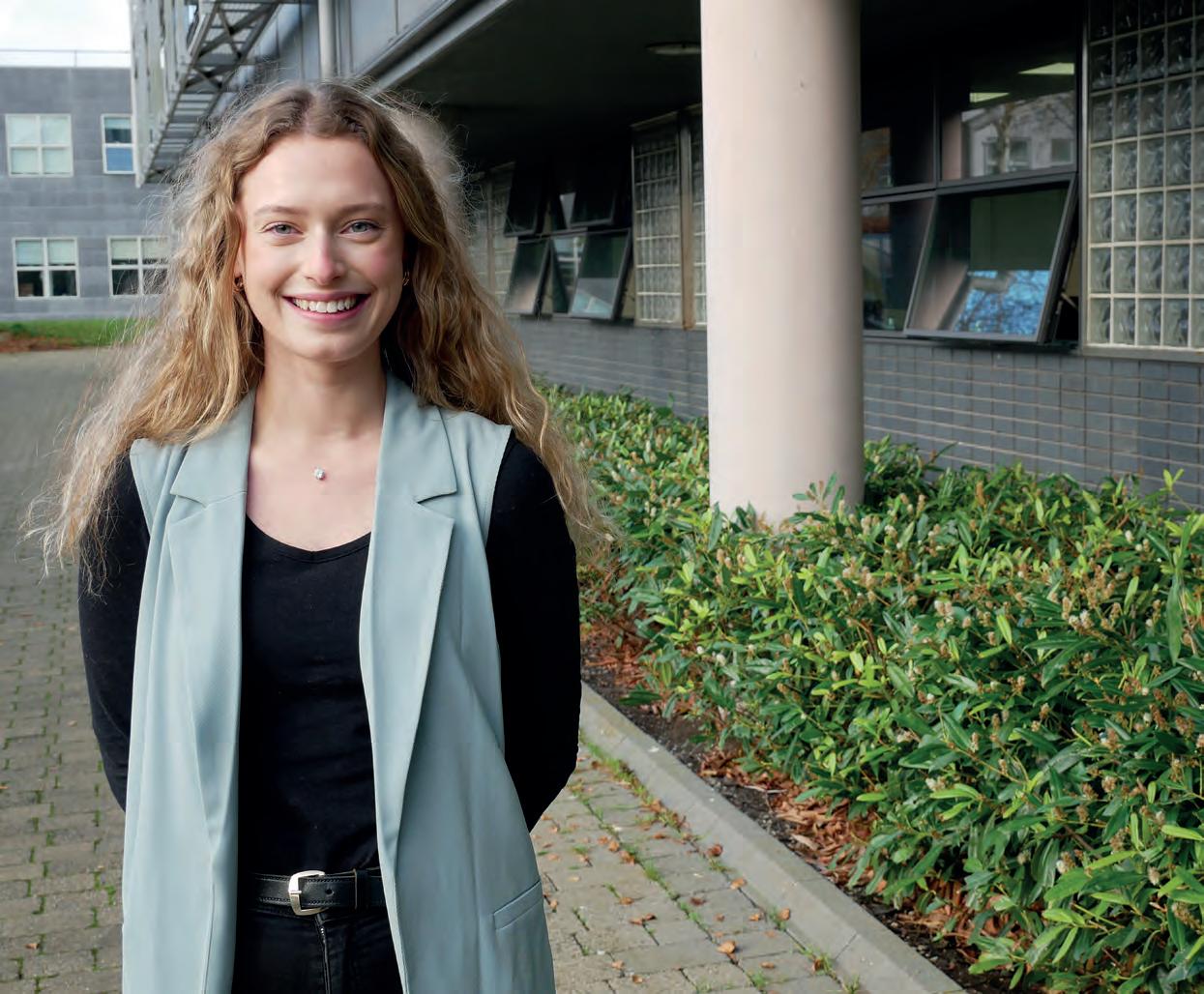
There is a great mix of both practical and theory classes. For example, we might have a construction law class in the morning and be outside in the afternoon carrying out a land survey. The real-life projects, trips to businesses and work placement are all great aspects of this degree too.
The lecturers are fantastic. They have lots of experience in the field and regularly pass on real life examples and tips. This really helps with learning. I also love that this degree is fully accredited. There are huge job opportunities, excellent salaries and progression opportunities in quantity surveying. When I graduate, I will have a qualification that can take me anywhere in the world.
This programme is designed for those with an interest in the building industry and offers graduates a broad skills base for management of construction projects with a strong emphasis on cost. The need for managing costs when setting up sites and the efficient control of labour, plant and materials are vital for the successful completion of a project within an agreed budget. This programme employs the latest technology including 3D modelling, on-screen measurement and BIM readers.
• Principles of Construction
• Principles of Quantity Surveying Measurement
• QS in the Construction Industry
• ICT in Quantity Surveying
• Interpersonal Transferable Skills
• Domestic Construction Technology
• Measurement of Small Domestic Buildings
• Site Management and Health and Safety
• Organisation and Management
• Introduction to Quantity Surveying Software
• Complex Domestic Construction Technology
• Measurement of Domestic Buildings
• Estimating
• Construction Contracts and Procurement
• Principles of Law
• Economics
• M&E Construction Technology
• Measurement of Mechanical and Electrical Installations
• Construction Law
• Short Form of Construction Contract and Tendering
• Professional Practice within the Built Environment
• Construction Economics
Key subjects such as building technology, measurement, surveying and Computer-Aided Design (CAD), provide a solid grounding in the core knowledge and skills of the construction profession. The programme provides an understanding of the complexities of modern construction and deals with the organisational skills, materials management and health & safety requirements of running a building site. There is also an ongoing focus on verbal, written and digital communication skills. Graduates will have the necessary skills for planning and running a construction project of any size.
Graduates work as surveyors, estimators, site clerks, site managers, materials managers, sales representatives and quantity surveying technicians with contractors, subcontractors, construction specialists and materials suppliers.
Graduates can progress directly to the final year of our Level 7 BSc in Quantity Surveying, the final year of our BSc in Construction Management (Online) or to related Level 7 programmes at other third-level institutions.
Construction costs play a huge role in projects. Some of the greatest construction projects on the planet have had cost problems. The Sydney Opera House, which took 18 years to design and build, opened in 1973 and cost 15 times more than was originally projected. Many construction projects did not finish or even start because of financial problems.
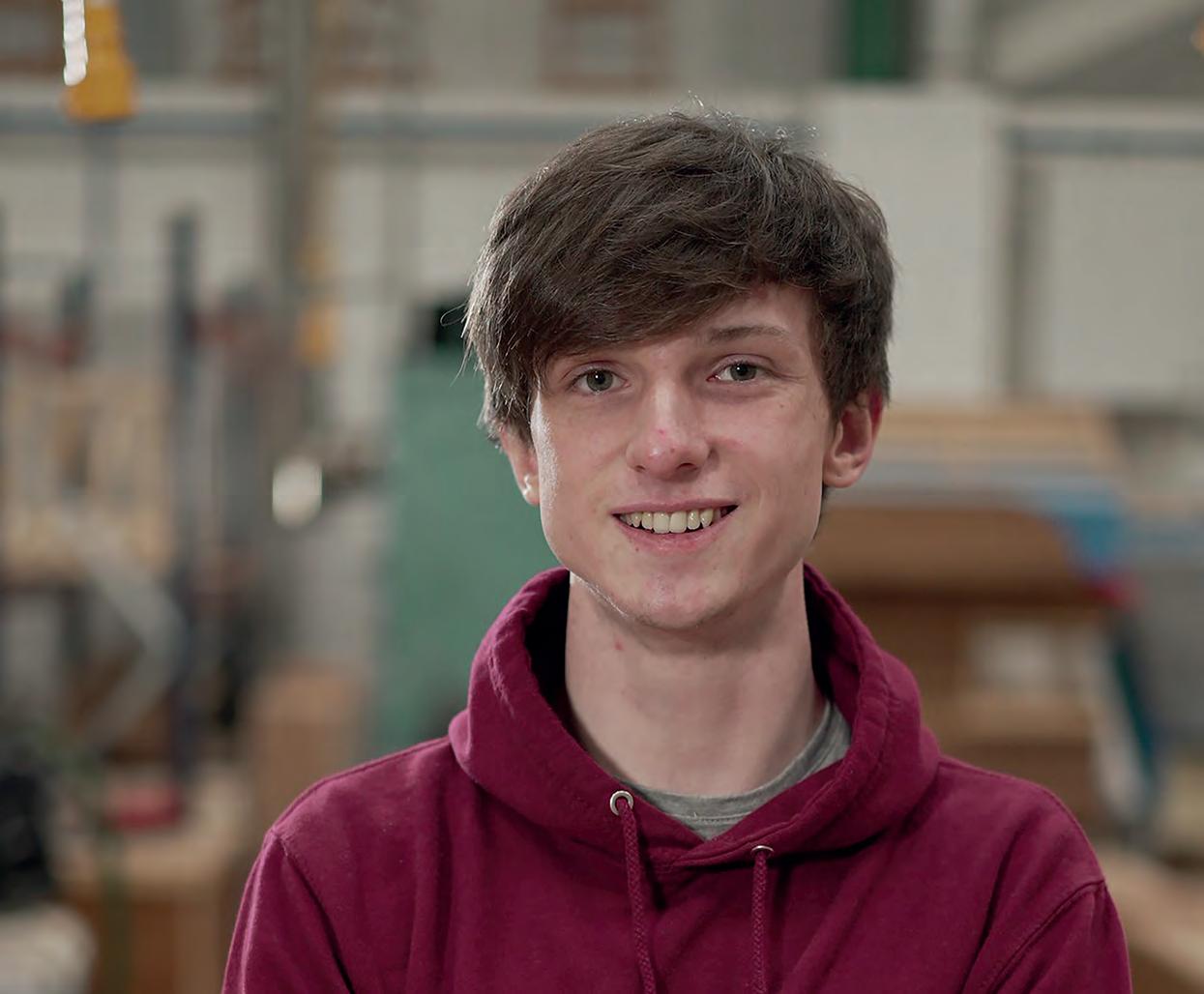
We spend a lot of time in the workshop where we draw, design and construct our own projects, from roofs and stairs to model houses. I love days in the workshop, as it is real hands-on experience. As the degree progresses, the projects get more complex and more interesting.
Different modules link together as we progress too. For example, we studied roofs in our theory class, we then drew different roof types in our CAD class, before constructing model roofs in the workshop. This allows for easy understanding of the different topics, as you see the process from start to finish. We also study modern subjects like Building Information Modelling (BIM) and Lean Construction which is very important.

This programme blends traditional practical skills including carpentry and joinery, with modern construction approaches, such as Building Information Modelling (BIM) and Lean Construction. Construction project management is a professional field that focuses on each part of the construction process of any built environment. Students learn how to plan, organise and control construction operations and gain knowledge in all stages of the process – from initial feasibility studies through to design, construction, maintenance, refurbishment and demolition.
This programme integrates applied technology with the use of a state-of-the-art workshop. Students develop economic, legal, technical, and managerial knowledge and skills. Throughout the programme, real-life practical projects are used to reinforce the theory, culminating in a major practical project combining all programme modules. In Year 3, a work placement is undertaken within industry to utilise skills developed. In Year 4, students complete a dissertation in construction project management.
Construction project managers are in considerable demand, therefore graduates from this degree are much sought after by employers. Graduates have the skills needed to effectively manage project cost, scope and timelines for an ever-changing national and international construction industry. Graduates work with consultants, building contractors, architects, quantity surveyors and local authorities, as carpenters, site managers, project managers and architectural technicians.
Graduates can further their studies with a Level 9 Masters through ATU or through other third-level institutions. Graduates may also pursue a Professional Master of Education (PME) to become a secondary school teacher of Construction Studies and DCG.
313 (Level 8 2021)
cao.sligo@atu.ie
Students can obtain an internationally recognised certificate or micro-credential titled Building Information Modelling Approved Graduate (BIM AG). A new ATU Sligo initiative, a female student network, has been established to help female students settle into third-level education. This new peer group operates within the civil engineering and construction programmes in ATU Sligo.
Student projects are presented at The Sligo Engineering and Technology Expo. A range of companies attend the expo, including Fortune 500 industry leaders. A link to the latest edition of the expo catalogue can be found on the programme webpage.
This programme has been designed in partnership with industry to meet the needs of the ‘Green Economy’, which is a major area of employment within the Irish and international economies. The programme equips students with practical carpentry and joinery skills and an in-depth knowledge of sustainable building technologies and materials, including the refurbishment of existing dwellings to achieve a low carbon design and the construction of new low-energy buildings.
Year 1
• Applied Construction Technology 1
• Principles of Construction
• Graphical Communication and CAD 1
• Surveying 1
• Interpersonal Transferable Skills
• Applied Construction Technology 2
• Domestic Construction Technology
• Graphical Communication and CAD 2
• Surveying 2
• Information and Communication Technology
Year 2
• Applied Construction Technology with Advanced Manufacturing 1
Complex Domestic Construction Technology
• Project Design and Management
• BIM Fundamentals
• Construction Measurement and Management
• Applied Construction Technology with Advanced Manufacturing 2
• M&E Construction Technology
• ICT for Construction
• BIM Advanced
• Health and Safety Management 1
Year 3
• Applied Construction Management
1
• Industrial Buildings - Construction Technology
• Building Analysis and Adaptation
• Health and Safety Management 2
• BIM MEP
• Applied Construction Management 2
• Commercial BuildingsConstruction Technology
• Construction Planning and Management
• BIM Collaboration
• Work Placement
We ensure we stay ahead of the latest advancements in construction by regular contact with industry experts. As well as getting handson experience, students also use the latest design software in our purpose-built, highly equipped workshops. Throughout the programme, real-life practical projects are used to reinforce the theory, culminating with a major practical project. Students will also go on a work placement in Year 3. This is a great opportunity to put all the skills they have developed into a real-world work experience.
Graduates of this programme are prepared for employment with building contracting organisations, architects, quantity surveyors and local authorities in areas such as retrofitting existing building stock, BER certification, preparation of working drawings and specifications, surveying and site setting out, building surveying, defect analysis and construction planning.
Graduates may progress to the final year of the honours degree in Construction Project Management and Applied Technology in ATU, or to other related programmes. Level 8 graduates may progress to postgraduate studies in ATU or other third-level institutions.
A new ATU Sligo initiative, a female student network, has been established to help female students settle into third-level education. This new peer group operates within the civil engineering and construction programmes at ATU Sligo.
(Level
2021)
cao.sligo@atu.ie
This programme has a strong focus towards sustainable construction practices. Graduates are ideally placed to take advantage of the growing opportunities in the construction sector nationally and internationally. Our construction graduates are highly sought after as our construction programmes have a strong reputation within industry.
Applied Construction Technology relates to the skills and technical knowledge required to enter the construction industry at technician level. This programme is based around our state-of-the-art construction workshops, delivering a unique experience to students by applying theoretical knowledge to practical projects. Students will gain a thorough grounding in the key concepts and practical skills required in the construction sector as well as practical skills in carpentry and joinery. Graduates from the programme will be ideally placed to take advantage of the growing opportunities in the construction sector nationally and internationally.
• Applied Construction Technology
• Principles of Construction
• Graphical Communication and CAD
• Surveying
• Interpersonal Transferable Skills
• Domestic Construction Technology
• Information and Communication Technology
• Applied Construction Technology with Advanced Manufacturing
• Complex Domestic Construction Technology
• BIM Fundamentals
• Construction Measurement and Management
• Project Design and Management
• Construction Contracts and Procurement
• M&E Construction Technology
• ICT for Construction
• BIM Advanced
• Health and Safety Management
Students will gain an understanding of how emerging technologies such as NZEB (Nearly Zero Energy Building standards) and BIM (Building Information Modelling) affect the design and production phases of construction projects. Students explore scientific principles and the behaviour of materials used in construction, understand current health and safety regulations and methods of quantifying materials for the construction of domestic buildings.
This programme will prepare students for a wide range of career opportunities within the construction, surveying and architectural technology disciplines. Graduates will be involved in a range of construction-related activities, including practical carpentry and joinery, production of drawings, surveying and setting out, organising and supervising of plant and equipment on-site, sourcing and estimating the cost of materials as well as liaising with suppliers in relation to supply and delivery. Graduates will be able to supervise the work of subcontractors and craft operatives onsite.
Graduates may progress to the Level 7 degree in Advanced Wood and Sustainable Building Technology in ATU after which they may progress to the Level 8 degree in Construction Project Management and Applied Technology in ATU. Graduates can also pursue studies at other third-level institutions.
160 (Level 6 2021)
cao.sligo@atu.ie
A new ATU Sligo initiative, a female student network, has been established to help female students settle into third level education. This new peer group operates within the civil engineering and construction programmes in ATU Sligo.
Our Electronics and Self-Driving Technologies degree prepares students to work in rapidly changing technology environments, in areas such as robotics and autonomous systems, computer vision, machine learning and extended realities. Electronics technology is incorporated into almost every aspect of our daily lives. It has led to the invention and enhancement of consumer technology, mobile phones, medical devices, computers, intelligent agriculture, musical equipment and entertainment. This innovative degree provides students with the skills required to invent the next generation of electronic devices for all sectors and applications. Not only that, but graduates will also have the engineering and electronic design skills to pursue a career in the exciting new chapter of automotive and robotic technologies.
This degree brings together interdisciplinary concepts such as electronics design, artificial intelligence, robotics and augmented reality. The mix of theory and practical provides students with an understanding of the multidisciplinary engineering concepts required to progress future design areas. A six-month work placement is built into the degree and takes place during the second half of Year 3. Students can also apply to complete their work placement abroad.
The autonomous and robotic market within Ireland and internationally is expected to reach $54.23 billion by 2026 meaning graduates from this degree will be in very high demand. Graduates can work as an engineer in a wide variety of roles. Although primarily directed at robotics and autonomous systems, many of the skills gained from this degree (machine learning, pattern detection, computer vision, extended realities) are highly sought after for R&D roles in industries including medical, agricultural and high-volume manufacturing. Companies such as Intel, Analog Devices, Abbott and Medtronic all regularly hire our graduates.
Electronics and Selfdriving technologies is the recommended direct route to ATU’s Level 9 Master of Engineering in Connected and Autonomous Vehicles. Both programmes were developed by German and Irish Industry to ensure they are exactly what is required in today’s market.
32 Places
Placement
Standard Entry Requirements plus • Min H5 in Maths
397 (Level 8 2021)
cao.sligo@atu.ie
We have a common first year across all our Level 8 engineering degrees. This gives students an understanding of all aspects of engineering and the flexibility to change direction in Year 2 if desired.
Silicon Republic described Ireland’s west coast as being in the driving seat when it comes to autotech, and ATU as a leader of autonomous driving education. Valeo, Aptarus, General Motors and Jaguar Land Rover are just some of the companies located in Ireland within this exciting industry.
| ATU Prospectus 2023261 ATU Sligo Accreditation from Engineers Ireland for Chartered Engineer is expected after the first cohort of graduates.
Erasmus+In the first year of study, students learn about the core foundations in key computing disciplines. From Year 2 onwards, students have a choice of what modules they study and can choose from disciplines including software, cyber security, cloud computing and networking. Our computing programmes are extremely hands-on with lots of time spent in computer labs creating programs and solving problems. Other key skills such as creativity, problem-solving, persistence and critical thinking are developed during this programme.
We particularly encourage critical-thinking skills in students. This ensures ongoing professional career and lifelong learning development for our graduates. Our team of lecturers have students as their number one priority. Small class sizes and a hands-on approach means that help and guidance is available when needed.
A full year group project in Year 3, gives students valuable practical experience. The project allows students to work in a team to build a real-world IT infrastructure consisting of existing and emerging technologies.
A degree in computing offers countless employment opportunities both in Ireland and abroad. Recent government reports have highlighted a skills shortage in computing. Graduates work in roles as software developers, software quality assurance, systems engineers, telecoms engineers, database developers, network and cyber security engineers, and more, commanding high salaries.
Students have the choice to exit after two, three or four years of study with an award if they obtain the required grades. Level 6 graduates may progress to a Level 7 ordinary degree. Level 7 graduates may progress to a Level 8 honours degree. Graduates from our Level 8 degree may pursue postgraduate studies at ATU or in other third-level institutions.
Students undertake a work placement in Year 3. Over 70% of our students gain employment directly from their work placement. Computing student projects are presented at The Sligo Engineering and Technology Expo. A range of companies attend the expo, including Fortune 500 industry leaders. This allows students to network with potential employers. A link to the latest edition of the expo catalogue can be found on our Computing programme webpages.
atu.ie/AU955 atu.ie/AU845 atu.ie/AU725
2/3/4
316 (Level 8 2021) 299 (Level 7 2021) 254 (Level 6 2021)
cao.sligo@atu.ie
All our computing programmes have a common first year. Students study a wide range of modules to give them an understanding of all aspects of computing and they have the flexibility to change direction in Year 2 if desired.
New high-tech computer teaching labs will open in 2023 which will give students access to the latest advancements in technology.
30 Places
This programme focuses on the infrastructure that powers the movement of data about the internet. Students get an in-depth understanding of computer network design, implementation and optimisation through a suite of modules that focus on cutting-edge technologies. This includes software defined networks, public, private and hybrid cloud technologies and ethical hacking. The cyber security ecosystem has evolved and grown at an exponential rate over the last number of years and is a critical aspect for all sectors of our economy.
discussions with industry
a series
test
key
hardware or software
Erasmus+
336 (Level 8 2021) 262 (Level 7 2021)
cao.sligo@atu.ie
technology, design enterprise networks,
computer resources, manage digital assets, server management,
over IP, database management and
two dedicated
forensics.
Graduates have the skills to work as a network systems administrator, computer network defence administrator, wireless network engineer, computer systems administrator, cloud solutions architect, cybersecurity engineer, network and cyber security specialist, wireless and voice specialist, systems design engineer and lots more.
All our computing programmes have a common first year. Students study a wide range of modules to give them an understanding of all aspects of computing and they have the flexibility to change direction in Year 2 if desired.
Level 7 graduates may exit after three years with a BSc in Computer Networks and Cyber Security, or they may progress to the final year of the Level 8 BSc (Hons) in Computer Networks and Cyber Security. Level 8
graduates may progress to ATU’s MSc in Computing or may continue their studies in other third-level institutions.
Every sector now faces the risk of a cyber security breach –from healthcare and telecoms to retail. Internationally there is a severe shortage of cyber security professionals and Cyber Ireland estimate a global shortfall of between 1.8 and 3.5 million security professionals within five years. This has resulted in huge job opportunities and excellent graduate salaries.
This programme is mapped to professional industry qualifications in the areas of CompTia A+, Cisco CCNA, Microsoft Server and AWS certifications.
This programme gives students the coding and communication skills which enable them to be integral members of the growing worldwide software technology sector. The software industry is strong, providing specialist employment, with Ireland an important centre for localisation. We constantly re-assess our degree content to keep apace of emerging platforms and industry trends. This programme takes into account the specific requirements of the global software industry and what it expects from graduates.
This degree was the first to teach Microsoft. NET technologies. The lecturers on the programme are experienced programmers and designers. In many cases, they are, or have been, practitioners in the software industry. We also focus on developing soft skills such as teamwork and communication. These skills are increasingly important to employers. Students will also undertake a work placement in Year 3. Over 70% of our students gain employment directly from their work placement.
Erasmus+
310 (Level 8 2021)
279 (Level 7 2021)
cao.sligo@atu.ie
Ireland’s reputation as a centre of software excellence is unrivalled in Europe. It is home to over 900 software companies, including both multinational and indigenous firms, employing 24,000 people and generating €16billion of exports annually. Graduates of this degree typically assume the role of a software developer. They build and test high-quality code across front-end, logic and database layers. Other graduate opportunities include technology consultant, full-stack web developer, senior quality controller, research analyst, international project lead and business development manager. Software development is an internationally recognised transferrable skill.
Level 7 graduates may exit after three years with a BSc in Software Development, or they may progress to the final year of the Level 8 BSc (Hons) in Software Development. Level 8 graduates may progress to ATU’s MSc in Computing, MEng in Connected and Autonomous
Vehicles or may continue their studies in other third-level institutions.
All our computing programmes have a common first year. Students study a wide range of modules to give them an understanding of all aspects of computing and they have the flexibility to change direction in Year 2 if desired.
ATU Sligo is the only third-level institute in Ireland to have won the Microsoft World Imagine Cup when we came first from over 350,000 global entrants. Computing student projects are presented at The Sligo Engineering and Technology Expo. A range of companies attend the expo, including Fortune 500 industry leaders. This allows students to network with potential employers. A link to the latest edition of the expo catalogue can be found on our Software Development programme webpage.
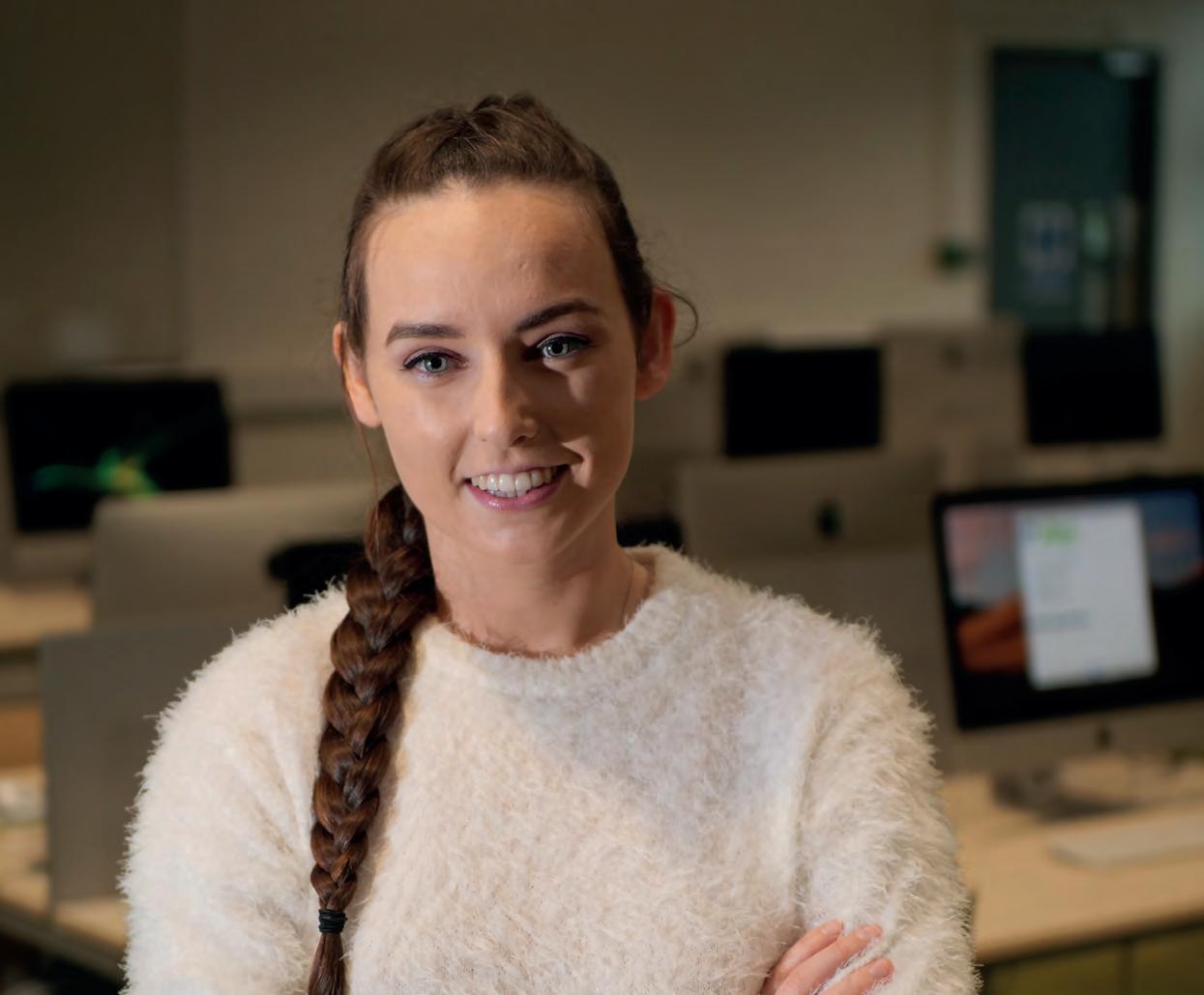
The common first year across all computing programmes in ATU Sligo is amazing. I wasn’t sure what area of computing to specialise in, so this helped confirm my choice. I really enjoyed the hands-on approach of this degree. The programming, machine learning, UX/UI and AWS Cloud modules were some of my favourites. Through real life projects we got to work with the technologies we were learning about in class.
Work placement has been pivotal in my success to date as I gained experience in developing code for projects and products. Continuous learning and being able to adapt are also major skills I developed during my studies. These are very important as technology is always evolving. I now work as a Cloud Support Engineer for Amazon in Dublin.
This degree uses a software engineering approach to games development, combining the study of the technical aspects of games programming, including virtual reality, augmented reality and artificial intelligence, with the principles of project management, quality assurance and organisational management. Games development is now a massive global industry, with the overall industry worldwide worth an estimated $300billion. Xbox, PlayStation and smartphone apps are some well-known examples, with countless other businesses working on games and applications development.
30
Work
Year
•
•
•
•
•
•
Year
271 (Level 7 2021)
cao.sligo@atu.ie
While focused on developing games software, we also provide a general grounding in software engineering to equip graduates with the skills to work in any aspect of the information technology industry. Cutting-edge games development computer laboratory and peripheral hardware are just some of the features of the programme that allows students to flex their creativity and gain first-hand experience. We also focus on developing students’ soft skills such as teamwork and communication. These skills are increasingly important to employers.
Graduates are prepared for several roles within the games development landscape in Ireland and internationally. These roles include gameplay developers, level designers, game designers and tool developers. Graduates also have the software engineering skills to work in various other aspects of the information technology industry.
Graduates may progress to the final year of the Level 8 BSc (Hons) in Software Development. Level 8 graduates may progress to ATU’s MSc in Computing or may continue their studies in other third-level institutions.
Work has commenced on a new €1.9million gaming hub in Sligo which will help entrepreneurs start and scale innovative gaming businesses. The hub is expected to have the capacity for 20 different companies and will support a further 40 companies through the
of a digital games cluster in the northwest.
All our computing programmes have a common first year. Students study a wide range of modules to give them an understanding of all aspects of computing and they have the flexibility to change direction in Year 2 if desired.
Students undertake a work placement in Year 3. Over 70% of our students gain employment directly from their work placement.
Computing student projects are presented at The Sligo Engineering and Technology Expo. A range of companies attend the expo, including Fortune 500 industry leaders. This allows students to network with potential employers. A link to the latest edition of the expo catalogue can be found on our Games Development programme webpage.
3/4 Years
This programme gives students the skills and experience needed to become an industry-ready designer. During this exciting and challenging degree, students are given an in-depth education in creative design and become proficient in a range of analytical, technical, R&D, social and applied design skills. Working on real-world design projects for real-world clients is a central element of this degree. Students are given real opportunities to work with companies and other outside bodies to develop essential innovative and technical skills. Our graduates are designing cars, apps, medical devices, and are working in design areas such as graphics, electronic products, start-ups and more.
In the final year
This
ATU Sligo’s
A 2020 report by The Expert Group on Future Skills Needs, found that by 2025 occupations in digital, product and strategic design could see a growth of between 21,000 and 33,000. However, only 1,300 students graduate annually with the required skills. Graduates work in design consultancy, industrial design, exhibition design, retail design, furniture design, the multimedia sector, services design, design education and design management.
Students may exit after three years of study with a BA in Creative Design if they obtain the required grades or they may progress to the final year of the Level 8 BA (Hons) in Creative Design. Level 8 graduates may progress to further studies at masters and PhD level in ATU or in other third-level institutions.
Work Placement
Standard Entry Requirements plus
• Maths not required
Erasmus+
332 (Level 8 2021)
160 (Level 7 2021)
32 Places cao.sligo@atu.ie
This programme includes a high percentage of studio time. This allows students to grow in confidence and to listen to, and trust, their creative intuition. Students learn to use all their design skills to transform their unique ideas into product solutions for the benefit of society and help to promote sustainable economic growth.
The world we live in needs good designers. Everything we use in everyday life has been creatively designed by someone.
Innovative design solutions are fundamental to economic growth, social development and prosperity across all sectors.
Our students graduate as experienced and professional designers, ready and confident to take on the challenges of the design world.
5 Years
Architecture is the art of planning and designing the built environment based on an understanding of humankind and our connection to the earth. It is a collaborative practice. The ethos of Architecture at ATU Sligo is the belief in the potential of architecture to transform places. We aim for a strong student-centred culture with dialogues between students and lecturers at its core. The challenges of the present demand a deep understanding of the duty to innovatively respond to current and future issues, relating to daily living needs while protecting our climate. Our ambition is to impress upon our students their role in contributing to society as a new generation of architects for this region and beyond.
Students develop their own creative ideas and discover the multifaceted processes of architecture in a stimulating and dynamic community alongside passionate academics, practicing architects and design professionals.
Architecture design studio is the core element of the programme and makes up over 50% of the programme for each of the five years, with students working in dedicated design studio spaces.
Year
Drawing and Communication
• Technology Studio 2
• Theory and Design of Structures
• The Archaeology of Building Theory
Year
• Architectural Design Studio
• Architectural Drawing and Communication
• Architecture Technologies and Environment
• Architecture Context and Theory
• Technology Studio
• Theory and Design of Structures
• Professional Studies 1 and BIM
Year 4
• Architectural Design Studio
• Advanced Architectural Technology
• Advanced Representation
• Research and Engagement: Introduction to Region
• Advanced Architectural Technology
• Research and Engagement: Dissertation
• Research and Engagement: Regional Engagement
Year
• Architectural Design Studio 5: Proposition and Thesis
• Research and Engagement: Documentation of Design and Portfolio
• Advanced Architectural Technology 3 Professional Studies 3: Preparing for Practice
Architecture design studio is the core element of the programme and makes up over 50% of the programme for each of the five years, with students working in dedicated design studio spaces. Design projects explore the programmes vision points: Interpretation of Place, Regionally Transformative Architecture, Architectural Regeneration of Built Heritage, Human Experience and Perception of Space and aim to strengthen the interaction of the natural and built environment.
There are multi-disciplinary projects with students from other ATU degrees, and students create a portfolio of design work by the end of the programme.
Students regularly participate in national exhibitions and design competitions. Also, annual field trips to European cities exposes students to a variety of forms of architecture and design.
This programme is the first programme of architecture in the ‘Creative West’ of Ireland and one of only six Schools of Architecture in the country. Situated on the Atlantic edge of Europe, Architecture at ATU Sligo aims to make a significant contribution to the region and beyond.
45 Places
Standard Entry Requirements plus
Erasmus+
403 (Level 8 2021)
cao.sligo@atu.ie
The programme provides education and training for the practice of architecture, taught in a way that makes explicit an understanding of and sensitivity to historical, contextual and cultural influences on the practice of design in a global, national, and local context.
This programme was awarded provisional approval by the Royal Institute of the Architects of Ireland (RIAI) in line with the RIAI Qualifications in Architecture: Procedures for Prescription under the Building Control Act 2007.
Interior architecture and design explores the interaction between people and the spaces they inhabit. Through re-imagination and creative re-use of our built heritage as well as the creation of new spaces, interior architects design comfortable homes, functional workspaces and inspirational public spaces that consider architectural forms, environmental impacts, and psychological and cognitive components of the space. Students develop designs and hone their skills under the guidance of experienced architects and interior designers, working closely with their tutors in dedicated studio spaces.
Students learn how to think creatively, and develop specialist skills: from sketching, drawing and model making to observational and critical thinking skills; students study materials and their properties and develop digital skills through use of industry specific software.
An annual field trip to a European design capital forms part of the curriculum and is, where possible, linked to a visit to an international design week event or design industry fair. Students work on a wide variety of projects including collaborations and community projects and engage in international design competitions and exhibitions.
Year
•
(semester
Graduates are equipped with the skills to work as interior architects, interior designers, retail or exhibition designers or to progress to specialist roles such as lighting designers, set designers or work in associated fields. In addition to working in a commercial practice environment, there are opportunities for graduates in the design sectors of public bodies as well as in education.
Erasmus+
359 (Level 8 2021)
cao.sligo@atu.ie
Final year students take part in the Yeats Academy of Arts, Design and Architecture Creative Showcase each year. A link to the latest edition of the YAADA Yearbook can be found on our Interior Architecture and Design programme webpages.
•
Year 2
•
Architecture Studio
Year
•
•
•
•
•
•
• Yeats Academy Creative Interdisciplinary
Media: SketchUp and Revit and Advanced Design
• Environmental Psychology
Design
and Interior
•
Level 8 graduates may progress to a Level 9 Masters in Interior Architecture through Creative Practice in ATU or may pursue a wide variety of national and international postgraduate studies.
Year 3 of this degree offers students opportunities for work placements, study abroad, training for enterprise, or studies in another creative discipline.
Our Interior Architecture programmes were the first in Ireland to be recognised by, and maintain links to, the ECIA (European Council of Interior Architects) and are also a member of the IDI (Institute of Designers in Ireland).


Interior architecture and design is a profession that explores new ways to create inspiring interiors within our built environment, through re-use and re-imagination of our built heritage. This programme places an environmentally conscious, creative, response to culture, community and location at the heart of every project. Design studio is the core module in each year, with other modules supporting and informing the design process and elements of the studio project; students engage in practical work and are continuously assessed through design projects and assignments, with feedback given throughout the process. There are no formal exams at the end of each semester, which allows students to learn through making and thrive in a risk-free environment.
Year 1
• Interior Design Studio
• Design Fundamentals and Representation Skills
• Visual and Material Culture
• Visual Literacy
• Interior Context and Theory
• Architectural Technologies and Environment
• Interior Environment, Materials and Construction
• Digital Media
Year 2
Interior Architecture Studio
• Cultural Context: Interior and Furniture
• Interior Materials and Detailing
• Design Fundamentals
• Digital Media for Design: Auto CAD, SketchUp and Photoshop
• Architectural Context and Theory
• Refurbishment and Detailing
• Professionalism and Communication
Year 3
• Interior Architecture Studio
• Architecture Technologies and Environment
• Yeats Academy Creative Interdisciplinary Practice
• Digital Media: SketchUp and Revit and Advanced Design
Representation
• Environmental Psychology for Design
• Energy and Interior Environment
• Professionalism and Communication for Design
Our dynamic studio explores diverse design projects including residential, hospitality, cultural and community typologies, through conservation, restoration, furniture and lighting design and much more. Collaborative projects and projects with real life clients are also part of our programme. Students enjoy one-to-one contact time with tutors in dedicated studio spaces. Each year our students take part in national and international exhibitions and design competitions.
Graduates work as interior architects, interior designers in interior and architectural practices or as specialist designers in retail, branding, hospitality design, contract interiors and point of purchase design. There are also opportunities in exhibition design, TV and film, lighting, visualisation and 3D modelling.
Graduates may progress onto the final year of our honours degree in Interior Architecture and Design. This can be studied full-time for one year or part time over two years. Graduates can also apply for advanced progression into national and international Level 8 programmes in Interior Architecture, Interior Design and Spatial Design.
Annual field trips to design cities including Amsterdam, Barcelona, Berlin, London, Milan, Rome, Stockholm and Venice provide first-hand experience of cutting-edge contemporary design.
222 (Level 7 2021)
cao.sligo@atu.ie
Final year students take part in the Yeats Academy of Arts, Design and Architecture Creative Showcase each year. A link to the latest edition of the YAADA Yearbook can be found on our Interior Architecture and Design programme webpages.
Our Interior Architecture programmes were the first in Ireland to be recognised by, and maintain links to, the ECIA (European Council of Interior Architects) and are also a member of the IDI (Institute of Designers in Ireland).


Studying fine art encourages students to develop individual ways of thinking and of expressing themselves in visual and theoretical terms. This degree is designed to offer students a wide experience of materials, media, processes and ideas within a supportive and stimulating environment. The degree fosters an awareness of, and responsiveness to, the world around and within students. Each student has individual workspace and access to specialised printmaking, ceramics, photography and digital media workshops.
Students are equipped with the practical skills, knowledge and intellectual resources necessary for a rewarding career in the arts. Contemporary and historical art practices are examined through a series of lectures, seminars and written assignments. As students progress through the degree, there is an increasing emphasis on individual research and outcomes. External engagements include a regular visiting artist lecture series and national and international study trips. Students can also make collaborative projects with local and national art institutions.
Graduates work as painters, printmakers, ceramicists, filmmakers, photographers and gallery owners. They also pursue careers in secondary school teaching, arts administration, arts management, art therapy and exhibition curation.
Level 7 graduates may exit after three years with a BA in Fine Art, or progress to the final year of our honours degree in Fine Art. Level 8 graduates may progress to an MA in Fine Art or a cognate discipline. Graduates may also progress to a Professional Master of Education (PME) to become a secondary school teacher of Art.
All applicants must submit a digital portfolio through our application portal. The portfolio carries a weighting of a maximum of 100 additional points to academic results. CAO points are a combination of academic results and the digital portfolio. Applicants are expected to have ten pieces
Standard
Portfolio /
• Maths not
Erasmus+
501* (Level 8 2021)
375* (Level 7 2021)
cao.sligo@atu.ie
of finished work, along with studies and notebooks that demonstrate the development of their ideas. Our Fine Art team run several portfolio information sessions throughout the year. For more information please visit the Fine Art programme webpage.
(*The CAO points listed are a combination of academic results and a digital portfolio)
Final year students take part in the Yeats Academy of Arts, Design and Architecture Creative Showcase each year. A link to the latest edition of the YAADA Yearbook can be found on our Fine Art programme webpages.
We offer a broad range of modules in the first two years, with students specialising in the later part of the degree. They may focus on one discipline if they wish and are equally confident should they choose to mix disciplines.

I was always artistic but had only painted before I started the Fine Art degree in ATU Sligo. The degree gave me the opportunity to study many different mediums of art from photography and ceramics to print, drawing and painting. This enabled me to learn new artistic skills and develop the ones I had even further.
The freedom to create has helped shape me as an artist. Especially in the final year, it was like being a practicing artist in a studio yet having lecturers to advise you throughout the process. The trip to Berlin in third year and the opportunity to interact with practicing artists and industry experts were just some of the many highlights. My long-term goal is to become a secondary school art teacher. I am currently studying a Professional Master of Education (PME) in Art and Design in UCC.
Nicole Dolan4 Years
This programme is unique in Ireland, offering tuition to Level 8 in the linked fields of acting/performance and theatre design. A common first year gives students an overview of all areas of the performing arts. In Year 2, students choose to specialise in either acting or theatre design. This flexibility to change direction allows students to figure out where their passion lies. Our close relationships with The Abbey Theatre (Dublin), the Blue Raincoat Theatre Company, The Model Arts Centre and the Hawk’s Well Theatre allows our students access to rehearsals, technical departments, work placements, backstage and more.
A Year 3 work placement allows students to create industry contacts and gain first-hand professional experience. Work placements take place in a variety of settings including schools, radio stations, arts centres and theatre companies. Work placement locations have been across Europe and the United States, including companies such as CBC Television.
Graduates work as actors, designers, teachers and facilitators in the performing arts and creative industries. Our graduates work for some major production companies across the film, TV and theatre industries. They have worked as actors and designers on big productions including Normal People, Orange is the New Black, Game of Thrones, The Queens Gambit, The Young Offenders, Finding Joy and on Broadway and West End productions.
Graduates may progress to the Level 9 Master of Arts in Creative Practice at ATU. Alternatively, graduates can pursue further studies in areas such as education, an MPhil in Theatre and Performance or embark on a PhD.
Ireland’s screen production sector has more than doubled in the last decade, with major streaming giants using Ireland for productions. Globally, the screen industry is transforming at an unprecedented rate as on-demand streaming has increased significantly. Companies such as Netflix, Amazon and Apple TV continue to escalate production schedules to respond to the public appetite for home entertainment.
32 Places
Work Placement
Standard Entry Requirements plus
• Garda Vetting
• Maths not required
Erasmus+
341 (Level 8 2021)
cao.sligo@atu.ie
A new €17million creative teaching hub in ATU Sligo will open in 2023 and have stateof-the-art performance facilities which include two large black box theatres/studios, production design studios, costume design studios, computer-aided design and fabrication studios, and dance/rehearsal spaces.
Final year students take part in the Yeats Academy of Arts, Design and Architecture Creative Showcase each year. A link to the latest edition of the YAADA Yearbook can be found on our Performing Arts programme webpages.
This degree provides graduates with the skills to work as actors in theatre, film and television. Coursework includes skills classes, workshops, masterclasses from industry professionals and performances in a range of theatres and settings. Students are introduced to the main acting genres, learning vocal and movement skills and how to create characterisation. Our students not only develop as a creative individual but learn to be part of an ensemble too. This programme has been endorsed by industry with a big emphasis on practical learning.
• Visual Literacy
• Performance Analysis
• Introduction to Acting
• Voice and Movement
• Design for Performance –Costume and Scenography
Greek Theatre
• Studio Skills
• Directing
• Actors Work on Text
• Digital Media for Performing Arts
• Visual and Material Culture
• Stage Management
• Acting Techniques and Styles
• Voice and Movement
• Facilitation and Drama
• Directing
• Culture Performance and Representation
• Physical Theatre
• Playing Heightened and Poetic Text
• Devised Theatre
• Postmodern Performance
• Live Art and Performance
• Directing
• Voice and Movement
• Playing to an Audience
• Performing Arts Portfolio of Experience
This programme has partnered with Debrecen University in Hungary where our acting students go for two weeks of masterclasses in voice, movement and acting.
A new €17million creative teaching hub in ATU Sligo will open in 2023 and have state-of-the-art performance facilities which include two large black box theatres/studios, production design studios, costume design studios, computer-aided design and fabrication studios, and dance/rehearsal spaces.
There is a strong demand for qualified practitioners in the film and theatre industries. Graduates work as actors in film and TV, in a range of areas across performing arts and teaching or in the broader cultural context in positions such as playwrights. Graduates have also founded their own theatre companies.
Graduates may progress to the final year of our honours degree in Performing Arts after which they can pursue a range of Masters and PhD options, including the MA in Creative Practice in ATU.
Ireland’s screen production sector has more than doubled in the last decade, with major streaming giants using Ireland for productions. Globally, the screen industry is transforming at an unprecedented rate as on-demand streaming has increased significantly. Companies such as Netflix, Amazon and Apple TV continue to escalate production schedules to respond to the public appetite for home entertainment.
Work Placement
Standard Entry Requirements plus
• Garda Vetting
• Maths not required
Erasmus+
204 (Level 7 2021)
cao.sligo@atu.ie
Final year students take part in the Yeats Academy of Arts, Design and Architecture Creative Showcase each year. A link to the latest edition of the YAADA Yearbook can be found on our Performing Arts programme webpages.
Students also put on several productions throughout their time studying this degree. This allows them to develop as a creative individuals and also learn how to be part of an ensemble.
3 Years
Theatre design is also known as stage, set or production design. It involves the creation of theatrical, film or television scenery and costumes. Theatre designers produce scaled models of their design and collaborate with all members of a production design team (from lighting to costume to props) to create sets, costumes and digital scenery that support the overall artistic goals of the production. Design skills classes, masterclasses from industry professionals, workshops and performances in our Black Box Theatre are all important elements of this degree.
• Introduction to Drama and Literature
• Literature - The Critical Voice
• Introduction to Acting
• Voice and Movement
• Studio Skills for Performing Arts
• Introduction to Set Design
• Introduction to Technical Theatre
• Digital Media for Performing Arts
• Introduction to Costume Design
• Greek Theatre
• Introduction to Directing
• Actors Work on Text
• Visual and Material Culture
• Film Studies
• Experimental Literature, Drama and Writing
• Theatre Design
• Theatre Design Studio Skills
• Modernism in Drama and Literature
• Facilitation and Drama
• Directing
• Introduction to CAD for Theatre Design
• Digital Media for Performing Arts
• Live Art and Performance
• Directing - Postmodern Theatre
• Postmodernism in Drama and Literature
• Costume Design for Stage and Screen
• CAD for Theatre Design: 3D Modelling
• Lighting Design and Digital Theatre
• Creative Writing Practice
• Theatre Design for Production
15 Places
Erasmus+
Standard Entry Requirements plus
• Garda Vetting
• Maths not required
205 (Level 7 2021)
cao.sligo@atu.ie
Students can apply for a six-month Yeats Design Residency at the Abbey Theatre in Dublin. This programme is also linked with the Academy of Performing Arts in Bratislava, where our students spend one week intensively studying set, lighting and costume. Guest lecturers, well known in industry, visit and share their expertise.
Ireland’s screen production sector has more than doubled in the last decade, with major streaming giants using Ireland for productions. Companies such as Netflix, Amazon and Apple TV continue to escalate production schedules to respond to the public appetite for home entertainment. There is a high demand for qualified practitioners in the theatre and film industries. Graduates pursue careers in design, direction and production across theatre, film, TV and radio. Graduates also work in a range of related areas across the performing arts and creative industries in Ireland and abroad, including education.
Graduates may progress to the final year of our honours degree in Performing Arts after which they can pursue a range of Masters and PhD options, such as the MA in Creative Practice in ATU.
A new €17million creative teaching hub in ATU Sligo will open in 2023 and have state-of-the-art performance facilities which include two large black box theatres/studios, production design studios, costume design studios, computer-aided design and fabrication studios, and dance/rehearsal spaces.
Students develop skills in visual research and awareness, text and character analysis, spatial exploration, costume design, technical drawing and digital imaging for stage and film. The emphasis is on developing imagination, creativity and visual awareness along with interpretive and collaborative skills. Specific disciplines include film, TV, dance, performance art and music video.
Students collaborate with professional directors, prepare a portfolio of work and final year students exhibit at the Yeats Academy of Arts, Design and Architecture Creative Showcase. A link to the latest edition of the YAADA Yearbook can be found on our Performing Arts programme webpages.
atu.ie/AU929
3 Years
This programme focuses on developing skills in fiction, non-fiction, poetry, screenwriting, playwriting, cultural journalism and other forms. Coursework is anchored by a focus on the processes of creative and critical writing along with a detailed study of literature, drama and film. The programme is delivered through interactive workshops, seminars and field trips. Visiting lecturers include novelists, poets, screenwriters, playwrights, podcasters, journalists, editors, agents and publishers.
Year
• Greek Theatre
•
Critical
• Literature: The Short
• Digital Storytelling
• Writing
• Introduction
Year 2
•
•
•
•
• Yeats
• Modernism
•
to
Year 3
•
Irish
Students develop a portfolio of writing over the three years working across different genres/media and will work on a diverse range of creative projects, including short films, podcasts and documentaries. Writing practice is bolstered by the study of literature. We aim to expose students to different forms of creative texts, offering the space for them to explore and discover their own creative voice and forms. Throughout the programme students are encouraged to attend writing festivals, readings (both online and live), workshops and interactive sessions with guest writers.
Graduates work as writers and may pursue careers in publishing, public relations, education, journalism, arts management, communication, film, television and new media, the theatre, marketing, cultural tourism and event promotion.
•
• Postmodern
• Introduction to
• Literature: The
&
and Practice:
Graduates may progress to several postgraduate degrees including an MA in Creative Writing, Journalism, English Literature, Drama and Theatre Studies, or Publishing. Other progression routes include postgraduate work in community arts and literary tourism. Graduates may also undertake a Professional Master of Education (PME) to become a secondary school teacher of English.
This programme is offered with on campus delivery (AU929) and it is also offered fully online (AU930), facilitating wider access to this creative degree. With online delivery, all lectures are delivered live online, and students can fully participate in group work and project work by means of innovative online supports.
32 Places
Standard Entry Requirements plus
• Garda Vetting
• Maths not required
• Portfolio / Essay
308 (On Campus Level 8 2021)
327 (Online Level 8 2021)
cao.sligo@atu.ie
This programme is taught by published authors and established writers. Our lecturers are also multi-award winning, with success coming in awards such as the Hennessy New Irish Writing Prize for poetry.
Final year students take part in the Yeats Academy of Arts, Design and Architecture Creative Showcase each year. A link to the latest edition of the YAADA Yearbook can be found on our Writing and Literature programme webpage.
Mature students may be asked to provide a sample essay for assessment as part of their application to this programme.
Our General Entry Science programmes are an excellent choice for students who wish to study science but are unsure about which area they want to specialise in. The programmes build a core foundation in key science disciplines. Students try out a variety of science subjects during Year 1 and are given advice throughout to help guide them before selecting which specialised area they wish to pursue from Year 2 onwards. Students choose one of the following specialised subject areas: Environmental Science with Ecology; Occupational Safety and Health; Biomedical
Development.
We place a big emphasis on practical skills. Students will spend almost 50% of their time in labs or outdoors in the environment if they choose Environmental Science with Ecology. Students will have access to state-of-the-art, industry-spec equipment. Small class sizes ensure students always have their own lab space and are fully supported by our expert academic staff throughout their learning.
Leaving Certificate science subjects are not an entry requirement for this programme. The first year of study will cover all key science disciplines from the start.
Students enjoy the flexibility to choose their speciality after one year with this common entry programme. It allows students to discover more about the many aspects of science to help identify the best fit for them.

Level 8 graduates may apply for postgraduate study in taught Masters programmes as well as Doctoral PhD research programmes. There is also a wide range of ATU online programmes at Masters level to suit graduates in the workplace.
Professional Accreditations are available in many of the specialist fields of study from Year 2.
2/3/4
Learn about the environment and the natural world around us in an applied way and make a difference to the future of our planet. Our Environmental Science with Ecology programmes equip students with the skills to manage our manmade and natural resources. With a mix of outdoor fieldwork, high-tech laboratory experiments, computer mapping, site visits and classroom activities, students gain a range of skills to thrive in industry, in local authorities and agencies. The environment, climate change and the drive towards sustainability has never been more important. Our students can help drive that change.
Students have the option to study abroad for one semester with our partner university in Sweden. There is also an option to take part in a two-week international summer school in the Netherlands or Sweden.
310 (Level 8 2021) 253 (Level 7 2021) 388 (Level 6 2021)
cao.sligo@atu.ie
report writing,
is a hands-on programme where 50% of the course work includes fieldwork and labs. Assessments are designed to develop skills that employers value highly,
group work and practical
In Year 3, students undertake a 12-15 week
Graduates have many career opportunities. They are needed in industry, environmental and ecological consultancies, local authorities, Irish Water and in state agencies e.g. EPA, Inland Fisheries Ireland and NPWS. Graduates can apply for graduate programmes and pursue a range of careers across Ireland and the world, from field-based, lab-based, and office-based roles such as environmental scientists, ecologists and environmental protection officers.
Students have the choice to exit after two, three or four years of study with an award if they obtain the required grades. Level 6 graduates may progress to a Level 7 ordinary degree. Level 7 graduates may progress to a Level 8 honours degree in Environmental Science with Ecology.
Level 8 graduates can progress to a range of Level 9 Postgraduate diplomas and/or taught Masters in Environmental Health and Safety, Water Services Management or an Applied Research Masters or PhD in the Centre for Environmental Research Innovation and Sustainability (CERIS) in the science faculty.


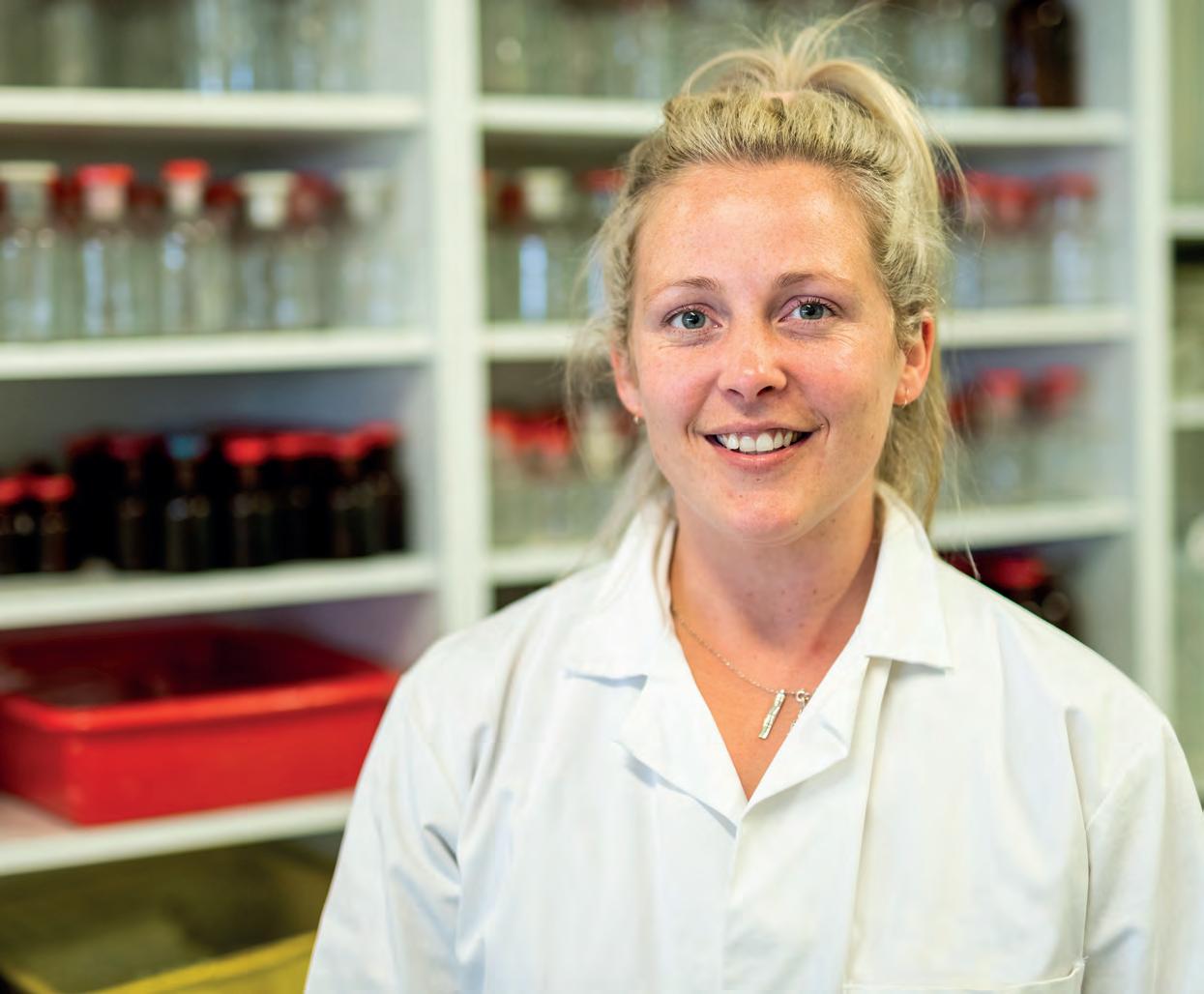
A lot of time is dedicated to practical labs which I love, whilst field trips explore environmental issues with real life examples. Sligo has an array of environmental sites and is the perfect location to study this degree. The modules also interlink with each other, so what you learn in one class is relevant in another.
The lecturers have a wealth of knowledge, not only academically, but within the professional working environment too. I have been accepted onto the Erasmus+ programme and will spend the majority of third year studying at Mid-Sweden University. I am looking forward to immersing myself in a new culture and learning about the environment in the most sustainable country in the world.
This programme gives students the knowledge and skills to protect workers from injuries and fatalities, prevent illness caused by work, promote health and wellbeing, advise employers on health and safety laws and work in groups to solve workplace safety issues. Students will learn how to prepare, implement and monitor safety management systems in the workplace. Our programme incorporates Enquiry Based Learning (EBL) which is a teaching method that allows students to work in teams to collaboratively solve work-based problems. Lecturers design the assessments to mirror what graduates will encounter in the workplace. Our students enter the workplace confident and competent in their abilities to work in teams as well as on their own.
Our degrees blend theoretical and practical learning which includes lectures, laboratory based monitoring, site visits, case studies and enquiry based learning. Final year honours degree students complete a five-month work placement.
In second year, students qualify as manual handling trainers and workstation assessors. They can confidently offer manual handling training and carry out workstation assessments for employers while on work placement and after graduation.
What
Learning
Year 2
• Hazard and Risk Control
• Electricity, Machinery and Fire Safety
• Environmental Water Quality
• Occupational Hygiene Physical Agents
• Safety Legislation
• Construction Technology
• Manual Handling Instructor Training
• Workstation Assessor Training
• Data and Statistics in Health
• Safety and Health Legislation
• Occupational Health and Health Promotion
• Occupational Hygiene
• Environmental Topics in the Workplace
• Management of Hazardous Materials and Processes
• Construction Safety and Contractor Management
• Safety Statement and Risk Assessment
• Applied Statistics and Data Management
• Environmental Management for the Safety Practitioner
Year 4 (Level 8)
• EHS Management Systems and Auditing
• Behavioural Based Safety Programs
• Ergonomics
• Project Management for OSH professionals
• Regulatory Affairs Training and Development
• EHS Management Systems Project
Graduates work as safety advisors, health and safety officers, safety training consultants, site safety officers and safety coordinators in a wide range of sectors including pharmaceuticals, chemicals, electronics, the food and beverage sector, mining, construction, commercial, wholesale, transport, retail and in the health sector. They also work in the public sector.
Level 7 graduates may progress to the one-year, add-on BSc (Hons) in Occupational Safety and Health. Level 8 graduates may progress to the two-year online Masters in Environmental Health and Safety or PhD awards at ATU or other Higher Education Institutions.
307 (Level 8 2021)
243 (Level 7 2021)
cao.sligo@atu.ie
Our programmes are accredited by IOSH, the world’s largest membership organisation for health and safety professionals. This is an international accreditation that qualifies students to take up a career as a health and safety advisor/ manager in any type of industry anywhere in the world.
Pharmaceutical Science is a broad, ever-evolving field, combining a range of scientific subjects that are vital in the discovery, design, development, processing, and manufacturing of a diverse spectrum of drugs and therapies. The overall philosophy of the programme is to produce highly skilled and employable graduates equipped with scientific, analytical, and transferable skills to assume positions of responsibility in the diverse and expanding area of pharmaceutical science in Ireland and beyond. These programmes provide students with a broad but thorough background in the chemical, biological, and technological disciplines as they relate to the study of medicinal products.
These applied multidisciplinary programmes allow students to develop a range of skills, covering scientific, engineering, regulatory and quality issues, as well as delivering excellent communication skills. Modules are based around the core pharmaceutical sciences, but with emphasis also placed on modern technology and advances within the sector.
get the opportunity to apply for an Abbott Excellence & Science Award, where students can get an internship and valuable work experience with one of the many leading pharmaceutical companies in our region.
Graduates work in a diverse range of roles in the pharmaceutical, biopharmaceutical, biomedical, and medical device sectors, including legislation/ regulatory affairs, formulation, analysis, validation, production, and quality systems.
Ireland is now the third-largest exporter of pharmaceuticals globally. The industry employs 30,000+ people, and there are more than 85 pharmaceutical companies in Ireland, including 19 of the top 20 global companies.
Level 8 students benefit from a work placement in Year 3 where they can apply their learning and skills using industry-spec equipment across a range of world-leading companies.
357 (Level 8 2021) 287 (Level 7 2021)
cao.sligo@atu.ie
Students may exit after three years of study with a BSc in Pharmaceutical Science with Drug Development if they obtain the required grades. Level 7 graduates may progress on to Year 4 of the BSc (Hons) in Pharmaceutical Science with Drug Development at ATU Sligo. Graduates from our Level 8 degree can pursue a wide range of Level 9 and 10 postgraduate programmes at ATU or at other third level institutions.
ATU Sligo holds an agreement with the Royal College of Surgeons in Ireland (RCSI) where graduates can also progress onto their pharmacy degree.

I love the 50-50 split between theory and practical lab work in this degree. For example, you might be in a theory class learning how a reaction between raw materials will result in a white powder drug. Then you step into the lab and get to make this white powder drug. It really helps to understand everything you were taught in the theory class.
The lecturers on the degree have worked in industry and offer brilliant insights into career paths. The modules also relate directly to numerous areas of the industry. During my studies I secured an Abbott Internship and worked in their Business Excellence Department for one year. Shortly after my final exams I was offered a full-time position in the company. I now work as an Associate Quality Professional.
3/4 Years
Biomedical Science is principally focused on the diagnosis and therapeutic treatments for detection and prevention of medical disorders. Through study of the science underpinning the origins, diagnosis, and treatment of medical conditions, graduates of this programme are equipped with highly sought-after knowledge and skills. Not only do students get a strong foundation in biology, chemistry, physics and mathematics and core biomedical disciplines, they are also exposed to the applications of innovative new diagnostic and biopharmaceutical processes, medical devices and technologies, and their direct application in research the global bioindustry today.
Year 1
• Biology
• Chemistry
• Physics
• Mathematics for Science
• Information Technology
• Introduction to Medical Biotechnology
Year 2
• Biochemistry
• Microbiology
• Bioethics
• Analytical Techniques
• Biomaterials and Medical Devices
• Mathematics for Science
• Molecular Biology
• Medical Pharmacology
• Medical Immunology
• Process Microbiology
Year 3
• Medical Device Technologies
• Animal Cell Culture
• Statistics for Scientists
• Protein Biotechnology
• Legislation, Quality and Auditing Systems
• Implant Biocompatibility Immunodiagnostics
• Microbial Biotechnology
• Advanced Therapy Medicinal Products
Year 4 (Level 8)
• Cell Culture Processing
• Medical Diagnostics
• Research Project
• Industry Placement and Case Studies
• Recombinant Cell Engineering
• Formulation and Delivery Systems of Biopharmaceuticals
• Biopharmaceutical Validation
• Protein Purification
• Analytical Testing of Biopharmaceuticals
32 Places
Work Placement
Standard Entry
315 (Level 8 2021) 260 (Level 7 2021)
cao.sligo@atu.ie
This programme gives students access to the latest industry innovations and advancements, developing skills needed to gain employment in the global biotechnology, biopharmaceutical, diagnostics and medical device industries in Ireland and abroad.
Unique and interactive teaching methods are used throughout the programme, including the use of enquiry- based learning, industrial workshops, and visits to industries and employers. We also understand the importance of transferrable skills including teamwork, communication, problem solving, data presentation, information sourcing and scientific technical writing which enhances employability and expand student knowledge and understanding of the sector.
There is an industrial work placement in the summer of Year 3. In Year 4, students undertake a research project and training in the National Institute of Bioprocessing Research and Technology (NIBRT) in Blackrock, Dublin. This gives students a distinct advantage when applying for roles in the Biopharmaceutical Industry.
Graduates from this programme work across many biomedical and bio-based industries and careers including diagnostics, medical devices, and biopharmaceuticals. They gain roles as technologists, lab and process scientists, instrumentation scientists, cell culture scientists, and protein and drug analysts.
Students may exit after three years of study with a BSc in Biomedical Science if they obtain the required grades.
Level 7 graduates may progress to Year 4 of the Level 8 BSc (Hons) Biomedical Science programme. Level 8 graduates may progress to Level 9 Masters of Science or Level 10 PhD doctoral studies, pursuing research and/or careers in the public or private sectors.
In Year 4 focus moves to the biopharmaceutical industry. Students complete a research project on a specific area of interest. Demand for our graduates is extremely high from the growing global bioindustry in Ireland who value the quality and skills of our students.
Forensic Investigation and Analysis encompasses the application of a forensic investigative approach using advanced analytical science for the provision of scientific data and evidence. The underlying analytical science combines forensic, biological, chemical, communication and information technology skills. These skills can be applied to the investigation of crime, testing for toxins or illicit drugs, DNA profiling or statistical analysis. Students learn both forensic and analytical science through a range of biology and chemistry modules.
A major focus of the programme is the development of excellent practical analytical science skills, which are in high demand by employers and for postgraduate research. Learning experiences include simulated crime scenes with practicing forensic investigators; training in molecular biology techniques for the development of DNA profiles; collection and chemical analysis of gunshot residue; learning how to test for toxins and illicit drugs; work experience; expert witness training and activities to enhance communication skills.
Chemistry
• Physical Chemistry
• Communication for Scientists
• Data Processing, Molecular Graphics and Instrumentation
• Inorganic and Classical Analysis
Year 3
• Statistics for Scientists
• Quality Systems
• Human Genetics
• Spectroscopy and Atomic Spectrometry for Forensic Analysts
• Forensics Chemistry
• Molecular Biology
• Research Skills for Analytical Scientists
• Immunodiagnostics with Forensics Applications
• Separation Science for Forensics
• Laboratory Computing and Instrumental
• Advanced Chemistry
Year 4 (Level 8)
• Forensics Molecular Biology
• Research Project
• Industry Work Placement
• Forensics Chemical Analysis
• Crime Scene Management
• Analytical Toxicology
• Forensic Evaluation and Court
• Environmental Forensics
Graduates work in a wide range of industries where analytical science is required and initially take up roles as analysts, scientists, and technical officers. Graduates have found employment in a broad range of sectors including in the state laboratory, forensic science, teaching and in the pharmaceutical industry such as Abbott, AbbVie or Coca-Cola.
Graduates can continue to Level 9 or Level 10 Postgraduate studies. Our Level 8 degree is aligned with the Teaching Council of Ireland’s registration requirements for secondary school teaching. Graduates may complete a Professional Master of Education (PME) to teach Chemistry to Leaving Certificate level and Science to Junior Certificate level.

308 (Level 8 2021)
(Level 7 2021)
cao.sligo@atu.ie
This programme is accredited by the Chartered Society of Forensic Sciences in the UK for the component standards Interpretation, Evaluation and Presentation of Evidence, Crime Scene Investigation and Laboratory Analysis. As the first third-level course on the island of Ireland to achieve this accreditation, it gives graduates the assurance that they have an internationally recognised qualification and are ready to undertake a professional career in forensic science.
Understanding and promoting an active lifestyle, proper nutrition, and the positive impact it has on people’s lives, forms the basis of this degree. The programme aims to produce graduates with a strong academic base in health science disciplines related to physical activity and exercise, ideal for a student interested in pursuing a career in human health. Students will have the capacity to apply knowledge and skills to direct and support the general population, distinct population groups and those managing chronic conditions through physical activity and structured exercise programmes.
Students will have access to state-of-the-art equipment in this hands-on programme. These include a Biodex Isokinetic System 4 for testing muscular fitness, a Cortex Gas Analyser for VO2 max testing, a G-Walk which is used in clinical testing by physicians and specialists, and a BodPod, which is the gold standard testing technique to measure body composition.
The Register of Exercise Professionals (REPS) Ireland recognised Fitness Instruction Award is built into the programme, thus graduates are eligible to register with Ireland’s professional body representing exercise professionals. This degree is also accredited by the International Union for Health Promotion and Education (IUHPE).

Graduates may work in a wide range of areas related to health and physical activity, including sports development, sports science, physical activity promotion, health promotion and physical activity.
There is an emphasis on laboratory and practical elements throughout this programme. Students acquire practical skills in core subjects in Years 1 and 2, and begin to specialise further as the degree progresses. The thesis in Year 3 and work placement in Year 4 allows students to apply their knowledge further, helping prepare them for career opportunities after graduation.
(Level
Students may progress into postgraduate programmes in various allied healthcare professions where the undergraduate competencies acquired in health science will complement the chosen career path. Graduates have gained entry to professional programmes in allied health areas such as physiotherapy, radiography and occupational therapy, both in Ireland and abroad.
of Health
Healthy Behaviour

The modules had real life practical experience working in labs and with clients. Not only did I develop my health skills and knowledge, I also developed my interpersonal and communication skills. These are important skills to have and ones I know employers look out for. I love that after four years of study, I have a unique blend of practical skills and knowledge in a broad range of health-related fields.
There is huge diversity in the degree and the options at the end are amazing. When you graduate, you can pursue a career in a wide range of health-related areas or continue your studies. I am currently in University College Cork studying a Masters in Diagnostic Radiography.
The focus of this programme is on understanding, promoting and maintaining health and wellbeing through health behaviours including diet and physical activity. It is the perfect choice for students who have a strong interest in health but may be unsure of what aspect they wish to focus on. Modules are aligned to three main study strands: Health Promotion, Exercise and Nutritional Science, and Research Methods for Health.
Year 1
• Human Biology
• Foundation Chemistry
• Human Anatomy and Physiology
• Mathematics for Science
• Introduction to Health and Fitness
• Introduction to Kinesiology and Exercise Instruction
• Health Communications
• Health Promotion Practice
• Information Technology

• Determinants of Health
• Facilitation and Group Work Skills
• Human Anatomy and Physiology
• Health Biochemistry
• Functional Anatomy and Kinesiology
• Health Psychology
• Exercise Physiology
• Human Nutrition
• Public Health Practice
• Physical Testing and Evaluation
• Biomechanics of Human Movement
• Health Microbiology
• Determinants of Health
• Promoting Health Behaviours
• Research Methods
• Exercise Physiology
• Human Nutrition
• Research Methods
Public Health Practice
• Resistance Training and Programme Design
• Health Statistics and Data Analysis
• Health Science Project
• Health Promotion Practice
• Physical Activity across Lifespan
Embedded within this degree is the Register of Exercise Professionals (REPS) Ireland recognised Fitness Instruction, Personal Training and Exercise for Health Specialist awards. This degree is also accredited by the International Union for Health Promotion and Education (IUHPE).
This means that graduates have qualifications that are recognised worldwide. Core modules in this programme are complemented by supporting modules in IT, communications, first aid, and sports injuries. Students are equipped with a unique blend of practical skills and knowledge in a broad range of health-related fields. This affords graduates numerous and varied opportunities to specialise in their favoured area, and offers a diverse range of career paths.
By exploring different aspects of health science on this flexible programme, students can make an informed decision about career paths and further study. Graduates work in the voluntary and state sectors in sports development, sports science, physical activity, health promotion and health research. Private sector opportunities also exist in a wide variety of areas.
Students may exit with an award after Year 2 or Year 3 of this programme. Graduates of the Level 7 may progress to the oneyear, add-on BSc (Hons) in Public Health and Health Promotion or the final year of Level 8 BSc (Hons) Health Science and Physical Activity degree, subject to meeting the eligibility criteria. Many of our graduates from our health science qualifications pursue studies in allied health professions such as physiotherapy, radiography, occupational therapy and other health-related disciplines, both in Ireland and abroad.
3
296 (Level 7 2021)
Standard Entry Requirements plus • Garda Vetting cao.sligo@atu.ie
Students have access to stateof-the-art equipment in this hands on programme. These include a Biodex Isokinetic System 4 for testing muscular fitness, a Cortex Gas Analyser for VO2 max testing, a G-Walk which is used in clinical testing by physicians and specialists, and a BodPod, which is the gold standard testing technique to measure body composition. There is an emphasis on practical learning in this programme ensuring students are prepared for a wide range of career after graduating.
This programme aims to provide graduates with an excellent foundation for many careers in the physical activity and health sector. Students will acquire a unique blend of practical skills and knowledge in a broad range of health-related fields which will enable them to make informed decisions about specialist areas for further study. This higher certificate offers a broad-based exercise science education in human anatomy & physiology, health psychology, physical activity, exercise prescription, biomechanics, and health promotion. Emphasis is placed on developing core health and exercise related skills and competencies.
Year 1
• Human Biology
• Human Anatomy and Physiology
• Foundation Chemistry
• Mathematics for Science
• Introduction to Kinesiology and Exercise Instruction
• Health Promotion Practice
• Information Technology
• Mathematics for Science
• Health Communications
• Introduction to Health and Fitness
• Determinants of Health
• Facilitation and Group Work Skills
• Human Anatomy and Physiology
• Health Biochemistry
• Health Microbiology
• Health Psychology
• Exercise Physiology
• Biomechanics of Human Movement
• Functional Anatomy and Kinesiology
• Research Methods
• Physical Testing and Evaluation
• Promoting Healthy Behaviours
• Determinants of Health
This programme provides graduates with a pathway to progress to degree level programmes in allied health professions such as physiotherapy, occupational therapy, speech and language therapy, sports science, sports rehabilitation, diagnostic radiography, clinical measurement and other health-related disciplines. By exploring different aspects of health science on our flexible programme, students can make an informed decision about their career paths and further study.
Our lecturers, together with our careers office, will help students with all their progression options, including references, applications, and interview support.
Graduates can gain direct entry onto Year 3 of the Level 7 Bachelor of Science in Health Science and Physiology, after which they may continue to Year 4 of the Level 8 Bachelor of Science (Hons) in Health Science and Physical Activity.
Level 7 graduates can also decide to complete their studies in the Bachelor of Science (Hons) in Public Health and Health Promotion (Level 8, one-year add-on).
Some students choose to exit after Year 2 and further their studies in allied health professions such as physiotherapy, radiography and occupational therapy. Our students have been very succesful in gaining places on programmes in Ireland or the UK.
(Level 6 2021)
cao.sligo@atu.ie
Students will have access to state-of-the-art equipment in this hands on programme. These include a Biodex Isokinetic System 4 for testing muscular fitness, a Cortex Gas Analyser for VO2 max testing, a G-Walk which is used in clinical testing by physicians & specialists and a BodPod, which is the gold standard testing technique to measure body composition.
Graduates are employed in the health and exercise industry in both the voluntary and state sector. Career opportunities include youth work, sports development, physical activity, health promotion and health research.
32
Human Nutrition at ATU Sligo combines several scientific disciplines to provide a thorough understanding of the role of diet and nutrition in health, and in the prevention of major diseases such as cardiovascular disease, cancer, diabetes and osteoporosis. Students will study basic sciences, food science, food product development, physiology, biochemistry and psychology and will graduate with the skills to work as a nutritionist or a food scientist across a broad range of disciplines and sectors. As the programme progresses, students will select a specialised subject, including advanced nutrition, public health nutrition, sports & exercise nutrition and clinical nutrition.
Graduates from our honours degree are eligible for direct entry as registered associate nutritionists with the Association for Nutrition (AfN, AC289).
Standard Entry Requirements plus • Garda Vetting
Erasmus+
376 (Level 8 2021) 299 (Level 7 2021)
cao.sligo@atu.ie
four-month work placement
in
industries, academia, health promotion, public health agencies, in hospitals and with sports nutritionists in Ireland or abroad.
Graduates will be able to use the experience and knowledge gained in this programme to work in food/nutrition-related industries such as research, product development, food safety, regulation, consumer information and marketing. Graduates are also qualified for a variety of roles in health promotion and public health nutrition.
Students have the choice to exit after three years of study with an award if they obtain the required grades. Level 7 students can progress to Year Four of the Level 8 BSc (Hons) Human Nutrition. Graduates from our Level 8 degree can pursue a wide range of Level 9 and 10 postgraduate programmes in ATU or at other third level institutions. ATU Sligo offers a range of Level 9 postgraduate programmes in public health nutrition, sports and exercise nutrition and health promotion.
Many students also undertake this degree as a pathway to dietetics and progress to an MSc in Dietetics.
Level 8 students complete a research project in Year 4. Topics include public health nutrition, clinical nutrition and sports nutrition. In the past students papers have included behaviour change techniques to improve gluten-free diet adherence in people with coeliac disease, nutritional design during cancer treatment to maximise therapeutic impact and minimise side effects, the role of nutrition in recovery from muscle damage in elite athletes, and the challenges and opportunities of developing food products for the ageing population.
Clinical measurement physiologists are healthcare professionals, part of the interdisciplinary team working directly with patients performing, reporting and acting on diagnostic tests and investigations. The aim of this programme is to allow students to gain the qualification, skills and competencies to enter the healthcare workforce as a clinical measurement physiologist.
Graduates from this degree will be able to take up employment as a clinical measurement physiologist. They are healthcare professionals who work directly with patients performing, reporting and acting on diagnostic tests and investigations.
Some clinical measurement physiologists leave direct clinical practice and work as technical consultants or device specialists for companies that provide equipment or devices used in diagnosing or treating patients.
This programme was developed in collaboration with the professional body for Clinical Measurement Physiologists, the Irish Institute of Clinical Measurement Physiology. It will prepare students to work in an exciting and developing field of healthcare.
Places
Standard Entry Requirements plus
• Min H6 or O4 in Maths
• Min H4 in one of: Applied Maths, Physics, Chemistry, Biology, Physics/ Chemistry, Agricultural Science, Engineering or Technology.
• Garda Vetting cao.sligo@atu.ie
NEW Programme
Many clinical measurement physiologists undergo internationally recognised accreditation in specific procedures or groups of procedures they carry out. These are run by professional bodies or scientific groups and mostly involve self-directed learning. Some will undertake MSc or PhD by research in Ireland and some structured programmes are available in the UK. Working in healthcare will offer many opportunities for further study and continuous professional development, which is vital to keep up to date with advancements in technology.
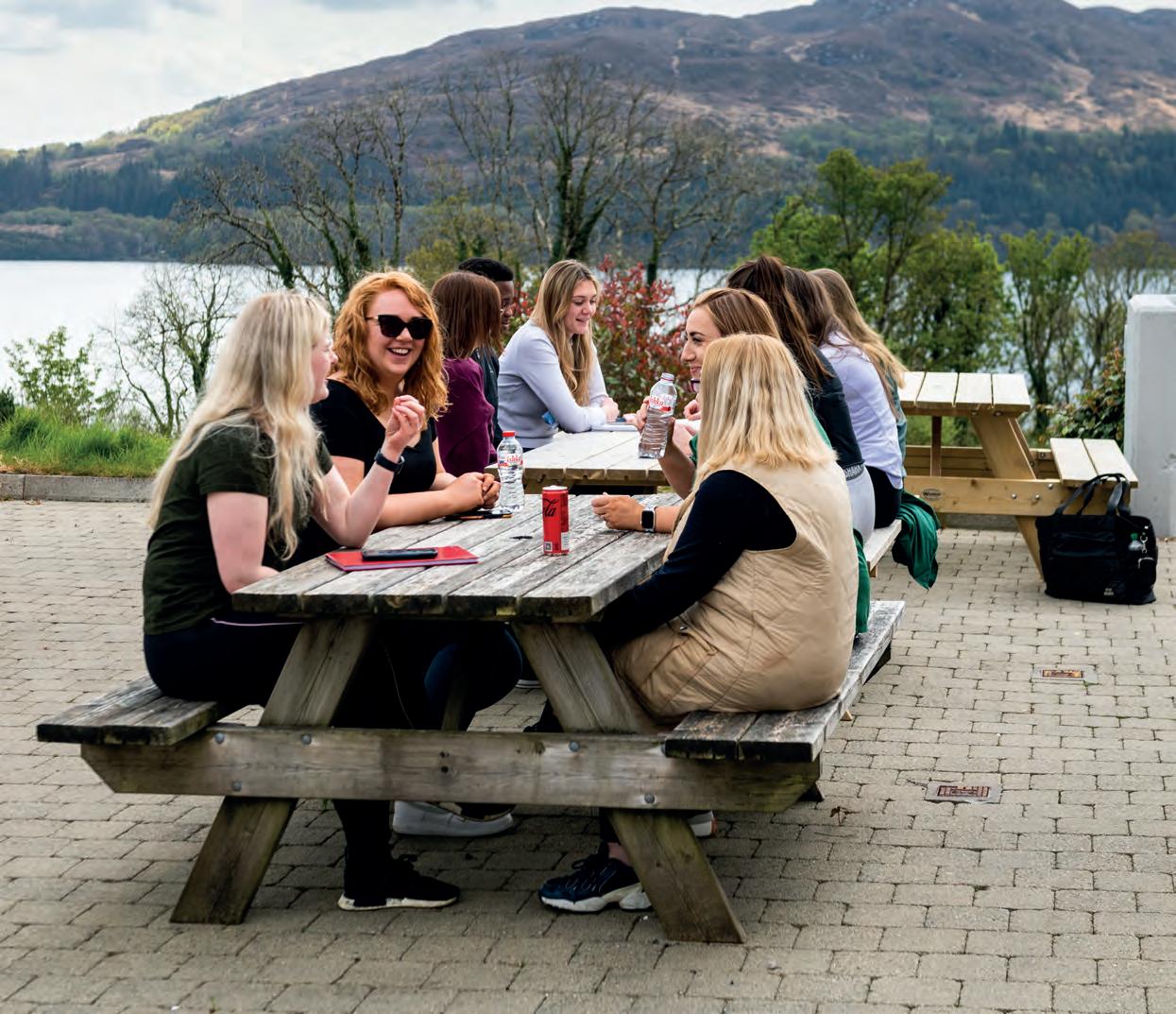 OTA Coláiste San Aingeal
OTA Coláiste San Aingeal
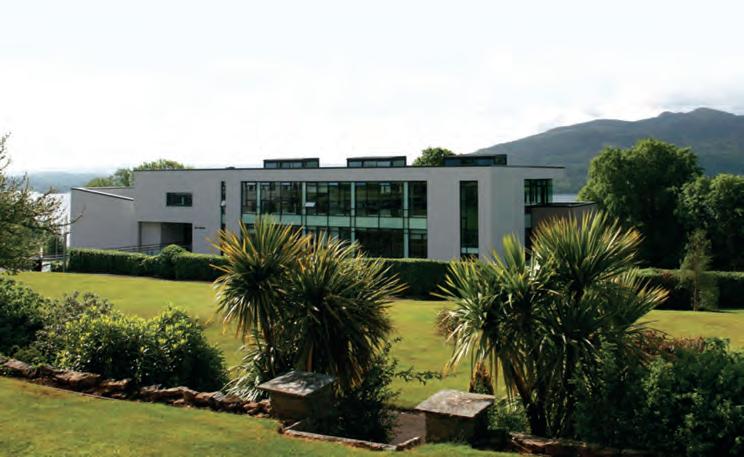

Over 1,600 students study full-time, part-time or online with ATU Sligo St. Angela’s. Programmes are delivered across a range of disciplines, from certificate (Level 7) to PhD (Level 10). All counties and continents are represented in our vibrant and diverse student population.
Our clinical skills simulation resource, the Dudley Practice Area, is the only facility in the country where student nurses can book sessions outside of timetabled hours to enhance their learning and skills. Other state-of-theart facilities include food labs, a food sensory analysis suite, science labs, textiles, fashion and design rooms, multimedia suites, microteaching rooms, lecture theatres and a spacious auditorium.
With small class sizes, we pride ourselves on our sense of community. A personal approach means every student is important and fully supported throughout their academic journey. We empower students to achieve academic excellence.
Our academic staff are professional, compassionate and engage with their students. As experts in their fields, their knowledge is evident by the high calibre of graduates each year. We also welcome guest lectures from Ireland and around the world through our global partners, introducing students to an international experience during their studies.
Located in Áras Michael and overlooking Lough Gill, the McKeown Library provides an important intellectual and social space. The service comprises of a physical library, an online library and a knowledge resource. This includes a collection of more than 40,000 volumes which is continuously updated.
Complimenting theory with practical skills is evident throughout our programmes. This prepares students for placements in education, nursing, healthcare, community and industry, but also provides a valuable foundation for a rewarding career. With a range of postgraduate opportunities available, graduates can also pursue professional development and career advancement with ATU Sligo St. Angela’s.
295 BEd (Hons) in Home Economics and Biology
297BEd (Hons) in Home Economics and Religious Education
298BEd (Hons) in Home Economics and Irish
299BEd (Hons) in Home Economics
300 BSc (Hons) in Nutrition, Food and Business Management
301 BA (Hons) in Home Economics
302 BSc (Hons) in General Nursing
304 BSc (Hons) in Intellectual Disability Nursing
BEd (Hons) in Home Economics and Biology TeachingI’ve always wanted to study Home Economics and Biology teaching at St. Angela’s, the programme is broad, and you get an insight into so many areas - it also has a great mix of practical and theory modules. The smaller class sizes allow you to build a good rapport with everyone as well as the lectures. Our lecturers are experts in their fields and are always approachable and very helpful. School placement is very enjoyable and it’s when you apply theoretical and practical knowledge.
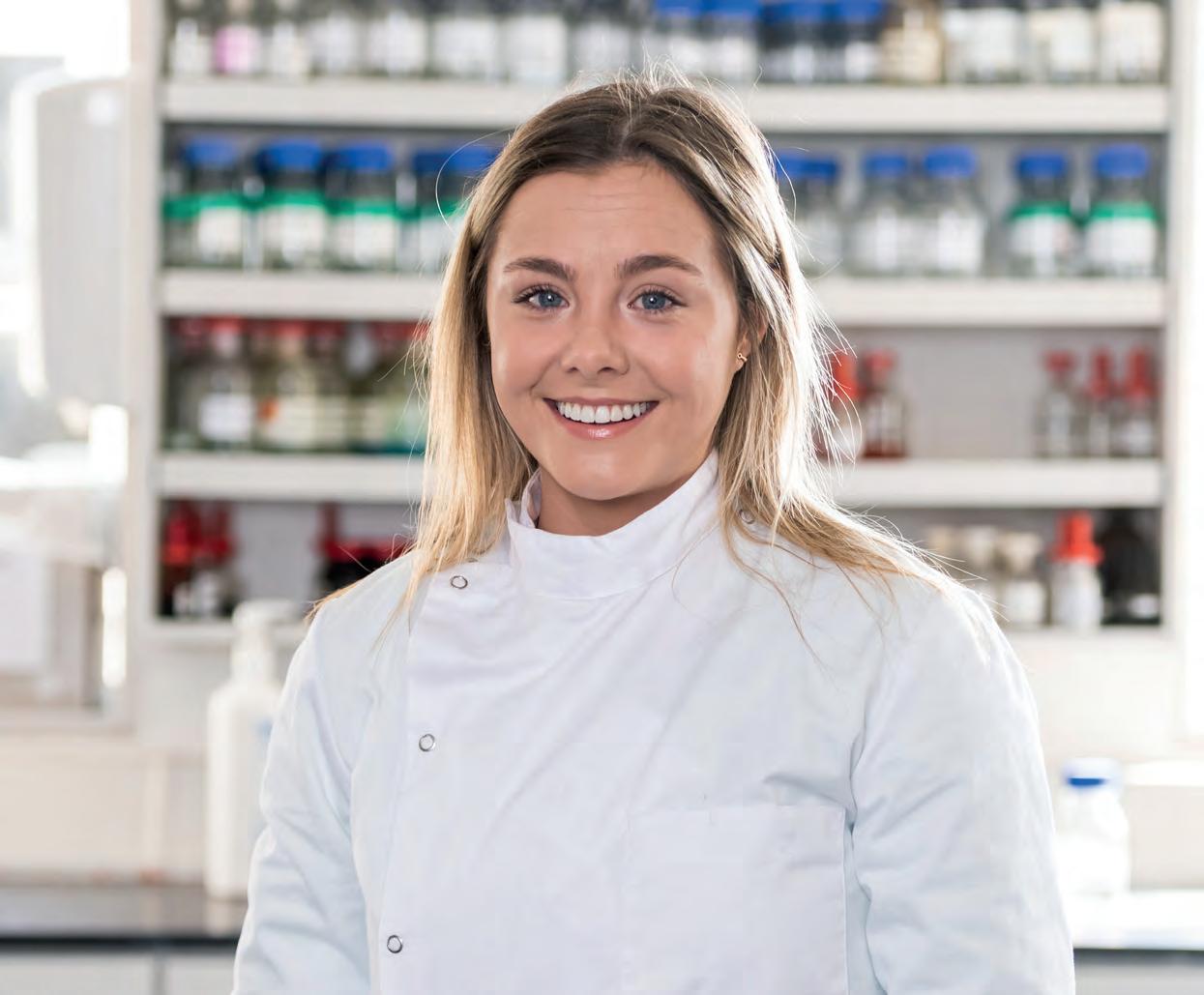 Katie McGlynn
Katie McGlynn
The Bachelor of Education in Home Economics and Religious Education is a full-time, concurrent teacher education degree leading to a National Framework of Qualifications (NFQ) Level 8 honours degree. Upon graduation, students will meet all the Teaching Council requirements to be registered as a Newly Qualified Teacher (NQT) of home economics and religious education.
for direct entry as registered associate nutritionists with the Association for Nutrition (AfN, AC289).
Graduates from our honours degree are
| ATU Prospectus 2023297 ATU Sligo St. Angela’s A four-month work placement takes place in food-related industries, academia, health promotion, public health agencies, in hospitals and with sports nutritionists in Ireland or abroad.
Graduates of this programme are qualified to teach Junior Cycle and Leaving Certificate home economics and religious education. Graduates are provided with a professional and academic qualification which enables them to also pursue careers in a wide range of fields including education, home economics and religious education.
Postgraduate opportunities include Structured PhD (Home Economics), M.Ed. (Home Economics); MA (Contemporary Innovations in Education); MSc. (Food Innovation). Graduates may also proceed to postgraduate study in education, home economics, biology or related areas in other HEI’s.
This four-year programme is the only concurrent initial teacher education programme in home economics and religious education in Ireland and fully equips graduates to teach both subjects at all levels in the postprimary sector.
• Min H5 in two subjects
• Min O6/H7 in four subjects incl. Irish, English, Maths, Home Economics or Lab Science Subject* and two other subjects recognised for entry purposes
* Lab Science Subjects includes: Biology, Chemistry, Physics, Physics/ Chemistry or Agricultural Science. plus
• Garda Vetting
Erasmus+
60 Places 464 (Level 8 2021)
Kevin McGlynn Admissions Officer (Acting) admissions@stangelas.ie4 Years
The Bachelor of Education in Home Economics and Irish is a full-time, concurrent teacher education degree leading to a National Framework of Qualifications (NFQ) Level 8 honours degree. Upon graduation, students will meet all the Teaching Council requirements to be registered as a Newly Qualified Teacher (NQT) of Home Economics and Irish.
• Critical Perspectives in Education
• Educational Research Methods
• General and Specific Pedagogics
• School Placement 3
• Applied Food Microbiology
• Textiles, Fashion and Design
• Family Resource Management: Resource Management and Consumer Empowerment
• Drámaíocht agus Scannánaíocht sa Ghaeilge
• An tSochtheangeolaíocht
• Teanga na Gaeilge 4
• Critical Perspectives in Education 2
• School Placement 4
• Nutrition, Diet and Health
• Home Economics Practice in Everyday Life
• Family Resource Management: Family and Society
• An Fhilíocht sa Ghaeilge
• An tÚrscéal sa Ghaeilge
• Teanga na Gaeilge 5
Graduates of this programme are qualified to teach Junior Cycle and Leaving Certificate home economics and Irish. Graduates are provided with a professional and academic qualification which enables them to also pursue careers in a wide range of fields including education, home economics and Irish.
Postgraduate opportunities include Structured PhD (Home Economics), M.Ed. (Home Economics); MA (Contemporary Innovations in Education); MSc. (Food Innovation). Graduates may also proceed to postgraduate study in education, home economics, biology or related areas in other HEI’s.
This four-year programme is the only concurrent initial teacher education programme in home economics and Irish in Ireland and fully equips graduates to teach both subjects at all levels in the post-primary sector.
50 Places
• Min H4 Irish
• Min H5 in another subject
• Min O6/H7 in four subjects incl. English, Maths, Home Economics or Lab Science Subject* and three other subjects recognised for entry
* Lab Science Subjects includes: Biology, Chemistry, Physics, Physics/ Chemistry or Agricultural Science. plus
• Garda Vetting 463 (Level 8 2021)
Erasmus+
Kevin McGlynn Admissions Officer (Acting) admissions@stangelas.ie ProfessionalATU Prospectus 2023 | 298 ATU Sligo St. Angela’s School placement is a core element of the teacher education programme. Student teachers undertake school placement on a block release basis in the spring term of every year of their Bachelor of Education programme which is completed in a variety of schools and educational settings.
4 Years
The Bachelor of Education in Home Economics is a full-time, concurrent teacher education degree leading to a National Framework of Qualifications (NFQ) Level 8 honours degree. Upon graduation, students will meet all the Teaching Council requirements to be registered as a Newly Qualified Teacher (NQT) of Home Economics.
School
30 Places
Standard Entry Requirements plus
• Min H5 in two subjects
• Min O6/H7 in four subjects incl Irish, English, Maths and Home Economics
• Two other subjects recognised for entry purposes.
Graduates are recognised by the Teaching Council and are fully qualified to teach Home Economics to the highest Post Primary level. Graduates are provided with a qualification which enables them to also pursue careers in a wide range of fields including home economics; education; food; textiles; social and family studies.
Graduates have the option to pursue further studies at postgraduate, Masters and PhD Level in home economics and education. Postgraduate opportunities include Structured PhD (Home Economics), M.Ed. (Home Economics); MA (Contemporary Innovations in Education); MSc. (Food Innovation). Graduates may also proceed to postgraduate study in other HEI’s.
This four-year programme is the only concurrent initial teacher education programme in home economics in Ireland and fully equips graduates to teach both subjects at all levels in the postprimary sector.
4 Years
The Bachelor of Science in Nutrition, Food and Business Management programme is aimed at students with a strong interest in food, nutrition and food product development as well as students who are interested in developing a diverse range of entrepreneurial skills and business acumen. The programme seeks to prepare students for the challenges of producing foods safe for human consumption and developing more nutritious, healthier food options for dynamic, ever-changing markets.
There is a mandatory work placement in Semester 2 of Year 3 where students must complete a minimum of 20 weeks in a food-producing company. There is an option for international placement on this programme and many students have taken EU-funded placement through the Erasmus+ Mobility scheme. Students typically take on roles in product development, quality assurance and production supervision. Irish placement companies have included Kerry, Flahavan’s, 2 Sisters Food Group, Glanbia, Aurivo, Good 4 U, Lakeland Dairies, Boyne Valley, Ornua, Ballymaguire Foods, The Foods of Athenry and many more.
Graduates will have attained the knowledge, skills and competencies that will enable them to obtain employment in a variety of food and associated industries. Graduates will be equipped with the technical knowledge and skills required to work in a diverse range of careers.
Popular postgraduate pathways include a Master’s in areas such as food innovation and NPD and Food Quality or Food Safety. PhD pathways are also an option.
There are 230,000 jobs linked to the Agri-Food sector in Ireland, a current turnover of roughly €26bn and food and drink exports of over €13.15bn in 2021 with further growth predicted for 2022 and beyond (Bord Bia, 2021).
Additional certification can be achieved through programme: Basic
Hygiene, certified by Environmental Health Officers (Health Service Executive).
16 Places
Standard Entry Requirements plus
• Min H5 in two subjects
• Min O6/H7 in four subjects incl Irish, English, Maths, a Lab Science Subject and two other subjects recognised for entry purposes.
* Laboratory Science includes: Biology, Chemistry, Physics, Physics/Chemistry or Agricultural Science.
Erasmus+
378 (Level 8 2021)
Kevin McGlynn Admissions Officer (Acting)admissions@stangelas.ie
4 Years
The role of a Home Economist in communities is very much established worldwide. This level 8, four-year degree (which is not an initial teacher education qualification) fulfils the gap that is currently demanded and required within Irish society. It is designed to attract applicants who are passionate about home economics and aspire to be home economists advocating for sustainable health and wellbeing of individuals, families and communities.
Year
•
•
•
•
•
•
Year 4 of the programme allows students to specialise within a specific area of home economics i.e. food or textiles, fashion, design or family resource management. This year will also allow students to investigate and research an area of interest.
Graduates will find job opportunities in governmental or NGO’s focusing on family and child wellbeing; consumer advocacy; and health promotion. Graduates can work with both private and state organisations as food advisors, or community home economists. Commercial pathways in the private sector (e.g. food, textiles, fashion) are also possible.
Postgraduate programmes (Masters and Doctoral level) can be pursued in the areas of education, home economics, health promotion; food and nutrition; health coaching and wellbeing; child development; child, youth and community, textiles and fashion. Students who successfully complete the BA in Home Economics may progress to a Professional Master of Education (PME) which will enable graduates to teach home economics to Junior Certificate and Leaving Certificate levels.
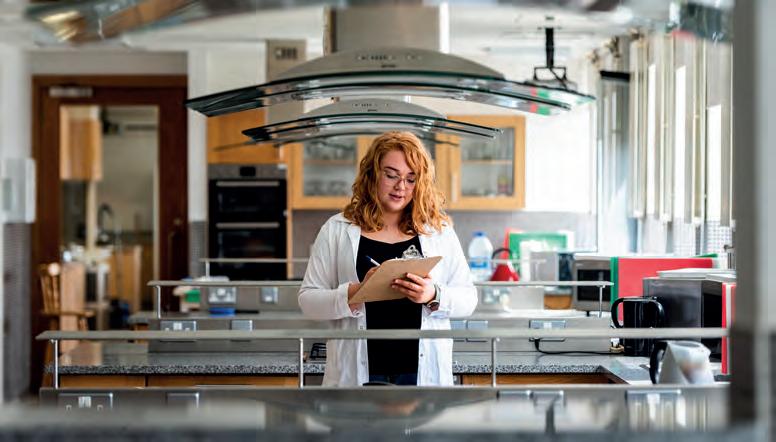
• Min H5 in two subjects
• Min O6/H7 in four subjects incl. Irish, English, Maths, Home Economics and two other subjects recognised for entry purposes plus
• Garda Vetting
Kevin McGlynn Admissions Officer (Acting) admissions@stangelas.ie
| ATU Prospectus 2023301 ATU Sligo St. Angela’s 440* (Level 8 2021)
Erasmus+General Nurses care for persons of all ages, in hospitals, GP practices and in the communities –working as part of a team of healthcare professionals who look after a person’s physical; psychological; spiritual and social wellbeing. Caring for persons with various types of conditions (acute & chronic physical illnesses), Nurses also have a key role in helping those who have had an illness to recover to their optimum well-being.
Graduates will be eligible to register as a General Nurse with the Nursing and Midwifery Board of Ireland (NMBI) having obtained a university-accredited honours degree. The programme is offered in conjunction with Sligo University Hospital and other Health Service Executive (HSE) organisations and groups in the Western region. The overall aim of this programme is to enable students to become nurses who are knowledgeable, insightful, questioning, skilled and caring

Year 1
• Applied Biological Sciences 1
• Applied Social Sciences 1
• Theory and Practice of Nursing
Across the Lifespan in Acute and Community Setting 1
• Nursing Practice and Clinical
Making
• Nursing Practice Skills
Foundations of
and
Professional Foundations of
Year 2
•
Applied Biological Sciences
• Applied Social Sciences
Principles of Pharmacology
• Theory and Practice of Nursing
Across the Lifespan in Acute and Community Setting
• Nursing Practice and Clinical
• Nursing Practice
and
Practice
Lifespan
Practice
Graduates will be in a position to work in various settings such as ward based nursing, community or in specialists’ areas. Graduates may decide to specialise in other disciplines of nursing (e.g. midwifery); management or education. As a nurse, there are career opportunities available at regional, national and international levels.
4 Years
to
•
Acute
Theory and Practice of Nursing
the Lifespan in Acute and
Nursing Practice and Clinical
Nursing Practice
for Nursing
Nursing Leadership
Many graduates choose to undertake further study to enhance their nursing practice and career opportunities. We offer a number of postgraduate options which include nursing studies, international healthcare management, disability studies, applied health and wellness coaching as well as a suite of flexible learning standalone modules to choose from.
In each semester students will undertake at least one clinical module whereby time will be spent in the hospital or community learning the art of general nursing. Students spend
Standard Entry Requirements plus
• Min H5 in two subjects
• Min O6/H7 in four subjects incl. Irish, English, Maths, Lab Science Subject and two other subjects recognised for entry purposes
* Lab Science Subject includes: Biology, Chemistry, Physics, Physics/Chemistry or Agricultural Science.
plus
• Garda Vetting
• Medical Clearance
Erasmus+
60 Places 440* (Level 8 2021)
Kevin McGlynn Admissions Officer (Acting) admissions@stangelas.ieover half of the programme in the hospital or community settings. In the final year students are in the hospital or community from January to September and are very much part of the team of health care professionals delivering care.
What I love about the intellectual disability nursing programme is that, from the beginning, you receive both theory and hands-on experience. I especially enjoyed the unique experiences in the community placements. ID Nursing is a career path in which there are so many avenues and opportunities to work and continue with studies. As a student nurse, you are supported by lecturers that are making an impact in the health sector. The college also has a clinical-simulated area called the Dudley Practice Area where there is a very helpful and supportive Clinical Skills Nurse who is available to support and guide students when learning new skills.

This is a four-year degree pre-registration programme focusing on the theory and practice of Intellectual Disability Nursing to support people throughout their life span. The aim of the programme is to prepare practitioners as analytical, reflective and independent thinkers who will practice as competent, accountable, registered nurses who support inclusive and fulfilling lives for people with an intellectual disability.

In each semester students will undertake at least one practice module whereby time will be spent in intellectual disability services, and schools learning how to support persons with an intellectual disability in their lives. Students spend over half of the programme working in various areas where persons with an intellectual disability live, are educated, work and socialise. In the final year, students are working with persons with an intellectual disability in all of the settings outlined above from January to September.
Graduates can work within the community or work with families and other professionals or professional services such as schools, respite services and supported employment agencies. Graduates may also specialise and work with persons who have particular challenges such as complex needs, autism spectrum disorders, behaviour or mental health challenges.
Many graduates choose to undertake further study to enhance their nursing practice and career opportunities. we offer a number of postgraduate options which include nursing studies, international healthcare management, disability studies, applied health and wellness coaching as well as a suite of flexible learning standalone modules to choose from.
Intellectual disability nursing is based on the principles of human rights, equality, person-centredness and empowerment. These principles underpin the achievement of autonomy, active participation,
4 Years
30 Places
Standard Entry Requirements plus
• Min H5 in two subjects
• Min O6/H7 in four subjects incl. Irish, English, Maths, Lab Science Subject and two other subjects recognised for entry purposes
* Lab Science Subject includes: Biology, Chemistry, Physics, Physics/Chemistry or Agricultural Science plus
• Garda Vetting
• Medical Clearance
Erasmus+
387 (Level 8 2021)
Kevin McGlynn Admissions Officer (Acting) admissions@stangelas.ieinclusivity for the person and the delivery of quality life, health and social care. Registered Nurses Intellectual Disability collaborate with the person with intellectual disability, their family, advocates and members of the multiprofessional and multi-agency teams to enable the person to live within their community.


 Conas Iarratas a Dhéanamh
Conas Iarratas a Dhéanamh
Applying to university can be stressful and daunting. The information in this section will help you get your application right so please take the time to read it. Ask your Guidance Counsellor about anything you don’t understand or contact us directly. The best advice we could give you when filling out the CAO form is to list your programme choices in genuine order of preference. Make sure the programmes that most interest you are at the top of your CAO preference list. Key CAO deadlines are listed in this section for your reference so be sure to note them. It might help you to remember them if you put reminders on your phone. If you feel you may need financial assistance in university, apply for financial support as early as possible. The sooner you apply the sooner you will know if you are eligible for a grant. Applications usually open in March of each year. You can check your eligibility on www.studentfinance.ie and www.susi.ie.
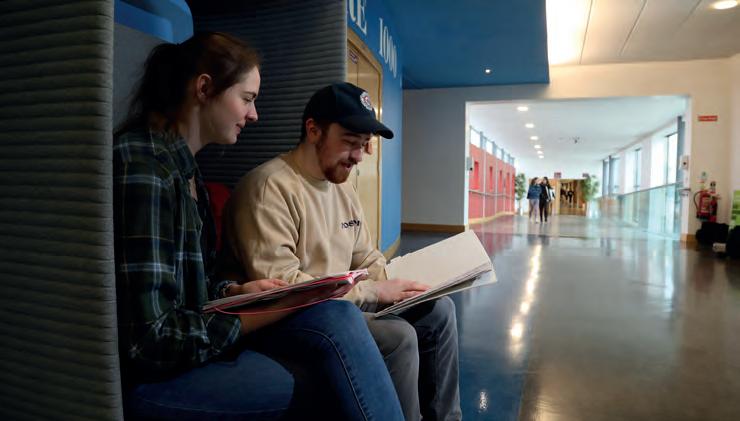
Rules on fees and grants are subject to change. Please check the websites of the HEA and SUSI for the most upto-date information on the criteria for determining liability for fees and/or eligibility for grants. See https://hea.ie/funding-governance-performance/ funding/student-finance/ www.susi.ie
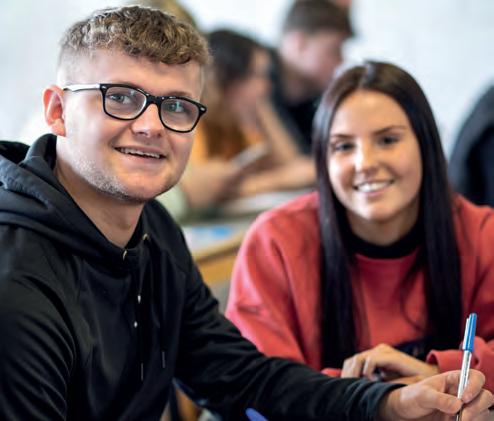
Applicants from Northern Ireland can secure support to cover costs. Contact the Local Education and Library Board or visit these websites for more information: www.slc.co.uk or www.studentfinanceni.co.uk
The maximum duration of funding is normally four years. Continued payment of the grant is subject to satisfactory attendance, performance and progression. Therefore, if you don’t progress, as well as becoming liable for repeat fees, you will usually lose any grant to which you were formerly entitled. The grant authority may waive this in exceptional circumstances - such as certified serious illness.
ATU offer programmes leading to awards at Levels 6 to 10 of the National Framework of Qualifications.
Level 6 Higher Certificate
Level 7 Ordinary Bachelor Degree
Level 8 Honours Bachelor Degree
Level 9 Master’s Degree
Level 10 Doctoral Degree
Most undergraduate applicants enter first year via the CAO. ATU provides a ‘ladder of opportunity’. When you achieve an award at one level, you can progress to a related programme at the next level, either at ATU or at another university.
Conas Iarratas a Dhéanamh
Applications for entry to ATU’s first-year full-time undergraduate programmes, at Levels 6-8, are made through the Central Applications Office (CAO). Applications open during November for programmes starting in September of the following year. Detailed information on how to apply via CAO is available at www.cao.ie
Applicants for advanced entry, i.e. to year 2 or higher of an undergraduate programme, or for post-graduate programmes, must apply directly to ATU. If you wish to apply for advanced entry you must have already achieved sufficient higher education credits in a related area.
Maidir Leis an Gcóras CAO
Using a single application, you may choose up to twenty programmes - ten at Level 8 and ten at Level 6/7. To make sure you give yourself the best possible chance to get the programme you really want, list your choices in genuine order of preference in each category. Your choices on one list do not affect your choices on the other. On each round, you may receive two independent programme offers, one from each list.
Dátaí Tábhachtacha don CAO
5th November @ 12:00 noon
CAO application season opens
20th January @ 5:00 pm Deadline for online discounted applications
1st February @ 5:00 pm Deadline for on-time Applications and for Restricted Programmes
5th March @ 5:00 pm CAO Re-opens for late applications
1st May @ 5:00 pm Deadline for Late applications
5th May @ 12:00 noon -
1st JuIy @ 5:00 pm
Change of Mind Period
1. Application based on the Irish Leaving Certificate
2. FETAC and QQI applicants
3. School leavers from EU/EEA countries and from UK/NI
4. Mature Applicants
5. International Applicants from outside the EU/EEA
The entry requirements vary depending on the type of applicant you are and the level of the programme for which you apply. There are some entry requirements that apply across all, or most, programmes. For instance, you will always need to present either Irish or English. For most programmes, you will also need to present maths. The more common minimum requirements are listed below. However, requirements can vary from programme to programme. Please pay close attention to the specific requirements listed on individual programme description pages. Contact Admissions if you are in any doubt.
1. Irish Leaving Certificate -
Ardteistiméireacht na hÉireannBunriachtanais Iontrála
Higher Certificate (Level 6) and Ordinary Degree (Level 7)
5 Leaving Cert. subjects @ grade O6/H7 or better Subjects must include either English or Irish. Minimum points score of 160 points
Mathematics is a required subject in most cases. However, there are a few programmes for which Mathematics is not an entry requirement and some programmes where a higher grade in maths is required. It is important to check individual programme descriptors.
A minimum of two subjects at grade H5 or better
Remaining subjects at grade O6/H7 or better
Subjects must include either English or Irish.
Mathematics is a required subject in most cases. However, there are a few programmes for which Mathematics is not an entry requirement and some where a higher grade in maths is required. It is important to check individual programme descriptors.
The Leaving Cert grading system changed in 2017; for those presenting Leaving Certs from 2016 or earlier the equivalent minimum grades are:
Information on the common points scale can be found via the Student Resources section of the CAO website here http://www.cao.ie/index. php?page=scoring&s=lcepointsgrid
A Calculator Tool that can be used to work out points based on Leaving Certificate results is also available via the Student resources section of the CAO website, https:// www.cao.ie/?page=points_calc&bb=studentresources
You will need O6/H7 or better in either English or Irish in the Irish Leaving Certificate (or equivalent) for all programmes.
If English/Irish is not your first language you will also need an internationally recognised qualification in English, e.g. IELTS Level 6 or similar. ATU may test oral English ability and/or require applicants to provide TSE scores. Registration may be refused or rescinded if the required standard is not met.
Results from Bunleibhéal Gaeilge do not meet the entry requirements.
Maths with a minimum grade of O6/H5 or F2 is the minimum requirement for most programmes. However, there are some programmes for which maths in not required and others (typically engineering /computing programmes) for which foundation maths may not be sufficient or for which the minimum grade required is higher, e.g. H5 or better. Please check individual programme descriptors carefully for details of the maths requirement specific to each programme.
Foundation maths at and above grade F2 (80%) is accepted as meeting the maths requirement for most, but not all, programmes. Typically, foundation maths is not accepted for engineering. Nor is foundation maths accepted for some ab initio level 8 programmes. Please check individual programme descriptors to see the minimum maths requirement.
Where accepted, points for qualifying Foundation Maths are:
FI 20 points F2 12 points
Students who achieve grade H6 or better in the Higher (Honours) maths exam will receive 25 additional points. Bonus points will also apply to Honours maths results from previous years. For maths results from 2016 and earlier, applicants will need to have achieved a grade of HD3 or better to qualify for bonus points.
ATU run qualifying maths programmes for applicants who are otherwise eligible but who do not meet the maths requirement for the programme to which they have applied. These qualifying maths programmes are usually held after the Leaving Certificate results become available. Please see the ATU website for details of times and locations.
Passing a qualifying maths programme at ATU will compensate for failure to matriculate in maths via the Leaving Cert. or equivalent school-leaving exam. Passing a qualifying maths course will not compensate for any other deficit in the entry requirements. In all cases applicants must meet the other minimum entry requirements and the current points for the programme they wish to attend.
Applicants must present a full major award at Level 5 or higher. A record achievement, a minor award or a component award will not meet the minimum entry requirement. You must have at least 120 QQI FET credits to matriculate.
Additional specific requirements apply to some programmes. For most ATU programmes we accept any QQI Level 5 award. However, for some ATU programmes, e.g. Nursing, specific QQI awards are required. For other ATU programmes you will be expected to include a specific module within your FE award – most commonly a maths module, or to have passed Maths in the Leaving Cert. For Level 8 programmes you will normally be required to have achieved at least 3 distinctions, though 5 distinctions are required for nursing programmes. Please consult the Applicants section of the CAO website for listings of QQI/FE requirements for individual ATU programme codes, https://www.cao.ie/index. php?page=fetac_search
Details of the Scoring Scheme for QQI awards can also be found via the Applicants section of the CAO website, http://www2.cao.ie/fetac/FETAC_scoring.pdf
Note that points based on QQI/FET results will be used when assigning places for the vocational quota only. Most offers for the vocational quota issue on Round Zero. If the vocational quota for any programme remains unfilled after Round Zero additional offers for this quota may be made on subsequent rounds.
Applicants with QQI awards at Level 6 or higher may be considered for advanced entry, i.e. into Year 2 in a cognate area. Apply directly to ATU if you wish to be considered for advanced entry.
An award at Level 3 on the UK framework is the minimum entry standard for year one.
Standard applicants are those presenting a combination of GCSE/GCE awards only. This is the most clear-cut entry pathway. The more common entry requirements are outlined below but it is necessary to consult individual programme description pages for full details.
English (or Irish) is always a required subject. The minimum acceptable grade is GCSE grade C.
Mathematics is almost always required. Where required, the minimum acceptable grade is usually GCSE grade C, but a higher grade may be specified for some programmes, especially in engineering/computing.
Other - Additional subject requirements may apply to some programmes. Where specific other subjects are required the minimum acceptable grade, GCSE @ C or higher. For instance,
Art may be required for some Design programmes
A laboratory Science is required for Nursing and several science-based programmes.
Five different recognised GCSE/GCE subjects.
These must include at least one GCE A-Level at grade E or better.
The remaining four may be drawn from GCSE (Grades A-C only) or AS grades A-E.
Your subject must include either English or Irishminimum acceptable grade, GCSE at C or higher.
In most cases you will be required to present maths, where required, the minimum acceptable grade is usually GCSE grade C, but a higher grade may be specified for some programmes, especially in engineering/computing.
Where specific other subjects are required the minimum acceptable grade, GCSE at C or higher.
Six different recognised GCSE/GCE subjects.
These must include at least two GCE A-Levels at grade C or higher.
The remaining 4 can be drawn from GCSE (Grades A-C only), or from A-Levels or AS grades A-E
Applied A-Level subjects may be used to meet the minimum requirements.
It is possible to meet the minimum requirements through a combination of exams taken over more than one year.
Meeting the minimum requirements outlined may not be sufficient to guarantee selection. Entry is competitive and ranking is based on points. Points are derived from GCE A-Level grades. The better your GCE results the better your chance of selection.
Selection is a two-step process. First, you must matriculate or meet the minimum requirements outlined for the programme. Only then will we move to step 2, the calculation of points. GCSEs count toward matriculation but are not awarded any points. Centralised and automated scoring via CAO is based on A-levels and (where applicable) AS-level results only.
See http://www.cao.ie/index.php?page=scoring&s=gce for details of the scoring mechanism.
CAO can generally get current year results directly from Exam Boards, provided you have given them appropriate information about your exam centre, exam number, etc.
If you wish to have GCE/ GSCE (or other UK Level 3 awards) from previous years considered, you must supply CAO with evidence. Certified photocopies of Awards or statements of results - as produced by an Examining Board - should be supplied to CAO. A certified photocopy is one that has been signed by your school or by a notary public as a true and unaltered copy of the original.
It is important to submit supporting documentation on time. Normally, supporting documentation is expected to reach CAO within 10 days of applying.
If you supply late documentation you should alert the ATU Admissions office to make sure that it is not overlooked. The final deadline for submission of supporting documents is 1 week before the issue date for any round of offers. Documents submitted after this deadline will be considered on the next available round, provided places are still available.
Awards other than GCE/GCSE combination are regarded as non-standard and are not included in CAO centralised automated processing. If you are including UK awards other than the standard GCE/GCSE combination as part of your application, you will need to submit supporting documents. Details of the alternate qualification(s) should be supplied to CAO (if applying for entry to the first year) or directly to ATU (if applying for advanced entry, i.e. entry to years 2, 3, or 4).
Whether or not a non-standard award will be recognised, and to what degree, will depend on the framework level, the learning outcomes achieved, and how those learning outcomes fit in with the pre-requisites of the programme for which application is being made.
ATU will consider awards at UK Framework Level 3 or higher, including BTECs, AVCs, GNVQs, etc.
Please attach the following for any non-standard awards you may be presenting at UK Level 3 or higher
1. The Award Certificate
2. A transcript of results - showing subject is taken and grades achieved
3. A copy of the syllabus or the programme schedule showing modules are taken, credits that apply, and expected learning outcomes.
With the exception of GCSE certificates at grade C or higher, awards below UK framework Level 3 do not contribute to matriculation and will be disregarded.
Generally,
6/7
L6 /L7/L8 Programmes, however conditions or restrictions or limited vocational quotas may apply for highdemand programmes
For some high –demand programmes there is a very limited quota of places for those presenting vocational awards, such as BTEC or QQI Level 5 awards from ROI
D*D*D* 390
D*D*D 371
D*DD 351 DDD 332
DDM 293
DMM D*D* 254 D*D 234
MMM DD 215 D*D* 185
MMP DM D*D 176 DD 156
MPP MM DM 137 D* 117
PPP MP MM D 98 MP 78 PP M 59
For pre-2010 BTECs a National Certificate is the lowest acceptable award. Each module is scored, pass 1, merit 2, and distinction 3. The total score is then derived using the following formula (sum of scores/number of modules x 3) x 390.
For some high–demand programmes there is a very limited quota of places for those presenting vocational awards, such as BTECs or QQI FET awards from the ROI.
Applicants presenting standard academic awards such as A-level/GCSE combination or Leaving Certificate with good grades are likely to have a better chance of selection for high-demand programmes. For information on quota places for BTEC and QQI FET qualifications, please see the relevant programme page. To be eligible for consideration for the vocational quota your BTEC, or another vocational award, must be in a field closely allied to the programme for which you are applying.
Academic and vocational entry routes are distinct. It is not possible to add BTEC and A-level scores, just as it is not possible to add Leaving Certificate and QQI FET scores. Where restricted vocational quotas apply, results from vocational awards like BTEC/QQI FET awards are considered on Round Zero initially. Once the specific vocational quota is filled the BTEC score no longer apply
and is not considered for non-quota places. When there are more qualified BTEC/QQI FET applicants than there are quota places available, random selection from among equally qualified applicants is likely to apply for the last few places. Please see the CAO handbook for information on random selection.
Please make sure your name and CAO number are clearly marked on any documents you send to CAO. ATU begins to review non-standard applications early and will assess them on the basis of evidence to hand. If you have not submitted results in support of your application, within the standard 10-day period stipulated by CAO, you may be deemed ineligible. Once your application has been reviewed it will not normally be reconsidered. For this reason, is it important that you contact ATU directly if you submit additional supporting evidence after the standard 10-day period allowed for submission of documents has expired. If you fail to do so, late documents may be disregarded. If you are interested in high-demand programmes please ensure that all relevant results reach the CAO well in advance of the relevant round. We can only consider results that reach us at least one week ahead of the relevant round of offers.
Most offers for the vocational quota, which includes offers based on BTEC, will issue on Round Zero. Round Zero offers normally go out during the first week of August. This
means that those wishing to be considered on Round Zero must have made results available to us by July. Where the vocational quota fills on Round Zero, no subsequent vocational offers will issue. Where the vocational quota does not fill on Round Zero, further offers may issue in later rounds.
ATU will normally assess applicants on the basis of the documentation provided but may interview or otherwise assess any non-standard applicants where this is deemed necessary or appropriate.
Applicants presenting any award at Level 4 or higher on the UK framework may be considered for Advanced Entry into a cognate area. Applicants for Advanced Entry should apply directly to ATU and not via the CAO.
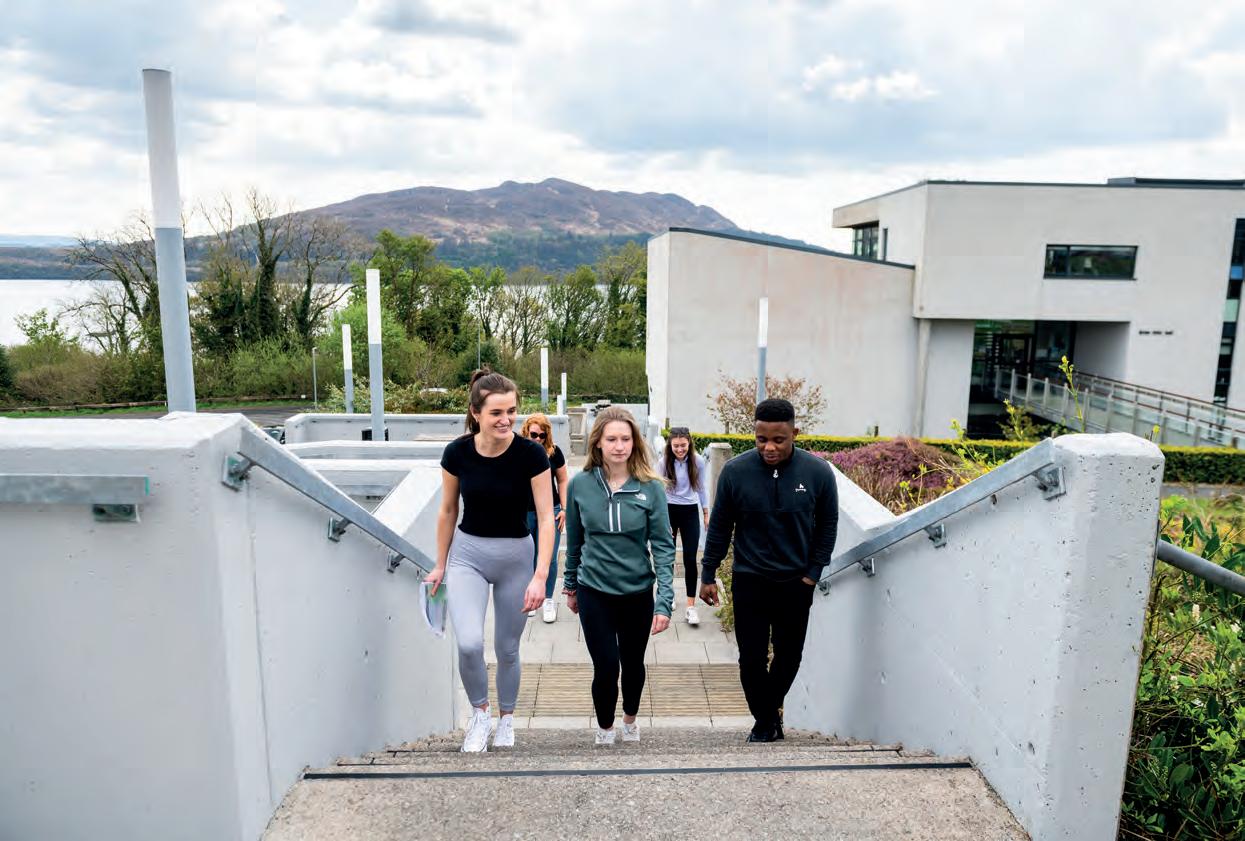
Please attach to the completed ATU application form details of both your Level 4 syllabus – e.g. HND or other and of your results.
Our ability to accommodate advanced entry applicants will depend on several factors including:
Available vacancies in the advanced class group
The “fit” between the learning outcomes you have already achieved and the programme for which you are applying
Whether or not it will be possible to make up any deficit, or missed element, including any placement requirements, etc.
Every case is different. First offers for advanced entry are normally issued in late July. However, as we sometimes need to await the outcome of autumn exams to resolve any space issues, offers may issue as late as September.
Since advanced entry is not guaranteed, some advanced entry applicants may decide, as a fall-back position, to also apply for first-year via the CAO. This is permissible. Whether you apply directly to ATU and/ or via the CAO it is important to include all relevant supporting documents.
If you are applying for first-year and will be 23 years of age (or older) by 1st January in the proposed year of entry you are defined as a “Mature Applicant”.
Yes. Mature candidates may be exempted from the standard minimum academic entry requirements. A limited quota of places is reserved specifically for mature applicants on all first-year programmes.
Not necessarily. Most mature applicants, particularly those who have not been engaged in formal higher education for some time and/or those embarking on a new area of study, opt to start at Year 1 and study in full-time mode. If this is your preference you should apply for first-year via the CAO, see www.cao.ie
If you already have some form of certified/accredited higher education that is relevant to the programme for which you are applying, you may be able to gain some exemptions. If you have already successfully completed at least one year of higher education, in a programme closely related to the one for which you are applying, you may even be eligible for Advanced Entry. Apply directly to ATU if you wish to be considered for Advanced Entry.
You can apply online, www.cao.ie or you can make a paper-based application. The Internet application is the recommended option as it is cheaper, faster and less error-prone.
Standard CAO closing dates apply for mature applicants seeking entry to year 1 via CAO. Ideally, apply before 1st February 5.00pm. Late applications may be accepted for most programmes - up to 1st May at 5pm. However, applications made after 1st February will cost more if a programme is marked “Restricted” in the CAO handbook you may not submit a late application.
Assessment methodologies can vary from programme to programme. For many programmes, mature candidates will be randomly selected for mature quota places.
For other programmes mature candidates may be assessed on the basis of the personal statement provided as part of the CAO application process, and/or they may be invited to interview. In the case of mature applicants for nursing, they will be selected on the basis of an external test organised by the Nursing Board. Please check individual programme descriptions.
Applicants who have a Leaving Certificate or other qualifications, can, in addition, compete for all non-quota places based on their qualifications. If you have relevant exam results, such as a school Leaving Certificate, QQI level 5 awards, GCEs, etc., even if they are quite old results, it is worth listing these on your CAO application and sending copies of certificates to the CAO.
Please consult the handbook Nursing, a Career for You or see the NMBI website www.nmbi.ie/Careers-in-NursingMidwifery/How-to-apply/Mature-Applicants for details of this test.
For programmes where random selection for the mature quota applies you must have listed your choices by 1st May at 5:00pm. Change of mind choices entered after 1st May are not included in the random selection process.
Applicants are encouraged to apply by 1st February in order to facilitate early assessment. Late and available place applications from mature applicants will also be considered under this process if mature quota places are still available.
Mature applicants who have qualifying school-leaving results are also eligible to enter a separate competition in Round One and subsequent rounds. They can apply up to 1st May at 5:00 pm and can change their minds about programme choice up to 1st July at 5pm. The selection at Rounds 1 and later is competitive and based on points
from qualifying exam results only. It is important to provide the CAO with copies of any results you wish to have taken into consideration such as Leaving Certificate, QQI level 5 awards, GCEs or similar.
The earliest offers to mature applicants will issue on Round A, in early July. There are several rounds of offers. If the mature quota for a programme is not filled in one round, then further offers will issue on subsequent rounds until the quota/ programme is full.

After Round 1 if you have not received any offer, you can contact admissions to find out your place on the waiting list.
Donegal
ATU is a multicultural university with over 90 nationalities represented in the student population. ATU has participated in the Erasmus+ programme for over 25 years. The majority of our incoming Erasmus exchange students come from Germany, France, Spain and Austria. The majority of our non-EU students come from India, Malaysia, Oman, the USA, Canada and China.
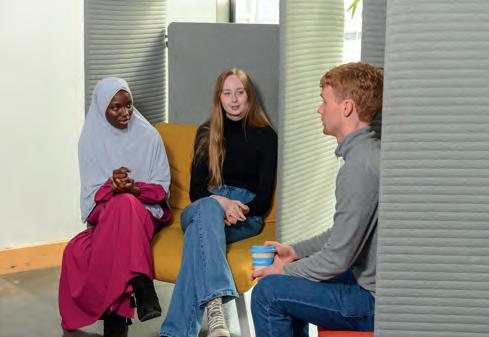
For year 1 entry we look for school-leaving awards that are approximately equivalent to the Irish Leaving Certificate or NFQ Level 5 awards. Acceptable exams are normally State/National exams taken at the end of the upper cycle at second level. For exams from the EU/EFTA please see the guidelines posted on applicant section of the CAO website. Go to Applicant Scoring, then Entry Requirements Criteria for EU/EFTA applicants, www2.cao.ie/downloads/documents/ Guidelines-EU-EFTA.pdf
For Erasmus partners and student please use the following contact details:
(
+353 74 918 6063
+353 91-753161 (Ext: 2253)
+353 71 9137298
+353 71 91 35623
+353 86 0324238 (whats app, mobile)
https://www.atu.ie/international https://www.stangelas.ie/international
International Applicants who are presenting exams from outside the EU/EFTA area as a basis for entry must apply directly to the International office at the relevant ATU campus and not via the CAO. To apply to study in ATU as an exchange or non-EU international student, please see www.atu.ie/international. The relevant contacts are as follows:
Donegal International.donegal@atu.ie +353 74 918 6068
Galway International.galway@atu.ie +353879669196 (WhatsApp, mobile)
Sligo International.sligo@atu.ie +353 91 753161 (Ext: 2349)
St Angela’s international@stangelas.ie +353 71 91 35623 +353 86 0324238 (WhatsApp, mobile)
Information for international applicants: https://www.atu.ie/international https://www.stangelas.ie/international
ATU participates in the HEAR and DARE access schemes that target applicants from groups who are currently under-represented in Higher Education. The schemes facilitate flexibility on points and provide specific post-entry supports for eligible applicants. Please see www.accesscollege.ie for details of these schemes.
Being eligible for HEAR /DARE does not, necessarily, guarantee selection. There is a limited quota of HEAR/ DARE places available. If there are more eligible HEAR/ DARE applicants than there are quota places available, ATU will prioritise applicants who are eligible for both the DARE and HEAR entry routes and who have met all the criteria for the schemes.
The maximum allowance on points for eligible HEAR/ DARE applicants is 50 points below the standard cut-off. However, no applicants will be admitted with fewer than 160 points. Please note that some programmes require Garda vetting and professional fitness to practice policies may apply.
A wide range of supports is available to HEAR/DARE applicants when they start their programme. These are based on needs assessment and may include: dedicated orientation sessions small group tuition and workshops reading/writing/referencing skills maths support library orientation and library skills tuition revision techniques exam preparation special accommodations during exams access to assistive technologies money management skills training peer mentoring
The academic year normally begins in September. The CAO application process begins in the previous November.
The vast majority of first-year applicants, both schoolleavers and mature applicants, must apply via the CAO.
Key deadlines are outlined on the CAO website, www.cao.ie Applications may be submitted online via the same address. However, international applicants presenting exams from outside the EU/EFTA as a basis for entry should apply via our international office and not via CAO.
Ideally you should submit CAO applications by 1st February at 5:00 pm. In most cases, you can submit a late application up to a final deadline of 1 May at 5:00 pm. Restrictions may apply in some cases. It is always safer (and cheaper) to submit your initial CAO application by 1st February.
If you have submitted a CAO application before May 1st you can make changes to that application up until July 1st at 5:00pm. However, it is not usually possible to submit a new application after 1st May.
There are 3 circumstances in which new applicants can submit a CAO application after 1st May:
1. If a new programme is approved after the 1st May deadline.
2. If there are not enough qualified applicants to fill a programme.
3. If you are currently registered in a Higher Education Institution, entered your current programme via the CAO, and now wish to re-apply to begin over in first year, you may apply to CAO between 5th July and 22nd July 22nd at 5:00 pm. Please see the information on Exceptional Late Applications in the CAO handbook if you think this applies to you.
If new programmes are approved after the May 1st deadline or if there are insufficient qualified applicant to fill available places, ATU will post an Available Place notice on the CAO website. If you miss all other deadlines, keep an
eye on the CAO website for these listings. Some Available Place listings can appear as early as July, but most appear from mid-August onward, after round 1 issues.
If you spot an Available Place listing that is of interest, it is important to apply as soon as possible. This is a clearing process, so listings can change or be removed again quite quickly. After Round 1, any available places may be filled by qualified applicants on a first-come, first-served basis.
Changing programme after registration can sometimes be accommodated but not always. Please don’t assume that your request will be facilitated. Changing programmes between Registration and the close of the CAO season, will only be possible if:
1. There are places available on the programme into which you wish to transfer.
2. There are no other qualified CAO applicants already on the waiting list for that programme.
You may be required to re-apply via the CAO Available Places procedure for any such places.
Changing programmes after the CAO closes may sometimes be accommodated but is subject to strict terms and conditions as outlined in ATU’s Internal Transfer Policy.
Qualifying for college entry is a two-phase process:
1. First you must meet certain minimum entry requirements to matriculate and establish your general eligibility. For the majority of programmes, the minimum entry requirements can be accumulated over several sittings of an exam.
2. Next, your grades/points must be sufficiently high to enable you to compete against other qualified applicants for selection. Note that we only move to phase two, calculating points, after you have first achieved minimum entry requirements. While basic matriculation requirements can be amassed over several sitting of an exam, calculation of points is based on the best single sitting of an exam.
Provided you have first matriculated, the higher your grades, the more points you will get and the higher your ranking will be. Highly ranked students have a better chance of getting into the programme they want.
Information on how points are calculated for various types of the exam can be found on the CAO website at http://www.cao.ie/index. php?page=scoring&bb=studentresources
ATU require a minimum of 160 points. However, entry is competitive, so you will likely need more than 160 points, especially for the more sought-after programmes that have a limited intake. The points required for any programme may rise or fall from one year to the next, depending on the level of competition in that particular year. You will find an archive showing the cut-off point for all programmes, for each year, on the CAO website: www.cao.ie/index. php?page=points&bb=studentresources. This archive gives an indication of trends over the recent past and is broadly indicative. However, points from the past do not necessarily predict what will happen in the current or future years.
The competitions for academic and vocational quotas are entirely separate and based on different exams. QQI results will not be added to Leaving Certificate results. Similarly, BTEC results are not added to A-Level results. If you present both academic and vocational awards, the points derived from each will be applied to the relevant competition/ quota only.
The published cut-off shows the points achieved by the last person who qualified for a particular programme in a particular year. The average points in any class group may be considerably higher than the cut-off.
Are vocational awards such as QQI FET Level 5/6 Awards (formerly FETAC) and BTECs acceptable?
Yes.
Yes, quotas apply to those applying on the basis of vocational awards. For some high-demand /low-intake programmes these vocational quotas tend to be very limited, with as few as just one or two places available for those applying on the basis of vocational awards. For other programmes, the vocational quota is more generous and flexible.
Scores based on QQI Level 5 /BTEC or other vocational awards are considered for the vocational quotas only. The main offers for the vocational quota will issue on Round Zero. Those presenting vocational awards who are not offered quota places on Round Zero will remain on the waiting list for quota places. If all the quota places originally offered on Round Zero are not accepted, additional vocational quota offers may be made on subsequent rounds.
Before applicants are placed on the Order of Merit lists, CAO assigned a random number for each programme choice. If there are five applicants with identical points competing for one remaining place, random number selection applies. The place will be offered to the applicant with the highest random number.
Many programmes at ATU involve a placement where students will be required to assume positions of trust. These may include programmes that bring students into contact with vulnerable adults or children or with controlled substances. We are committed to protecting the safety of all. Garda (police) vetting is required for all such programmes.
ATU will use the National Vetting Bureau as part of the assessment process for entry to the relevant programmes. Registration for all programmes that require Garda vetting is temporary until such time as the vetting process has been successfully completed. Individual placement providers may require additional vetting for specific placements. If the vetting procedure cannot be satisfactorily completed before going on placement, or if it raises any issues that have not been satisfactorily addressed, the student will be unable to go on placement or fulfil the requirement of the programme. In such circumstances, the student will be unable to complete registration and they will be required to leave the relevant programme.
Vaccination will be required before students can go on placement for certain programmes. Students unwilling/ unable to accept required vaccinations will not be able to go on a work placement or to complete their programme of study and they will be required to leave the programme.
Physical fitness is required to participate in certain programmes. Students on such programmes must be deemed fit to practice in order to complete registration and undertake the programme. Applicants may be asked to complete a Health Declaration to complete a self-assessment questionnaire and/or undergo testing. Registration is temporary pending the outcome of the required process. Students who do not meet the health requirements and/or the requirements of a fitness to practice procedure may be required to leave the programme.
Recognition of Prior Learning (RPL) is a process whereby evidence of learning (formal, non-formal, or informal) that has taken place prior to enrolment in higher education is recognised and given value. It is a means by which prior learning is formally identified, assessed and acknowledged.
RPL involves awarding the applicant recognition in the form of initial or advanced admission to a programme, credits within a programme, exemption(s) from element(s) of a programme, or a full award. The prior learning can be certified or experiential (non-certified).
Prior Certified Learning is learning that has already been accredited by an awarding body such as Quality and Qualifications Ireland (QQI) or other state-recognised universities, colleges/institutes. Prior certified learning can also include qualifications achieved abroad.
Prior Experiential Learning involves the awarding of credit for learning from experience. Often, this is learning that is unintentional, taking place through life and work experience.
For further information, please contact an RPL Co-Ordinator at the relevant campus:
ATU Donegal: christine.mccabe@atu.ie
ATU Galway: olive.kelly@atu.ie
ATU Sligo: feely.myra@atu.ie
An Próiseas Tairisceana
The vast majority of offers for the first year are issued, via the CAO, around mid-August, after the Irish Leaving Certificate results become available. If all first-round offers are not taken up, further offers may be issued on subsequent rounds in September/October.
At our discretion, we may make limited offers at an earlier date. In general, early offers will only issue where a specific limited quota applies, e.g. to:
Mature applicants who are selected for the mature quota.
QQI FET/BTEC applicants for programmes having a limited vocational quota.
Visa-required overseas nationals who need to make travel and visa arrangements.
This will only be possible if we are in a position to make early decisions, i.e. if:
The application is not based on current year exams, the results of which are still pending at the time of application.
All the results the applicant wishes to have taken into consideration, have reached CAO at least 1 week before the relevant early round.
Please note that we cannot guarantee that any offers will issue before August.
Advanced entry offers are not usually issued until the latter half of July. If all the initial offers are not taken up, further offers may issue later on.
If you receive an offer, you will also receive instruction as to how to accept it, and the deadline that applies. Please follow these instructions carefully. If you don’t respond to an offer correctly or on time, the offer may lapse and the place may be offered to someone on the waiting list.
We advise you to be at the mailing address you provided when applying during the offer period or to ensure you have access to your application account. If for any reason, you are not at this address, you should authorise someone to open your mail and respond on your behalf.
You can only hold one valid acceptance at a time, so you must choose which offer to accept. Should you attempt to accept more than one offer, the last acceptance received by CAO becomes the valid acceptance. Any previous acceptance will lapse and become null and void.
You may choose to accept the later offer or to ignore it. Think carefully before making this decision. If you accept a later offer, the original offer will lapse. Once the original offer lapses, that place may then be offered to another candidate and may no longer be available to you should you change your mind again.
If you change your mind because you have received a later alternative offer, see above.
If you change your mind because you have decided not to go to college, then you have two options
1. Seek to defer entering college until the following year. You will find more information on deferring in the next section.
2. Notify the college that you do not plan to attend. This will enable them to offer the place to someone else as soon as possible. In any case, whether you notify the college or not, if you fail to register as instructed, you will be deemed to have lost interest and the place may be offered to someone else.
If you are offered a place through the CAO and find that you are unable to take it up in the current year, it may be possible to reserve your place until the following year. Please note that deferrals are not automatic.
In general, ATU only agrees to grant deferred entry in the case of certified medical illness or on other similar grave grounds.
If a deferral is not granted you may still take up the place offered in the current year, provided you have left sufficient time to meet acceptance deadlines.
It’s important to apply as soon as possible. Do not accept the offer via the CAO. Instead, immediately contact admissions, formally and in writing requesting a deferral, stating your reasons and including a medical certificate, or other evidence indicating why a deferral should be granted. Written communication (e-mail or letter) must arrive with us at least two days before the reply date shown on your CAO offer notice. Your application should include:
Your name
Your CAO Application number
The code of the programme that you wish to defer
The reason(s) why you are seeking a deferral
A medical certificate, where applicable
If you fail to supply the necessary information it will not be possible to process your application or to reply to you quickly.
Yes.
1. If a deferral is granted it is valid for one year only, and only for the programme deferred.
2. If, for any reason, the deferred programme should be discontinued, the applicant will not, automatically, be entitled to a place on any other programme.
3. Deferred Applicants must formally re-apply for the deferred programme the following year in order to signal continued interest.
Yes. Those holding deferrals sometimes change their minds. If you have a deferral, you must show your continued interest by re-applying, via the CAO, the following year.
The code for the deferred programme must be the only code listed on your reapplication.
If you fail to re-apply you will lose your deferred place. If you list additional codes, we will assume you are no longer certain about the one you deferred and that you have opted to enter a new competition. In this case, you will be treated as a new applicant. You may be re-offered the deferred programme, or you may not, depending on how your new application goes.
If I am granted a deferral do I need to re-apply?
If you have successfully completed a relevant further or higher education programme, to a suitable level, you are eligible to be considered for advanced entry. If your education ended at the second level, you are not eligible for advanced entry.
Standard applicants for advanced entry will have successfully completed a directly related programme at the preceding level on the National Framework of Qualifications. For instance, if you have successfully completed a three-year Level 7 ordinary degree, you may be eligible to enter year four of a related Level 8 honours degree programme.
Non-standard applicants are those presenting foreign qualifications or any qualification other than a directly related award from the Irish National Framework of Qualifications.
You must have successfully completed at least 1 year of a relevant award at Level 6 or higher on the Irish NFQ or equivalent.
Your previous study/qualification must be in a similar area to the programme for which you are applying.
The learning outcomes achieved in the external programme must be similar to the learning outcomes achieved by internal students entering by standard progression from an ATU programme.
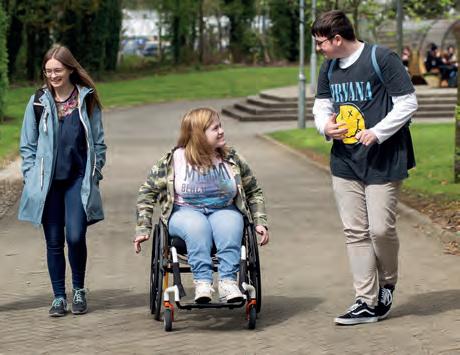

Offers and exemptions, if any, will depend on how well the learning outcomes of the non-standard programme fit with the requirements of the ATU programme to which you are applying. This will be usually assessed from details in the supporting documentation you supply. However, ATU reserves the right to interview or otherwise assess nonstandard applicants if necessary.
Advanced Entry applications should be made directly to the ATU. The Direct Entry contacts for each campus are as follows:
1. ATU Direct Entry Application Form, correctly completed.
2. Certified copies of relevant higher education awards and/or examination transcripts in the original language.
3. For awards that are not on the Irish Framework of Qualifications, submit copies of the syllabus leading to those awards.
4. Notarised translations for any documents that are not in English.
In the absence of appropriate documents and translations, it will not be possible to process an application. We are not responsible for any original certification submitted and do not return documents.
All successful applicants will be notified in writing. For programmes where the academic year begins in September, first-round offers generally issue during July. However, offers may issue at an earlier date if the programme has an earlier start date or if we are in a position to complete an assessment at an earlier point. If all first-round offers are not taken up, there may be further rounds of offers in subsequent months.
You must respond to the offer appropriately and on time. If you fail to do this unfortunately your offer will expire and the place may be offered to someone on the waiting list.
Once you have formally accepted an offer, we will send you details of the arrangements for registration. Registration information updates are also normally posted on our website. If you accept an offer from us keep an eye on the website for updates.
Registration normally takes place during the first or second week of September. If you fail to register as instructed without notifying us, you may lose your place to someone on the waiting list.
We have taken great care in compiling the information contained in this prospectus, which we believe to be accurate at the time of going to print. However, the provision of programmes, facilities, accreditation and other arrangements described in the prospectus are regularly reviewed and may with good reason be subject to change without notice. We recommend that you check the ATU website www.atu.ie for the most up-to-date information before making an application.
Photography by Aengus McMahon, Aidan Haughey, Brad Anderson, Ciaran Mc Hugh, COADY Architects, Conor Doherty, Eric Barry, Islander Visual, James Connolly, Jamie Keaveney, Jessica Priddy, Paul McGuckin, Pink Lime, Sean Mullery, Sligo Tourism and Tadgh Conway.
T: +353 (0)91 753161 (Dublin Road Campus)
T: +353 (0)91 770661 (Wellpark Road Campus)
E: admissions.galwaymayo@atu.ie
T: +353 (0)94 90 25700
E: admissions.galwaymayo@atu.ie
T: +353 (0)91 74 2650
E: admissions.galwaymayo@atu.ie
T: +353 (0)90 96 79205
E: admissions.galwaymayo@atu.ie
T: +353 (0)74 91 86000
E: admissions.donegal@atu.ie
T: +353 (0)74 91 86600
E: admissions.donegal@atu.ie
T: +353 (0)71 91 55222
E: admissions.sligo@atu.ie
T: +353 (0)71 91 43580
E: admissions@stangelas.ie
When will I know if my advanced entry application has been successful?



Is féidir le hiarratas ar an ollscoil a bheith strusmhar agus scáfar. Cuideoidh an t-eolas sa chuid seo leat d’iarratas a dhéanamh i gceart, mar sin b’fhiú duit do chuid ama a thógáil chun é a léamh. Cuir ceist ar do Threoirchomhairleoir maidir le haon rud nach dtuigeann tú, nó déan teagmháil dhíreach linn. Is é an chomhairle is fearr is féidir linn a chur ort ná do chuid roghanna a chur in ord tosaíochta agus an fhoirm CAO á líonadh amach agat. Bí cinnte go bhfuil na cúrsaí a bhfuil an spéis is mó agat iontu ag barr do liosta tosaíochta CAO. Tá na spriocdhátaí CAO leagtha amach sa chuid seo, bí cinnte aird a thabhairt orthu. D’fhéadfá meabhrúchán a chur ar do ghuthán chun deimhin a dhéanamh de nach ndéanfaidh tú dearmad orthu. Sa chás ina cheapfaidh tú go mbeidh tacaíocht airgid de dhíth ort, ba cheart iarratas a dhéanamh a luaithe is féidir. Dá luaithe a chuirfidh tú iarratas isteach, is ea is luaithe go mbeidh a fhios agat an bhfuil tú incháilithe chun deontas a fháil. De ghnáth osclaíonn na hiarratais i mí an Mhárta gach bliain. Is féidir a sheiceáil an bhfuil tú incháilithe ag www.studentfinance.ie agus www.susi.ie.
D’fhéadfadh na rialacha a bhaineann le táillí agus deontais athrú. Breathnaigh ar shuíomhanna gréasáin an Údaráis um Ardoideachais agus SUSI chun teacht ar an eolas is déanaí maidir leis na critéir cháilitheachta a bhaineann le táillí agus deontais. Féach
https://hea.ie/funding-governance-performance/
funding/student-finance/
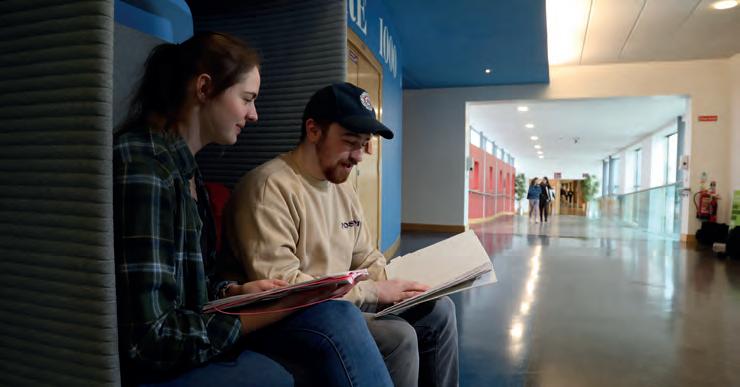
www.susi.ie
Tá tacaíocht ar fáil do mhic léinn ó Thuaisceart Éirinn chun costais a íoc. Déan teagmháil leis an mBord Oideachais agus Leabharlainne i do cheantar nó tabhair cuairt ar na suíomhanna gréasáin thíos do thuilleadh eolais:
www.slc.co.uk nó
www.studentfinanceni.co.uk
Ceithre bhliana ar a mhéad a bhíonn i gceist le maoiniú, de ghnáth. Ní íoctar deontais ach má tá tinreamh, torthaí agus dul chun cinn an mhic léinn sásúil. Mar sin, mura ndéanfaidh tú aon dul chun cinn, agus má bhíonn ort táillí a íoc chun bliain acadúil a athdhéanamh, is iondúil go gcaillfidh tú aon deontas a bhí ar fáil duit roimhe sin. D’fhéadfadh an t-údarás um deontais na rialacha sin a tharscaoileadh i gcásanna eisceachtúla - sa chás ina ndeimhneofar go raibh tinneas tromchúiseach ort, mar shampla.
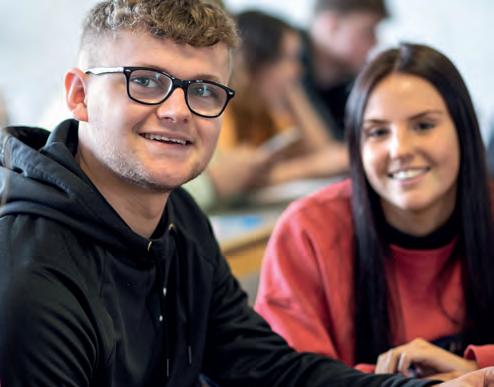
Cuirtear cúrsaí ó Leibhéal 6 go dtí Leibhéal 10 ar an gCreat Náisiúnta Cáilíochtaí ar fáil in Ollscoil Teicneolaíochta an Atlantaigh.
Leibhéal 6 Ardteastas
Leibhéal 7 Gnáthchéim Baitsiléara
Leibhéal 8 Céim Onóracha Baitsiléara
Leibhéal 9 Céim Máistir
Leibhéal 10 Céim Dochtúra
De ghnáth téann iarrthóirí fochéime isteach i mbliain a haon tríd an CAO. Cuireann OTA ‘dréimire deiseanna’ ar fáil. Nuair a bhaineann tú amach dámhachtain ag leibhéal amháin, féadfaidh tú leanúint ar aghaidh go dtí cúrsa gaolmhar ag an gcéad leibhéal eile, in OTA nó in ollscoil eile.
Déantar iarratais ar chúrsaí lánaimseartha céad bliana de chuid OTA, ag leibhéil 6-8, tríd an Lár-Oifig Iontrála (CAO). Is féidir iarratas a dhéanamh i mí na Samhna ar chúrsaí a thosóidh i mí Mheán Fómhair na bliana ina dhiaidh sin. Tá eolas maidir le conas iarratas CAO a dhéanamh ar fáil ag www.cao.ie
Ní mór d’iarrthóirí atá ag cur isteach ar iontráil ag céim chun cinn, i.e. ar bhliain 2 nó níos airde i gcúrsaí fochéime nó i gcúrsaí iarchéime, iarratas díreach a dhéanamh chuig Ollscoil Teicneolaíochta an Atlantaigh. Ní mór go mbeidh creidiúintí ardoideachais leordhóthanacha faighte agat i réimse gaolmhara sula mbeidh tú in ann iarratas a dhéanamh ar iontráil ag céim chun cinn.
Is féidir cur isteach ar suas le fiche cúrsa ar iarratas amháin - deich gcúrsa ag Leibhéal 8 agus deich gcúrsa ag Leibhéal 6/7. Tá sé an-tábhachtach go gcuirfidh tú do chuid roghanna in ord tosaíochta i ngach catagóir, chun go mbeidh seans níos fearr agat an cúrsa atá uait a bhaint amach. Ní bheidh tionchar ag do chuid roghanna ar liosta amháin ar an liosta eile. Is féidir dhá chúrsa éagsúil a thairiscint duit i ngach babhta, ceann ó gach liosta.
5 Samhain ag 12:00 meán lae
Osclaíonn tréimhse iarratais an CAO
20 Eanáir ag 5:00pm Spriocdháta d’Iarratais ar Líne ar Ráta Lascaine
1 Feabhra ag 5:00pm Spriocdháta d’Iarratais agus do Chláir Shrianta
5 Márta ag 5:00pm Osclaíonn an CAO arís d’Iarratais Dhéanacha
1 Bealtaine ag 5:00pm Spriocdháta d’Iarratais Dhéanacha
5 Bealtaine ag 12:00 meán lae - 1 Iúil ag 5:00pm
Tréimhse um Athrú Intinne
Lár mhí Lúnasa Céad bhabhta tairiscintí
1. Ardteistiméireacht na hÉireann
2. Iarrthóirí FETAC agus QQI
3. Iarrthóirí ó thíortha AE/LEE agus ón Ríocht Aontaithe/ Tuaisceart Éirinn
4. Iarrthóirí Lánfhásta
5. Iarrthóirí Idirnáisiúnta ó Lasmuigh den AE/LEE
Braitheann na coinníollacha iontrála ar an gcineál iarrthóra atá ionat agus ar leibhéal an chúrsa a bhfuil tú ag cur isteach air. Tá roinnt coinníollacha iontrála ann a bhaineann le gach cúrsa, nó le cuid mhór díobh. Mar shampla, bíonn Gaeilge nó Béarla riachtanach i gcónaí. Mar aon leis sin, bíonn an mata riachtanach do bheagnach gach cúrsa. Tá liosta de na bunriachtanais iontrála is coitianta ar fáil thíos. Athraíonn na critéir mheasúnaithe a úsáidtear ó chúrsa go cúrsa. Mar sin, moltar duit a bheith airdeallach ar na coinníollacha atá luaite ar an leathanach faoi leith a bhaineann le gach cúrsa. Déan teagmháil leis an Rannóg Iontrálacha má tá aon amhras ort.
1. Ardteistiméireacht na hÉireannBunriachtanais Iontrála
Ardteastas (Leibhéal 6) agus Gnáthchéim (Leibhéal 7)
5 ábhar Ardteistiméireachta ag grád O6/H7 nó níos airde
Ní mór go mbeidh Béarla nó Gaeilge i measc na n-ábhar
Scór 160 pointe ar a laghad
Is ábhar riachtanach é an mhatamaitic an chuid is mó den am. Tá roinnt cúrsaí ann, áfach, nach bhfuil an mata mar bunriachtanas iontrála díobh, agus roinnt cúrsaí eile ann ina mbíonn gá le grád níos airde sa mhata. Tá sé tábhachtach an t-eolas faoi leith a bhaineann le gach cúrsa a léamh.
Céim Onóracha (Leibhéal 8)
6 ábhar Ardteistiméireachta
2 ábhar ar a laghad ag grád H5 nó níos airde Grád O6/H7 ar a laghad i ngach ábhar eile
Ní mór go mbeidh Béarla nó Gaeilge i measc na n-ábhar
Is ábhar riachtanach é an mhatamaitic an chuid is mó den am. Tá roinnt cúrsaí ann, áfach, nach bhfuil an mata mar bunriachtanas iontrála díobh, agus roinnt cúrsaí eile ann ina mbíonn gá le grád níos airde sa mhata. Tá sé tábhachtach an t-eolas faoi leith a bhaineann le gach cúrsa a léamh.
Gráid Ardteistiméireachta agus Pointí atá ag gabháil leo
D’athraigh córas marcála na hArdteistiméireachta in 2017; sa tábla thíos taispeántar na gráid choibhéiseacha dóibh siúd a bhfuil torthaí Ardteistiméireachta ó 2016 nó roimhe sin acu:
O6/H7 OD3 H5 HC3
Tá eolas maidir leis an scála pointí comónta ar fáil ar shuíomh gréasáin an CAO ag http://www.cao.ie/index. php?page=scoring&s=lcepointsgrid.
Tá Áireamhán ar fáil is féidir a úsáid chun pointí a ríomh bunaithe ar thorthaí Ardteistiméireachta le fáil chomh maith ar shuíomh gréasáin an CAO, https://www.cao. ie/?page=points_calc&bb=studentresources
Tá grád Ardteistiméireachta O6/H7 nó níos airde (nó a choibhéis) sa Bhéarla nó sa Ghaeilge ag teastáil do gach cúrsa.
Mura bhfuil an Béarla/an Ghaeilge mar chéad teanga agat beidh cáilíocht aitheanta idirnáisiúnta Bhéarla de dhíth ort freisin, m.sh. IELTS Leibhéal 6 nó cáilíocht den sórt sin. D’fhéadfadh OTA cumas cainte Béarla iarrthóirí a thástáil agus/nó iarradh ar iarrthóirí torthaí ó scrúdú labhartha Béarla a sholáthar. D’fhéadfadh sé nach ligfear d’iarrthóir clárú nó go gcealófar iarratas sa chás nach bhfuiltear ag teacht leis an gcaighdeán iomchuí.
Ní ghlactar le torthaí ón nGaeilge Bhunleibhéal chun na coinníollacha iontrála a chomhlíonadh.
Is ábhar riachtanach é an mata le grád O6/H5 nó F2 ar a laghad an chuid is mó den am. Tá cúrsaí áirithe ann, áfach, nach mbíonn gá leis an mata, agus cúrsaí eile ann (cúrsaí innealtóireachta/ríomhaireachta de ghnáth) nach féidir glacadh le mata bonnleibhéil nó ina mbíonn grád níos airde sa mhata ag teastáil, m.sh. H5 nó níos fearr. Bí cinnte an t-eolas faoi leith a bhaineann le gach cúrsaí a léamh go cúramach agus déan an riachtanas mata atá luaite le gach cúrsa a sheiceáil.
Is féidir an riachtanas mata a chomhlíonadh le mata bonnleibhéil ag grád F2 (80%) nó níos airde an chuid is mó den am, ach ní ghlactar leis an mata bonnleibhéil do gach cúrsa. De ghnáth ní ghlactar leis an mata bonnleibhéil do chúrsaí innealtóireachta. Mar aon leis sin, ní ghlactar leis an mata bonnleibhéil do roinnt cúrsaí ab initio Leibhéal 8. Breathnaigh ar an riachtanas mata atá ag gabháil le gach cúrsa faoi leith.
Seo thíos na pointí atá ag gabháil leis an Mata Bonnleibhéil, sna cásanna ina ghlactar leis:
FI 20 pointe
F2 12 pointe
Tugtar 25 phointe breise do mhic léinn a éiríonn leo grád H6 nó níos airde a fháil sa Mhata Ardleibhéil. Baineann na pointí breise sin le torthaí mata ardleibhéil ó bhlianta eile chomh maith. Do thorthaí sa mhata ardleibhéil ó 2016 agus roimhe sin, is gá go mbeidh grád HD3 nó níos airde ag iarrthóirí le go mbronnfar na pointí breise orthu.
Tá cúrsaí cáilithe mata ag OTA d’iarrthóirí atá incháilithe ach nach bhfuil an riachtanas mata bainte amach acu don chúrsa a bhfuil siad ag cur isteach air. De ghnáth, cuirtear na cúrsaí cáilithe mata ar siúl tar éis do na torthaí Ardteistiméireachta teacht amach. Féach suíomh gréasáin OTA do thuilleadh eolais maidir le dátaí agus suíomhanna na gcúrsaí.
Is féidir pas i gcúrsa cáilithe mata de chuid OTA a úsáid chun na coinníollacha iontrála mata a chomhlíonadh sa chás nár éirigh leat an grád riachtanach a bhaint amach i scrúdú mata na hArdteistiméireachta nó a mhacasamhail. Ní ghlacfar le pas i gcúrsa cáilithe mata chun aon easnamh eile sna riachtanais iontrála a chomhlíonadh. I ngach
cás ní mór d’iarrthóirí gach riachtanas iontrála eile a chomhlíonadh don chúrsa, agus ní mór go mbeidh na pointí cearta acu.
Ní mór go mbeidh mórdámhachtain iomlán ag leibhéal 5 nó níos airde ag iarrthóirí QQI/FETAC. Ní féidir taifead gnóthachtála, miondámhachtain nó páirtdámhachtain a úsáid chun na coinníollacha iontrála a chomhlíonadh. Ní mór go mbeidh ar a laghad 120 creidiúint QQI FET agat le go mbeidh tú incháilithe.
Bíonn riachtanais bhreise i gceist le roinnt cúrsaí. Glactar le haon dámhachtain QQI Leibhéal 5 d’fhormhór na gcúrsaí in Ollscoil Teicneolaíochta an Atlantaigh. Bíonn dámhachtainí áirithe QQI ag teastáil do chúrsaí áirithe, áfach (m.sh. altranas). Do roinnt cúrsaí OTA is gá go mbeidh modúl áirithe déanta agat mar chuid de do dhámhachtain bhreisoideachais – is iondúil go mbíonn gá le modúl mata, nó go mbeidh pas bainte amach agat i mata na hArdteistiméireachta. Do chúrsaí ag Leibhéal 8 is iondúil go mbíonn gá le 3 ghradam, ach bíonn 5 ghradam de dhíth do chúrsaí altranais.
Breathnaigh ar an leathanach dar teideal Iarrthóirí ar shuíomh gréasáin an CAO do liostaí de gach riachtanas QQI/Breisoideachais atá ag gabháil le gach cúrsa de chuid OTA, https://www.cao.ie/index.php?page=fetac_search
Mar aon leis sin, tá na sonraí maidir leis an Scéim Marcála do dhámhachtainí QQI ar fáil ar an leathanach dar teideal Iarrthóirí ar shuíomh gréasáin an CAO, http://www2.cao.ie/fetac/FETAC_scoring.pdf
Tabhair faoi deara nach n-úsáidfear pointí atá bunaithe ar torthaí QQI/FET ach nuair atá na háiteanna atá mar chuid den chuóta gairme á líonadh. Déantar an chuid is mó de na tairiscintí d’áiteanna faoin gcuóta gairme i mBabhta a Náid. Sa chás nach líonfar an cuóta gairme do chúrsa i mBabhta a Náid féadfar tairiscintí breise don chuóta céanna a dhéanamh sna babhtaí eile.
D’fhéadfadh sé go ndéanfar measúnú ar iarrthóirí le dámhachtain QQI ag Leibhéal 6 nó níos airde le haghaidh iontráil ag céim chun cinn, i.e. i mBliain a Dó i gcúrsa gaolmhar. Ní mór iarratas a dhéanamh go díreach chuig OTA más mian leat cur isteach ar iontráil ag céim chun cinn.
Glacfar le haon dámhachtain ag Leibhéal 3 ar chreat na Ríochta Aontaithe le dul isteach i gcúrsa sa chéad bhliain. Gnáthiarrthóirí ón Ríocht Aontaithe/Tuaisceart Éirinn
Is ionann gnáthiarrthóirí agus iarrthóirí a bhfuil meascán de thorthaí GCSE/GCE acu. Seo an chonair iontrála is simplí. Tá cur síos thíos ar na riachtanais iontrála is coitianta, ach is gá breathnú ar na riachtanais faoi leith a bhaineann le gach cúrsa chun gach eolas a fháil.
Bíonn Béarla (nó Gaeilge) ina ábhar riachtanach i gcónaí. Grád C GCSE an grád is ísle a nglactar leis.
Bíonn an Mhatamaitic ina hábhar riachtanach an chuid is mó den am. Sna cásanna sin glactar le grád C GCSE de ghnáth, ach d’fhéadfadh sé go mbeidh grád níos airde ag teastáil do chúrsaí áirithe, go háirithe do chúrsaí innealtóireachta/ríomhaireachta.
Eile - D’fhéadfadh sé go mbeidh riachtanais bhreise ag gabháil le cúrsaí áirithe. Sa chás ina mbíonn ábhair eile ag teastáil, is ionann an grád inghlactha agus Grád C GCSE nó níos airde. Mar shampla,
D’fhéadfadh sé go mbeidh Ealaín riachtanach do roinnt cúrsaí Dearaidh
Bíonn Eolaíocht saotharlainne riachtanach don Altranas agus do roinnt cúrsaí eolaíochta.
Do chúrsaí Leibhéal 6 nó Leibhéal 7 OTA beidh gá le: Cúig ábhar éagsúil GCSE/GCE.
Ní mór go mbeidh ar a laghad A-Leibhéal GCE amháin ag Grád E nó níos airde san áireamh.
Is féidir leis an gceithre ábhar eile teacht ó GCSE (Gráid A-C amháin) nó ó AS (Gráid A-E).
Ní mór go mbeidh Béarla nó Gaeilge i measc na n-ábhar, ag Grád C GCSE nó níos airde.
Sa chás ina mbeidh gá leis an Mata mar ábhar, de ghnáth glactar le grád C GCSE, ach d’fhéadfadh sé go mbeidh grád níos airde ag teastáil do chúrsaí áirithe, go háirithe cúrsaí innealtóireachta/ríomhaireachta.
Sa chás ina mbíonn ábhair eile ag teastáil, is ionann an grád inghlactha agus Grád C GCSE nó níos airde.
Sé ábhar éagsúil GCSE/GCE.
Ní mór go mbeidh ar a laghad dhá A-Leibhéal GCE ag Grád C nó níos airde san áireamh.
Is féidir leis an 4 ábhar eile teacht ó GCSE (Gráid A-C amháin), nó ó A-Leibhéil nó Leibhéil-AF (Gráid A-E).
Is féidir ábhair ón A-Leibhéal Feidhmeach a úsáid chun na bunriachtanais a chomhlíonadh.
Is féidir na bunriachtanais a chomhlíonadh ag baint úsáide as meascán de scrúduithe a rinneadh thar níos mó ná bliain amháin.
D’fhéadfadh sé tarlú nach roghnófar iarrthóir cé go bhfuil na bunriachtanais ar fad comhlíonta aige. Tá an próiseas iontrála iomaíoch agus tá rangú bunaithe ar phointí. Déantar pointí a ríomh bunaithe ar ghráid A-Leibhéil GCE. Dá airde do chuid torthaí GCE, is ea is fearr an seans go roghnófar thú.
Nós imeachta maidir le Dámhachtainí ón Ríocht Aontaithe/Tuaisceart Éireann a scóráil/rangú
Tá dhá chéim sa phróiseas roghnúcháin. I dtosach, ní mór duit máithreánú nó bunriachtanais an chúrsa a chomhlíonadh. Ansin bogfar ar aghaidh go dtí an dara céim, agus déanfar do chuid pointí a ríomh. D’fhéadfaí thú a roghnú bunaithe ar do chuid torthaí GCSE, ach ní bhronntar aon phointí orthu. Tá scóráil láraithe uathoibríoch an CAO bunaithe ar thorthaí A-Leibhéil agus (más infheidhme) Leibhéil-AF.
Féach ar http://www.cao.ie/index.php?page=scoring&s=gce do thuilleadh sonraí maidir leis an nós imeachta scórála.
Eolas tábhachtachDe ghnáth is féidir leis an CAO do chuid torthaí a fháil go díreach ó mBord Scrúduithe, ar an gcoinníoll go bhfuil an t-eolas ceart curtha ar fáil agat maidir le d’ionad scrúdaithe, uimhir scrúdaithe, srl.
Má tá tú ag iarraidh go gcuirfear torthaí GCE/GCSE (nó Dámhachtainí Leibhéal 3 eile ón Ríocht Aontaithe) san áireamh, ní mór duit fianaise a chur ar fáil don CAO. Ba cheart fótachóipeanna creidiúnaithe de na Dámhachtain nó ráiteas torthaí - arna gcur ar fáil ag Bord Scrúduithe - a chur chuig an CAO. Is ionann fótachóip chreidiúnaithe agus fótachóip atá sínithe ag do scoil nó ag nótaire poiblí le deimhniú gur cóip gan athrú ar an mbunchóip é.
Tá sé tábhachtach go gcuirfidh tú aon cháipéisí tacaíochta isteach go tráthúil. De ghnáth, bítear ag súil leis go mbeidh aon cháipéisí tacaíochta faighte ag an CAO laistigh de 10 lá ón am a chuirtear an t-iarratas isteach.
Má chuireann tú cáipéisí isteach déanach ba cheart duit scéala a chur chuig Oifig Iontrálacha OTA chun go mbeifear ar an eolas maidir leis na cáipéisí sin. Ní mór go mbeidh aon cháipéisí tacaíochta faighte ar a laghad seachtain amháin roimh an dáta a gcuirfear amach babhta tairiscintí. Déanfar measúnú ar aon cháipéisí a sheolfar isteach tar éis an spriocdháta sin mar chuid den chéad bhabhta eile, ar an gcoinníoll go bhfuil áiteanna fós ar fáil.
Iarrthóirí neamhchaighdeánacha ón Ríocht Aontaithe/ Tuaisceart Éirinn
Meastar aon dámhachtainí seachas GCE/GCSE a bheith neamhchaighdeánach agus ní chuirtear san áireamh iad i bpróiseáil láraithe uathoibríoch an CAO. Má tá dámhachtainí ón Ríocht Aontaithe seachas GCE/ GCSE le háireamh mar chuid de d’iarratas, ní mór duit cáipéisí tacaíochta a sholáthar. Ba cheart sonraí maidir le dámhachtainí malartacha a chur chuig an CAO (más ag cur isteach ar áit sa chéad bhliain atá tú) nó a chur go díreach chuig OTA (más ag cur isteach ar iontráil ag céim chun cinn atá tú, i.e. iontráil ar bhliain 2, 3, nó 4).
Braitheann cé acu an aithneofar nó nach n-aithneofar dámhachtain neamhchaighdeánach ar leibhéal na dámhachtana ar an gcreat, ar na torthaí foghlama a baineadh amach, agus ar an gcaoi a bhfuil na torthaí foghlama sin ag teacht le riachtanais an chúrsa a bhfuiltear ag cur isteach air.
Breathnóidh OTA ar dámhachtainí ag Leibhéal 3 nó níos airde ar Chreat na Ríochta Aontaithe, amhail dámhachtainí BTEC, AVC, GNVQ, srl.
Ní mór an méid seo a leanas a chur ar fáil i gcás aon dámhachtain neamhchaighdeánach ón Ríocht Aontaithe ag Leibhéal 3 nó níos airde
1. Teastas na Dámhachtana
2. Tras-scríbhinn torthaí - ina thaispeántar na hábhair ar fad a rinneadh agus gach grád a baineadh amach.
3. Cóip den siollabas nó de sceideal an chúrsa ina thaispeántar na módúil a rinneadh, na creidiúintí a bhaineann leo, agus na torthaí foghlamtha.
Ní ghlacfar le haon dámhachtainí ón Ríocht Aontaithe faoi Leibhéal 3 chun máithreánú (seachas GCSE ag Grád C nó níos airde) agus déanfar neamhaird orthu.
Fo-Dioplóma
Dioplóma 90 Creidiúint
Dioplóma Teastas (roimh 2010) Gach Cúrsa L6 /L7/L8, ach d’fhéadfadh sé go mbeidh coinníollacha nó srianta nó cuóta gairme teoranta ag baint le cúrsaí a bhfuil an-tóir orthu
Dioplóma LeathnaitheDioplóma (2010)
Leibhéal 6/7 amháin I gcás cúrsaí áirithe a bhfuil an-tóir orthu, tá líon an-teoranta áiteanna ar fáil do dhaoine a bhfuil dámhachtainí gairme acu, ar nós BTEC nó Dámhachtainí
QQI Leibhéal 5 ó Phoblacht na hÉireann
D*D*D* 390
D*D*D 371 D*DD 351 DDD 332 DDM 293 DMM D*D* 254 D*D 234 MMM DD 215 D*D* 185 MMP DM D*D 176 DD 156
MPP MM DM 137 D* 117
PPP MP MM D 98 MP 78 PP M 59
Do BTEC a baineadh amach roimh 2010, is é Teastas Náisiúnta an dámhachtain is ísle a nglacfar leis. Déantar gach modúl a scóráil mar a leanas: pas 1, pas le tuillteanas 2, pas le gradam 3. Déantar an scór iomlán a ríomh ansin ag baint úsáide as an bhfoirmle seo a leanas: (suim na scór/líon na modúl x 3) x 390.
Nóta maidir le cúrsaí a bhfuil an-tóir orthu
Is conair éagsúla iad an chonair iontrála acadúil agus an chonair iontrála ghairme. Ní féidir torthaí BTEC a chur le torthaí A-Leibhéil, ar an gcaoi chéanna nach féidir torthaí Ardteistiméireachta a chur le torthaí QQI FET. Sa chás ina mbeidh cuóta gairme srianta i gceist, déantar torthaí
ó dhámhachtainí gairme ar nós BTEC/QQI FET a mheas den chéad uair i mBabhta a Náid. Nuair a líonfar an cuóta gairme ní bheidh feidhm ag scóir BTEC níos mó agus ní dhéanfar iad a mheas d’áiteanna nach mbaineann leis an gcuóta. Sa chás ina mbeidh níos mó iarrthóirí BTEC/ QQI FET ná mar atá áiteanna ar fáil sa chuóta, is iondúil go roghnófar iarrthóirí go randamach chun na háiteanna deiridh a líonadh. Féach ar lámhleabhar an CAO do thuilleadh eolais maidir leis an Roghnú Randamach.
Dioplóma LeathnaitheDioplóma Dioplóma 90 Creidiúint Fo-DioplómaPointí Scóráil BTEC Teideal na Dámhachtana BTEC Teideal na Dámhachtana BTEC Go ginearálta, is féidir máithreánú do BTEC - MáithreánúIs conair éagsúla iad an chonair iontrála acadúil agus an chonair iontrála ghairme. Ní féidir torthaí BTEC a chur le torthaí A-Leibhéil, ar an gcaoi chéanna nach féidir torthaí Ardteistiméireachta a chur le torthaí QQI FET. Sa chás ina mbeidh cuóta gairme srianta i gceist, déantar torthaí ó dhámhachtainí gairme ar nós BTEC/QQI FET a mheas den chéad uair i mBabhta a Náid. Nuair a líonfar an cuóta gairme ní bheidh feidhm ag scóir BTEC níos mó agus ní dhéanfar iad a mheas d’áiteanna nach mbaineann leis an gcuóta. Sa chás ina mbeidh níos mó iarrthóirí BTEC/ QQI FET ná mar atá áiteanna ar fáil sa chuóta, is iondúil go roghnófar iarrthóirí go randamach chun na háiteanna deiridh a líonadh. Féach ar lámhleabhar an CAO do thuilleadh eolais maidir leis an Roghnú Randamach.
Déan cinnte go bhfuil d’ainm agus d’uimhir CAO le feiceáil go soiléir ar aon cháipéisí a sheolann tú chuig an CAO. Cuireann OTA tús le hiarratais neamhchaighdeánacha a mheas go luath agus déanfar na hiarratais chéanna a mheas bunaithe ar an bhfianaise atá ar fáil. D’fhéadfadh sé go ndícháileofar thú sa chás nach mbeidh cáipéisí tacaíochta curtha isteach agat go tráthúil, i.e. laistigh den tréimhse 10 lá a leagtar amach i rialacha an CAO. De ghnáth ní dhéanfar d’iarratas a mheasúnú faoi dhó. Mar sin, tá sé tábhachtach go ndéanfaidh tú teagmháil dhíreach le OTA sa chás ina gcuirfidh tú cáipéisí tacaíochta isteach tar éis don tréimhse 10 lá dul in éag. D’fhéadfadh sé go ndéanfar neamhaird ar cháipéisí déanacha sa chás nach ndéanfaidh tú an méid sin. Sa chás ina bhfuil spéis agat i gcúrsa a bhfuil an-tóir air, déan cinnte go mbeidh gach toradh agus cáipéis ábhartha faighte ag an CAO go tráthúil roimh an mbabhta cuí. Ní féidir linn measúnú a dhéanamh ar thorthaí nach mbeidh faighte againn ar a laghad seachtain roimh an dáta a dtiocfaidh na tairiscintí amach. Tiocfaidh an chuid is mó de na tairiscintí a bhaineann leis an gcuóta gairme amach i mBabhta a Náid, lena n-áirítear tairiscintí bunaithe ar BTEC. Tagann tairiscintí Bhabhta a Náid amach sa chéad seachtain de mhí Lúnasa de ghnáth. Mar sin, ní mór go gcuirfidh iarrthóirí ar mhaith leo a bheith san áireamh i mBabhta a Náid a gcuid torthaí ar fáil dúinn faoi mhí Iúil. Nuair a líonfar an cuóta gairme i mBabhta a Náid, ní dhéanfar aon tairiscintí gairme eile ina dhiaidh sin. Sa chás nach líonfar an cuóta gairme i mBabhta a Náid, d’fhéadfaí tairiscintí eile a dhéanamh sna babhtaí ina dhiaidh sin.
De ghnáth déanfaidh OTA iarrthóirí a mheas bunaithe ar an gcáipéisíocht a chuirfear ar fáil, ach tá sé de cheart ag OTA iarrthóirí a chur faoi agallamh nó iarratais neamhchaighdeánacha a mheas ar bhealach eile má mheasfar go mbeidh gá leis sin.
Iontráil Ag Céim Chun Cinn, ADN agus dámhachtainí leibhéal 4 ón Ríocht Aontaithe D’fhéadfadh sé go ndéanfar measúnú ar iarrthóirí le dámhachtain ag Leibhéal 4 nó níos airde ar chreat na Ríochta Aontaithe le haghaidh Iontráil Ag Céim Chun Cinn i réimse gaolmhar. Ba cheart d’iarrthóirí ar Iontráil Ag Céim Chun Cinn iarratas a chur go díreach chuig OTA, agus ní chuig an CAO.
Cuir chugainn d’iarratas comhlánaithe ar OTA ina bhfuil sonraí maidir le do shiollabas ag Leibhéal 4 - m.sh. Ard-Dioplóma Náisiúnta (ADN) nó eile – agus do chuid torthaí.
Braitheann cé acu an mbeimid nó nach mbeimid in ann áit a thabhairt d’iarrthóir ar iontráil ag céim chun cinn ar roinnt tosca:
An spás atá ar fáil sa ghrúpa lena bhaineann an t-iarratas
An teacht le chéile idir na torthaí foghlama atá bainte amach agat go dtí seo agus an cúrsa a bhfuil tú ag cur isteach air
An mbeidh nó nach mbeidh tú in ann aon easnamh nó aon rud ar chaill tú amach air a dhéanamh suas nó a chomhlíonadh, lena n-áirítear aon riachtanas a bhaineann le socrúcháin oibre, srl.
Tá gach cás éagsúil. Tagann na céad tairiscintí don iontráil ag céim chun cinn amach ag deireadh mhí Iúil, de ghnáth. Tarlaíonn sé uaireanta áfach go mbíonn orainn fanacht go dtí go mbíonn torthaí scrúduithe an fhómhair tagtha amach chun ceisteanna a bhaineann le háiteanna a réiteach, agus d’fhéadfadh sé nach dtiocfaidh na tairiscintí sin amach go dtí mí Mheán Fómhair.
Toisc nach féidir gealladh go mbronnfar iontráil ag céim chun cinn, is minic go gcinneann iarrthóirí iarratas CAO a dhéanamh ar an gcéad bhliain freisin, mar dara rogha. Tá an méid sin ceadaithe. Is cuma má tá iarratas á dhéanamh agat go díreach chuig OTA agus/nó tríd an CAO, tá sé tábhachtach go gcuirfidh tú na cáipéisí tacaíochta ar fad ar fáil.
Má tá iarratas á dhéanamh agat ar an gcead bhliain agus má tá tú 23 bliain d’aois (nó níos sine) ar an 1 Eanáir i mbliain na hiontrála, is “Iarrthóir Lánfhásta” thú.
Tá. D’fhéadfadh sé nach mbainfidh na gnáthchoinníollacha iontrála le hiarrthóirí lánfhásta. Cuirtear líon áirithe áiteanna ar fáil go speisialta d’iarrthóirí lánfhásta ar gach cúrsa céad bliana.
Ní gá go mbeidh. Cinneann an cuid is mó d’iarrthóirí lánfhásta tosú amach i mBliain a hAon ar bhonn lánaimseartha, go háirithe na daoine sin nach ndearna oideachas tríú leibhéal le roinnt blianta anuas agus/nó atá ag tosú amach ag staidéar i réimse nua. Más mian leat an méid sin a dhéanamh ba cheart duit iarratas a dhéanamh ar an gcéad bhliain tríd an CAO, féach www.cao.ie
Céard iad na díolúintí a bheadh ar fáil dom?
D’fhéadfadh sé go mbeidh roinnt díolúintí ar fáil duit sa chás ina bhfuil ardoideachas deimhnithe/creidiúnaithe de chineál éigin bainte amach agat cheana féin a mbaineann leis an gcúrsa bhfuil tú ag déanamh iarratais air. D’fhéadfadh sé go mbeidh tú incháilithe don Iontráil Ag Céim Chun Cinn má tá bliain amháin ardoideachais ar a laghad críochnaithe agat cheana i gcúrsa atá gaolta leis an gceann a bhfuil tú ag cur isteach air. Ní mór iarratas a dhéanamh go díreach le OTA más mian leat cur isteach ar iontráil ag céim chun cinn.
Conas is féidir liom iarratas a dhéanamh ar an gcéad bhliain mar Iarrthóir Lánfhásta tríd an CAO?
Is féidir iarratas a dhéanamh ar líne, www.cao.ie, nó is féidir iarratas páipéir a dhéanamh. Moltar iarratas ar líne a dhéanamh, toisc go bhfuil sé níos saoire, níos tapúla, agus go bhfuil seans níos lú ann go mbeidh botún ann i d’iarratas.
Tá feidhm ag na gnáth-spriocdhátaí CAO d’iarrthóirí lánfhásta atá ag cur isteach ar an gcéad bhliain tríd an CAO. Is fearr iarratas a dhéanamh roimh an 1 Feabhra ag 5:00pm. Is féidir iarratais dhéanacha a dhéanamh ar chuid mhór cúrsaí suas leis an 1 Bealtaine ag 5:00pm. Tabhair faoi deara, áfach,
go mbeidh táille níos airde i gceist le hiarratais a dhéanamh tar éis an 1 Feabhra
ní féidir iarratas déanach a dhéanamh ar chúrsaí atá marcáilte mar “Srianta” i lámhleabhar an CAO.
Conas a dhéantar measúnú ar Iarrthóirí Lánfhásta?
Athraíonn na critéir mheasúnaithe a úsáidtear ó chúrsa go cúrsa. In go leor cásanna, déanfar iarrthóirí lánfhásta a roghnú go randamach chun an cuóta a líonadh. Do chúrsaí eile is féidir iarrthóirí lánfhásta a mheas bunaithe ar an ráiteas pearsanta a cuireadh ar fáil mar chuid den iarratas CAO, agus/nó tabharfar cuireadh chun agallaimh dóibh. I gcás iarrthóirí lánfhásta atá ag cur isteach ar altranas, déanfar iad a roghnú bunaithe ar thástáil seachtrach eagraithe ag an mBord Altranais. Moltar breathnú ar an eolas faoi leith atá ag gabháil le gach cúrsa. Iarrthóirí Lánfhásta a bhfuil Torthaí Scrúdaithe Incháilithe acu
Is féidir le hiarrthóirí a bhfuil torthaí Ardteistiméireachta nó aon cháilíocht eile acu cur isteach ar na háiteanna nach bhfuil mar chuid den chuóta, bunaithe ar a gcuid cáilíochtaí. Má tá torthaí scrúdaithe incháilithe agat, amhail torthaí Ardteistiméireachta, dámhachtainí QQI Leibhéal 5, GCE, srl., is fiú i gcónaí iad a chuir san áireamh le d’iarratas CAO agus cóipeanna de na torthaí céanna a chur isteach chuig an CAO - is cuma más seantorthaí atá i gceist.
Féach an lámhleabhar Nursing, a Career for You nó tabhair cuairt ar shuíomh gréasáin an NMBI (https://www.nmbi. ie/ Careers-in-Nursing-Midwifery/How-to-apply/MatureApplicants) do thuilleadh sonraí maidir leis an tástáil.
Do chúrsaí ina n-úsáidtear roghnú randamach chun an cuóta a líonadh ní mór do chuid roghanna a líonadh isteach roimh an 1 Bealtaine ag 5:00pm. Ní chuirfear roghanna Athrú Intinne (Change of Mind) a dhéantar tar éis an 1 Bealtaine san áireamh mar chuid den roghnú randamach.
Moltar d’iarrthóirí iarratas a dhéanamh roimh an 1 Feabhra chun go mbeifear in ann na hiarratais a mheas go luath. Breathnófar ar Iarratais Dhéanacha agus Iarratais ar Áiteanna Atá Ar Fáil mar chuid den phróiseas seo má tá áiteanna faoin gcuóta lánfhásta ar fáil go fóill.
Is féidir le hiarrthóirí lánfhásta a bhfuil torthaí incháilithe scoile acu cur isteach ar chomórtas éagsúil i mBabhta a hAon agus sna babhtaí ina dhiaidh sin. Féadfaidh siad iarratas a dhéanamh roimh an 1 Bealtaine ag 5:00pm agus féadfaidh siad a gcuid roghanna a athrú roimh an 1 Iúil ag 5:00pm. Tá tairiscintí i mBabhta a hAon agus sna babhtaí ina dhiaidh sin iomaíoch agus tá siad bunaithe ar phointí ó thorthaí incháilithe scoile amháin. Tá sé tábhachtach go gcuirfidh tú cóipeanna d’aon torthaí a bhfuil tú ag iarraidh a chur san áireamh le d’iarratas, ar nós torthaí Ardteistiméireachta, cáilíochtaí QQI Leibhéal 5, GCE, agus mar sin de.
Déanfar na céad tairiscintí d’iarrthóirí lánfhásta i mBabhta a hAon ag tús mhí Iúil. Tá roinnt babhtaí ann ina seolfar tairiscintí amach. Mura líonfar an cuóta d’iarrthóirí lánfhásta i mbabhta amháin, déanfar tuilleadh tairiscintí sna babhtaí ina dhiaidh sin go dtí go mbeidh gach áit ar an gcuóta/ar an gcúrsa lán.
Mura bhfuair tú tairiscint tar éis Babhta a hAon, feadfaidh tú teagmháil a dhéanamh leis an Oifig Iontrála le seiceáil an bhfuil tú ar an liosta feithimh.
Ollscoil ilchultúrtha is ea Ollscoil Teicneolaíochta an Atlantaigh, agus tá mic léinn ó níos mó ná 90 tír againn. Tá OTA páirteach sa chlár Erasmus+ le níos mó ná 25 bliain anuas. Tagann formhór na mac léinn Erasmus chugainn ón nGearmáin, an Fhrainc, an Spáinn agus an Ostair. Tagann an chuid is mó dár mic léinn idirnáisiúnta chugainn ón India, an Mhalaeisia, an Óman, Stáit Aontaithe Mheiriceá, Ceanada agus ón tSín.


D’iontráil isteach sa chéad bhliain lorgaíonn muid torthaí scoile atá ag teacht a bheag nó mór leis an Ardteistiméireacht nó le Cáilíochtaí NFQ Leibhéal 5. De ghnáth glactar le scrúduithe stáit/náisiúnta a dhéantar ag deireadh scolaíocht an dara leibhéal. Do thuilleadh eolais maidir le scrúduithe ón AE/LSE féach na treoirlínte ar shuíomh gréasáin an CAO. http://www2.cao.ie/ downloads/documents/Guidelines-EU-EFTA.pdf
Iarrtar ar mhic léinn Erasmus úsáid a bhaint as na sonraí teagmhála seo a leanas:
74 918 6063
91-753161 (Folíne: 2253)
+353 71 9137298
+353 71 91 35623
+353 86 0324238 (whats app, guthán)
https://www.atu.ie/international https://www.stangelas.ie/international
Ní mór d’iarrthóirí idirnáisiúnta a bhfuil scrúduithe acu ó lasmuigh den AE/LSE iarratas a dhéanamh go díreach chuig an Oifig Idirnáisiúnta ag an gcampas OTA cuí, agus ní go díreach tríd an CAO. Chun iarratas a dhéanamh ar OTA mar mhac léinn malairte nó mar mhac léinn idirnáisiúnta neamh-AE, féach www.atu.ie/international. Seo thíos na sonraí teagmhála ábhartha:
Fón ( +353 cód na hÉireann)
Dún na nGall International.donegal@atu.ie +353 74 918 6068 +353879669196 (WhatsApp, guthán)
Gaillimh International.galway@atu.ie
Sligeach internatinal.sligo@atu.ie +353 91 753161 (Folíne: 2349)
Coláiste San Aingeal international@stangelas.ie +353 71 91 35623 +353 86 0324238 (WhatsApp, guthán)
Eolas d’iarrthóirí idirnáisiúnta https://www.atu.ie/international https://www.stangelas.ie/international
Tá OTA páirteach sna scéimeanna HEAR agus DEAR, atá dírithe ar iarrthóirí ó ghrúpa a bhfuil tearcionadaíocht acu san Ardoideachas. Bíonn solúbthacht pointí ann d’iarrthóirí incháilithe agus cuirtear tacaíochtaí iar-iontrála faoi leith ar fáil dóibh chomh maith. Féach ar www.accesscollege.ie do thuilleadh sonraí maidir leis na scéimeanna.
Níl gá go roghnófar iarrthóirí atá incháilithe don scéim HEAR/DEAR. Tá cuóta teoranta áiteanna HEAR/DARE ar fáil. Sa chás ina mbeidh níos mó iarrthóirí HEAR/DARE ná mar atá áiteanna ar fáil sa chuóta tabharfaidh OTA tús áite d’iarrthóirí atá incháilithe do na scéimeanna DARE agus HEAR araon agus a gcomhlíonann gach critéar do na scéimeanna.
Tabharfar díolúine d’iarrthóirí incháilithe HEAR/DARE go suas le 50 pointe faoi bhun gnáthmhéid na bpointí. Ní ghlactar le hiarrthóirí a bhfuil níos lú ná 160 pointe acu, áfach. D’fhéadfadh sé freisin go mbeidh feidhm ag grinnfhiosrúchán an Gharda agus ag polasaithe um fheidhmiúlacht chun cleachtadh i gcás roinnt cúrsaí.
Tá réimse leathan tacaíochtaí iar-iontrála ar fáil d’iarrthóirí HEAR/DARE. Tá na tacaíochtaí sin bunaithe ar mheasúnú ar riachtanais, agus tá roinnt samplaí de na tacaíochtaí atá ann le feiceáil thíos
seisiúin thiomnaithe tionscnaimh teagasc i ngrúpaí beaga agus ceardlanna scileanna léitheoireachta/scríbhneoireachta/tagartha tacaíochtaí mata seisiúin tionscnaimh leabharlainne agus teagasc maidir le scileanna leabharlainne modhanna athbhreithnithe ullmhúchán do scrúduithe socruithe speisialta le linn scrúduithe rochtain ar theicneolaíocht oiriúnaitheach oiliúint i scileanna bainistíochta airgid piarmheantóireacht
Cathain is féidir liom tosú?
Tosaíonn an bhliain acadúil i mí Mheán Fhómhair de ghnáth. Tosaíonn an próiseas iarratais CAO i mí na Samhna na bliana roimhe sin.
Conas is féidir liom iarratas a dhéanamh ar an gcéad bhliain?
An chuid is mó den am ní mór d’iarrthóirí, iarrthóirí atá ag fágáil na scoile agus iarrthóirí lánfhásta araon, iarratas a chur isteach tríd an CAO.
Tá na spriocdhátaí tábhachtacha le feiceáil ar shuíomh gréasáin an CAO www.cao.ie agus is féidir iarratais ar líne a dhéanamh ar an suíomh gréasáin céanna. Ba cheart d’iarrthóirí idirnáisiúnta a bhfuil scrúduithe acu ó lasmuigh den AE/LSE iarratas a dhéanamh go díreach chuig an Oifig Idirnáisiúnta in OTA, in áit iarratas a dhéanamh tríd an CAO.
Céard a tharlóidh má chaillfidh mé spriocdháta an CAO?
B’fhearr duit d’iarratas CAO a chur isteach roimh an 1 Feabhra ag 5:00pm. An chuid is mó den am is féidir iarratas déanach a chur isteach roimh an 1 Bealtaine ag 5:00pm. D’fhéadfadh sé go mbeidh srianta i gceist i roinnt cásanna. Bíonn sé níos sábháilte (agus níos saoire) do chéad iarratas CAO a chur isteach roimh an 1 Feabhra.
An féidir liom iarratas CAO a dhéanamh tar éis an 1 Bealtaine?
Má tá iarratas CAO déanta agat roimh an 1 Bealtaine is féidir leat athruithe a dhéanamh ar an iarratas sin go dtí an 1 Iúil ag 5:00pm. De ghnáth ní féidir iarratas nua a dhéanamh tar éis an 1 Bealtaine, áfach.
Tá 3 chás ann inar féidir le hiarrthóirí nua iarratas CAO a dhéanamh tar éis an 1 Bealtaine:
1. Má thugtar cead cúrsa nua a chur ar bun tar éis an spriocdháta ar an 1 Bealtaine.
2. Mura bhfuil go leor iarrthóirí ann chun na háiteanna ar fad ar chúrsa a líonadh.
3. Má tá tú cláraithe in Institiúid Ardoideachais, má thosaigh tú i do chúrsa reatha tríd an CAO, agus más maith leat anois iarratas eile a dhéanamh chun tosú sa chéad bhliain arís, féadfaidh tú iarratas a dhéanamh tríd an CAO idir an 5 Iúil agus an 22 Iúil ag 5:00pm. Féach ar an eolas maidir le Iarratais Dhéanacha Eisceachtúla i lámhleabhar an CAO má bhaineann an méid sin leat.
Má thosóidh cúrsaí nua tar éis an spriocdháta ar an 1 Bealtaine nó mura mbeidh go leor iarrthóirí incháilithe ar fáil chun na háiteanna a líonadh, cuirfidh OTA fógra maidir le hÁiteanna Atá Ar Fáil (Available Places) in airde ar shuíomh gréasáin an CAO. Má chaileann tú amach ar gach spriocdháta eile, b’fhiú súil a choinneáil ar shuíomh gréasáin an CAO don liosta sin. Uaireanta bíonn fógraí maidir le hÁiteanna Atá Ar Fáil le feiceáil i mí Iúil, ach de ghnáth tagann siad amach ó lár mhí Lúnasa ar aghaidh, tar éis an chéad bhabhta.
Má tá spéis agat i bhfógra maidir le hÁiteanna Atá Ar Fáil, tá sé tábhachtach iarratas a dhéanamh a luaithe is féidir, gan mhoill. Próiseas imréitigh atá i gceist agus d’fhéadfadh sé go mbainfear nó go n-athrófar na fógraí go tapa. Tar éis Bhabhta a hAon is féidir Áiteanna Atá Ar Fáil a thabhairt d’iarrthóirí incháilithe ar bhonn “tiocfaidh do sheal mar a thiocfaidh tú féin”.
An féidir liom mo chúrsa a athrú tar éis dom clárú? Uaireanta is féidir athrú go cúrsa eile tar éis duit clárú, ach ní dhéantar an méid sin i gcónaí. Ná déan talamh slán de go nglacfar le d’iarratas. Tá seans ann go mbeidh tú in ann athrú go cúrsa eile tar éis duit clárú agus sula mbeidh an spriocdháta deireanach don CAO tagtha, ag brath ar na coinníollacha seo thíos:
1. Má tá áiteanna ar fáil ar an gcúrsa a bhfuil tú ag iarraidh aistriú isteach ann.
2. Mura mbeidh aon iarrthóirí incháilithe CAO ar an liosta feithimh don chúrsa céanna.
D’fhéadfadh sé go mbeidh ort athiarratas a dhéanamh ar Áiteanna Atá Ar Fáil tríd an CAO le cur isteach ar áit den chineál sin.
Uaireanta tugtar cead d’iarrthóirí athrú go cúrsa eile nuair atá an CAO dúnta, ach tá an méid sin faoi réir téarmaí agus coinníollacha dochta mar a leagtar amach iad i bPolasaí OTA maidir le hAistrithe Inmheánacha.
Cad é an córas pointí?
Tá dhá chéim i gceist le cáiliú le dul isteach san ollscoil.
1. I dtosach, ní mór duit bunriachtanais iontrála a bhaint amach chun máithreánú agus chun leagan amach go bhfuil tú incháilithe. An chuid is mó den am is féidir na bunriachtanais iontrála a bhaint amach fiú má rinneadh an scrúdú céanna níos mó ná uair amháin.
2. Ina dhiaidh sin, ní mór go mbeidh do chuid grád/pointí ard go leor chun go mbeidh tú in ann dul san iomaíocht le hiarrthóirí incháilithe eile. Tabhair faoi deara nach mbogfar ar aghaidh go dtí an dara céim sin, ina ríomhtar do chuid pointí, ach amháin sa chás ina mbeidh na bunriachtanais iontrála bainte amach agat. Cé gur féidir bunriachtanais iontrála a bhaint amach tríd an scrúdú céanna a dhéanamh níos mó ná uair amháin, déantar pointí a ríomh bunaithe ar an toradh is fearr a baineadh amach i scrúdú.
Má tá na bunriachtanais comhlíonta agat, bronnfar níos mó pointí ar ghráid níos airde, agus beidh rangú níos airde agat dá bharr. Tá seans níos fearr ag iarrthóirí a bhfuil rangú níos airde acu áit a fháil ar an gcúrsa a bhfuil siad ag cur isteach air.
Conas a dhéantar líon iomlán na bpointí a ríomh?
Tá eolas maidir leis an gcaoi a ndéantar pointí a ríomh do chineálacha éagsúla scrúduithe ar fáil ar shuíomh gréasáin an CAO ag http://www.cao.ie/index.
php?page=scoring&bb=studentresources
Tá ar a laghad 160 pointe ag teastáil le hiarratas a dhéanamh ar OTA. Tá iomaíocht i gceist le hiontráil, áfach, agus mar sin is dócha go mbeidh níos mó ná 160 pointe de dhíth ort, go háirithe i gcás cúrsaí a bhfuil an-tóir orthu agus nach bhfuil ach líon teoranta áiteanna orthu. D’fhéadfadh na pointí atá ag teastáil do chúrsa faoi leith dul in airde nó titim ó bhliain go bliain, ag brath ar an éileamh atá ar an gcúrsa áirithe sin an bhliain sin. Is féidir teacht ar chartlann ina thaispeántar na pointí do gach cúrsa do gach bliain ar shuíomh gréasáin an CAO: www.cao.ie/index. php?page=points&bb=studentresources. Tugann an cartlann léargas ar na treochtaí le déanaí. Ní gá go mbeidh na pointí a bheidh de dhíth an bhliain seo nó amach anseo ag teacht leis na pointí a bhí ag teastáil roimhe seo, áfach.
An féidir cineálacha éagsúla dámhachtainí a chur le chéile chun pointí a ríomh?
Is comórtais iomlán éagsúla iad na cuótaí acadúla agus gairme agus tá siad bunaithe ar scrúduithe éagsúla. Ní chuirfear torthaí QQI le torthaí Ardteistiméireachta. Ar an gcaoi chéanna, ní chuirfear torthaí BTEC le torthaí A-Leibhéil. Sa chás ina mbeidh torthaí ó dhámhachtainí acadúla agus gairme éagsúla agat, ní chuirfear na pointí atá ag gabháil leo ach leis an gcomórtas/cuóta lena mbaineann siad.
Cén tábhacht a bhaineann leis na pointí íosta?
Is ionann na pointí íosta a fhoilsítear agus na pointí a fuair an duine deireanach a cháiligh do chúrsa faoi leith an bhliain roimhe sin. D’fhéadfadh sé go mbeidh meánluach na bpointí a bhfuarthas i ngrúpa ranga i bhfad níos airde ná na pointí íosta
An nglactar le dámhachtainí gairme ar nós QQI FET Leibhéal 5/6 (ar a dtugtaí FETAC roimhe seo) agus BTEC?
Glactar
An bhfuil cuótaí ann do dhámhachtainí gairme? Tá, bíonn cuótaí i gceist d’iarrthóirí atá ag déanamh iarratais bunaithe ar dhámhachtainí gairme. I gcás cúrsaí áirithe a bhfuil an-tóir orthu nó nach bhfuil ach líon teoranta áiteanna ar fáil orthu, is minic go mbíonn na cuótaí gairme sin an-teoranta, agus d’fhéadfadh sé nach mbeadh ach áit nó dhó ar fáil do dhaoine a bhfuil dámhachtainí gairme acu. Do chúrsaí eile bíonn níos mó áiteanna agus solúbthacht i gceist leis an gcuóta gairme.
Ní chuirtear ach torthaí ó QQI Leibhéal 5/BTEC nó dámhachtainí gairme eile san áireamh do na cuóta gairme. Tagann an chuid is mó de na tairiscintí d’áiteanna sa chuóta gairme amach i mBabhta a Náid. Cuirfear iarrthóirí nach éiríonn leo áit a bhaint amach mar chuid den chuóta gairme i mBabhta a Náid ar an liosta feithimh. Mura nglacfar leis na tairiscintí ar fad a rinneadh don chuóta gairme i mBabhta a Náid is féidir tuilleadh tairiscintí a thabhairt mar chuid den chuóta gairme sna babhtaí ina dhiaidh sin.
Sula ndéantar Modh Fiúntais na n-iarrthóirí a ríomh, tugann an CAO uimhir randamach do gach cúrsa atá roghnaithe. Má tá cúig iarrthóir a bhfuil an méid céanna pointí acu ag iarraidh an áit dheireanach a bhaint amach, úsáidfear an roghnú randamach. Tabharfar an áit don iarrthóir leis an uimhir randamach is airde.
Tá go leor cúrsaí ann i OTA ina n-iarrtar ar mhic léinn dul i mbun róil iontaoibhe. Is éard a bhíonn i gceist ansin ná cúrsaí ina mbíonn teagmháil ag mic léinn le daoine fásta leochaileacha, le leanaí nó le substaintí rialaithe. Tá muid tiomanta d’ardleibhéal sábháilteachta a chinntiú do chách. Tá grinnfhiosrúchán an Gharda (na bpóilíní) riachtanach do chúrsaí den chineál sin.
Bainfidh OTA úsáid as an mBiúró Náisiúnta Grinnfhiosrúcháin mar chuid den phróiseas iontrála do na cúrsaí lena mbaineann. Clárú sealadach atá i gceist le gach cúrsa den chineál sin go dtí go mbeidh grinnfhiosrúchán an Gharda críochnaithe go hiomlán. D’fhéadfadh sé go mbeidh riachtanas maidir le grinnfhiosrúchán an Gharda i gceist le socrúcháin oibre faoi leith. Mura mbeifear in ann an próiseas grinnfhiosrúcháin a chríochnú roimh thosú ar shocrúchán oibre, nó má thagann aon nithe chun cinn nár tugadh aghaidh orthu, ní bheidh an mac léinn in ann dul ar shocrúchán oibre nó riachtanais an chúrsa a chomhlíonadh. I gcásanna den chineál sin ní bheidh an mac léinn in ann clárú i gceart agus beidh orthu an cúrsa a fhágáil.
Beidh gá le vacsaíniú sula mbeidh mic léinn in ann dul ar shocrúchán oibre i gcúrsaí áirithe. Mura mbeidh mic léinn sásta/in ann na vacsaíní cuí a fháil ní bheidh siad in ann dul ar shocrúchán oibre nó riachtanais an chúrsa a chomhlíonadh agus beidh orthu an cúrsa a fhágáil.
Is gá go mbeidh mic léinn corpacmhainneach le bheith páirteach i gcúrsaí áirithe. Ní mór go measfar go mbeidh mic léinn ar chúrsaí den chineál sin corpacmhainneach le go mbeidh siad in ann clárú agus bheith páirteach sa chúrsa. D’fhéadfadh sé go mbeidh ar iarrthóirí Dearbhú Sláinte a chomhlíonadh, ina n-iarrfar orthu ceistneoir féinmheasúnaithe a fhreagairt agus/nó dul faoi thástálacha fisiciúla. Ní bheifear in ann clárú ach ar bhonn sealadach go dtí go mbeidh an próiseas sin críochnaithe. D’fhéadfadh sé nach mbeidh mic léinn nach gcomhlíonann na riachtanais sláinte agus/nó na riachtanais um fheidhmiúlacht chun cleachtadh in ann bheith páirteach sa chúrsa.
Is éard is Aitheantas Réamhfhoghlama ann ná próiseas ina n-aithnítear réamhfhoghlaim atá déanta cheana féin (foirmiúil nó neamhfhoirmiúil) sula ndearnadh an t-iarratas ar leibhéal an ardoideachais. Leis an modh seo is féidir réamhfhoghlaim a aithint agus a mheas go foirmiúil.
Mar chuid den aitheantas réamhfhoghlama d’fhéadfadh eisceachtaí éagsúla a bheith i gceist don iarrthóir, amhail iontráil ag céim chun cinn, creidiúintí breise, díolúintí ó ghnéithe áirithe de chúrsa, nó dámhachtain iomlán. D’fhéadfadh foghlaim chreidiúnaithe nó foghlaim bunaithe ar taithí (neamhchreidiúnaithe) a bheith i gceist leis an réamhfhoghlaim.
Is ionann Réamhfhoghlaim Chreidiúnaithe agus foghlaim atá aitheanta ag foras cáiliúcháin ar nós Dearbhú Cáilíochta agus Cáilíochtaí Éirinn (QQI) nó ollscoil/coláiste/ institiúid eile atá aitheanta ag an stát. Is féidir cáilíochtaí a baineadh amach thar lear a chur san áireamh le réamhfhoghlaim chreidiúnaithe freisin.
Is ionann Réamhfhoghlaim Bunaithe Ar Taithí agus creidiúintí a bhronnadh ar iarrthóir bunaithe ar a chuid taithí. Is minic go mbíonn taithí saoil nó taithí oibre i gceist leis an gcineál foghlama seo.
Do thuilleadh eolais déan teagmháil leis an gComhordaitheoir um Aitheantas Réamhfhoghlama ar an gcampas cuí:
OTA Dún na nGall christine.mccabe@atu.ie
OTA Gaillimh olive.kelly@atu.ie
OTA Sligeach feely.myra@atu.ie
Tagann formhór na dtairiscintí don chéad bhliain amach tríd an CAO i lár mhí Lúnasa, tar éis do na torthaí Ardteistiméireachta teacht amach. Mura nglactar leis na tairiscintí ar fad sa chéad bhabhta, is féidir tuilleadh tairiscintí a chur amach sna babhtaí ina dhiaidh sin i mí Mheán Fómhair/mí Dheireadh Fómhair.
D’fhéadfadh sé go gcuirfidh OTA tairiscintí amach roimhe sin, de réir mar a shocraíonn muid féin. De ghnáth ní chuirtear tairiscintí luaithe amach ach nuair a bhíonn feidhm ag cuóta srianta faoi leith, m.sh. i gcás
Iarrthóirí lánfhásta a roghnaítear iad mar chuid den chuóta lánfhásta.
Iarrthóirí QQI/BTEC atá ag cur isteach ar chúrsaí a bhfuil cuóta teoranta gairme ag gabháil leo.
Iarrthóirí idirnáisiúnta a bhfuil víosa de dhíth orthu agus a bhfuil orthu socrúchán taistil agus víosa a dhéanamh.
Ní bheifear in ann an méid sin a dhéanamh ach amháin sa chás ina mbeidh muid in ann tairiscintí a dhéanamh, i.e. sa chás:
Nach mbeidh an t-iarratas ag brath ar thorthaí scrúduithe na bliana nach bhfuil ar fáil go fóill
Go mbeidh gach toradh ar mhian leis an iarrthóir a chur leis an iarratas faighte ag an CAO ar a laghad seachtain amháin roimh an mbabhta lena mbaineann an t-iarratas.
Ní féidir linn deimhin a dhéanamh de go ndéanfar aon tairiscintí roimh mhí Lúnasa.
An bhfuil aon riachtanais ann maidir le vacsaíniú? Riachtanais maidir le Dearbhú Sláinte/Tástálacha FisiciúlaDe ghnáth dhéantar tairiscintí ar iontráil ag céim chun cinn ag deireadh mhí Iúil. Mura nglactar leis na tairiscintí ar fad sa chéad bhabhta, is féidir tuilleadh tairiscintí a chur amach sna babhtaí ina dhiaidh sin.
Cad is gá dom a dhéanamh le glacadh le tairiscint?
Má fhaigheann tú tairiscint, gheobhaidh tú treoracha conas glacadh leis, agus eolas maidir leis an spriocdháta. Ní mór duit na treoracha seo a leanúint go cúramach. Má theipeann ort freagairt cheart nó thráthúil a thabhairt ar do thairiscint d’fhéadfadh sé go rachaidh sé in éag agus go dtabharfar an áit do dhuine eile ar an liosta feithimh.
Moltar duit a bheith ar fáil ag an seoladh poist a chuir tú in iúl nuair a rinneadh an t-iarratas, nó go mbeidh rochtain agat ar an gcuntas lena rinneadh an t-iarratas. Má tharlaíonn sé nach bhfuil tú ar fáil ag an seoladh sin ar chúis ar bith, ba cheart duit cead a thabhairt do dhuine éigin do chuid poist a oscailt agus freagairt a thabhairt ar do shon.
Céard a tharlaíonn má fhaighim mó ná tairiscint amháin?
Ní féidir leat glacadh le níos mó ná tairiscint amháin ag aon am amháin, mar sin beidh ort cinneadh a dhéanamh maidir leis an gceann a bhfuil tú dul glacadh leis. Sa chás ina ndéanfaidh tú iarracht glacadh le níos mó ná tairiscint amháin, glacfar leis gurb ionann an tairiscint is déanaí a nglac tú léi agus an tairiscint bhailí. Rachaidh aon tairiscint a nglac tú léi cheana in éag.
Céard a tharlaíonn má ghlacaim le tairiscint sa chéad bhabhta agus má fhaighim ceann eile ina dhiaidh sin?
Féadfaidh tú glacadh leis an dara tairiscint nó neamhaird a dhéanamh de. Ba cheart duit smaoineamh go cúramach roimh duit aon chinneadh a dhéanamh. Má ghlacann tú leis an dara tairiscint, rachaidh an chéad cheann in éag. A luaithe is a rachaidh an chéad thairiscint in éag is féidir an áit sin a thabhairt d’iarrthóir eile agus d’fhéadfadh sé tarlú nach mbeidh an áit chéanna ar fáil duit arís.
Céard a tharlaíonn má ghlacaim le hiarratas agus má athraím m’intinn ina dhiaidh sin?
Sa chás ina n-athróidh tú d’intinn toisc go bhfuil tairiscint eile faighte agat, féach an t-eolas thuas.
Má athraigh tú d’intinn toisc go bhfuil cinneadh déanta agat gan freastail ar an ollscoil, tá dhá rogha agat:
1. D’iontráil a chur siar go dtí an chéad bhliain eile. Tá tuilleadh eolas maidir le iontráil a chur siar sa chéad chuid eile.
2. An choláiste a chur ar an eolas nach bhfuil sé i gceist agat freastal ar an ollscoil. Beidh siad in ann an áit a thairiscint do dhuine eile a luaithe is féidir. Is cuma má chuireann nó nach gcuireann tú an choláiste ar an eolas, mura mbeidh tú cláraithe mar is ceart glacfar leis nach bhfuil spéis agat sa chúrsa níos mó agus tabharfar d’áit do dhuine eile.
Cad is iontráil iarchurtha ann?
Má fhaigheann tú tairiscint ón CAO agus má tharlaíonn sé nach bhfuil tú in ann glacadh leis an áit an bhliain sin, d’fhéadfadh sé go mbeidh tú in ann d’áit a choinneáil go dtí an chéad bhliain eile. Ní féidir iontráil a chur siar go huathoibríoch.
Conas is féidir liom cáiliú d’iontráil iarchurtha?
De ghnáth ní thugann OTA cead d’iarrthóir iontráil a chur siar ach amháin má dheimhnítear go bhfuil fadhb sláinte ar an iarrthóir nó i gcásanna tromchúiseacha eile.
Mura thugtar cead duit d’áit a chur siar is féidir leat glacadh leis an áit don bhliain acadúil reatha, ar an gcoinníoll nach mbeidh na spriocdhátaí caite.
Conas is féidir liom iarratas a dhéanamh ar iontráil iarchurtha?
Tá sé tábhachtach iarratas a dhéanamh a luaithe is féidir, gan mhoill. Ná glac leis an tairiscint tríd an CAO. Ina áit sin, déan teagmháil dhíreach leis an oifig iontrálacha i scríbhinn agus déan iarratas ar iontráil iarchurtha. Leag amach na cúiseanna atá leis an iarratas agus cuir teastas dochtúra nó aon fhianaise eile leis a mhíníonn cén fáth go mba cheart d’iontráil a chur siar. Ní mór go mbeidh cumarsáidí scríbhinn (r-phost nó litir) faighte againn ar a laghad dhá lá roimh na spriocdhátaí a thaispeántar ar do thairiscint ón CAO. Ba cheart go mbeidh an t-eolas seo a leanas le feiceáil i d’iarratas:
D’ainm
D’uimhir iarratais CAO
Cód an chúrsa a bhfuil tú ag iarraidh a chur siar
An chúis/na cúiseanna a bhfuil tú ag iarraidh d’iontráil a chur siar.
Teastas dochtúra, más gá.
Mura gcuirfidh tú an t-eolas cuí ar fail ní bheifear in ann d’iarratas a phróiseáil nó freagairt a thabhairt ort in am.
An bhfuil coinníollacha ag baint le hiontráil iarchurtha?
Is gá.
1. Níl cead iontráil a chur siar ach ar feadh bliain amháin, agus don chúrsa áirithe sin.
2. Má chuirtear an cúrsa a cuireadh siad ar ceal ar chúis ar bith, ní bheidh ceart uathoibríoch ag an iarrthóir dul isteach i gcúrsa eile.
3. Ní mór d’Iarrthóirí Iarchurtha athiarratas oifigiúil a dhéanamh ar an gcúrsa a cuireadh siar an bhliain ina dhiaidh sin, le cur in iúl go bhfuil spéis acu sa chúrsa go fóill.
Má ligtear dom iontráil a chur siar, an gá dom athiarratas a dhéanamh?
Is gá. Tarlaíonn sé uaireanta go n-athraíonn daoine a n-intinn tar éis dóibh n-iontráil a chur siar. Mar sin, má chuir tú d’iontráil siar ní mór duit a léiriú go bhfuil spéis agat sa chúrsa go fóill trí iarratas a dhéanamh ar an CAO an bhliain ina dhiaidh sin.
Níor cheart go mbeidh aon chód i d’iarratas ach an cód a bhaineann leis an gcúrsa a cuireadh siar.
Má theipeann ort athiarratas a dhéanamh caillfidh tú an áit a cuireadh siar.
Má chuireann tú cóid eile ar d’iarratas glacfar leis nach bhfuil tú cinnte faoin gcúrsa a cuireadh siar go fóill, agus go bhfuil sé beartaithe agat cur isteach ar chomórtas úr. Pléifear leat mar iarrthóir nua sa chás sin. D’fhéadfadh sé sa chás sin go dtabharfar tairiscint duit don chúrsa a cuireadh siar, ach brath ar d’iarratas.
Cé hiad na daoine ar féidir leo iarratas a dhéanamh ag iontráil ag céim chun cinn?
Má tá cúrsa ardoideachais déanta agat cheana ag leibhéal cuí i réimse ábhartha, is féidir leat iarratas a dhéanamh ar iontráil ag céim chun cinn. Ní bheidh tú in ann cur isteach ar iontráil ag céim chun cinn mura bhfuil ach oideachas dara leibhéil agat.
Iontráil ag céim chun cinn do ghnáthiarrthóirí
Is ionann gnáthiarrthóirí agus daoine a bhfuil cúrsa gaolmhara déanta acu ag leibhéal roimhe sin ar an gCreat Náisiúnta Cáilíochtaí. Mar shampla, má tá cúrsa gnáthchéime trí bliana ag Leibhéal 7 déanta agat cheana, d’fhéadfadh sé go mbeidh tú in ann dul isteach sa cheathrú bliain i gcéim onóracha ag Leibhéal 8.
Iontráil ag céim chun cinn d’iarrthóirí eile/ d’iarrthóirí neamh-AE
Is ionann iarrthóirí eile agus daoine a bhfuil cáilíochtaí iasachta acu nó aon cháilíocht ghaolmhar nach bhfuil ar Chreat Náisiúnta Cáilíochtaí de chuid na hÉireann.
Ní mór go mbeidh ar a laghad bliain amháin déanta agat i gcúrsa gaolmhar ag Leibhéal 6 níos airde ar an gcreat atá ag teacht le CNC na hÉireann.
Ní mór go mbeidh an fhoghlaim/cáilíocht sin i réimse atá gaolta leis an gcúrsa a bhfuil tú ag cur isteach air.
Ní mór go mbeidh na torthaí foghlama a baineadh amach sa chúrsa eile ag teacht leis na torthaí foghlama a mbaintear amach ag mic léinn idirnáisiúnta a théann isteach ar chúrsa OTA ar an ngnáthbhealach. Beidh tairiscintí agus díolúintí, más ann dóibh, ag brath ar an gcaoi a thagann na torthaí foghlama ón gcúrsa eile leis riachtanais an chúrsa a bhfuil tú ag cur isteach air i OTA Déantar an méid sin a mheas bunaithe ar na cáipéisí tacaíochta a chuireann tú ar fáil, de ghnáth. Tá sé de cheart ag OTA iarrthóirí a chur faoi agallamh nó measúnú eile a dhéanamh orthu, más gá sin.
Conas is féidir liom iarratas a dhéanamh ar iontráil ag céim chun cinn?
Ba cheart iarratais ar Iontráil ag Céim Chun Cinn a dhéanamh go díreach chuig OTA. Seo thíos na sonraí teagmhála don Iontráil Díreach do gach campas.
Dún na nGall(074) 918 6125 admissions.donegal@atu.ie
Gaillimh (091) 742 140) admissions.galwaymayo@atu.ie Sligeach(071) 931 8510 admissions.sligo@atu.ie
1. Foirm Iontrála Ag Céim Chun Cinn OTA, agus í líonta isteach i gceart.
2. Cóipeanna deimhnithe d’aon cháilíochtaí ardoideachais ábhartha agus/nó tras-scríbhinní scrúduithe sa bhunteanga.
3. Do cháilíochtaí nach bhfuil mar chuid de Chreat Náisiúnta Cáilíochtaí na hÉireann, cuir chugainn cóip den siollabas a bhí ag gabháil leis na cáilíochtaí sin.
4. Ní mór aistriúcháin chreidiúnaithe a chur ar fáil d’aon cháipéisí nach bhfuil i mBéarla.
Ní bheifear in ann iarratas a phróiseáil mura gcuirfear cáipéisí agus aistriúcháin chuí ar fáil. Níl muid freagrach as aon bunchóipeanna a chuirtear chugainn agus ní chuirtear cáipéisí ar ais chuig fiosraitheoirí sa phost.
Cathain a bheidh a fhios agam ar éirigh le m’iarratas ar iontráil ag céim chun cinn?
Cuirfear iarrthóirí ar an eolas i scríbhinn má éiríonn leo. I gcás cúrsaí a thosaíonn i mí Mheán Fómhair, is iondúil go dtagann na céad tairiscintí amach imí Iúil. D’fhéadfadh sé áfach go gcuirfear tairiscintí amach roimhe sin má ag brath ar dháta tosaithe an chúrsa nó más féidir linn an measúnú a dhéanamh ag tráth roimhe sin. Mura nglactar leis na tairiscintí ar fad sa chéad bhabhta, is féidir tuilleadh tairiscintí a dhéanamh sna babhtaí ina dhiaidh sin.
Ní mór duit freagairt cheart agus tráthúil a thabhairt ar an tairiscint. Má theipeann ort freagairt cheart nó thráthúil a thabhairt ar an tairiscint d’fhéadfadh sé go rachaidh sé in éag agus go dtabharfar an áit do dhuine eile ar an liosta feithimh.
Nuair a ghlacfaidh tú le tairiscint cuirfear treoracha chugat i scríbhinn maidir leis na socruithe a bhaineann le clárú.
Cuirtear eolas maidir le clárú in airde ar ár suíomh gréasáin freisin. Má ghlacann tú le tairiscint uainn, bí cinnte súil a choinneáil ar an suíomh gréasáin do thuilleadh eolais.
De ghnáth is gá clárú sa chéad nó sa dara seachtain de mhí Mheán Fómhair. Mura gcláróidh tú mar is ceart gan muid a chur ar eolas, is féidir go gcaillfidh tú d’áit agus do dtabharfar do dhuine ar an liosta feithimh í.
Alongside our extensive range of full-time on campus CAO programmes, we have other ways in which you can take the next step in your academic journey.
ATU provides trade apprenticeship training for electricians, carpenters, joiners, toolmakers, mechanics and manufacturing engineers. Apprentices get the experience, skills and internationally recognised qualification of a trade. These are four-year paid programmes, combining classroom-based learning with practical experience and on-the job training. Grants may also be available. For more information, please visit www.apprenticeship.ie
ATU is the co-ordinating provider of the BA (Hons) in Insurance Practice with the Insurance Institute as its industry partner. The programme consists of nine semesters with online study one day per week and practical on-the-job work experience. ATU also provides a Transport Operations and Commercial Driving apprenticeship. Apprentices are employed during the two years of the academic programme, with experience gained by working on the job. For more information, please email admissions@atu.ie
A three-year Level 7 BEng in Manufacturing Engineering (apprenticeship) sees 70% of time spent in the workplace and 30% of time studying in ATU. Students must already be employed in a Manufacturing Engineering apprenticeship contract before applying for this programme.
A Chef de Partie Apprenticeship is an ‘earn and learn’ degree programme that combines on-the-job training with academic study. The programme exposes students to a wide range of culinary skills and ideas. On successful completion of the Chef de Partie Apprenticeship, students receive a Level 7 BA in Culinary Arts award and may progress to the Level 8 Sous Chef Apprenticeship programme. For more information on these programmes, please email admissions@atu.ie
As the leader in Online Learning, ATU offers students the opportunity to study part-time online from Higher Certificate right up to Masters level. Whether you are entering third level for the first time or seeking to progress in your career, we have over 300 part-time online courses to choose from. Search our Online and Flexible course list at www.atu.ie/onlinecourses
ATU offer over 140 flexible postgraduate study options, from full-time on-campus to part-time online and blended. Search our Postgraduate course list at www.atu.ie/postgraduate
This aims to assist people who wish to further their education but cannot attend campus. Participants study full-time remotely through live online lectures. Our BA (Hons) in Writing and Literature (AU930) and BSc in Health and Medical Information Science (SG860) can be applied for through the CAO. A Higher Cert in Health and Medical Information Science can be applied for through direct application. For more information, please email admissions@atu.ie
Participants of this programme study our BEng in Mechatronic Systems. Students will be in continuous employment with reduced working hours, allowing them to take online modules and achieve learning outcomes through tasks undertaken as part of their work. For more information, please email admissions@atu.ie
This Level 6 programme (also known as the Certificate in Preparatory Studies) is intended for students who have little or no formal education qualifications. Students who successfully complete this course will obtain the educational qualification for admission to Higher Education courses in a wide range of disciplines. The skills, knowledge and competency developed by students develops their confidence to progress their third level journey. This programme is available part-time or full-time, and there are no fees for this course. For more information, email anne.brennan@atu.ie
This one-year access course in General Studies (Level 5) aims to help individuals identify and achieve their goals, build confidence and self-esteem, decide upon a career and learn about the nature and management of epilepsy. There are no fees for this course and students are paid a training allowance and where appropriate, an accommodation allowance. For more information, please visit www.epilepsy.ie
Whether you want to attend an open day, take a campus tour or talk with a member of our team, there are lots of ways we can help you get all the information you need.
There is nothing quite like spending a day experiencing university life before you even get started. Open days are a great way to meet lecturers, staff and current students.
ATU Galway City
Creative Pathways Open Day (Wellpark Road Campus Only) Thursday 3rd November 2022 10am - 2pm
Open Day Saturday 5th November 2022 10am - 1pm
FE/PLC Mature Students Information Evening
Thursday 26th January 2023 6pm - 8pm
Open Day Saturday 25th March 2023 10am - 1pm
ATU Mayo
Open Day Wednesday 7th December 2022 10am -1pm
ATU Connemara
Open Day Friday 11th November 2022 11am - 1pm
Open Day Saturday 1st April 2023 11am - 1pm
ATU Mountbellew
Open Day Wednesday 5th October 2022 10am -12.30pm
Open Day Wednesday 1st March 2023 10am -12.30pm
ATU Donegal
Open Day
Thursday 17th November 2022 9.30am - 2pm
Schools Engagement Week Monday to Friday 16th - 20th January 2023
Open Evening Wednesday 18th January 2023 5pm - 8pm
Open Day Saturday 4th March 2023 10am - 2pm
Open Evening Thursday 4th May 2023 3pm -7pm
Information Day Wednesday 23rd August 2023 11am - 4pm
Open Day
Friday 25th November 2022 9am - 1pm
Open Day Saturday 26th November 2022 10am - 2pm
Open Evening Tuesday 17th January 2023 6pm - 9pm
Open Day Saturday 6th May 2023 10am - 1pm
Our experienced team are here to support students, parents, guardians, teachers and guidance counsellors. They can answer questions on programmes, accommodation, entry requirements, pathways and lots more. The team will also work with schools to arrange visits, talks, career events, subject-specific workshops, TY taster days and much more.

Schools Liaison Officer
Atlantic Technological University (Galway and Mayo Campuses)
Email: lorraine.cunningham@atu.ie
T: 091 74 2390
M: 086 143 8705
Schools Engagement Officer
Atlantic Technological University (Donegal Campuses)
Email: victoria.wilson@atu.ie
T: 074 91 86104
M: 086 737 4922
Schools Liaison Officer
Atlantic Technological University (Sligo Campuses)
Email: jacqueline.mellett@atu.ie
T: 071 91 37325
M: 087 930 0057
Schools Liaison Officer
Atlantic Technological University (St. Angela's Campus)
Email: skelly@stangelas.ie
T: 071 91 95512
M: 086 138 3756
For the most up to date CAO information please go to www.atu.ie/CAO and follow @atu_ie on social media
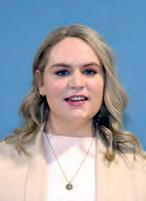


FE/PLC Engagement Officer
Atlantic Technological University (Galway and Mayo Campuses)
Email: aisling.hynes@atu.ie
T: 091 74 2390
M: 085 879 0855
Schools Engagement Officer


Atlantic Technological University (Donegal Campuses)
Email: lauren.reynolds@atu.ie
T: 074 91 86104
M: 086 343 9360

Schools Liaison Officer
Atlantic Technological University (Sligo Campuses)
Email: micheal.dowdican@atu.ie
T: 071 93 05981
M: 086 898 4086
If you can’t make one of our open days or scheduled events, you can contact a member of our team to book a campus tour. We offer campus tours throughout the year.
A campus tour is ideal for students who are considering studying at ATU. Family and friends are also encouraged to come along on the tour.
When you have finished with this prospectus please recycle it.
ATU Galway City ATU Donegal Letterkenny ATU Donegal Killybegs ATU Sligo St Angela’s* ATU Sligo ATU Mayo ATU Connemara ATU Mountbellew * Subject to formal incorporation of St Angela’s College into Atlantic Technological University